Wilds of Eldraine Release Notes
Compiled by Eric Levine
Document last modified May 18, 2023
PDF Download Links:
English | 中国话,汉语;中文 | Français | Deutsch
Italiano | Português | Español | 日本語
The Release Notes include information concerning the release of a new Magic: The Gathering set, as well as a collection of clarifications and rulings involving that set's cards. It's intended to make playing with the new cards more fun by clearing up the common misconceptions and confusion inevitably caused by new mechanics and interactions. As future sets are released, updates to the Magic rules may cause some of this information to become outdated. Go to Magic.Wizards.com/Rules to find the most up-to-date rules.
The "General Notes" section includes information about card legality and explains some of the mechanics and concepts in the set.
The "Card-Specific Notes" sections contain answers to the most important, most common, and most confusing questions players might ask about cards in the set. Items in the "Card-Specific Notes" sections include full card text for your reference. Not all cards in the set are listed.
GENERAL NOTES
Card Legality
Wilds of Eldraine cards with the WOE set code are permitted in the Standard, Pioneer, and Modern formats, as well as in Commander and other formats. At release, the following card sets will be permitted in the Standard format: Innistrad: Midnight Hunt, Innistrad: Crimson Vow, Streets of New Capenna, Kamigawa: Neon Dynasty, Dominaria United, The Brothers' War, Phyrexia: All Will Be One, March of the Machine, March of the Machine: The Aftermath, and Wilds of Eldraine.
Wilds of Eldraine Commander cards with the WOC set code and numbered 1–28 (and their alternate versions numbered 29–56) are permitted in the Commander, Legacy, and Vintage formats. Cards with the WOC set code numbered 59 and above are legal for play in any format where a card with the same name is permitted.
The Wilds of Eldraine release also includes Enchanting Tales cards with the WOT set code. These returning cards are legal for play in any format that already allows those cards. Additionally, Enchanting Tales cards that are opened in a sealed deck event are part of your card pool. The same is true for any that are drafted in a draft event.
Go to Magic.Wizards.com/Formats for a complete list of formats and their permitted card sets and banned lists.
Go to Magic.Wizards.com/Commander for more information on the Commander variant.
Go to Locator.Wizards.com to find an event or store near you.
New Mechanic: Roles
On Eldraine, everyone has a part to play. Some spells and abilities in Wilds of Eldraine generate one of seven predefined Aura tokens called Roles, all but one of which have positive effects. Will the Young Hero save the day, or will they succumb to sinister machinations and be Cursed?
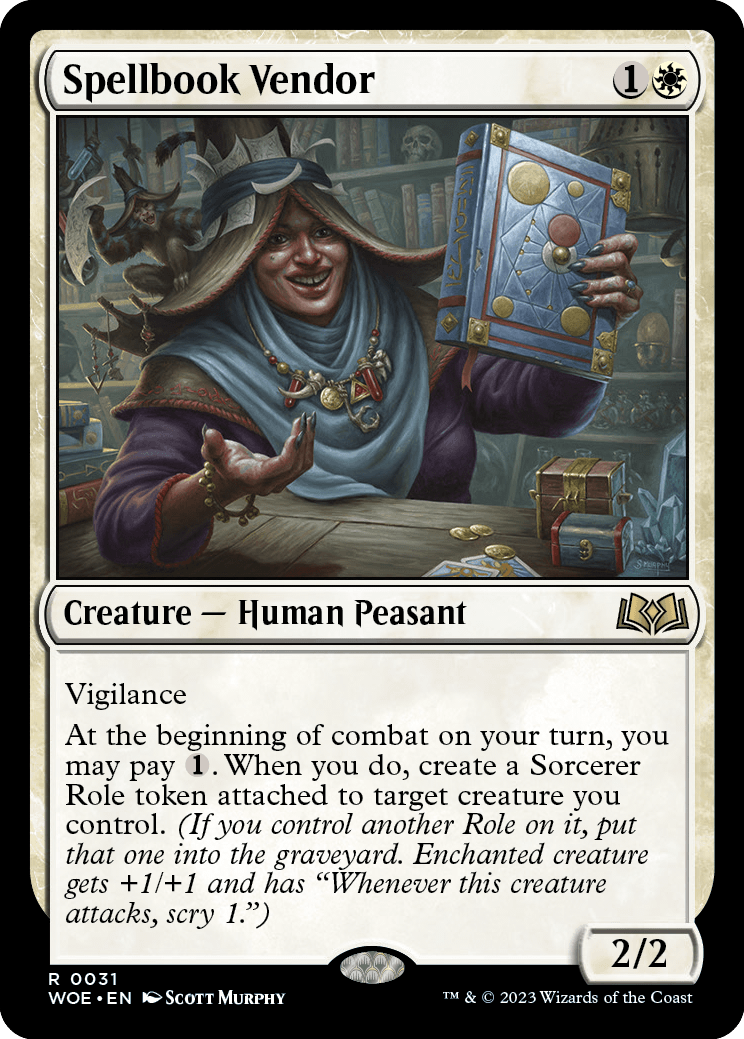
Spellbook Vendor
{1}{W}
Creature — Human Peasant
2/2
Vigilance
At the beginning of combat on your turn, you may pay {1}. When you do, create a Sorcerer Role token attached to target creature you control. (If you control another Role on it, put that one into the graveyard. Enchanted creature gets +1/+1 and has "Whenever this creature attacks, scry 1.")
- Roles are colorless enchantment tokens. Each one has the Aura and Role subtypes and the enchant creature ability.
- If a permanent has more than one Role attached to it controlled by the same player, each of those Roles except the one with the most recent timestamp is put into its owner's graveyard. This is a state-based action.
- If two or more Roles controlled by the same player become attached to a permanent at the same time (perhaps due to an effect such as that of Doubling Season), that player chooses which one to keep and which are put into their owners' graveyards.
- A permanent can have multiple Roles attached to it if each one is controlled by a different player.
- Some spells and abilities that create Role tokens require targets. If each target chosen is an illegal target as that spell or ability tries to resolve, it won't resolve. The Role token won't be created.
- In rare cases, a spell or ability might attempt to create a Role token enchanting a permanent that it can't legally enchant (because of an ability like protection from enchantments). In such cases, the Role token isn't created.
- Hexproof and shroud won't prevent a Role from becoming attached to a permanent if the ability creating that Role attached to that permanent doesn't target it.
- Cards in the Wilds of Eldraine main set create six different Role tokens: Cursed, Monster, Royal, Sorcerer, Wicked, and Young Hero. A seventh Role token, Virtuous, is created by Ellivere of the Wild Court, the commander of the "Virtue and Valor" Commander deck.
- The complete text of the Role tokens is listed below for reference.
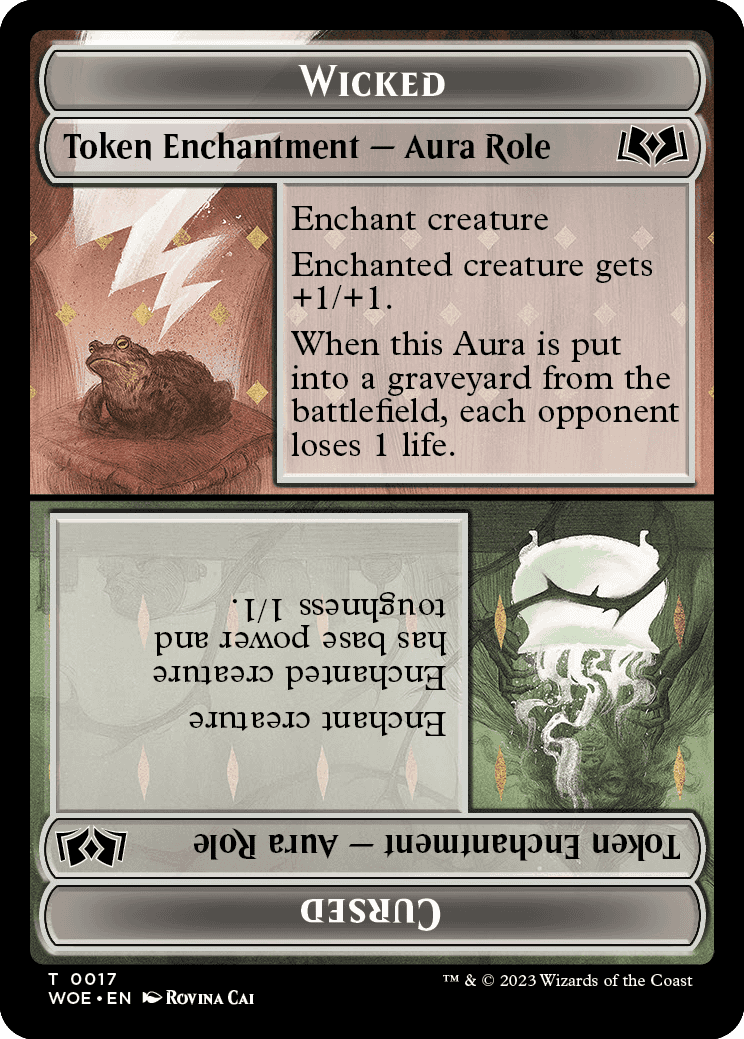
Cursed
Enchantment — Aura Role
Enchant creature
Enchanted creature has base power and toughness 1/1.
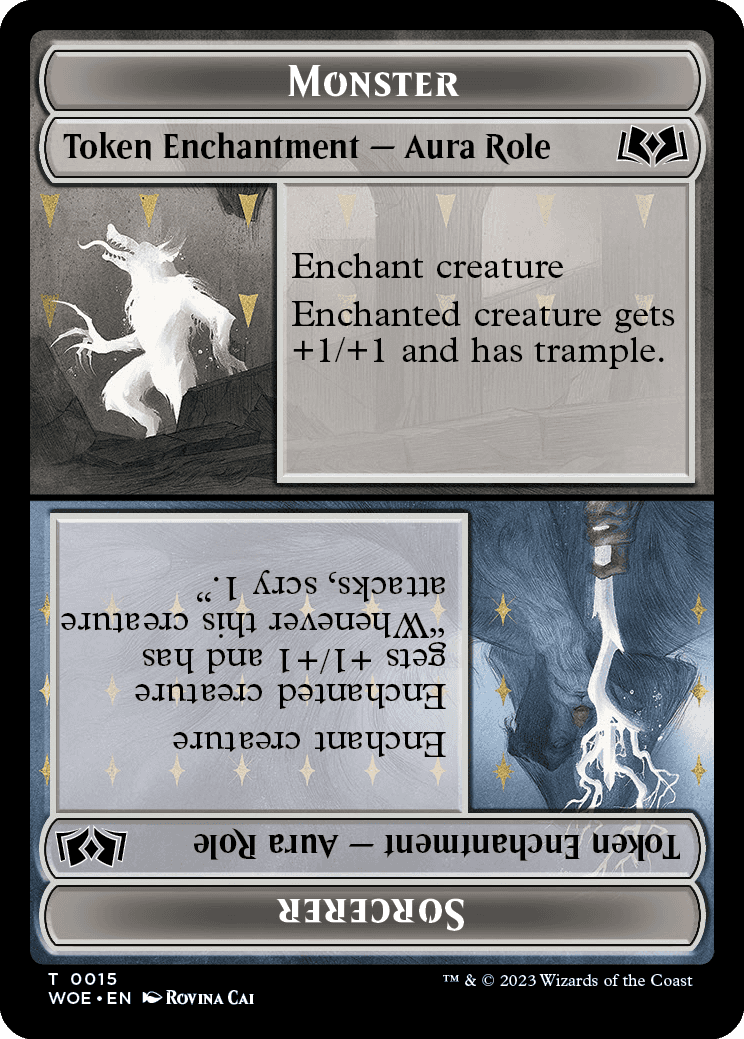
Monster
Enchantment — Aura Role
Enchant creature
Enchanted creature gets +1/+1 and has trample.
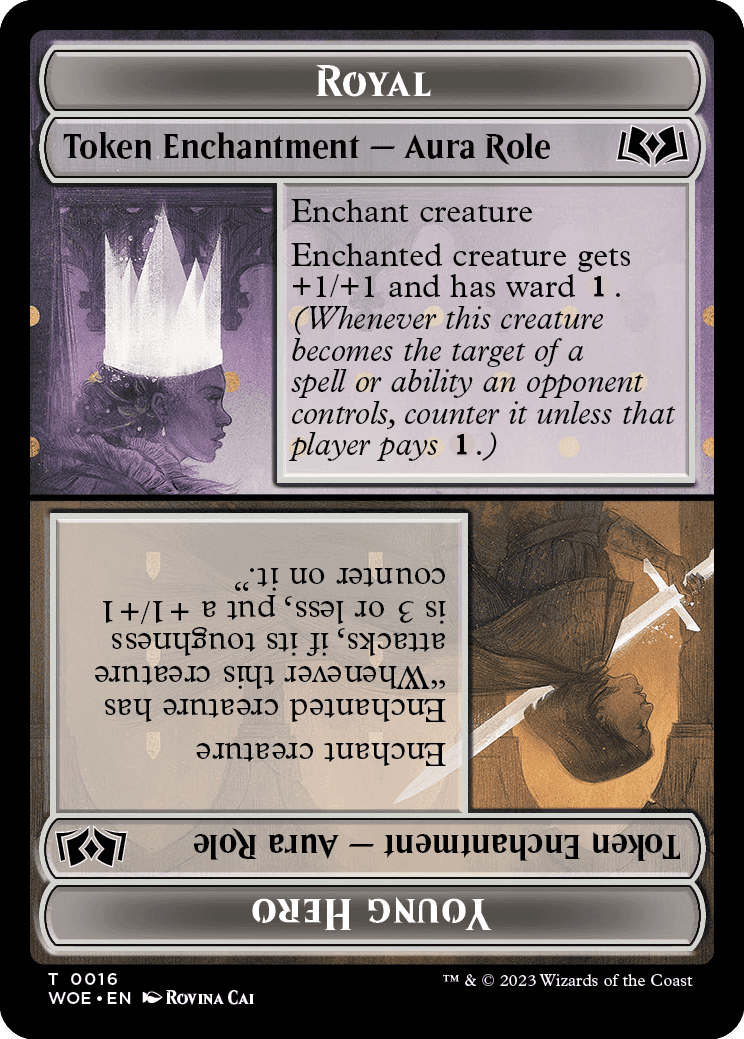
Royal
Enchantment — Aura Role
Enchant creature
Enchanted creature gets +1/+1 and has ward {1}. (Whenever this creature becomes the target of a spell or ability an opponent controls, counter it unless that player pays {1}.)
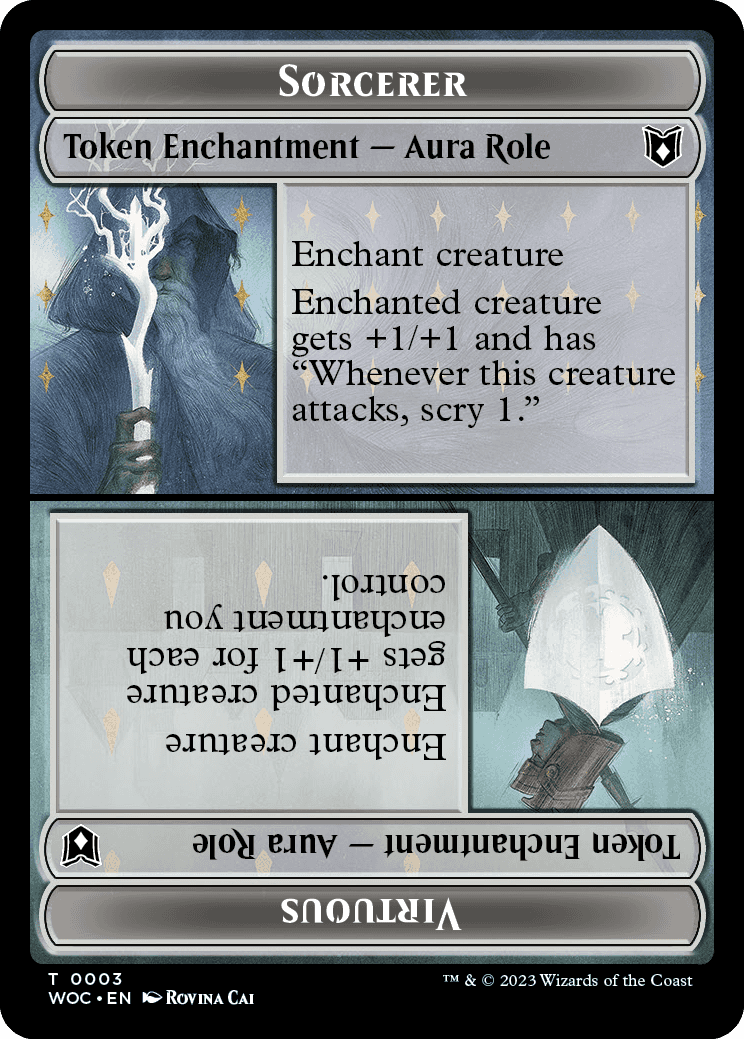
Sorcerer
Enchantment — Aura Role
Enchant creature
Enchanted creature gets +1/+1 and has "Whenever this creature attacks, scry 1."

Wicked
Enchantment — Aura Role
Enchant creature
Enchanted creature gets +1/+1.
When this Aura is put into a graveyard from the battlefield, each opponent loses 1 life.

Young Hero
Enchantment — Aura Role
Enchant creature
Enchanted creature has "Whenever this creature attacks, if its toughness is 3 or less, put a +1/+1 counter on it."
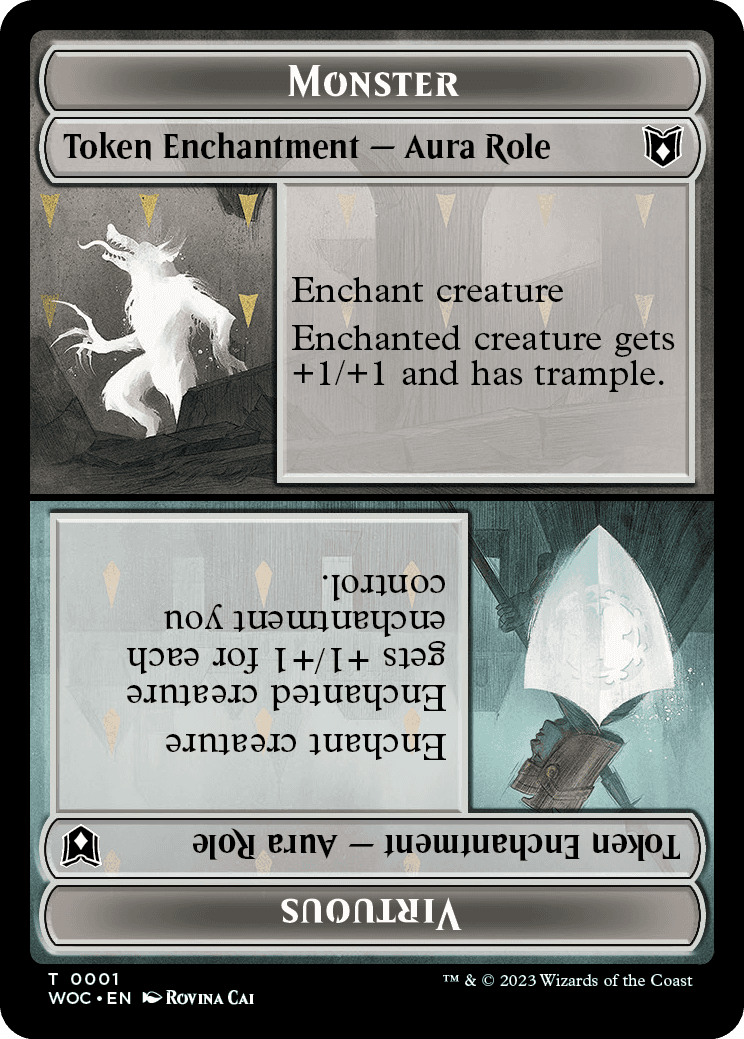
Virtuous
Enchantment — Aura Role
Enchant creature
Enchanted creature gets +1/+1 for each enchantment you control.
- Role tokens can be found in Prerelease Packs and some Draft and Set Boosters. Each one can represent two different Roles via its two-part frame, with one part being printed upside down. You can use these by turning the token so that the appropriate Role is right side up, then placing the token behind the appropriate creature so the unused, upside-down Role is covered. As always, the use of these specific tokens is optional.
New Keyword Ability: Bargain
To survive in the Wilds, you might need to make a deal or two. That's what bargain is all about: sacrifice an artifact, enchantment, or token as you cast a spell with bargain, and in turn, receive a more powerful effect.
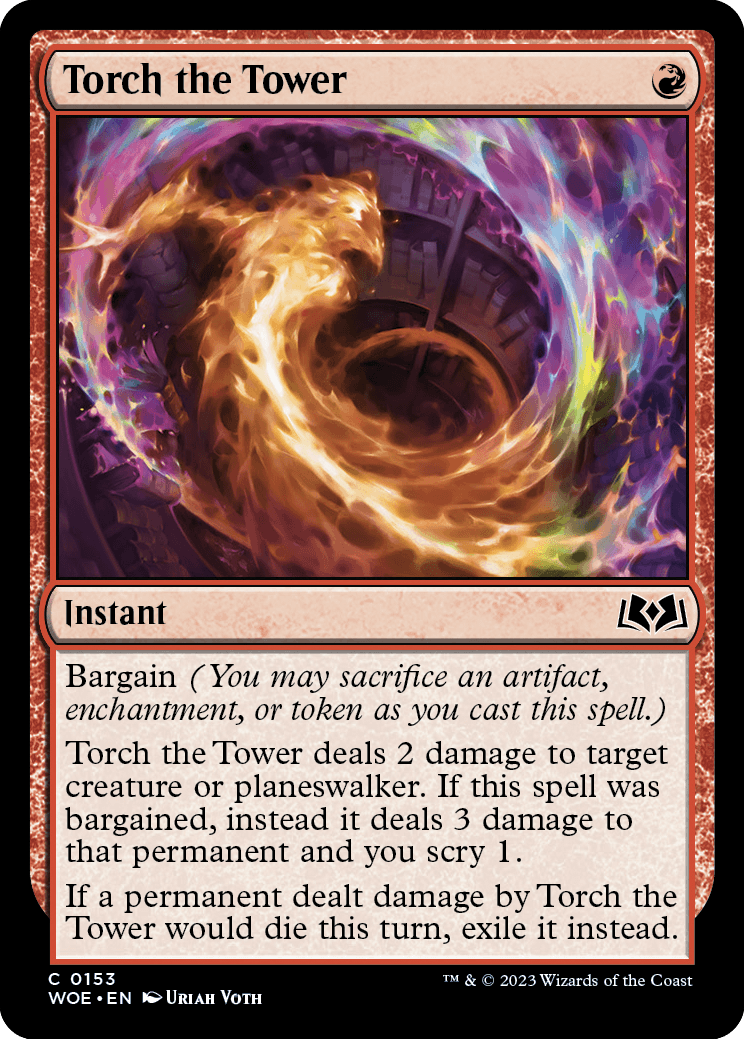
Torch the Tower
{R}
Instant
Bargain (You may sacrifice an artifact, enchantment, or token as you cast this spell.)
Torch the Tower deals 2 damage to target creature or planeswalker. If this spell was bargained, instead it deals 3 damage to that permanent and you scry 1.
If a permanent dealt damage by Torch the Tower would die this turn, exile it instead.
- Bargain means "As an additional cost to cast this spell, you may sacrifice an artifact, enchantment, or token."
- Bargain represents an optional additional cost. A spell cast with that additional cost paid is "bargained."
- You may sacrifice only one artifact, enchantment, or token to pay a spell's bargain cost.
- If you copy a bargained spell, the copy is also bargained. If a card or token enters the battlefield as a copy of a permanent that's already on the battlefield, the new permanent isn't bargained, even if the original was.
- Some instant and sorcery spells require additional targets if they're bargained. You ignore those targeting requirements if those spells aren't bargained, and you can't bargain those spells unless you can choose the appropriate targets. On the other hand, you can bargain a permanent spell even if you won't be able to choose targets for an enters-the-battlefield ability of that permanent once the spell resolves.
New Ability Word: Celebration
The Phyrexians have been defeated, and that's cause for merriment. Celebration is an ability word that highlights abilities that reward you for having two or more nonland permanents enter the battlefield under your control in a single turn.
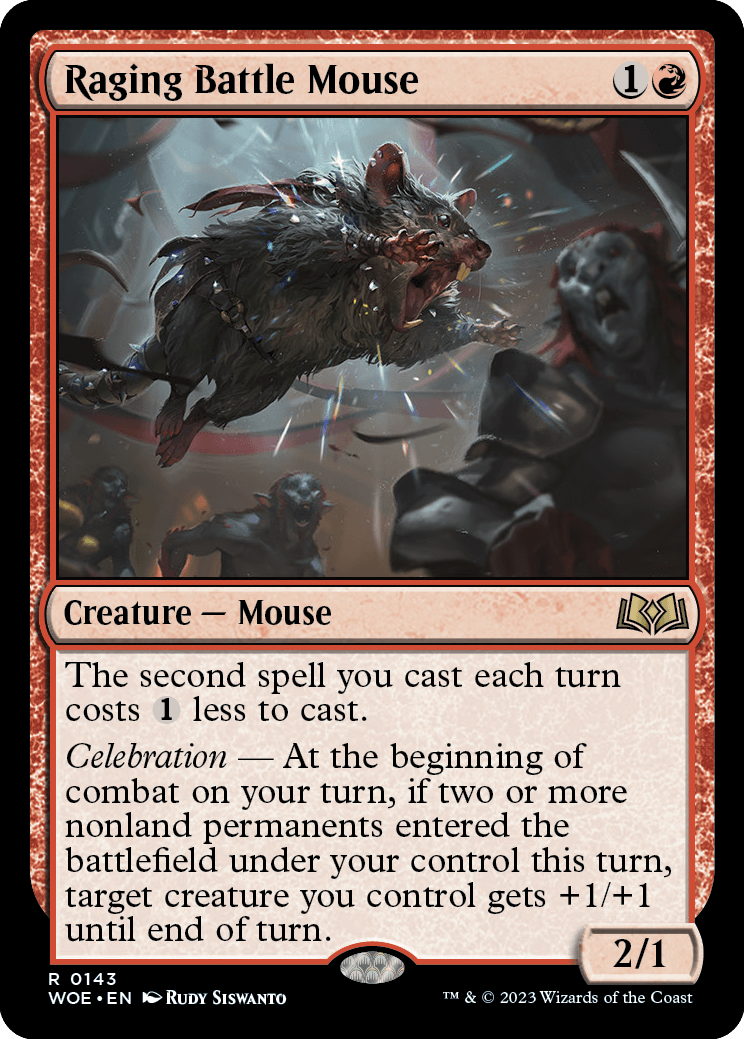
Raging Battle Mouse
{1}{R}
Creature — Mouse
2/1
The second spell you cast each turn costs {1} less to cast.
Celebration — At the beginning of combat on your turn, if two or more nonland permanents entered the battlefield under your control this turn, target creature you control gets +1/+1 until end of turn.
- Each celebration ability has a different effect.
- Some celebration abilities trigger at specific parts of the turn and check whether two or more nonland permanents entered the battlefield under your control already in that turn.
- Others are static abilities that give creatures abilities or power and toughness increases as long as two or more nonland permanents entered the battlefield under your control that turn.
- Celebration abilities only care if two or more nonland permanents entered the battlefield under your control in a turn. They won't get more powerful if more than two permanents entered the battlefield under your control in a turn.
- The permanents that entered the battlefield don't need to remain on the battlefield or under your control. Celebration abilities are checking for past events, not the current game state.
Returning Mechanic: Adventurer Cards
Our return to Eldraine heralds the return of adventurer cards. Just as before, adventurer cards are permanent cards, but each has a set of alternative characteristics in a subset frame on the left of its text box. You may cast the card as its Adventure—if you do, you can cast it as a permanent later. Some adventurer cards in Wilds of Eldraine feature Adventures with different colors than their associated creatures or enchantments.
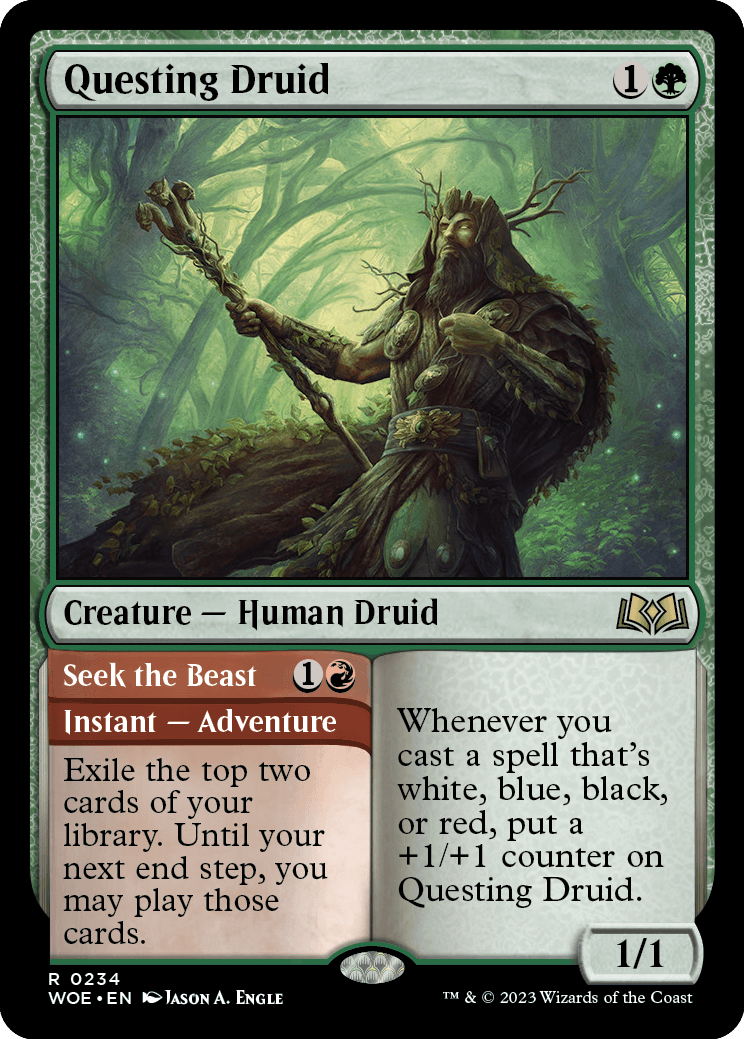
Questing Druid
{1}{G}
Creature — Human Druid
1/1
Whenever you cast a spell that's white, blue, black, or red, put a +1/+1 counter on Questing Druid.
//
Seek the Beast
{1}{R}
Instant — Adventure
Exile the top two cards of your library. Until your next end step, you may play those cards.
- An adventurer card is a permanent card in every zone except the stack, as well as while on the stack if not cast as an Adventure. Ignore its alternative characteristics in those cases. For example, while it's in your graveyard, Questing Druid is a green creature card whose mana value is 2. It can't be the target of Tenacious Tomeseeker's triggered ability ("return target instant or sorcery card from your graveyard to your hand").
- When casting a spell as an Adventure, use the alternative characteristics and ignore all of the card's normal characteristics. The spell's color, mana cost, mana value, and so on are determined by only those alternative characteristics. If the spell leaves the stack, it immediately resumes using its normal characteristics.
- If you cast an adventurer card as an Adventure, use only its alternative characteristics to determine whether it's legal to cast that spell. For example, if you control Johann, Apprentice Sorcerer ("Once each turn, you may cast an instant or sorcery spell from the top of your library.") and Questing Druid is on top of your library, you can cast Seek the Beast, but not Questing Druid.
- If a spell is cast as an Adventure, its controller exiles it instead of putting it into its owner's graveyard as it resolves. For as long as it remains exiled, that player may cast it as a permanent spell. If an Adventure spell leaves the stack in any way other than resolving (most likely by being countered or by failing to resolve because its targets have all become illegal), that card won't be exiled and the spell's controller won't be able to cast it as a permanent later.
- If an adventurer card ends up in exile for any other reason than by exiling itself while resolving, it won't give you permission to cast it as a permanent spell.
- You must still follow any timing restrictions and permissions for the permanent spell you cast from exile. Normally, you'll be able to cast it only during your main phase while the stack is empty.
- If an effect copies an Adventure spell, that copy is exiled as it resolves. It ceases to exist as a state-based action; it's not possible to cast the copy as a permanent.
- An effect may refer to a card, spell, or permanent that "has an Adventure." This refers to a card, spell, or permanent that has an adventurer card's set of alternative characteristics, even if they're not being used and even if that card was never cast as an Adventure.
- If an effect refers to a card, spell, or permanent that has an Adventure, it won't find an instant or sorcery spell on the stack that's been cast as an Adventure.
- If an object becomes a copy of an object that has an Adventure, the copy also has an Adventure. If it changes zones, it will either cease to exist (if it's a token) or cease to be a copy (if it's a nontoken permanent), and so you won't be able to cast it as an Adventure.
- If an effect instructs you to choose a card name, you may choose the alternative Adventure name. Consider only the alternative characteristics to determine whether that is an appropriate name to choose.
- Casting a card as an Adventure isn't casting it for an alternative cost. Effects that allow you to cast a spell for an alternative cost or without paying its mana cost may allow you to apply those to the Adventure.
Returning Mechanic: Food
The rich culinary traditions of Eldraine live on even in the aftermath of the Phyrexian invasion. Several cards in this release create or make use of Food artifacts.
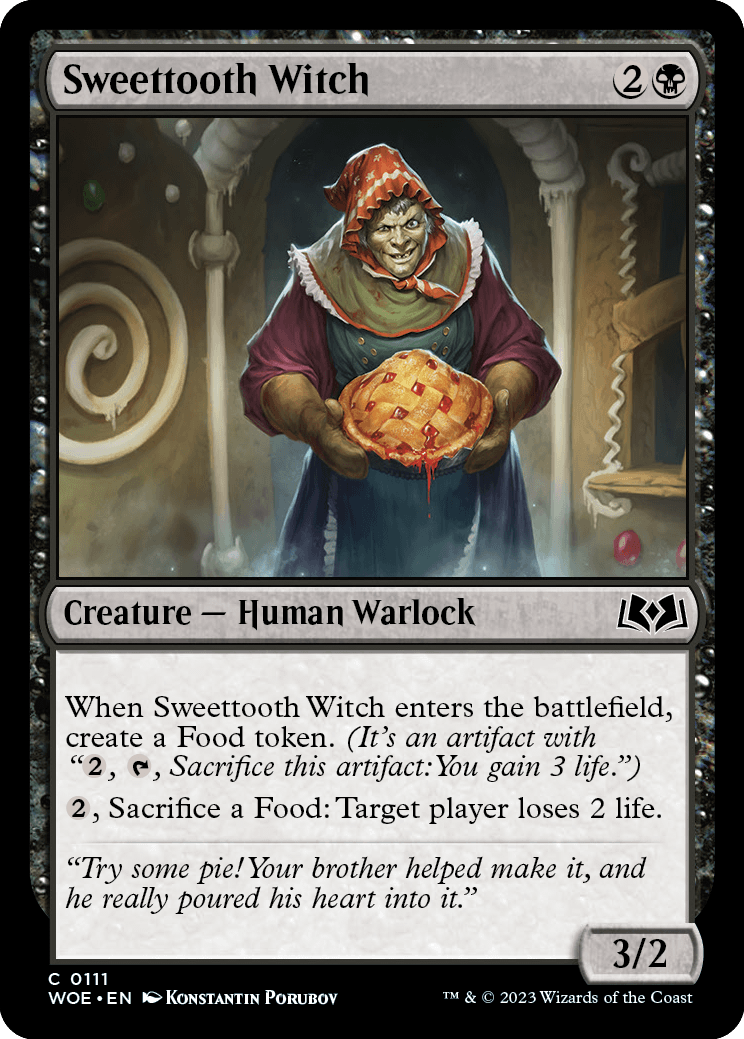
Sweettooth Witch
{2}{B}
Creature — Human Warlock
3/2
When Sweettooth Witch enters the battlefield, create a Food token. (It's an artifact with "{2}, {T}, Sacrifice this artifact: You gain 3 life.")
{2}, Sacrifice a Food: Target player loses 2 life.
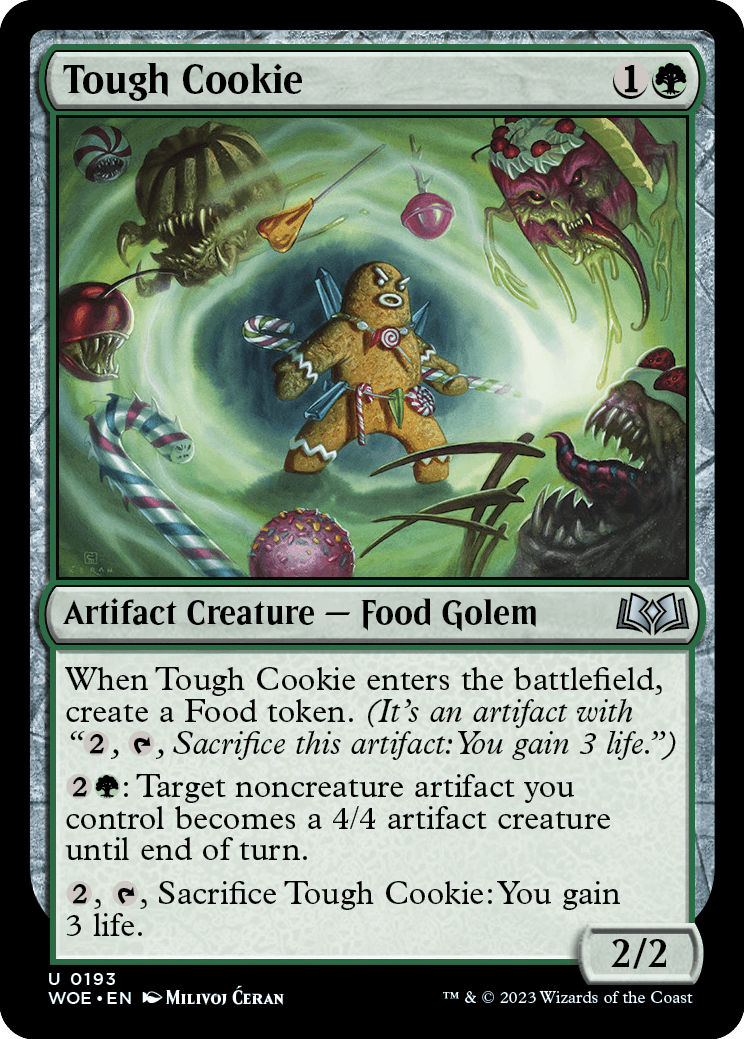
Tough Cookie
{1}{G}
Artifact Creature — Food Golem
2/2
When Tough Cookie enters the battlefield, create a Food token. (It's an artifact with "{2}, {T}, Sacrifice this artifact: You gain 3 life.")
{2}{G}: Target noncreature artifact you control becomes a 4/4 artifact creature until end of turn.
{2}, {T}, Sacrifice Tough Cookie: You gain 3 life.
- Food is an artifact type. Even though it appears on some creatures, it's never a creature type.
- If an effect refers to a Food, it means any Food artifact, not just a Food artifact token. For example, you can sacrifice Tough Cookie to activate the last ability of Sweettooth Witch.
- You can't sacrifice a Food to pay multiple costs. For example, you can't sacrifice a Food token to activate its own ability and also to activate the last ability of Sweettooth Witch.
- Some spells and abilities that create Food tokens may require targets. If each target chosen is an illegal target as that spell or ability tries to resolve, it won't resolve. You won't create any Food tokens.
- Whatever you do, don't eat the delicious cards.
Land Cycle: Restless Lands
Wilds of Eldraine includes five nonbasic lands that tap for one of two colors and can become creatures temporarily.
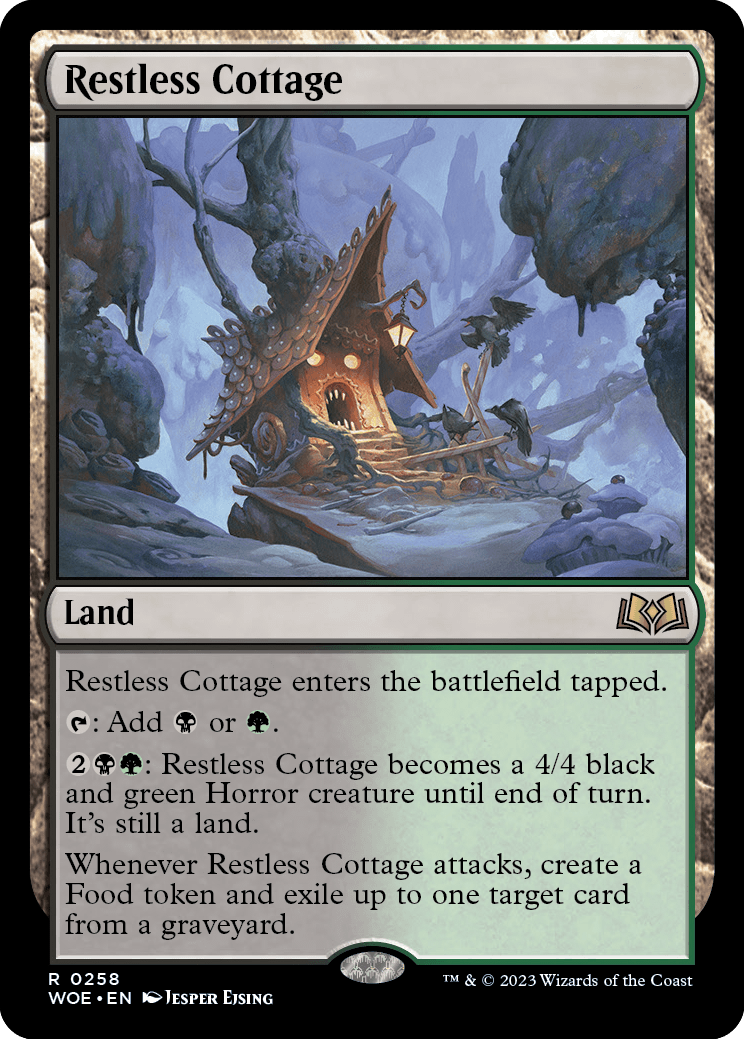
Restless Cottage
Land
Restless Cottage enters the battlefield tapped.
{T}: Add {B} or {G}.
{2}{B}{G}: Restless Cottage becomes a 4/4 black and green Horror creature until end of turn. It's still a land.
Whenever Restless Cottage attacks, create a Food token and exile up to one target card from a graveyard.
- If one of the lands in this cycle becomes a creature because of an effect other than its own ability, its last ability will still trigger whenever it attacks.
- If one of the lands in this cycle becomes a creature but you haven't controlled it continuously since your most recent turn began, you won't be able to activate its mana ability or attack with it that turn.
WILDS OF ELDRAINE MAIN SET CARD-SPECIFIC NOTES
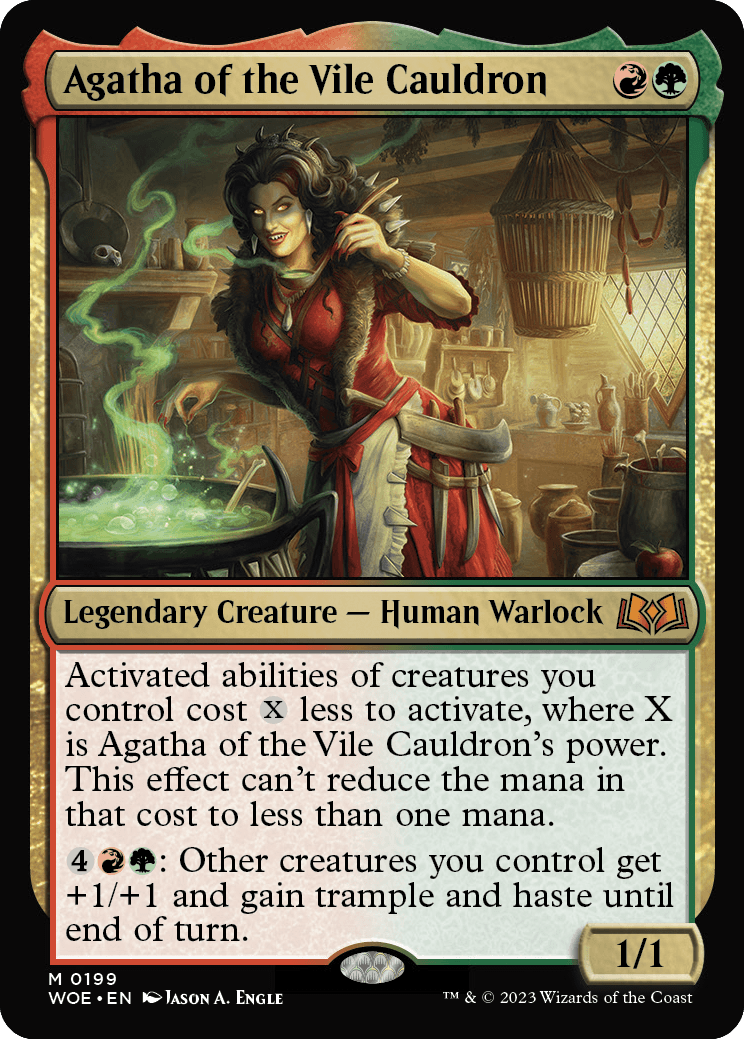
Agatha of the Vile Cauldron
{R}{G}
Legendary Creature — Human Warlock
1/1
Activated abilities of creatures you control cost {X} less to activate, where X is Agatha of the Vile Cauldron's power. This effect can't reduce the mana in that cost to less than one mana.
{4}{R}{G}: Other creatures you control get +1/+1 and gain trample and haste until end of turn.
- Activated abilities contain a colon. They're generally written "[Cost]: [Effect]." Some keyword abilities are activated abilities and will have colons in their reminder text. Triggered abilities (starting with "when," "whenever," or "at") are unaffected by the cost reduction ability of Agatha of the Vile Cauldron.
- Agatha of the Vile Cauldron's first ability affects only abilities of creatures you control on the battlefield. The costs of activated abilities of creature cards that work in other zones (such as cycling) won't be reduced.
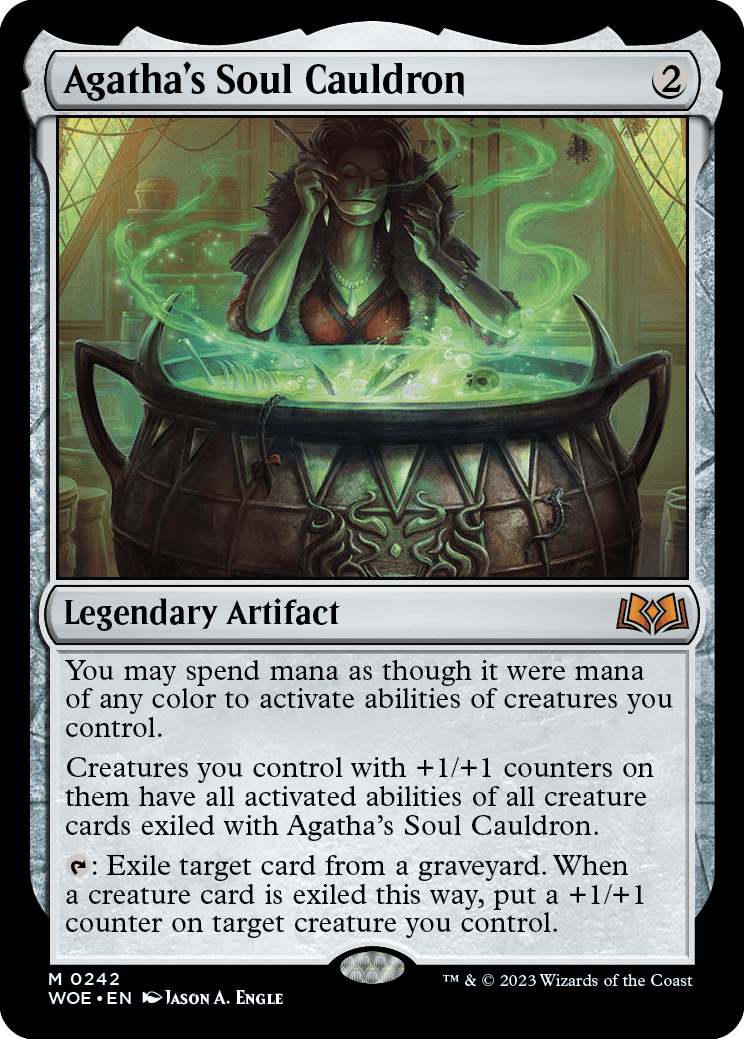
Agatha's Soul Cauldron
{2}
Legendary Artifact
You may spend mana as though it were mana of any color to activate abilities of creatures you control.
Creatures you control with +1/+1 counters on them have all activated abilities of all creature cards exiled with Agatha's Soul Cauldron.
{T}: Exile target card from a graveyard. When a creature card is exiled this way, put a +1/+1 counter on target creature you control.
- Activated abilities contain a colon. They're generally written "[Cost]: [Effect]." Some keyword abilities are activated abilities and will have colons in their reminder text.
- Agatha's Soul Cauldron grants only activated abilities. It doesn't grant keyword abilities (unless those keyword abilities are activated), triggered abilities, or static abilities.
- The granted abilities effectively use "this permanent" rather than "[that card's name]," so you treat the abilities as though they were printed on the creature that gained the ability. For example, say you exiled the card Argothian Sprite with Agatha's Soul Cauldron. Argothian Sprite has the ability "{7}: Put two +1/+1 counters on Argothian Sprite." If you controlled a Callous Sell-Sword with a +1/+1 counter on it, you'd treat it as though it had the ability "{7}: Put two +1/+1 counters on Callous Sell-Sword."
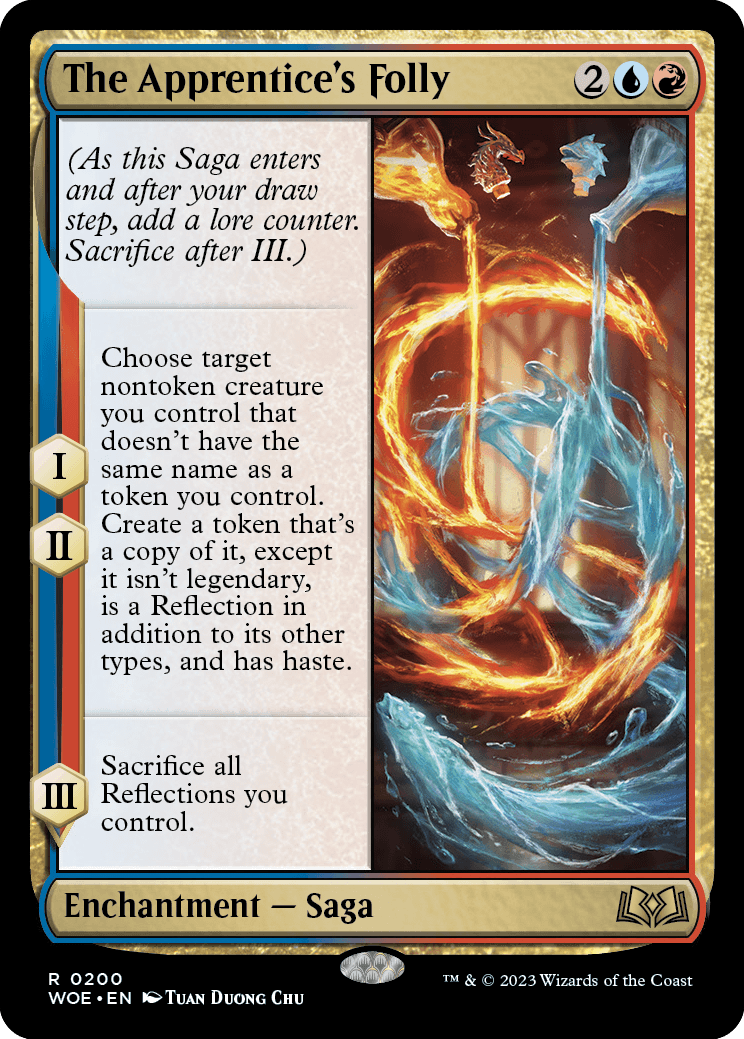
The Apprentice's Folly
{2}{U}{R}
Enchantment — Saga
(As this Saga enters and after your draw step, add a lore counter. Sacrifice after III.)
I, II — Choose target nontoken creature you control that doesn't have the same name as a token you control. Create a token that's a copy of it, except it isn't legendary, is a Reflection in addition to its other types, and has haste.
III — Sacrifice all Reflections you control.
- Except for the listed exceptions, the token copies exactly what was printed on the original creature and nothing else (unless that permanent is itself copying something else; see below). It doesn't copy whether that permanent is tapped or untapped, whether it has any counters on it or Auras attached to it, or any non-copy effects that have changed its power, toughness, types, color, and so on.
- If the copied creature is copying something else, then the token enters the battlefield as whatever that creature copied, with the stated exceptions.
- If the copied creature has {X} in its mana cost, X is 0.
- Any enters-the-battlefield abilities of the copied creature will trigger when the token enters the battlefield. Any "as [this creature] enters the battlefield" or "[this creature] enters the battlefield with" abilities of the creature will also work.
- If something becomes a copy of the token, the copy is also a Reflection in addition to its other types, has haste, and isn't legendary.
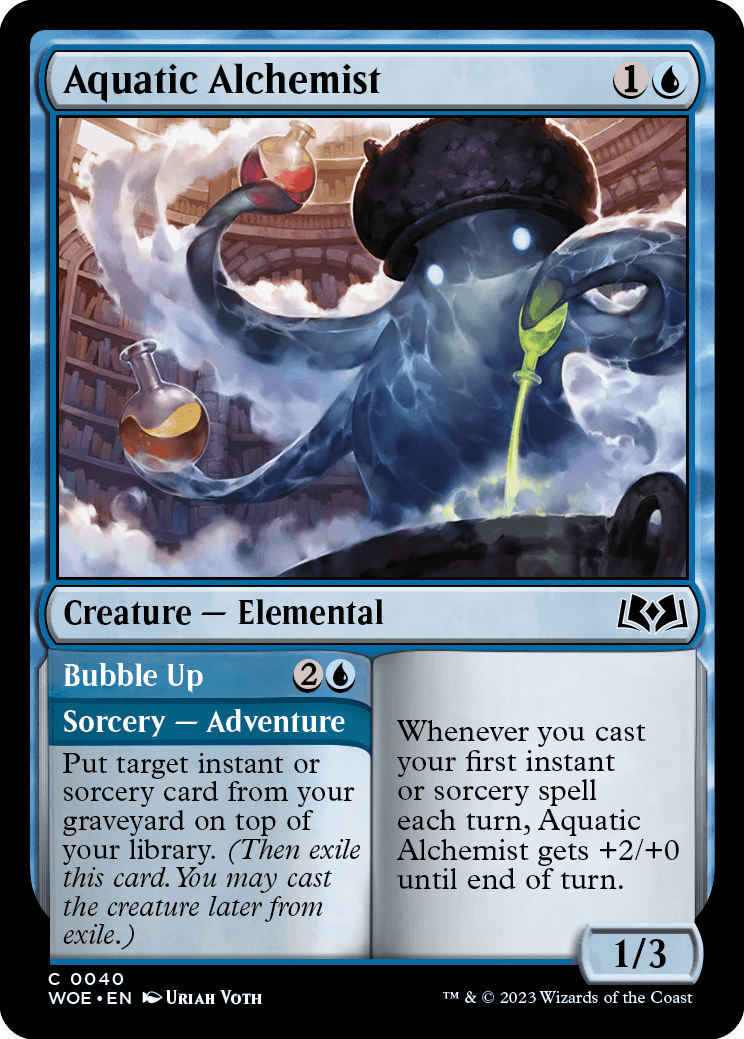
Aquatic Alchemist
{1}{U}
Creature — Elemental
1/3
Whenever you cast your first instant or sorcery spell each turn, Aquatic Alchemist gets +2/+0 until end of turn.
//
Bubble Up
{2}{U}
Sorcery — Adventure
Put target instant or sorcery card from your graveyard on top of your library. (Then exile this card. You may cast the creature later from exile.)
- Adventurer cards aren't instant or sorcery cards while they're in your graveyard. You can't use Bubble Up to put an adventurer card from your graveyard on top of your library.
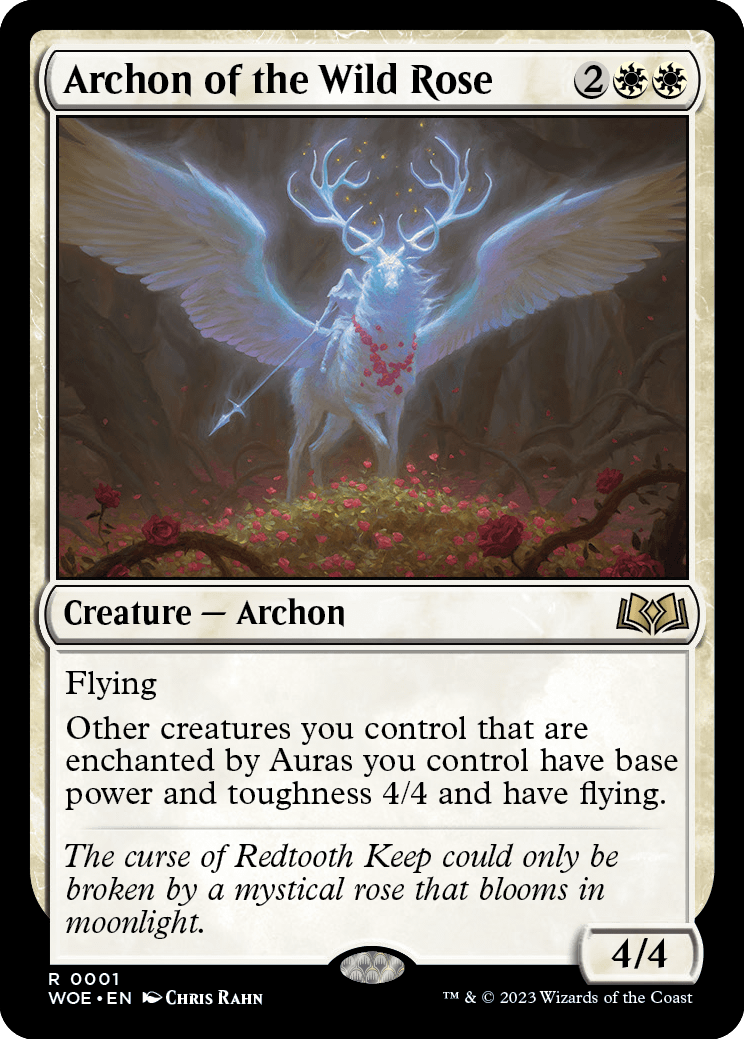
Archon of the Wild Rose
{2}{W}{W}
Creature — Archon
4/4
Flying
Other creatures you control that are enchanted by Auras you control have base power and toughness 4/4 and have flying.
- Archon of the Wild Rose's ability overwrites all previous effects that set the affected creatures' power and/or toughness to specific values. Other effects that set these characteristics to specific values that start to apply after Archon of the Wild Rose enters the battlefield will overwrite this effect.
- Effects that modify a creature's power and/or toughness without setting it will apply to the affected creatures no matter when they started to take effect. The same is true for counters that change a creature's power and/or toughness.
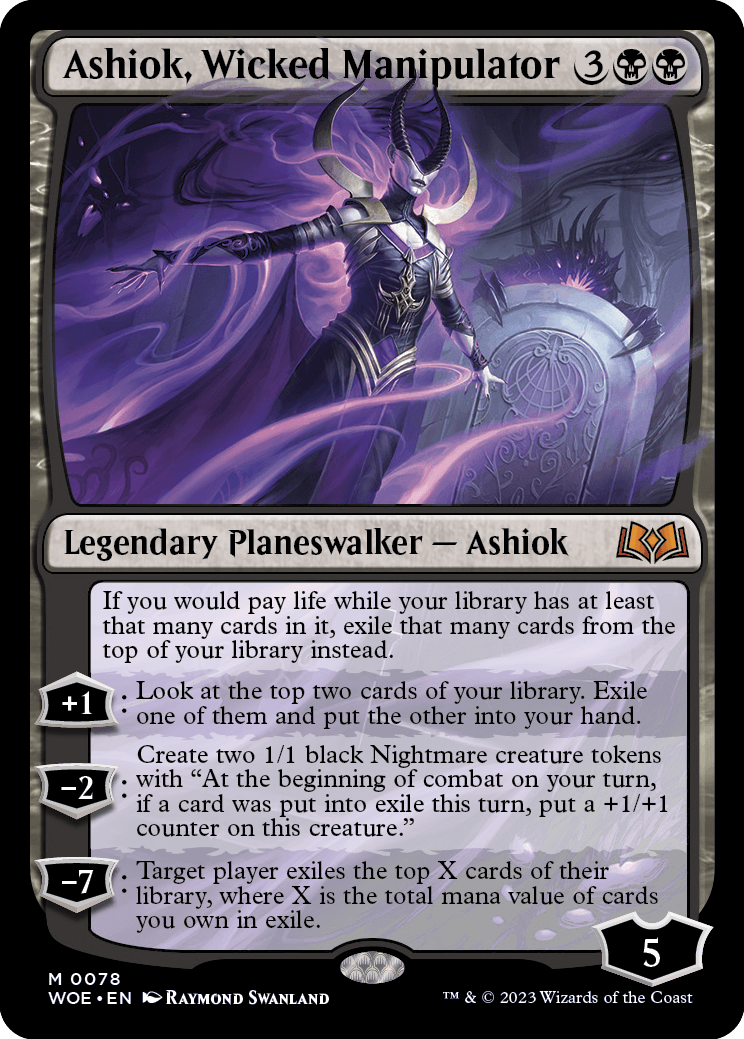
Ashiok, Wicked Manipulator
{3}{B}{B}
Legendary Planeswalker — Ashiok
5
If you would pay life while your library has at least that many cards in it, exile that many cards from the top of your library instead.
+1: Look at the top two cards of your library. Exile one of them and put the other into your hand.
−2: Create two 1/1 black Nightmare creature tokens with "At the beginning of combat on your turn, if a card was put into exile this turn, put a +1/+1 counter on this creature."
−7: Target player exiles the top X cards of their library, where X is the total mana value of cards you own in exile.
- Ashiok, Wicked Manipulator's first ability isn't optional. You can't choose to pay life instead of exiling cards from the top of your library while you control Ashiok, and you can't split the payment between life and cards.
- If you would pay life while you control Ashiok and your library does not have at least that many cards in it, you'll just pay life as normal.
- Ashiok's first ability doesn't allow you to attempt to pay an amount of life greater than your current life total.
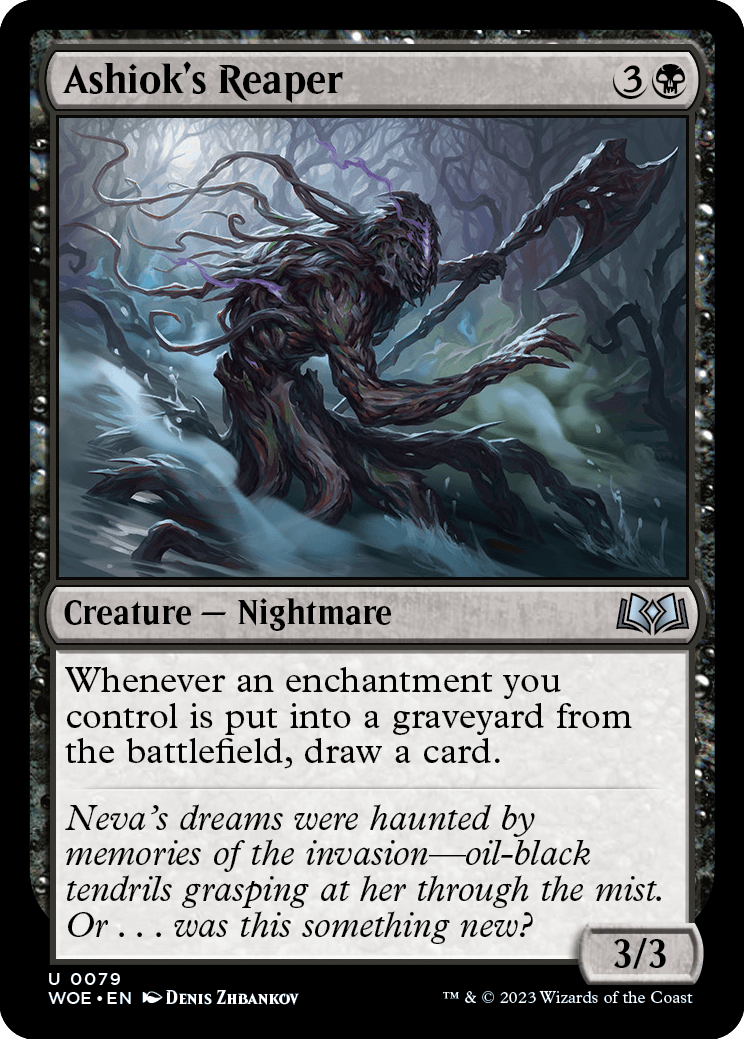
Ashiok's Reaper
{3}{B}
Creature — Nightmare
3/3
Whenever an enchantment you control is put into a graveyard from the battlefield, draw a card.
- Enchantment tokens (such as Roles) that are sacrificed, destroyed, or would otherwise go to the graveyard are put into their owner's graveyard before ceasing to exist. If you controlled the token, Ashiok's Reaper's ability will trigger.
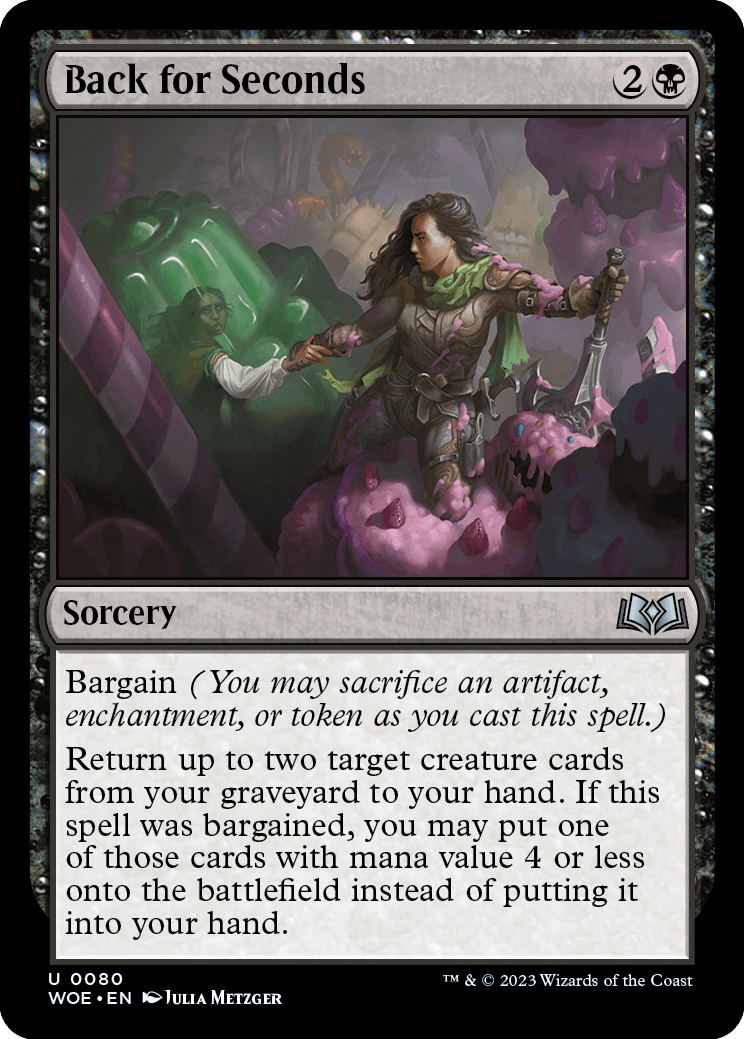
Back for Seconds
{2}{B}
Sorcery
Bargain (You may sacrifice an artifact, enchantment, or token as you cast this spell.)
Return up to two target creature cards from your graveyard to your hand. If this spell was bargained, you may put one of those cards with mana value 4 or less onto the battlefield instead of putting it into your hand.
- If you bargain this spell, you can still choose not to put one of the cards onto the battlefield, even if at least one is eligible.
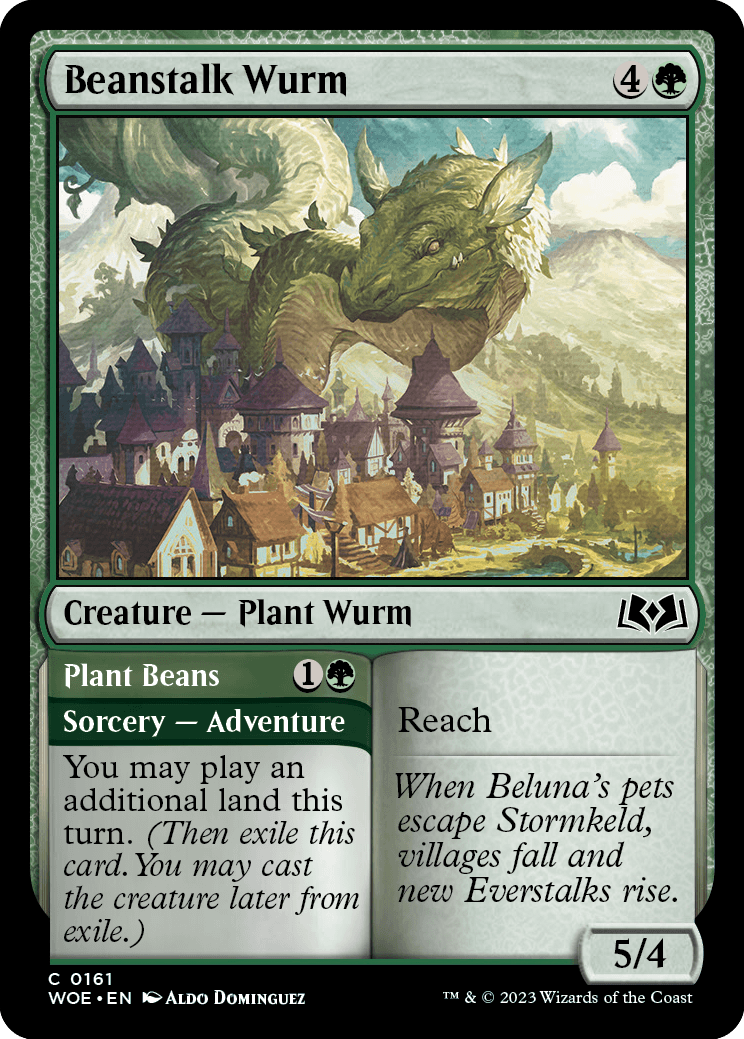
Beanstalk Wurm
{4}{G}
Creature — Plant Wurm
5/4
Reach
//
Plant Beans
{1}{G}
Sorcery — Adventure
You may play an additional land this turn. (Then exile this card. You may cast the creature later from exile.)
- The effect that allows you to play an additional land that turn is cumulative with other effects that do so.
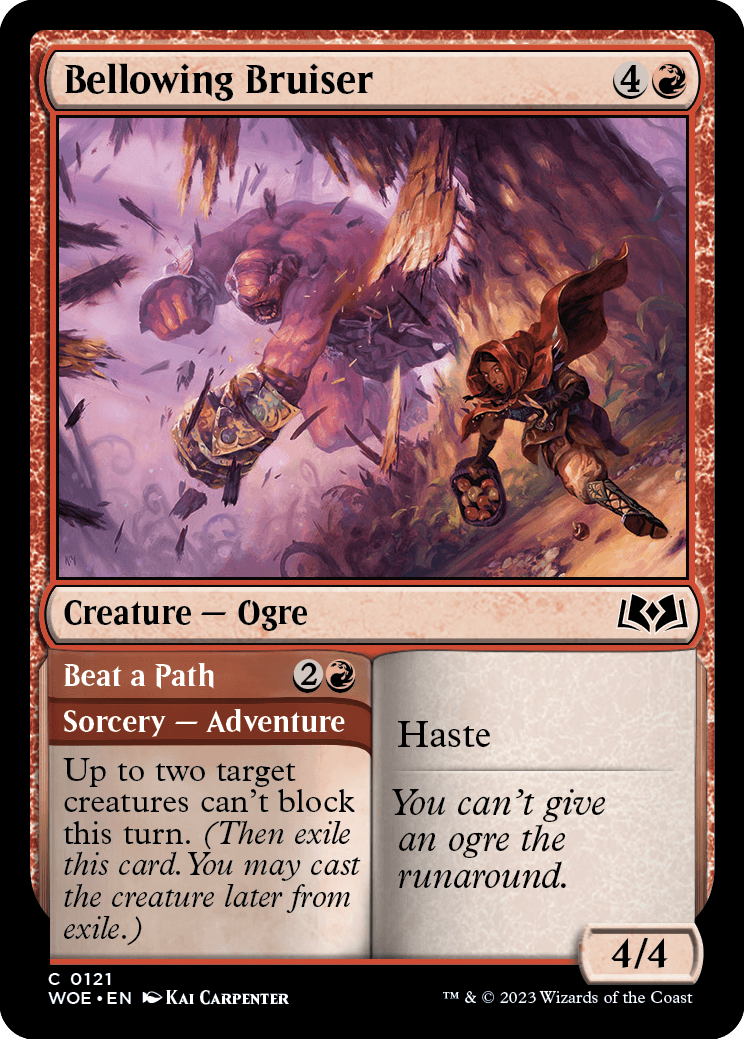
Bellowing Bruiser
{4}{R}
Creature — Ogre
4/4
Haste
//
Beat a Path
{2}{R}
Sorcery — Adventure
Up to two target creatures can't block this turn. (Then exile this card. You may cast the creature later from exile.)
- If two targets are chosen for Beat a Path and one of them becomes an illegal target but not the other, the legal target will be unable to block and Beat a Path will be exiled. If both targets are illegal, Beat a Path will be put into its owner's graveyard.
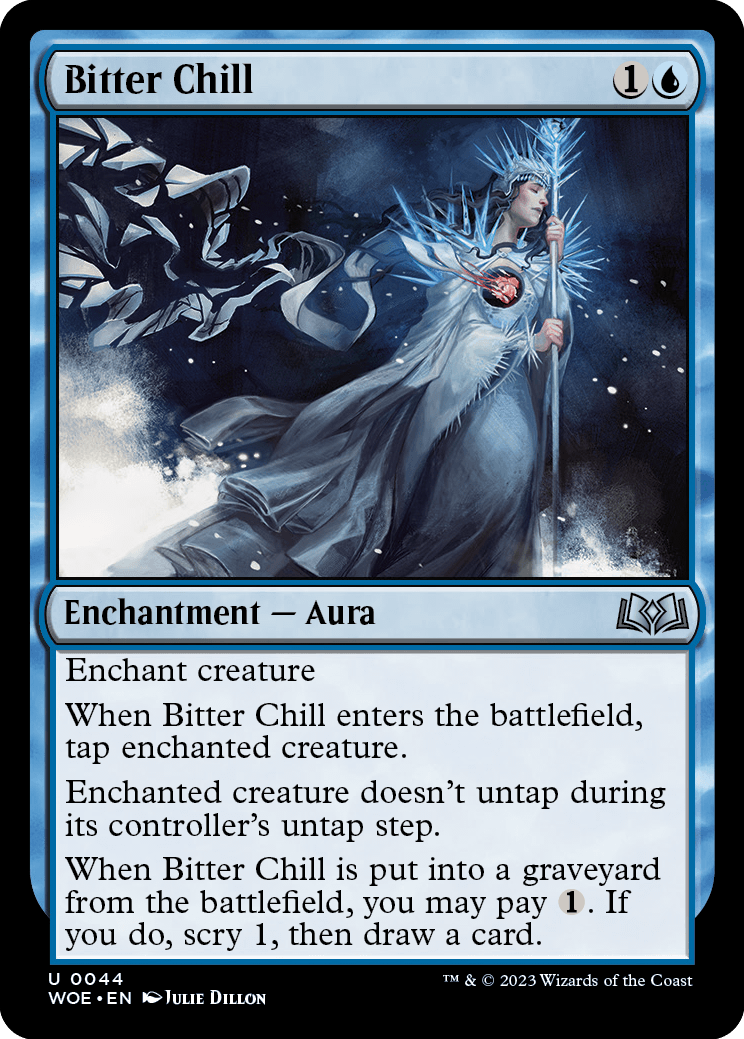
Bitter Chill
{1}{U}
Enchantment — Aura
Enchant creature
When Bitter Chill enters the battlefield, tap enchanted creature.
Enchanted creature doesn't untap during its controller's untap step.
When Bitter Chill is put into a graveyard from the battlefield, you may pay {1}. If you do, scry 1, then draw a card.
- If the creature Bitter Chill would enchant is an illegal target by the time the Aura spell resolves, the entire spell doesn't resolve. It's put into the graveyard from the stack, not the battlefield, so its last ability won't trigger.
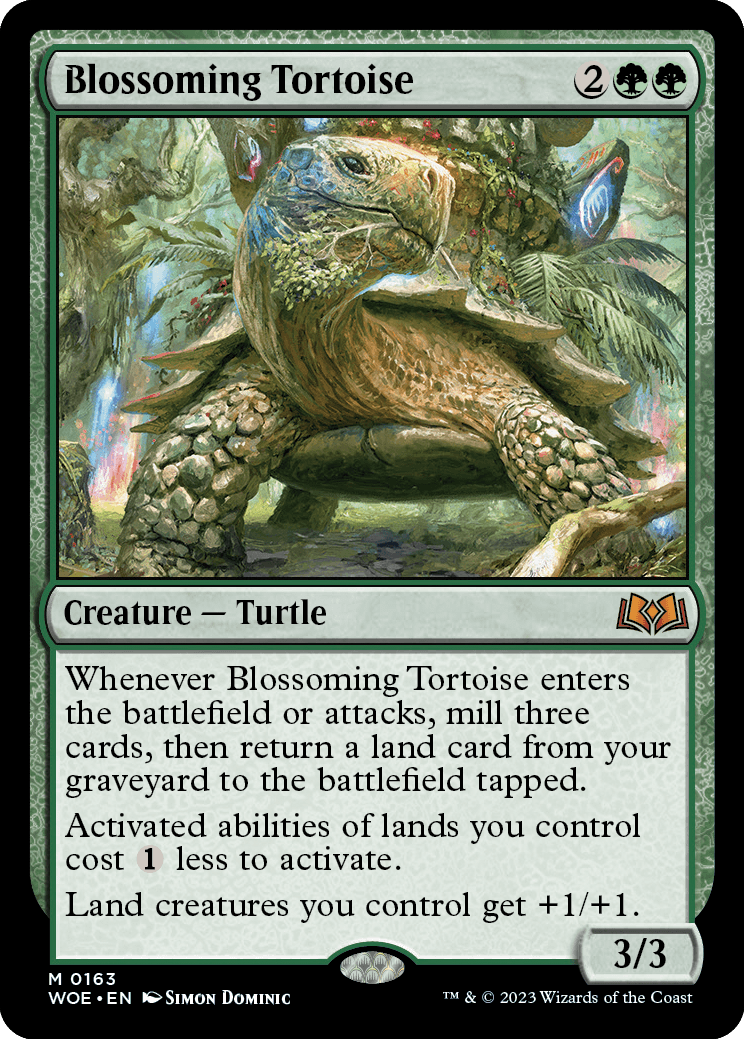
Blossoming Tortoise
{2}{G}{G}
Creature — Turtle
3/3
Whenever Blossoming Tortoise enters the battlefield or attacks, mill three cards, then return a land card from your graveyard to the battlefield tapped.
Activated abilities of lands you control cost {1} less to activate.
Land creatures you control get +1/+1.
- Activated abilities contain a colon. They're generally written "[Cost]: [Effect]." Some keyword abilities are activated abilities and will have colons in their reminder text. Triggered abilities (starting with "when," "whenever," or "at") are unaffected by the cost reduction ability of Blossoming Tortoise.
- Blossoming Tortoise's second ability affects only abilities of lands you control on the battlefield. The costs of activated abilities of land cards that work in other zones (such as cycling) won't be reduced.
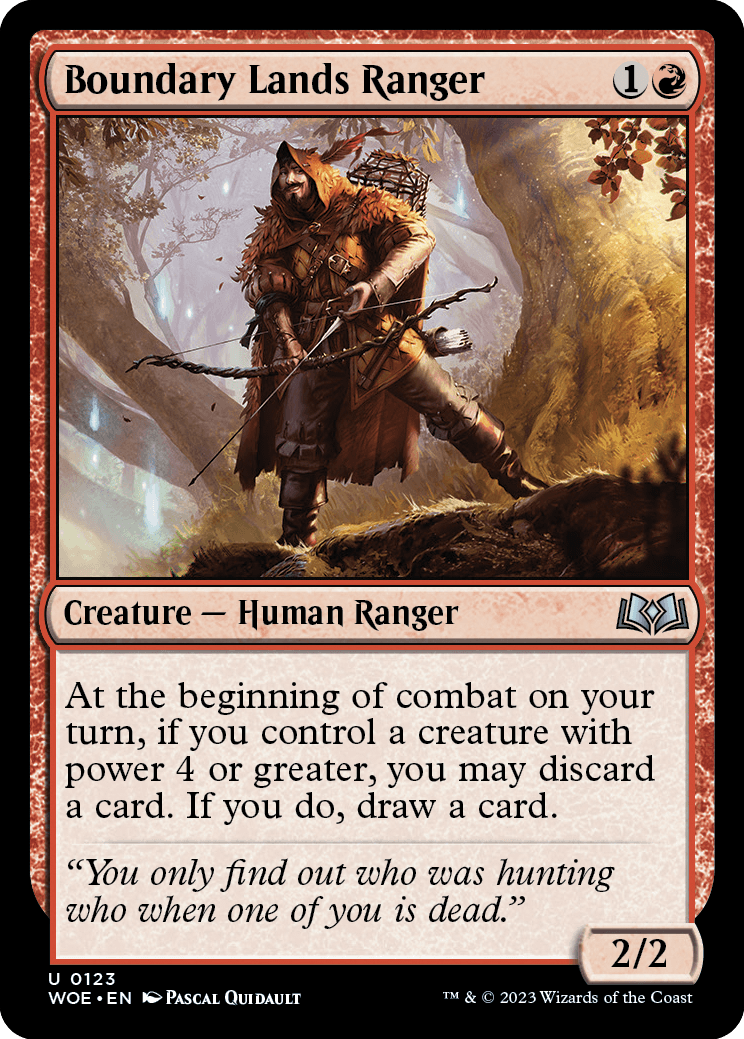
Boundary Lands Ranger
{1}{R}
Creature — Human Ranger
2/2
At the beginning of combat on your turn, if you control a creature with power 4 or greater, you may discard a card. If you do, draw a card.
- At the beginning of combat on your turn, Boundary Lands Ranger's ability will check to see if you control a creature with power 4 or greater. If you don't, the ability won't trigger at all. If the ability does trigger, it will check again as it tries to resolve. If you no longer control a creature with power 4 or greater (usually because your applicable creature is no longer on the battlefield), the ability won't do anything.
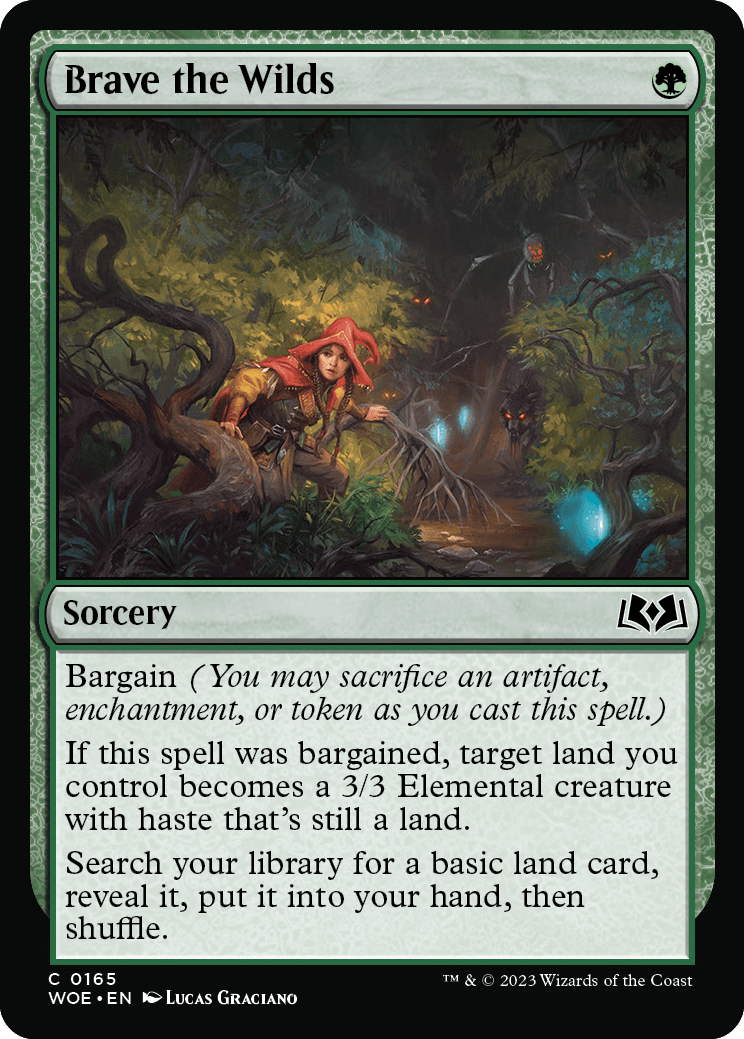
Brave the Wilds
{G}
Sorcery
Bargain (You may sacrifice an artifact, enchantment, or token as you cast this spell.)
If this spell was bargained, target land you control becomes a 3/3 Elemental creature with haste that's still a land.
Search your library for a basic land card, reveal it, put it into your hand, then shuffle.
- If you bargained Brave the Wilds and the target land is an illegal target by the time it tries to resolve, the spell won't resolve. You won't search for a basic land card, and you won't shuffle.
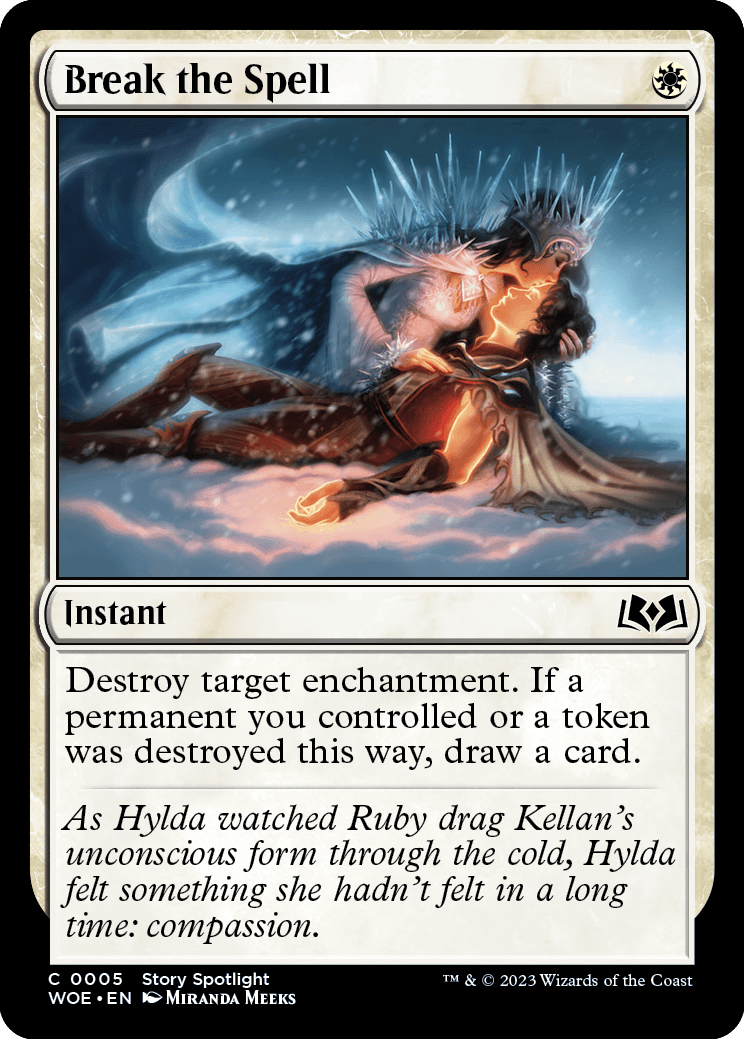
Break the Spell
{W}
Instant
Destroy target enchantment. If a permanent you controlled or a token was destroyed this way, draw a card.
- If the enchantment has indestructible, it won't be destroyed. You won't draw a card.
- If a permanent you controlled or a token is destroyed with Break the Spell but is put into a zone other than a graveyard as a result, you will draw a card.
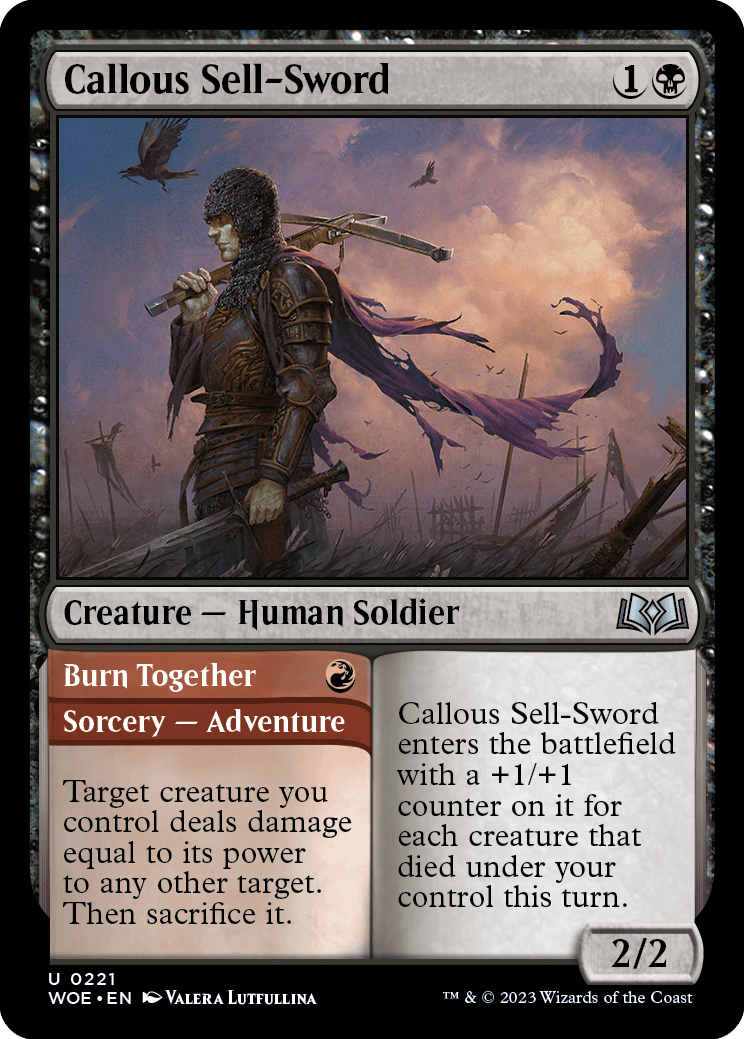
Callous Sell-Sword
{1}{B}
Creature — Human Soldier
2/2
Callous Sell-Sword enters the battlefield with a +1/+1 counter on it for each creature that died under your control this turn.
//
Burn Together
{R}
Sorcery — Adventure
Target creature you control deals damage equal to its power to any other target. Then sacrifice it.
- If the first target of Burn Together is an illegal target as the spell resolves but the last target is still legal, Burn Together will resolve, but no damage will be dealt and nothing will be sacrificed.
- If the last target of Burn Together is an illegal target as the spell resolves but the first target is still legal, Burn Together will still resolve and you'll still sacrifice the first target.
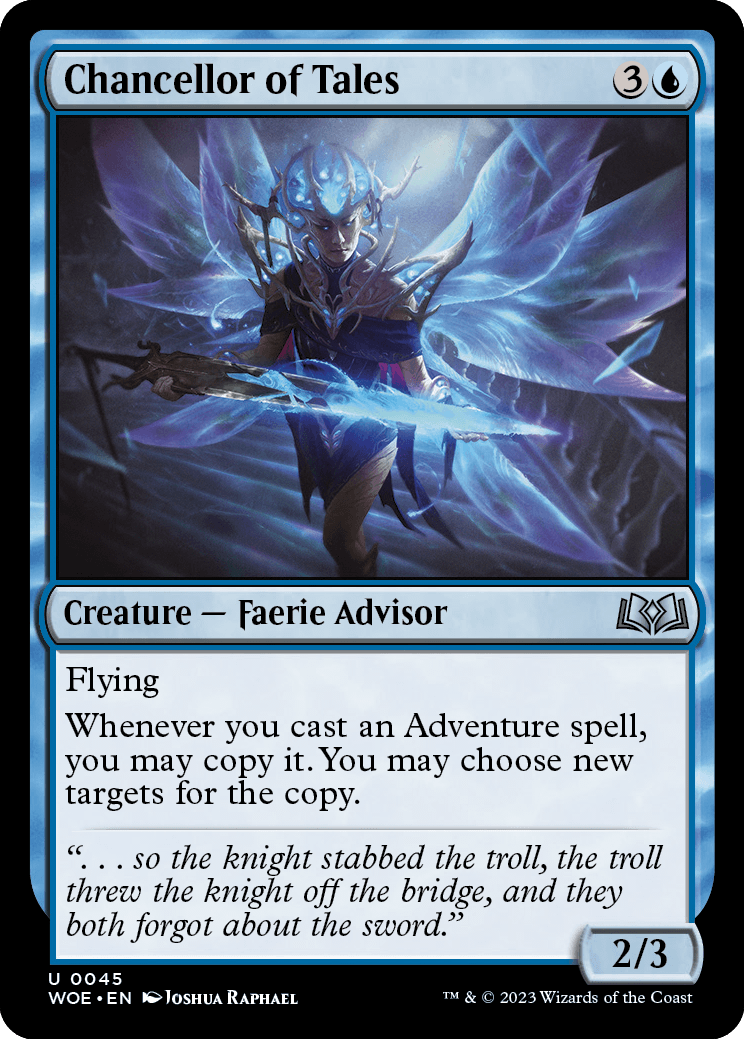
Chancellor of Tales
{3}{U}
Creature — Faerie Advisor
2/3
Flying
Whenever you cast an Adventure spell, you may copy it. You may choose new targets for the copy.
- An Adventure spell means an instant or sorcery spell with the Adventure spell type. Permanent spells that you cast which have an Adventure won't cause this ability to trigger.
- If an effect copies an Adventure spell, that copy is exiled as it resolves. It ceases to exist as a state-based action; it's not possible to cast the copy as a permanent.
- Chancellor of Tales can copy any Adventure spell, not just one with targets.
- The copy is created on the stack, so it's not "cast." Abilities that trigger when a player casts a spell won't trigger.
- The copy will have the same targets as the spell it's copying unless you choose new ones. You may change any number of the targets, including all of them or none of them. If, for one of the targets, you can't choose a new legal target, then it remains unchanged (even if the current target is illegal).
- Chancellor of Tales's ability and the copy it creates both resolve before the Adventure spell. They resolve even if the Adventure spell is countered before the copy is created.
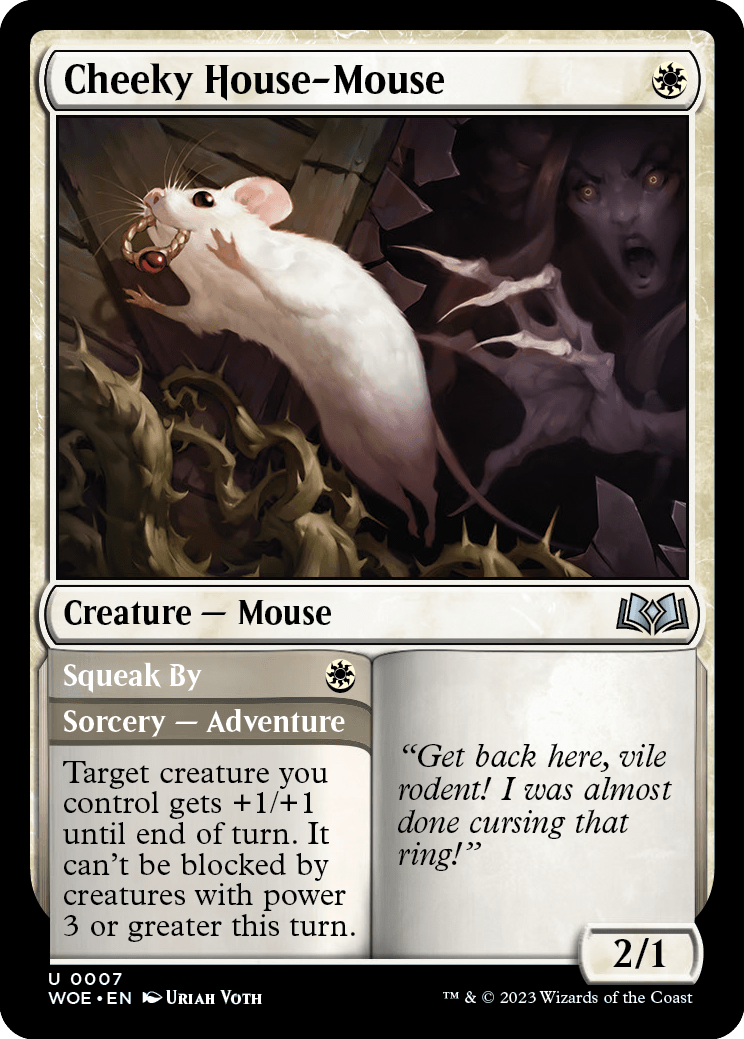
Cheeky House-Mouse
{W}
Creature — Mouse
2/1
//
Squeak By
{W}
Sorcery — Adventure
Target creature you control gets +1/+1 until end of turn. It can't be blocked by creatures with power 3 or greater this turn.
- Increasing a creature's power after it has blocked a creature affected by Squeak By will not remove that blocking creature from combat or make the affected creature unblocked.
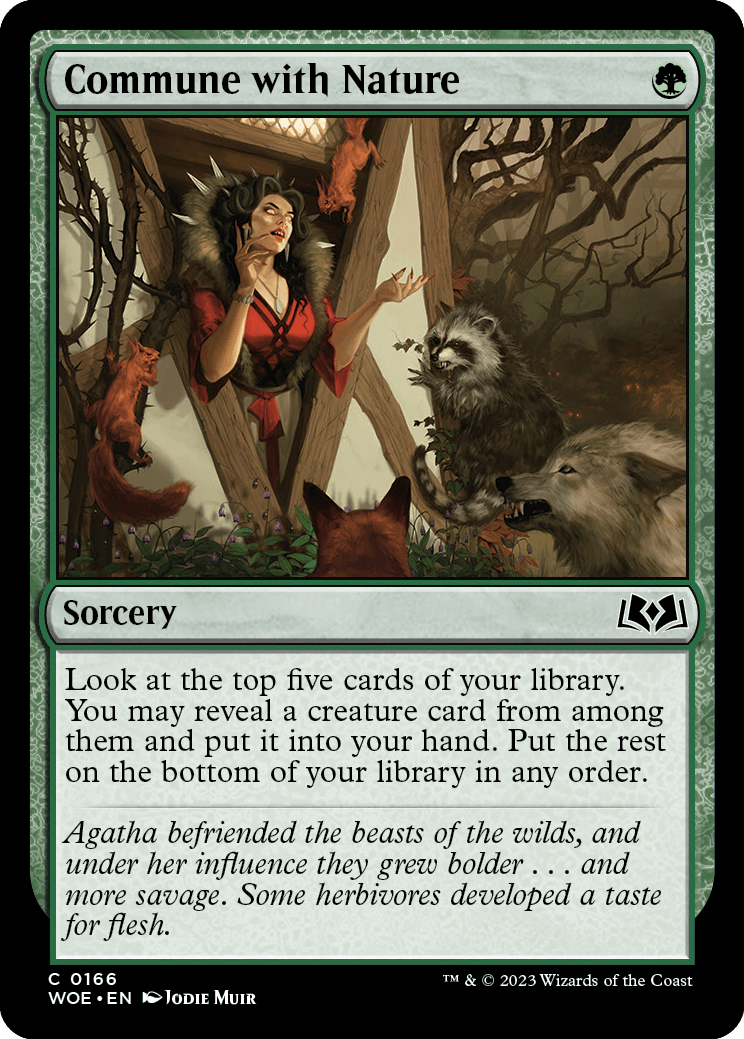
Commune with Nature
{G}
Sorcery
Look at the top five cards of your library. You may reveal a creature card from among them and put it into your hand. Put the rest on the bottom of your library in any order.
- If you don't reveal a creature card, put all the cards on the bottom of your library in any order.
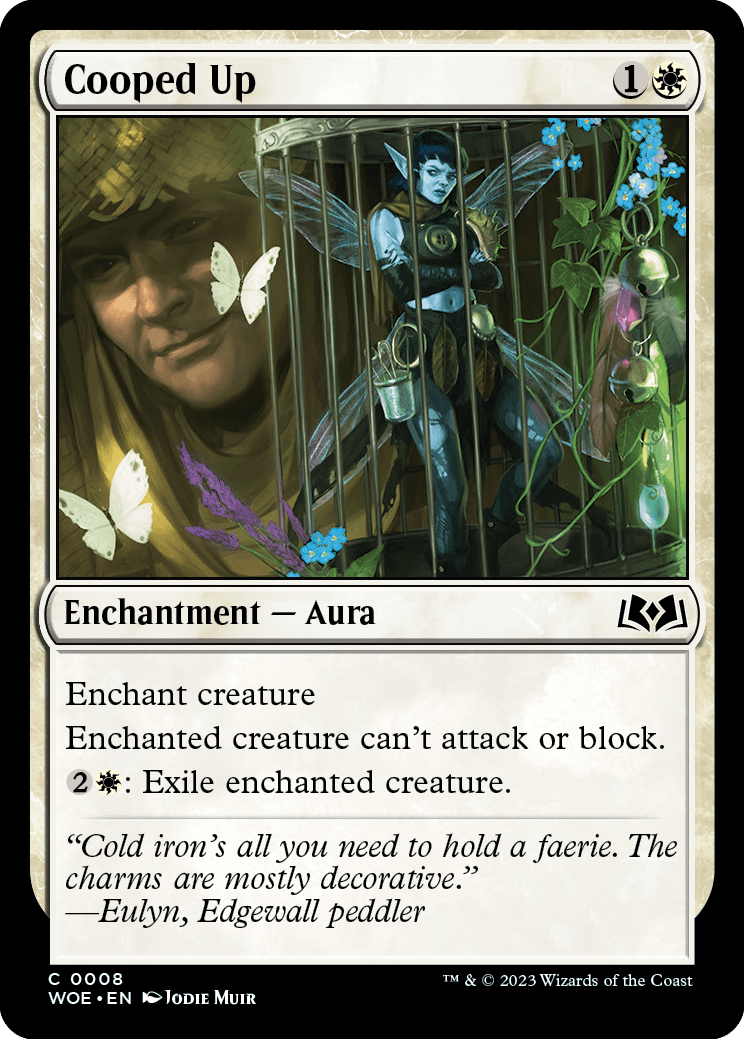
Cooped Up
{1}{W}
Enchantment — Aura
Enchant creature
Enchanted creature can't attack or block.
{2}{W}: Exile enchanted creature.
- Only the controller of Cooped Up may activate its ability.
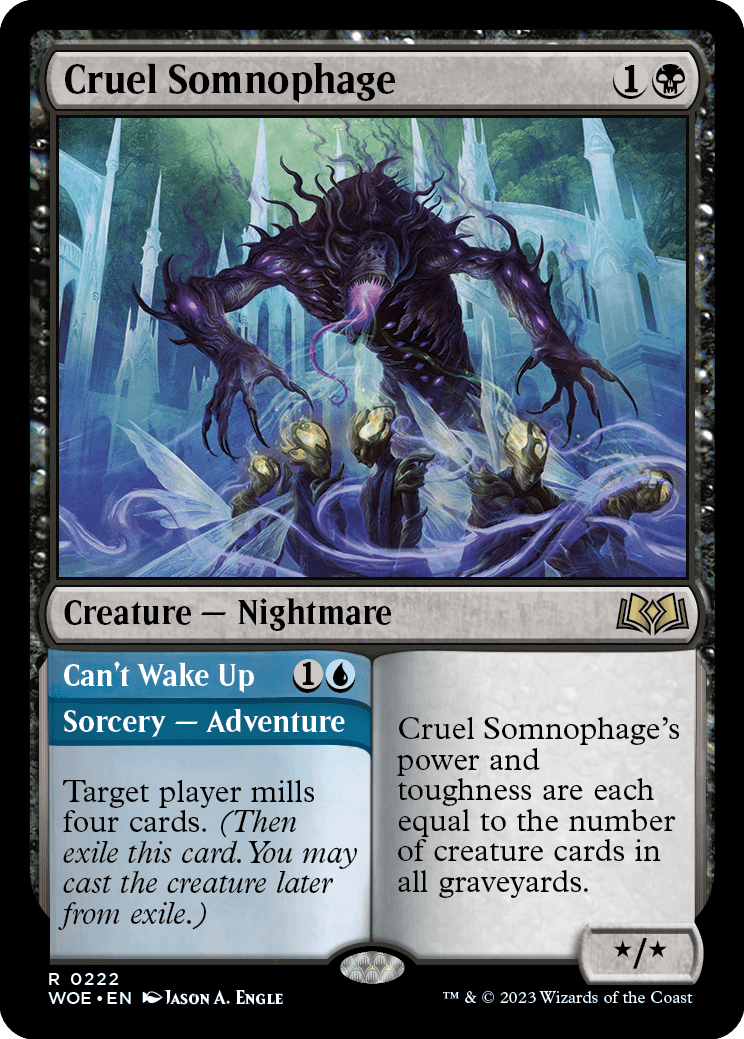
Cruel Somnophage
{1}{B}
Creature — Nightmare
*/*
Cruel Somnophage's power and toughness are each equal to the number of creature cards in all graveyards.
//
Can't Wake Up
{1}{U}
Sorcery — Adventure
Target player mills four cards. (Then exile this card. You may cast the creature later from exile.)
- The ability that defines Cruel Somnophage's power and toughness functions in all zones, not just the battlefield.
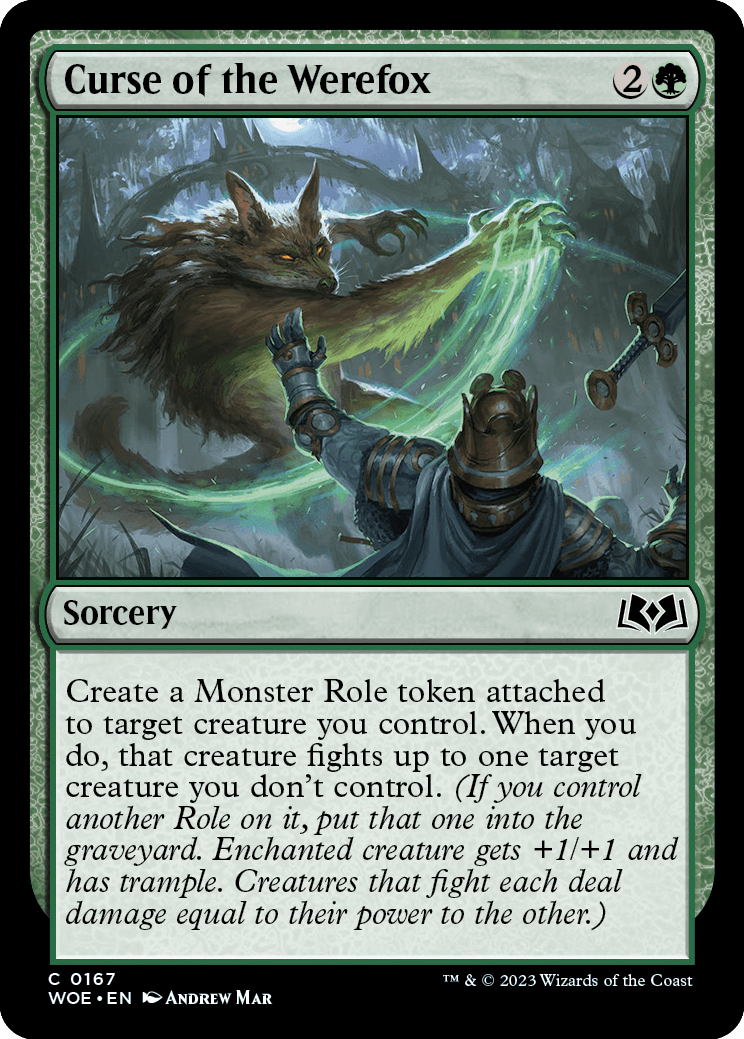
Curse of the Werefox
{2}{G}
Sorcery
Create a Monster Role token attached to target creature you control. When you do, that creature fights up to one target creature you don't control. (If you control another Role on it, put that one into the graveyard. Enchanted creature gets +1/+1 and has trample. Creatures that fight each deal damage equal to their power to the other.)
- You don't choose a target for the creature to fight at the time you cast this spell. Rather, a second "reflexive" ability triggers when you create a Monster Role token attached to the creature that was targeted by the spell. You choose a target for that ability as it goes on the stack. Each player may respond to this triggered ability as normal.
- If you can't attach a Monster Role token to the target creature you control when Curse of the Werefox resolves, the reflexive trigger that causes the fight won't happen.
- If the creature you control already has a Role that you control attached to it, that Role will be put into its owner's graveyard as a state-based action after the Monster Role is attached to it but before the reflexive triggered ability resolves.
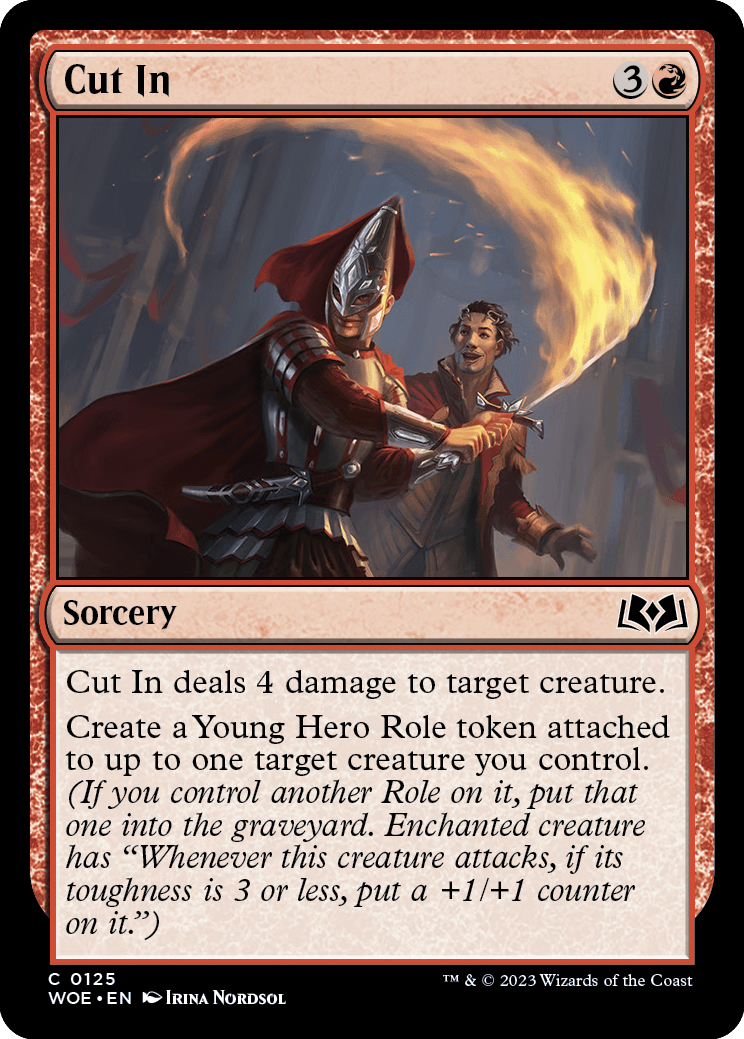
Cut In
{3}{R}
Sorcery
Cut In deals 4 damage to target creature.
Create a Young Hero Role token attached to up to one target creature you control. (If you control another Role on it, put that one into the graveyard. Enchanted creature has "Whenever this creature attacks, if its toughness is 3 or less, put a +1/+1 counter on it.")
- If you don't choose a second target for Cut In, the Young Hero Role token won't be created.
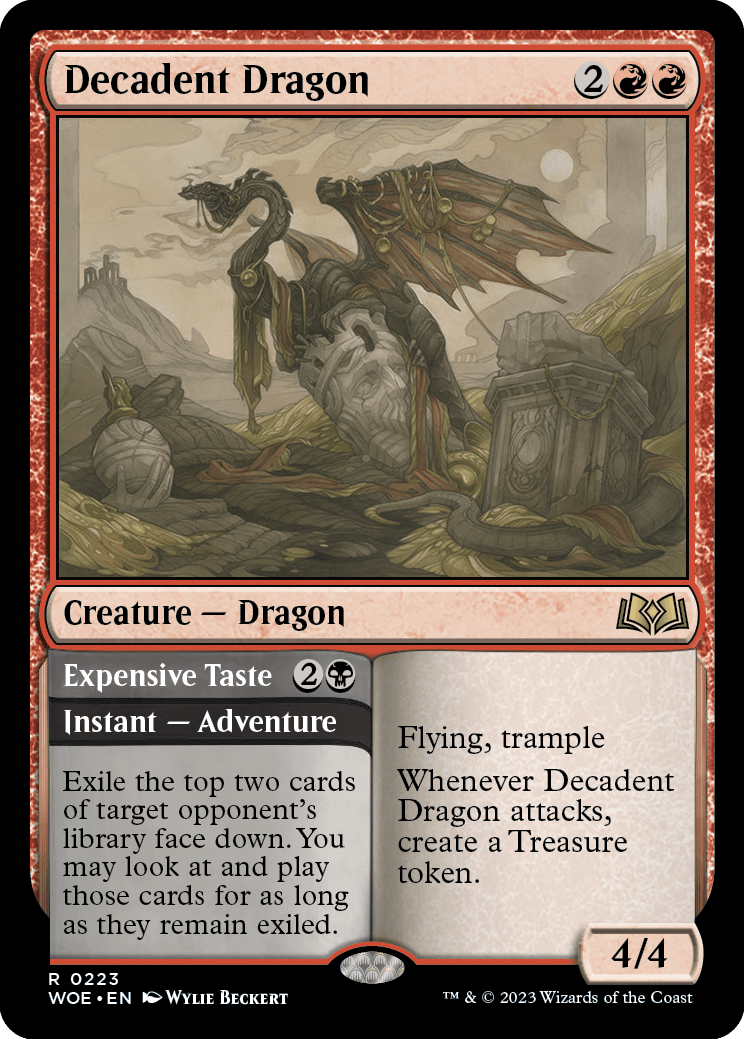
Decadent Dragon
{2}{R}{R}
Creature — Dragon
4/4
Flying, trample
Whenever Decadent Dragon attacks, create a Treasure token.
//
Expensive Taste
{2}{B}
Instant — Adventure
Exile the top two cards of target opponent's library face down. You may look at and play those cards for as long as they remain exiled.
- Only you get to look at the cards exiled with Expensive Taste. Their owner doesn't get to know what they are while they're in exile until you play them.
- You may play the cards exiled with Expensive Taste even if they are land cards.
- You must still follow all normal timing rules to play cards exiled with Expensive Taste.
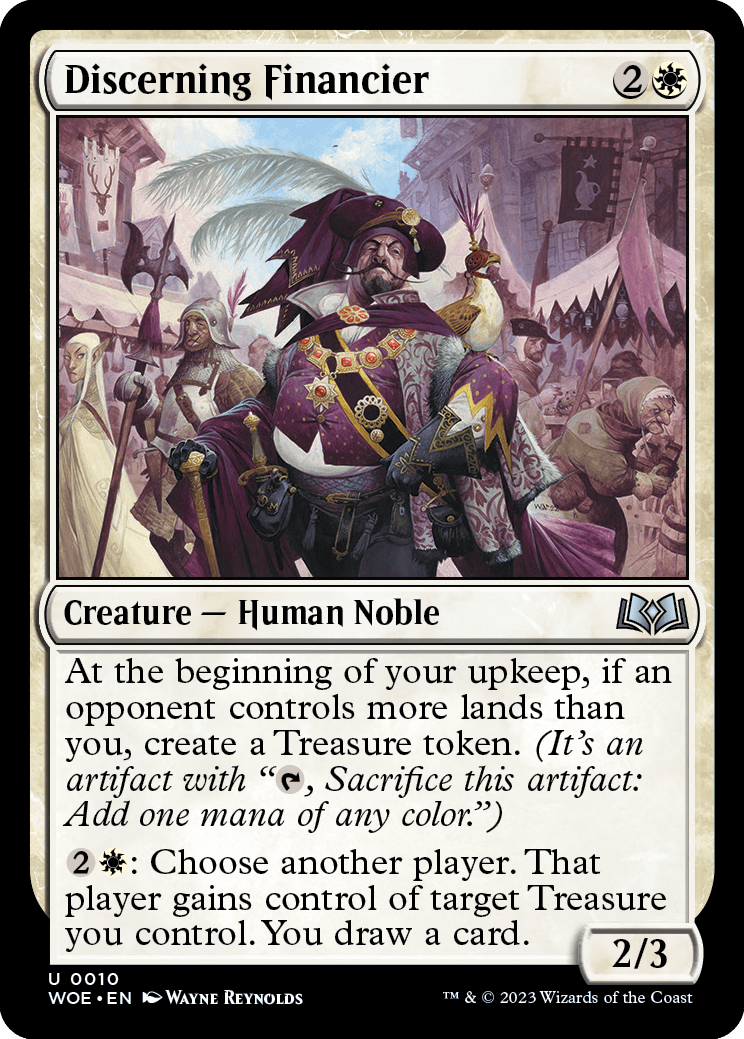
Discerning Financier
{2}{W}
Creature — Human Noble
2/3
At the beginning of your upkeep, if an opponent controls more lands than you, create a Treasure token. (It's an artifact with "{T}, Sacrifice this artifact: Add one mana of any color.")
{2}{W}: Choose another player. That player gains control of target Treasure you control. You draw a card.
- If the target Treasure is an illegal target as Discerning Financier's last ability tries to resolve, it won't resolve. You won't draw a card.
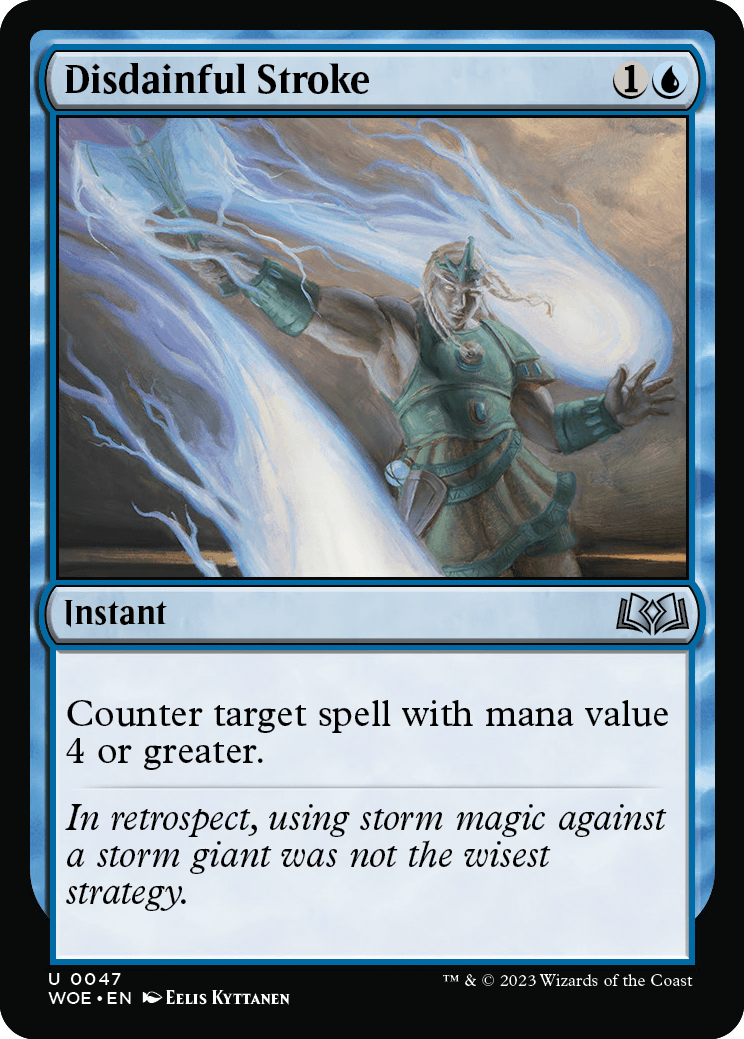
Disdainful Stroke
{1}{U}
Instant
Counter target spell with mana value 4 or greater.
- If a spell has {X} in its mana cost, use the value chosen for X to determine the mana value of that spell.
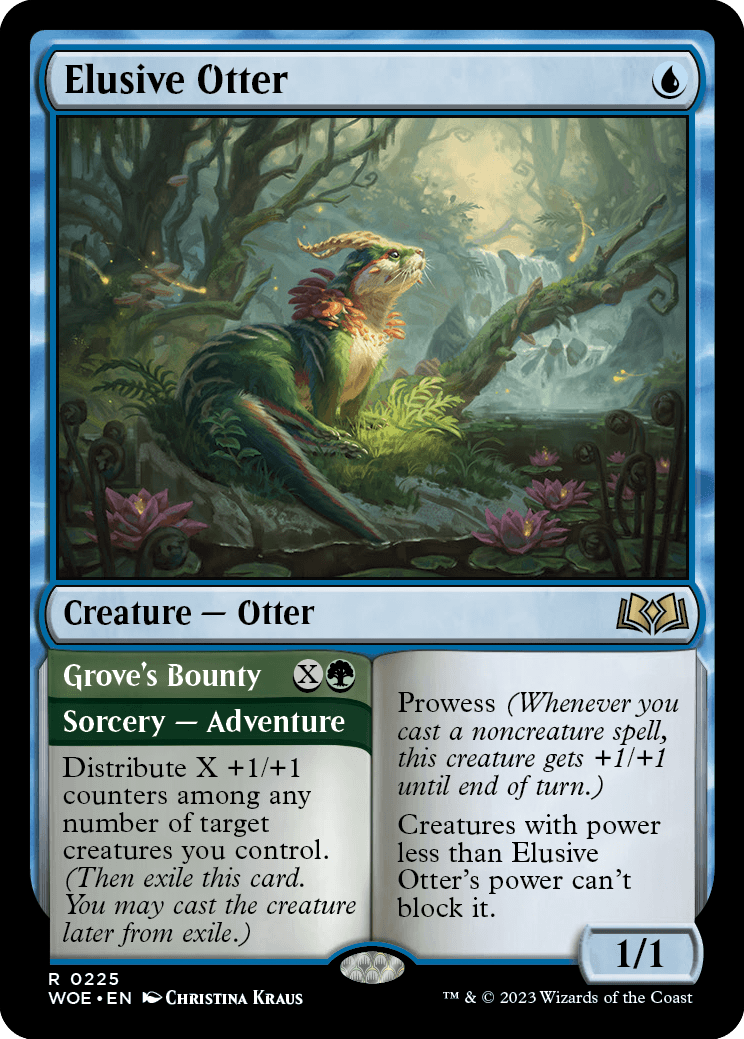
Elusive Otter
{U}
Creature — Otter
1/1
Prowess (Whenever you cast a noncreature spell, this creature gets +1/+1 until end of turn.)
Creatures with power less than Elusive Otter's power can't block it.
//
Grove's Bounty
{X}{G}
Sorcery — Adventure
Distribute X +1/+1 counters among any number of target creatures you control. (Then exile this card. You may cast the creature later from exile.)
- You compare Elusive Otter's power to the power of any creature trying to block it only as blockers are assigned. Once Elusive Otter has been legally blocked by a creature, changing the power of either creature won't change or undo the block.
- You choose how the counters will be distributed as you cast Grove's Bounty. Each target must receive at least one +1/+1 counter.
- If some of the creatures are illegal targets as Grove's Bounty tries to resolve, the original distribution of counters still applies and the counters that would have been put on illegal targets are lost.
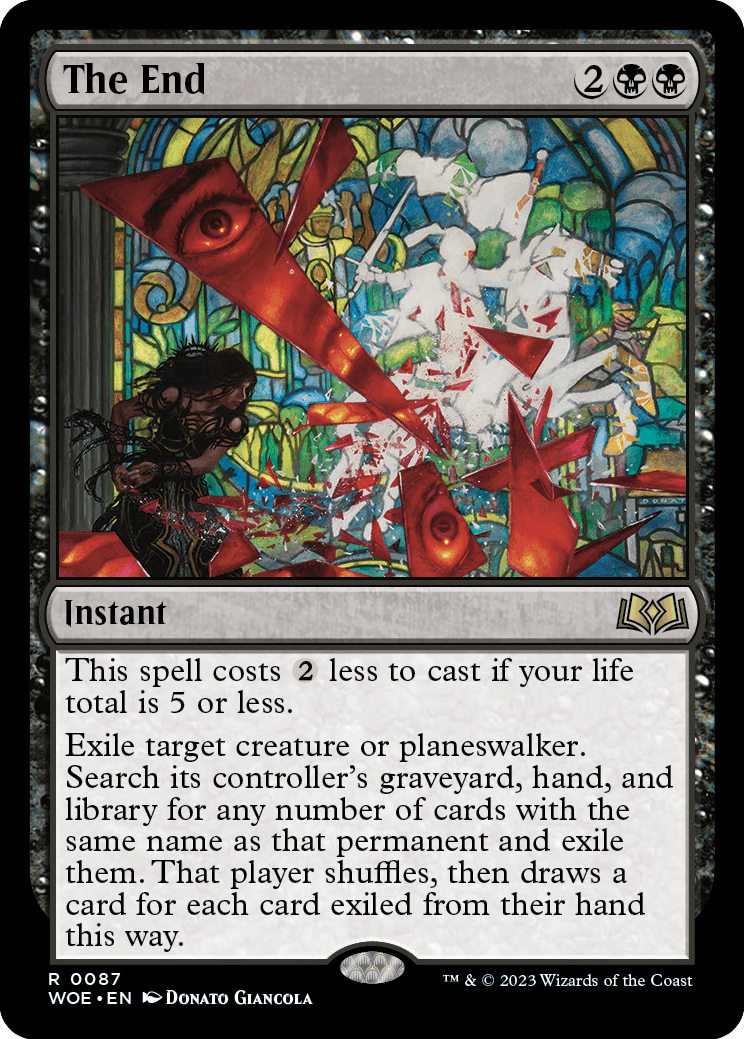
The End
{2}{B}{B}
Instant
This spell costs {2} less to cast if your life total is 5 or less.
Exile target creature or planeswalker. Search its controller's graveyard, hand, and library for any number of cards with the same name as that permanent and exile them. That player shuffles, then draws a card for each card exiled from their hand this way.
- The cost-reduction ability of The End doesn't change its mana cost or mana value, only the total cost you pay. Specifically, the mana value of The End is always 4.
- If the permanent that's exiled was the back face of a double-faced card, you will not be able to exile any additional cards, because those cards have only their front-face characteristics (including name) in the graveyard, hand, and library.
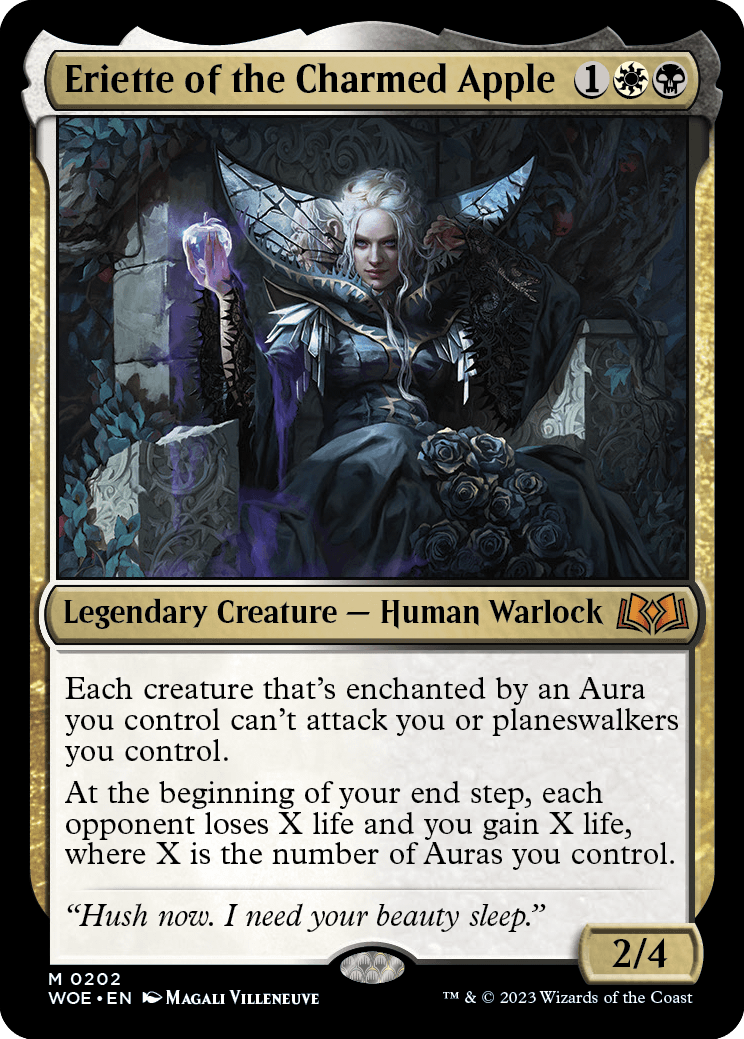
Eriette of the Charmed Apple
{1}{W}{B}
Legendary Creature — Human Warlock
2/4
Each creature that's enchanted by an Aura you control can't attack you or planeswalkers you control.
At the beginning of your end step, each opponent loses X life and you gain X life, where X is the number of Auras you control.
- By default, the controller of a Role token is the player who created it, even if that Role token is attached to a creature they don't control.
- Count the number of Auras you control as the ability resolves to determine the value of X.
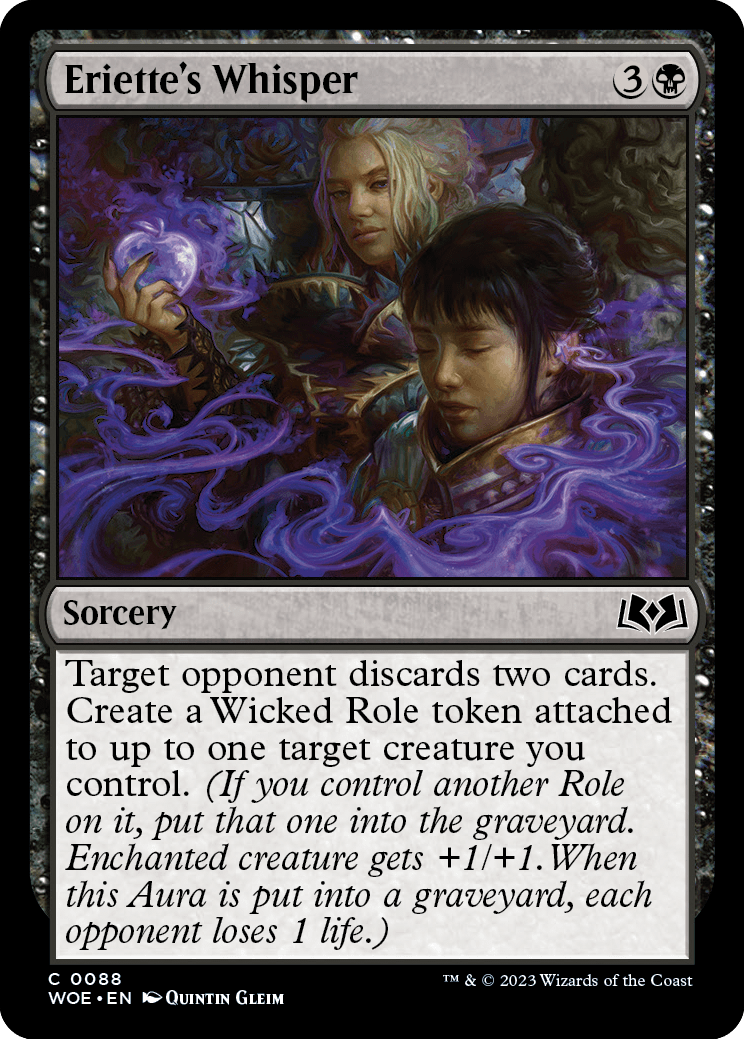
Eriette's Whisper
{3}{B}
Sorcery
Target opponent discards two cards. Create a Wicked Role token attached to up to one target creature you control. (If you control another Role on it, put that one into the graveyard. Enchanted creature gets +1/+1. When this Aura is put into a graveyard, each opponent loses 1 life.)
- If you don't choose a target creature, the Wicked Role token won't be created.
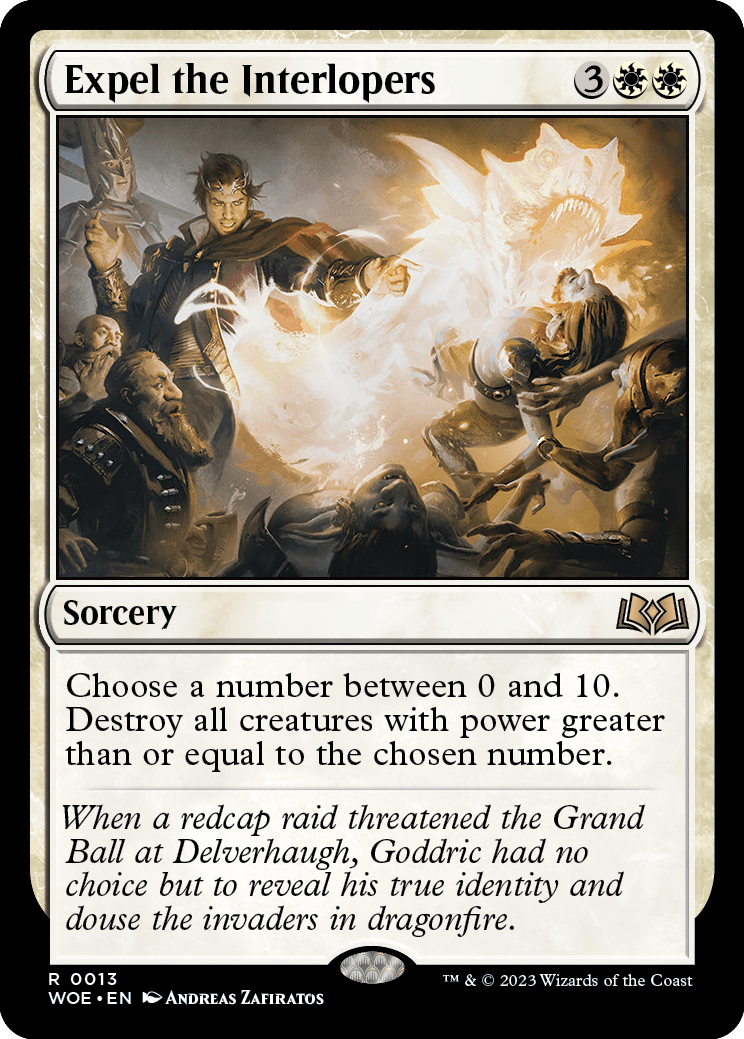
Expel the Interlopers
{3}{W}{W}
Sorcery
Choose a number between 0 and 10. Destroy all creatures with power greater than or equal to the chosen number.
- The numbers you may choose include 0 and 10.
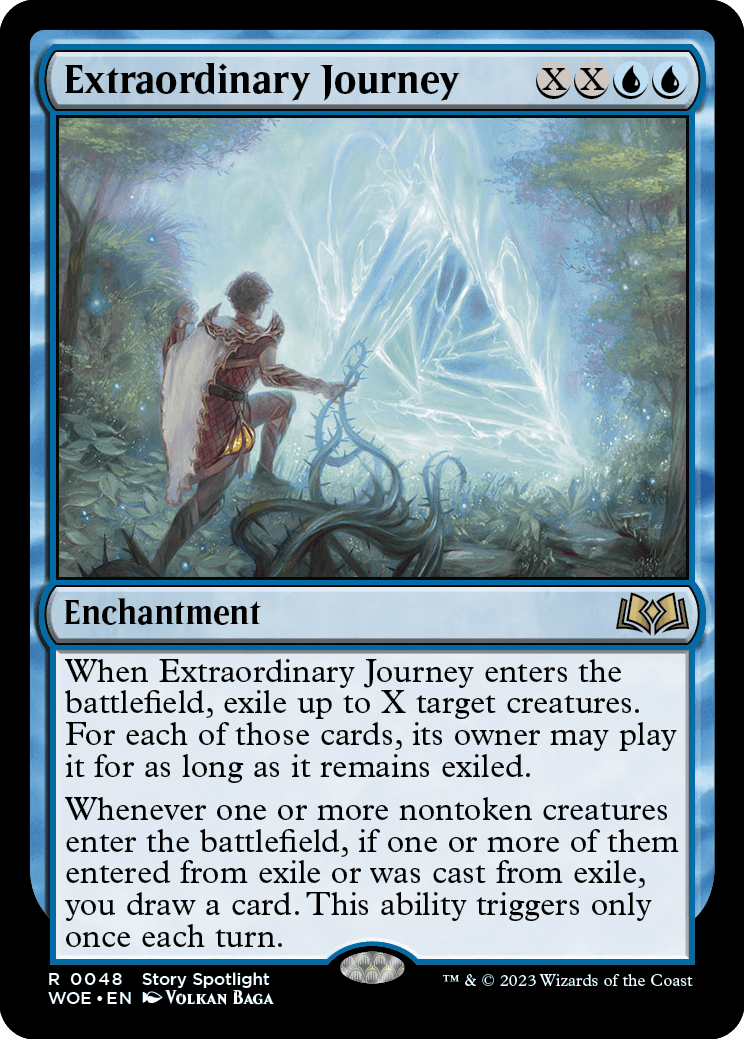
Extraordinary Journey
{X}{X}{U}{U}
Enchantment
When Extraordinary Journey enters the battlefield, exile up to X target creatures. For each of those cards, its owner may play it for as long as it remains exiled.
Whenever one or more nontoken creatures enter the battlefield, if one or more of them entered from exile or was cast from exile, you draw a card. This ability triggers only once each turn.
- Players must pay all costs and follow all normal timing rules for spells cast with Extraordinary Journey's first ability.
- Extraordinary Journey's second ability applies to all creatures that enter the battlefield from exile or were cast from exile, not just creatures cast with Extraordinary Journey's first ability.
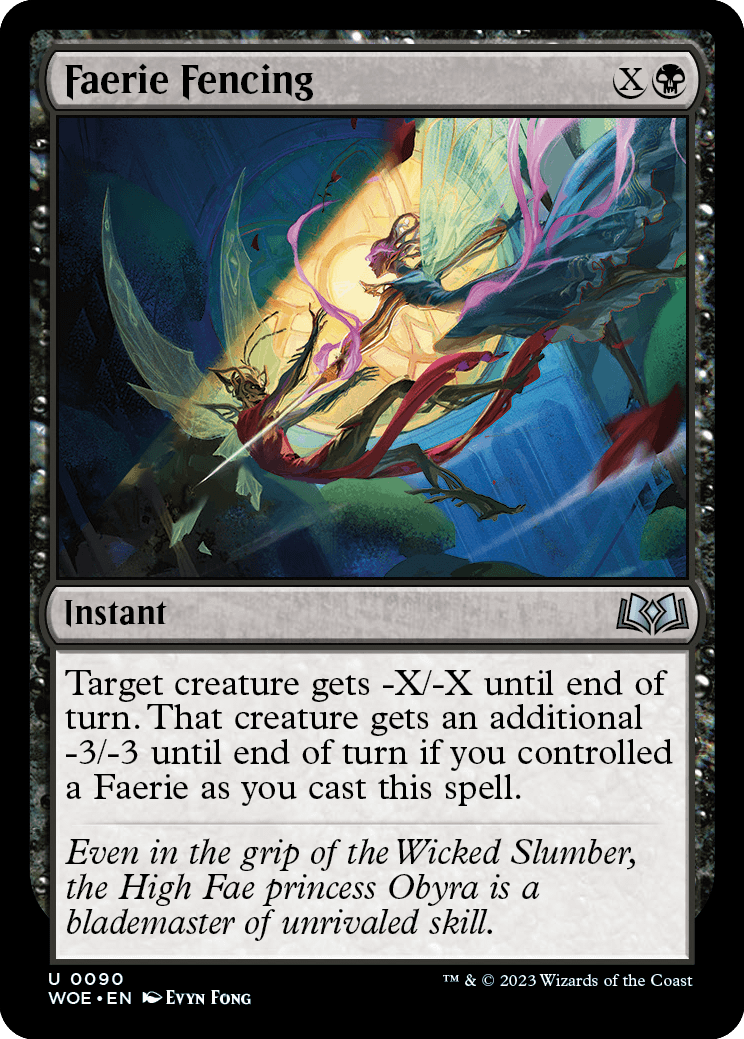
Faerie Fencing
{X}{B}
Instant
Target creature gets -X/-X until end of turn. That creature gets an additional -3/-3 until end of turn if you controlled a Faerie as you cast this spell.
- If you controlled a Faerie as you finished casting Faerie Fencing, it doesn't matter whether you still control one as the spell resolves. The target creature will still get an additional -3/-3.
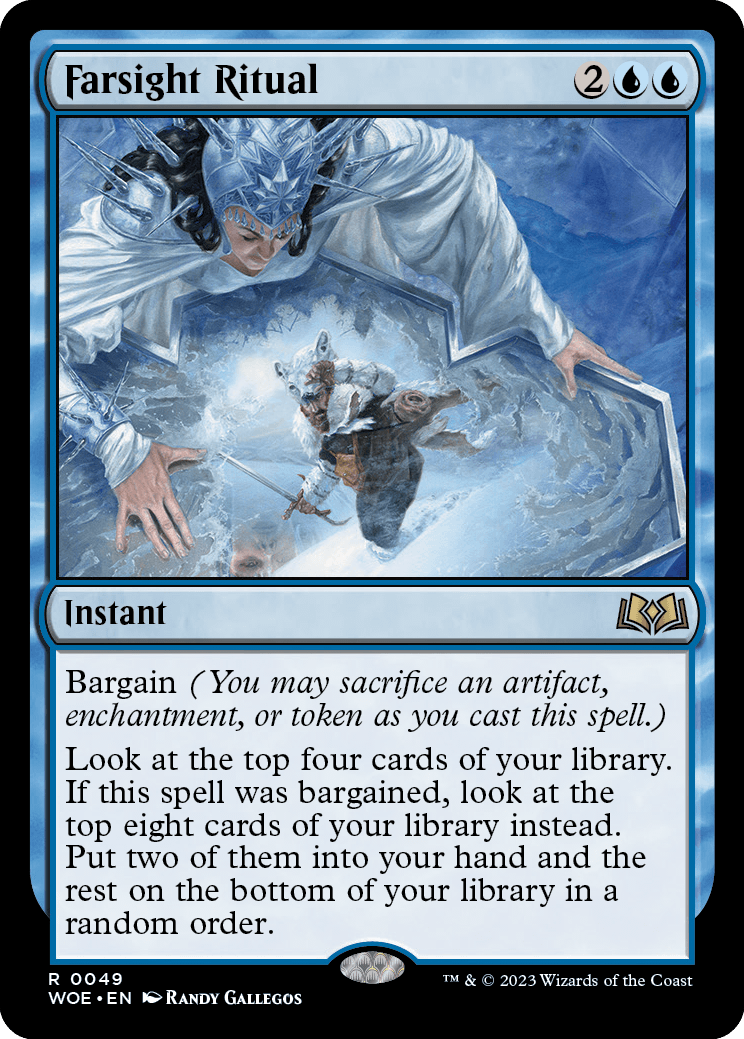
Farsight Ritual
{2}{U}{U}
Instant
Bargain (You may sacrifice an artifact, enchantment, or token as you cast this spell.)
Look at the top four cards of your library. If this spell was bargained, look at the top eight cards of your library instead. Put two of them into your hand and the rest on the bottom of your library in a random order.
- You still put only two of the cards into your hand if you bargain this spell.
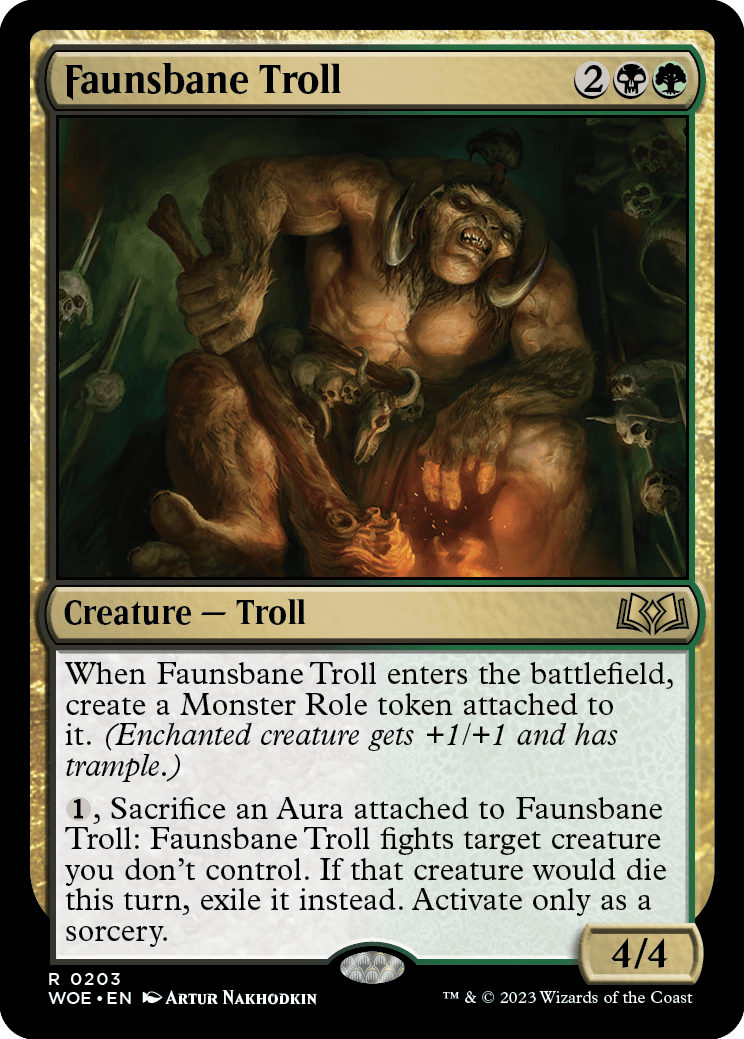
Faunsbane Troll
{2}{B}{G}
Creature — Troll
4/4
When Faunsbane Troll enters the battlefield, create a Monster Role token attached to it. (Enchanted creature gets +1/+1 and has trample.)
{1}, Sacrifice an Aura attached to Faunsbane Troll: Faunsbane Troll fights target creature you don't control. If that creature would die this turn, exile it instead. Activate only as a sorcery.
- If Faunsbane Troll's activated ability resolves, its effect causes the creature to be exiled any time it would die that turn, not just if it would die as a result of damage dealt by Faunsbane Troll.
- If Faunsbane Troll is no longer on the battlefield or no longer a creature when its activated ability resolves, it doesn't fight the target creature, but the effect that causes the target creature to be exiled any time it would die that turn still applies.
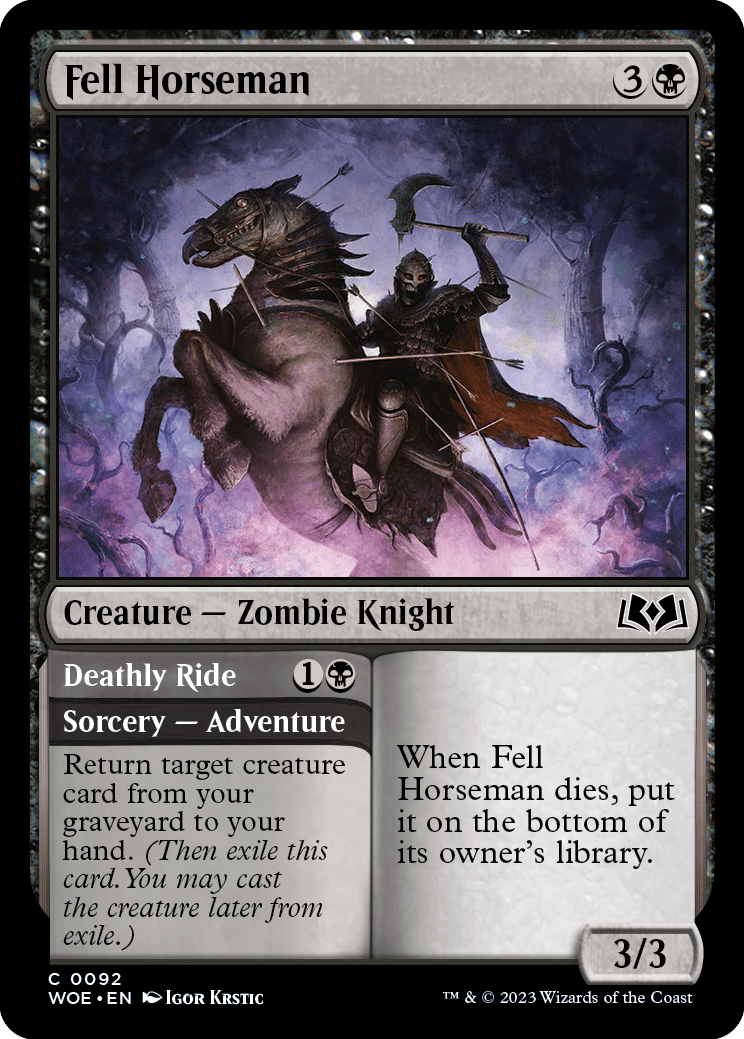
Fell Horseman
{3}{B}
Creature — Zombie Knight
3/3
When Fell Horseman dies, put it on the bottom of its owner's library.
//
Deathly Ride
{1}{B}
Sorcery — Adventure
Return target creature card from your graveyard to your hand. (Then exile this card. You may cast the creature later from exile.)
- Fell Horseman will be put on the bottom of its owner's library only if it's still in the graveyard when its ability resolves. If it leaves the graveyard before that point, it will stay in whatever zone it's in, even if it's returned to the graveyard before the ability resolves.
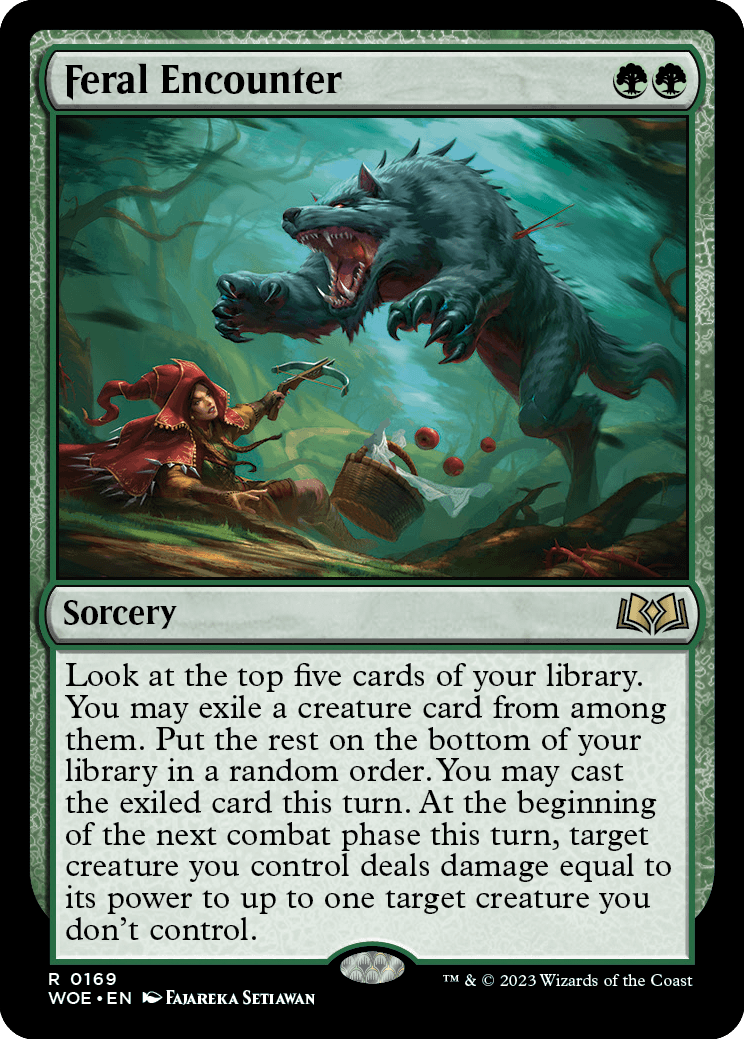
Feral Encounter
{G}{G}
Sorcery
Look at the top five cards of your library. You may exile a creature card from among them. Put the rest on the bottom of your library in a random order. You may cast the exiled card this turn. At the beginning of the next combat phase this turn, target creature you control deals damage equal to its power to up to one target creature you don't control.
- Casting Feral Encounter doesn't require any targets. As you put the delayed triggered ability on the stack at the beginning of the next combat phase this turn, you choose the target creature you control and up to one target creature you don't control.
- If you cast Feral Encounter and no combat phases occur later in that turn, the delayed triggered ability won't trigger.
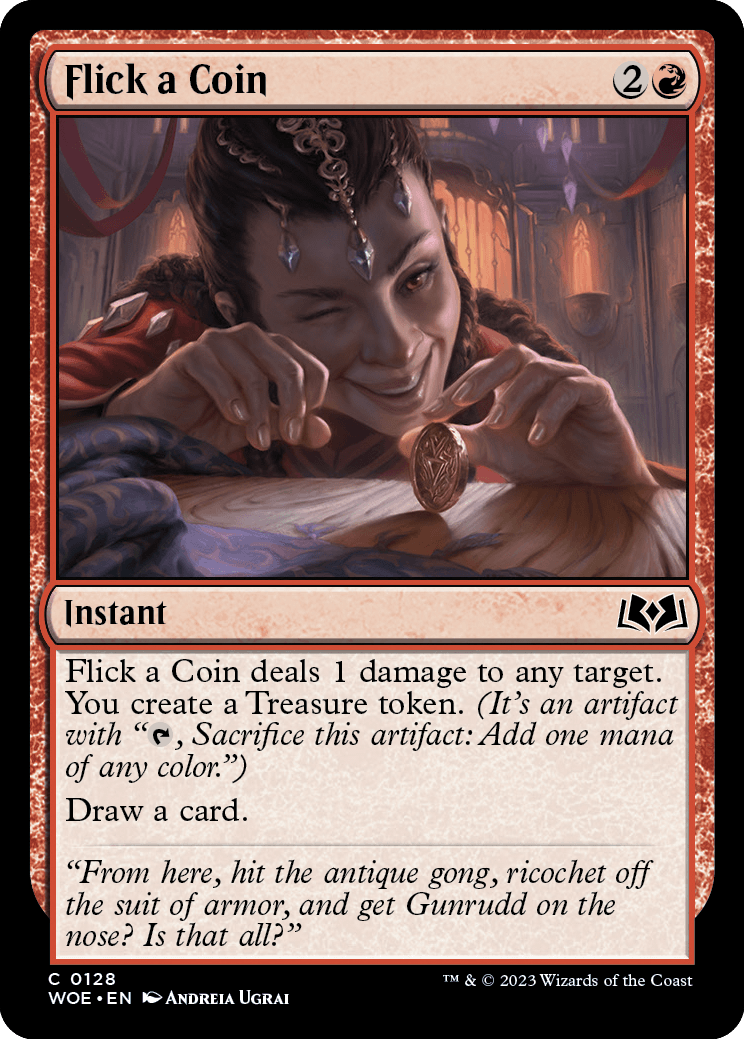
Flick a Coin
{2}{R}
Instant
Flick a Coin deals 1 damage to any target. You create a Treasure token. (It's an artifact with "{T}, Sacrifice this artifact: Add one mana of any color.")
Draw a card.
- If the target is not legal as Flick a Coin tries to resolve, Flick a Coin is removed from the stack. You won't create a Treasure token, and you won't draw a card.
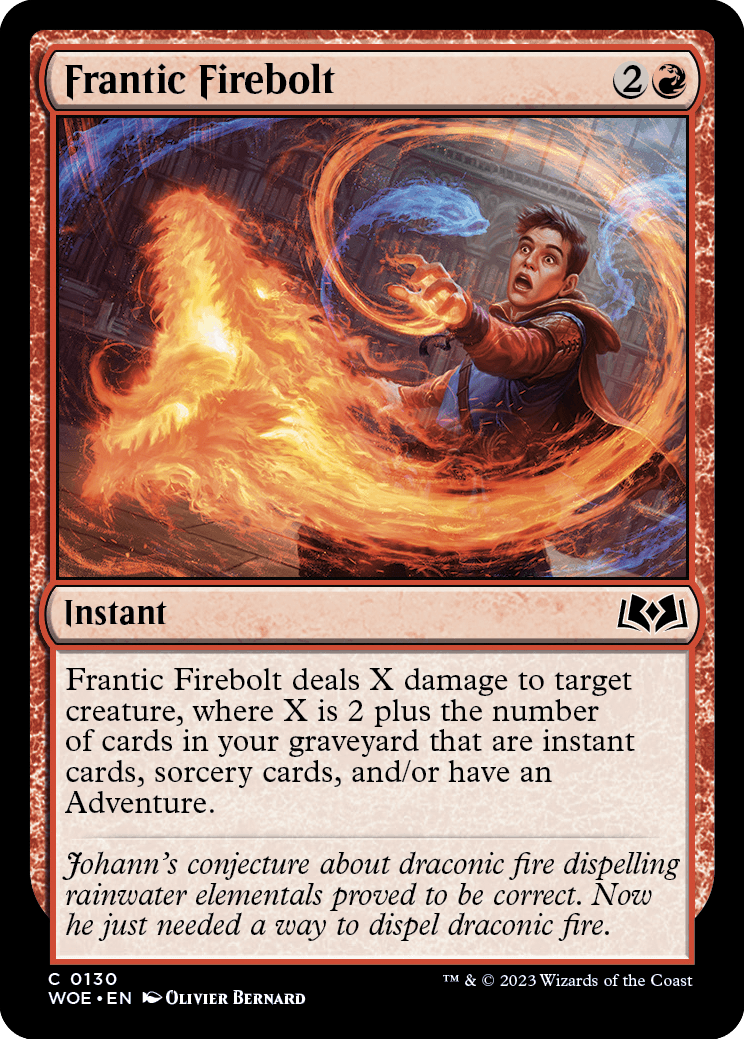
Frantic Firebolt
{2}{R}
Instant
Frantic Firebolt deals X damage to target creature, where X is 2 plus the number of cards in your graveyard that are instant cards, sorcery cards, and/or have an Adventure.
- Frantic Firebolt isn't put into your graveyard until after it finishes resolving, so it doesn't count itself for its own effect.
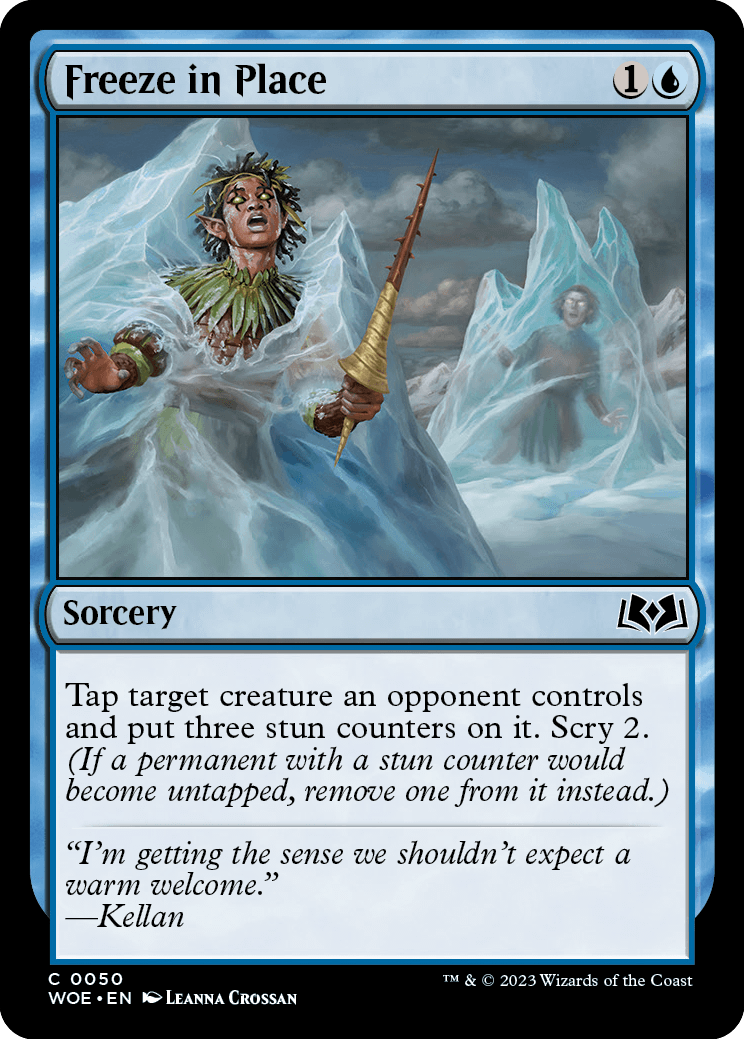
Freeze in Place
{1}{U}
Sorcery
Tap target creature an opponent controls and put three stun counters on it. Scry 2. (If a permanent with a stun counter would become untapped, remove one from it instead.)
- You may target a creature that is already tapped with Freeze in Place. If the target creature is already tapped as Freeze in Place resolves, you will still put three stun counters on it.
- If the target is not legal as Freeze in Place tries to resolve, Freeze in Place will be removed from the stack. You won't scry.
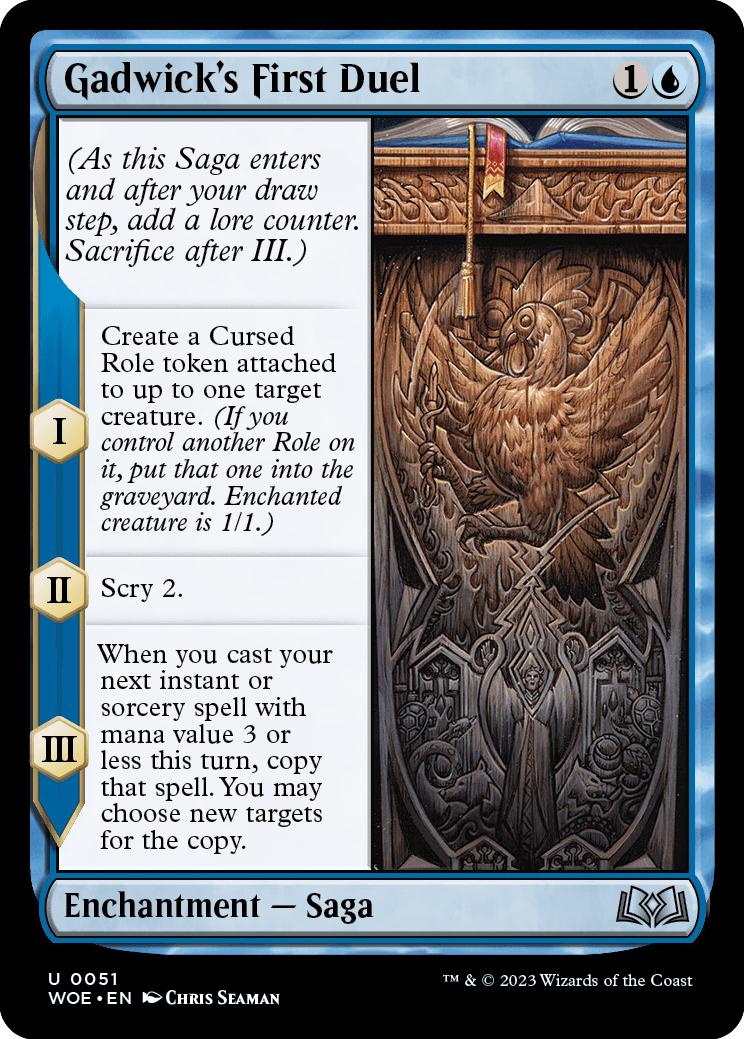
Gadwick's First Duel
{1}{U}
Enchantment — Saga
(As this Saga enters and after your draw step, add a lore counter. Sacrifice after III.)
I — Create a Cursed Role token attached to up to one target creature. (If you control another Role on it, put that one into the graveyard. Enchanted creature is 1/1.)
II — Scry 2.
III — When you cast your next instant or sorcery spell with mana value 3 or less this turn, copy that spell. You may choose new targets for the copy.
- If you don't choose a target for the first chapter ability, the Cursed Role token won't be created.
- The copy created by the third chapter ability will have the same targets as the spell it's copying unless you choose new ones. You may change any number of the targets, including all of them or none of them. The new targets must be legal. If, for any target, you can't choose a new legal target, then it remains unchanged (even if the current target is illegal).
- The copy is created on the stack, so it's not "cast." Creating the copy won't cause abilities that trigger when a player casts a spell to trigger.
- If the spell that's copied has an X whose value was determined as it was cast, the copy has the same value of X.
- You can't choose to pay any additional costs for a copied spell. However, effects based on any additional costs that were paid for the original spell are copied as though the same costs were paid for the copy too.
- If the spell has damage divided as it was put onto the stack, the division can't be changed for the copy, although the targets receiving that damage still can. The same is true of spells that distribute counters.
- Any choices made when the spell resolves won't have been made yet when it's copied. Any such choices will be made separately when the copy resolves.
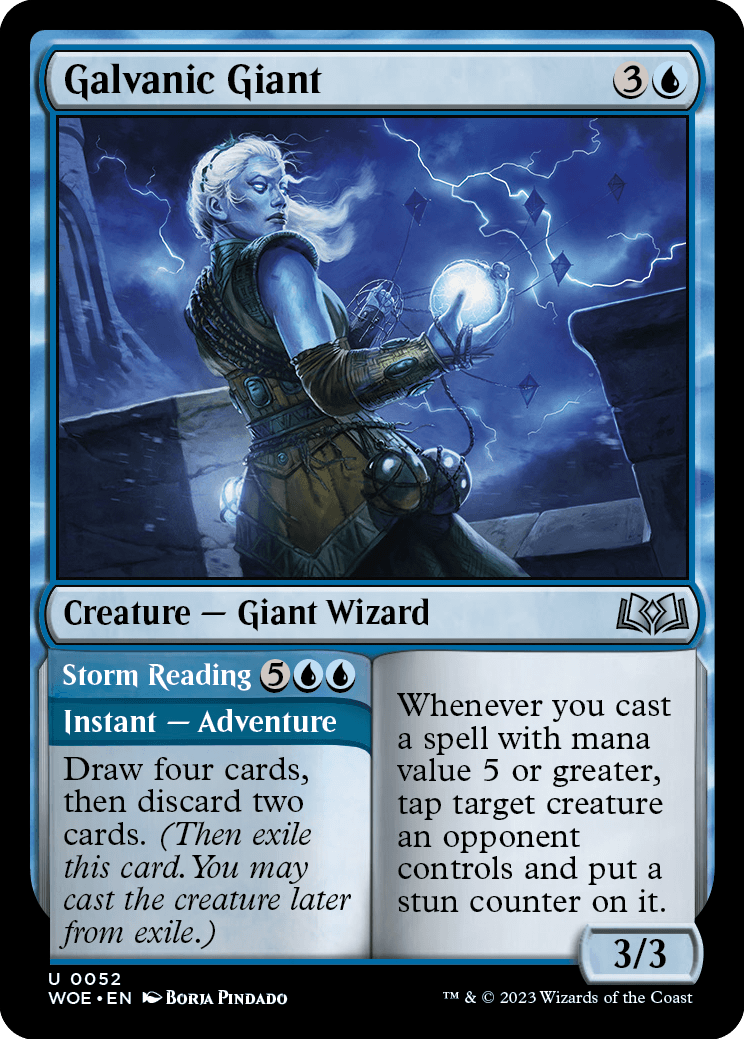
Galvanic Giant
{3}{U}
Creature — Giant Wizard
3/3
Whenever you cast a spell with mana value 5 or greater, tap target creature an opponent controls and put a stun counter on it.
//
Storm Reading
{5}{U}{U}
Instant — Adventure
Draw four cards, then discard two cards. (Then exile this card. You may cast the creature later from exile.)
- You may choose a creature that's already tapped as the target of Galvanic Giant's ability. If the target creature is already tapped as it resolves, you will still put a stun counter on it.
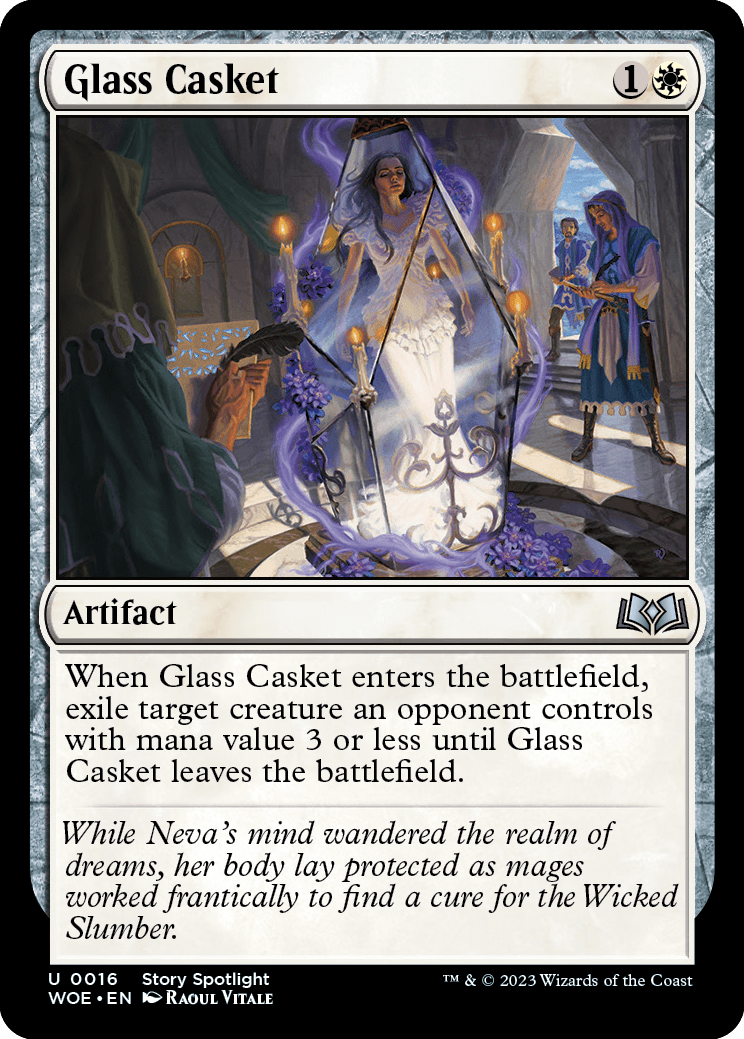
Glass Casket
{1}{W}
Artifact
When Glass Casket enters the battlefield, exile target creature an opponent controls with mana value 3 or less until Glass Casket leaves the battlefield.
- If Glass Casket leaves the battlefield before its triggered ability resolves, the target creature won't be exiled.
- Auras attached to the exiled creature will be put into their owners' graveyards. Any Equipment will become unattached and remain on the battlefield. Any counters on the exiled creature will cease to exist. When the card returns to the battlefield, it will be a new object with no connection to the card that was exiled.
- If a token is exiled this way, it will cease to exist and won't return to the battlefield.
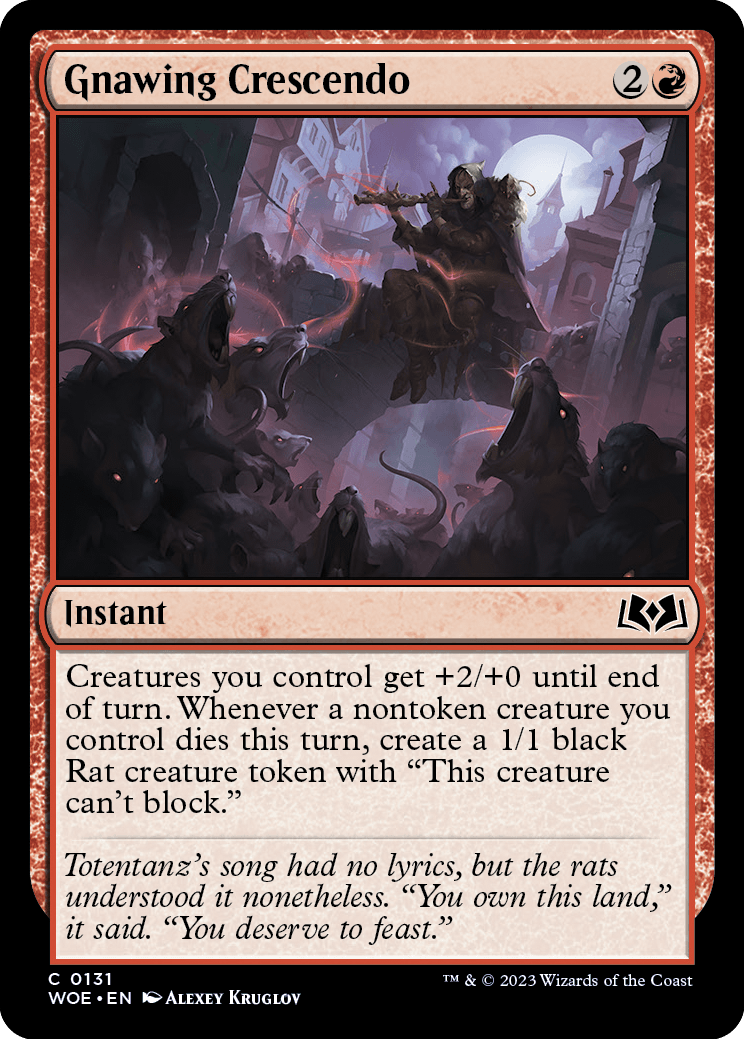
Gnawing Crescendo
{2}{R}
Instant
Creatures you control get +2/+0 until end of turn. Whenever a nontoken creature you control dies this turn, create a 1/1 black Rat creature token with "This creature can't block."
- Only creatures you control when Gnawing Crescendo resolves will get +2/+0. However, if a nontoken creature enters the battlefield after Gnawing Crescendo resolves and then dies while under your control later that turn, you'll create a Rat token.
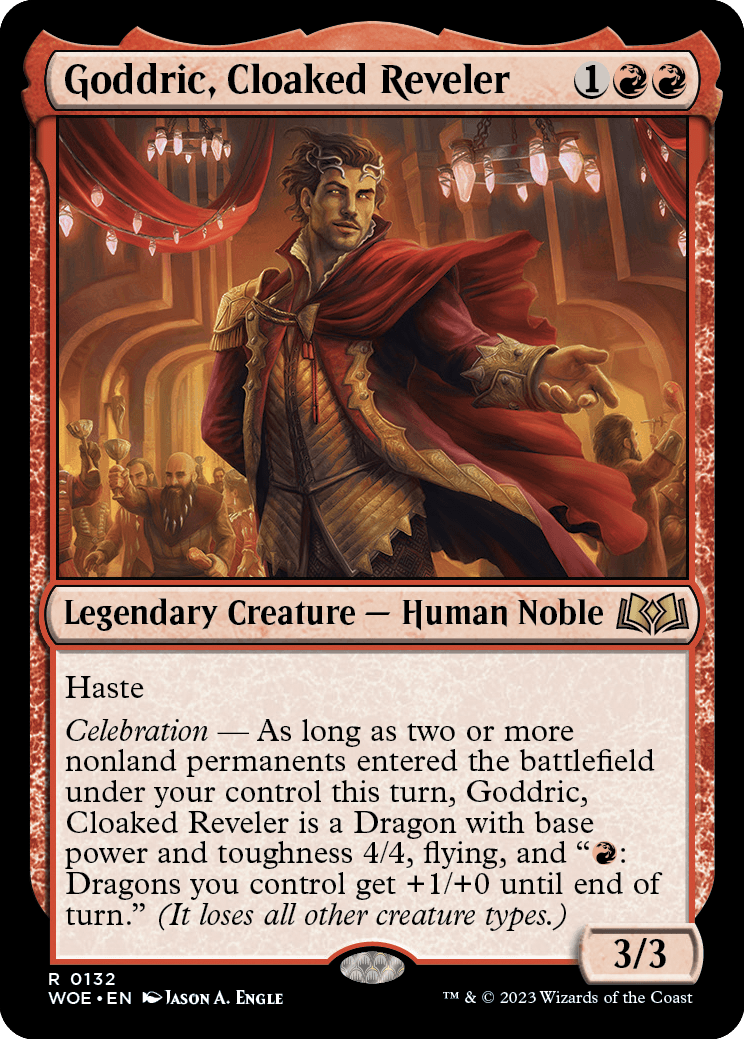
Goddric, Cloaked Reveler
{1}{R}{R}
Legendary Creature — Human Noble
3/3
Haste
Celebration — As long as two or more nonland permanents entered the battlefield under your control this turn, Goddric, Cloaked Reveler is a Dragon with base power and toughness 4/4, flying, and "{R}: Dragons you control get +1/+0 until end of turn." (It loses all other creature types.)
- If an effect causes Goddric to lose all abilities during a turn in which it has already become a Dragon, he's still a Dragon creature with base power and toughness 4/4.
- Goddric's activated ability affects only Dragons you control at the time it resolves. Any Dragons that come under your control later in the turn won't be affected.
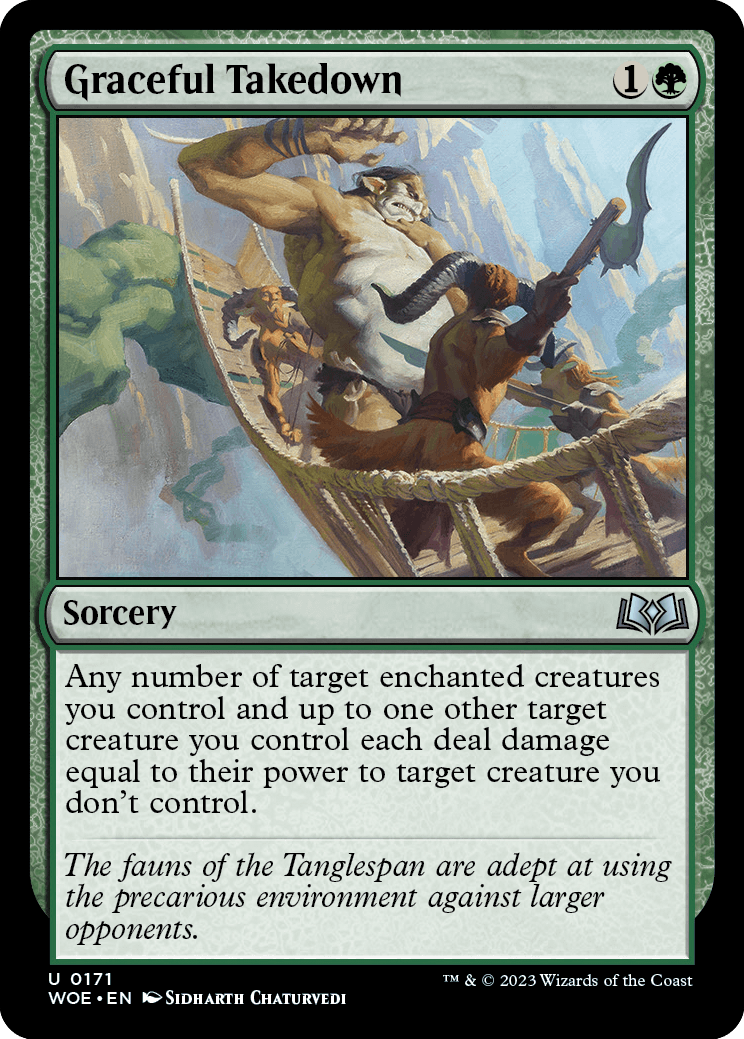
Graceful Takedown
{1}{G}
Sorcery
Any number of target enchanted creatures you control and up to one other target creature you control each deal damage equal to their power to target creature you don't control.
- If one of the target creatures you control is an illegal target as Graceful Takedown resolves (perhaps because it's no longer enchanted or is no longer on the battlefield), the remaining legal target creatures you control will still deal damage equal to their power.
- If the last target creature is an illegal target as Graceful Takedown resolves, or if all of the target creatures you control are illegal targets, no creature deals or is dealt damage.
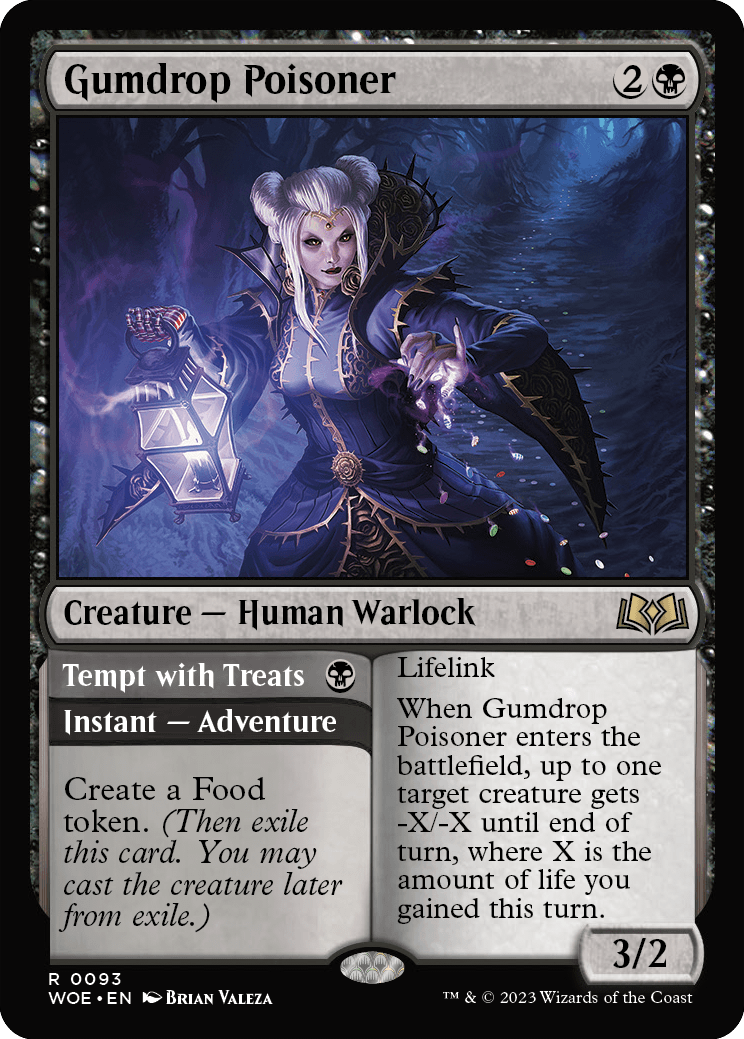
Gumdrop Poisoner
{2}{B}
Creature — Human Warlock
3/2
Lifelink
When Gumdrop Poisoner enters the battlefield, up to one target creature gets -X/-X until end of turn, where X is the amount of life you gained this turn.
//
Tempt with Treats
{B}
Instant — Adventure
Create a Food token. (Then exile this card. You may cast the creature later from exile.)
- Gumdrop Poisoner's enters-the-battlefield ability counts the total amount of life you gained without taking into account any life you lost during that turn. For example, if you lost 3 life and gained 3 life earlier in the turn, the target creature will get -3/-3.
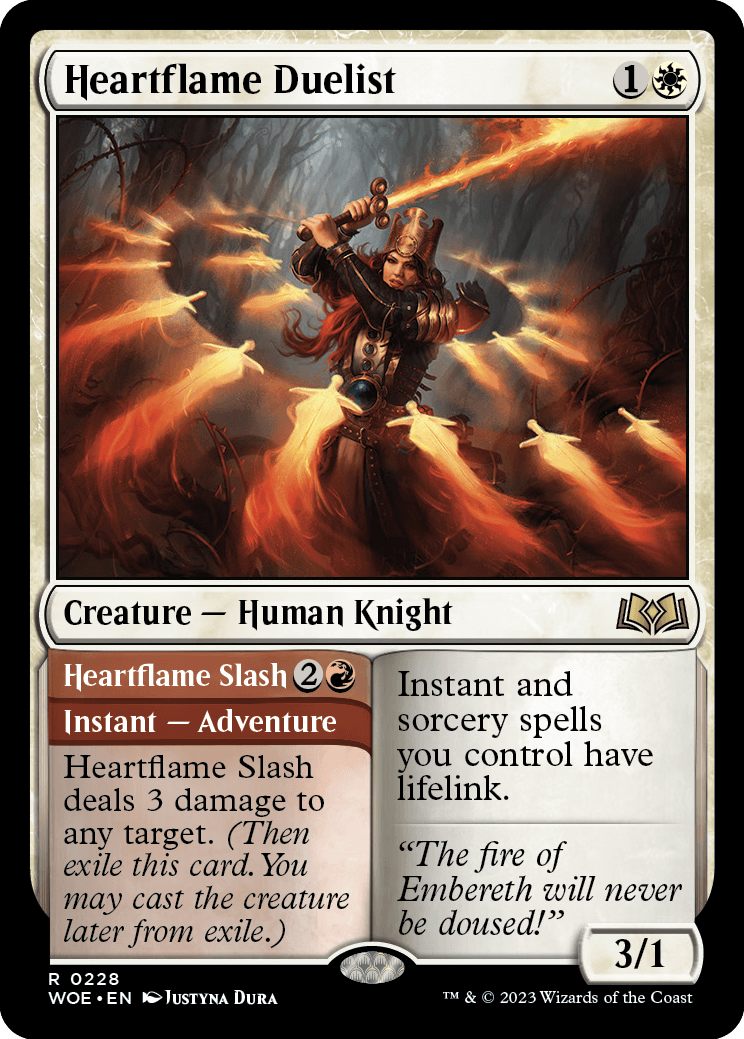
Heartflame Duelist
{1}{W}
Creature — Human Knight
3/1
Instant and sorcery spells you control have lifelink.
//
Heartflame Slash
{2}{R}
Instant — Adventure
Heartflame Slash deals 3 damage to any target. (Then exile this card. You may cast the creature later from exile.)
- If an instant or sorcery spell you control with lifelink deals damage to you, you gain and lose that much life simultaneously. In this case, your life total doesn't change. (Your life total may increase if the spell also deals damage to other permanents and/or players, however.)
- Some instant and sorcery spells instruct other things to deal damage rather than deal damage themselves. In these cases, you won't gain life for that damage (unless the other things also have lifelink). Notably, a spell that instructs a creature you control to fight won't cause you to gain life.
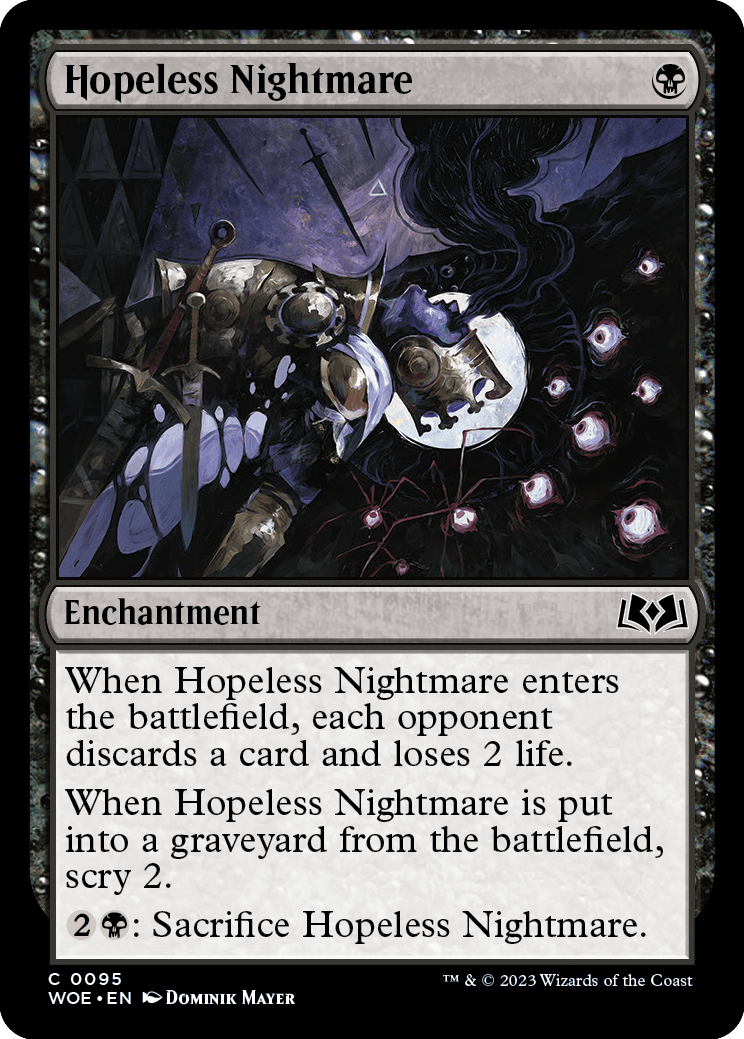
Hopeless Nightmare
{B}
Enchantment
When Hopeless Nightmare enters the battlefield, each opponent discards a card and loses 2 life.
When Hopeless Nightmare is put into a graveyard from the battlefield, scry 2.
{2}{B}: Sacrifice Hopeless Nightmare.
- Hopeless Nightmare's first ability causes each opponent to lose 2 life even if some or all of those players were unable to discard a card.
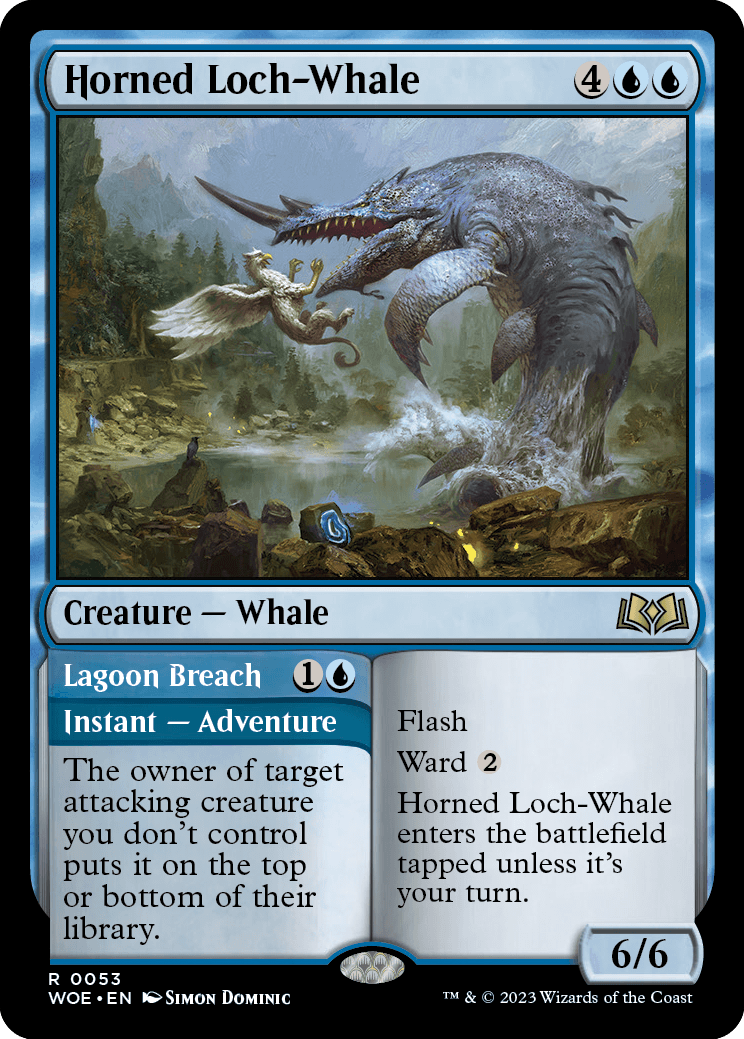
Horned Loch-Whale
{4}{U}{U}
Creature — Whale
6/6
Flash
Ward {2}
Horned Loch-Whale enters the battlefield tapped unless it's your turn.
//
Lagoon Breach
{1}{U}
Instant — Adventure
The owner of target attacking creature you don't control puts it on the top or bottom of their library.
- The creature's owner chooses whether to put it on the top or bottom of their library. If multiple cards are put into the library this way (such as when the spell targets a melded permanent), that creature's owner puts all the cards on top or all the cards on the bottom. They put them in whatever order they wish, and do not need to reveal the order.
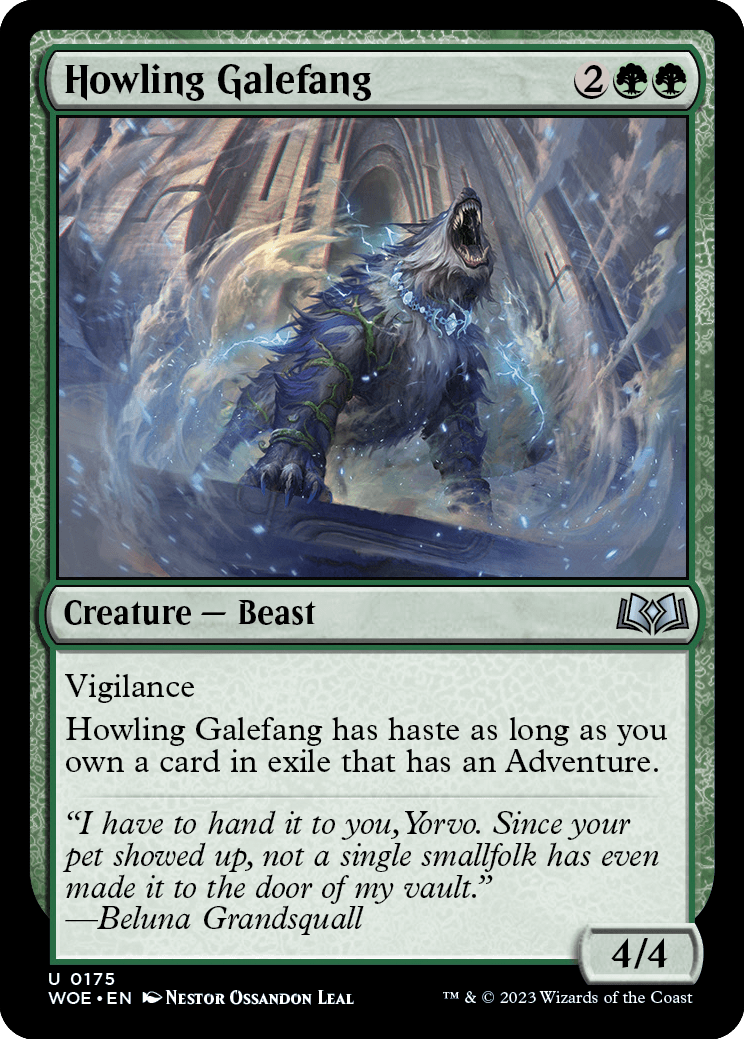
Howling Galefang
{2}{G}{G}
Creature — Beast
4/4
Vigilance
Howling Galefang has haste as long as you own a card in exile that has an Adventure.
- Howling Galefang will have haste as long as any card you own in exile has an Adventure. It doesn't matter if that card was cast as an Adventure or not.
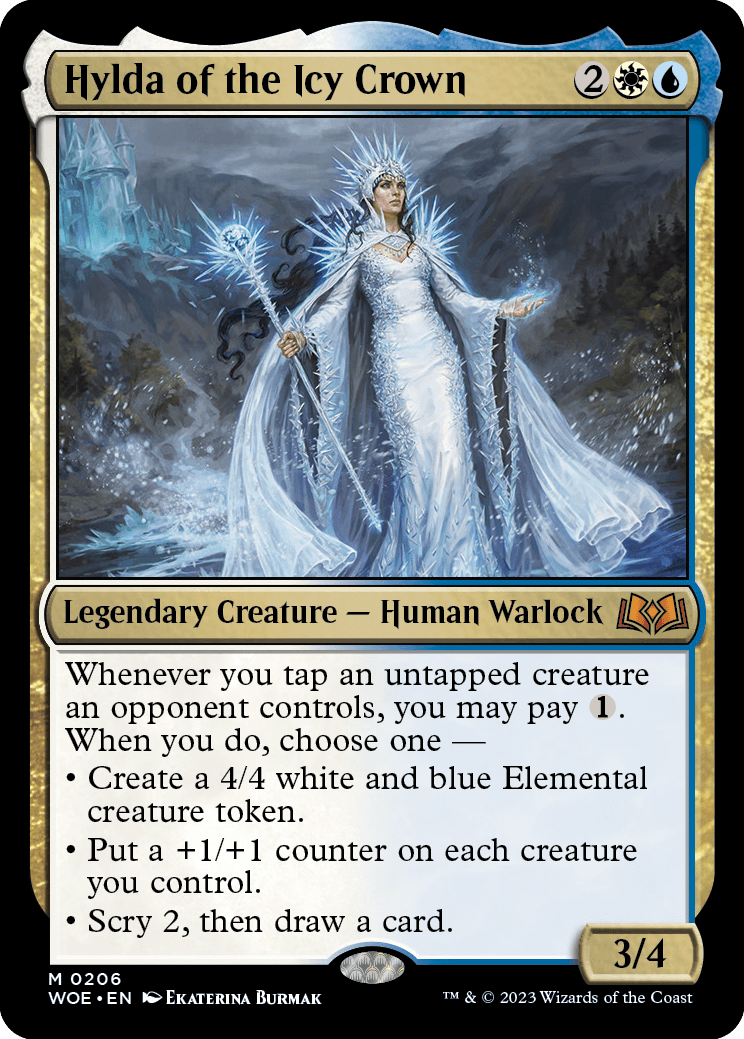
Hylda of the Icy Crown
{2}{W}{U}
Legendary Creature — Human Warlock
3/4
Whenever you tap an untapped creature an opponent controls, you may pay {1}. When you do, choose one —
• Create a 4/4 white and blue Elemental creature token.
• Put a +1/+1 counter on each creature you control.
• Scry 2, then draw a card.
- Hylda of the Icy Crown's ability will trigger only when an effect instructs you to tap an opponent's creature. It won't trigger if a spell or ability you control instructs an opponent to tap a creature they control. For example, if you control Tangle Wire and an opponent taps an untapped creature they control as part of the resolution of Tangle Wire's triggered ability, Hylda's ability won't trigger.
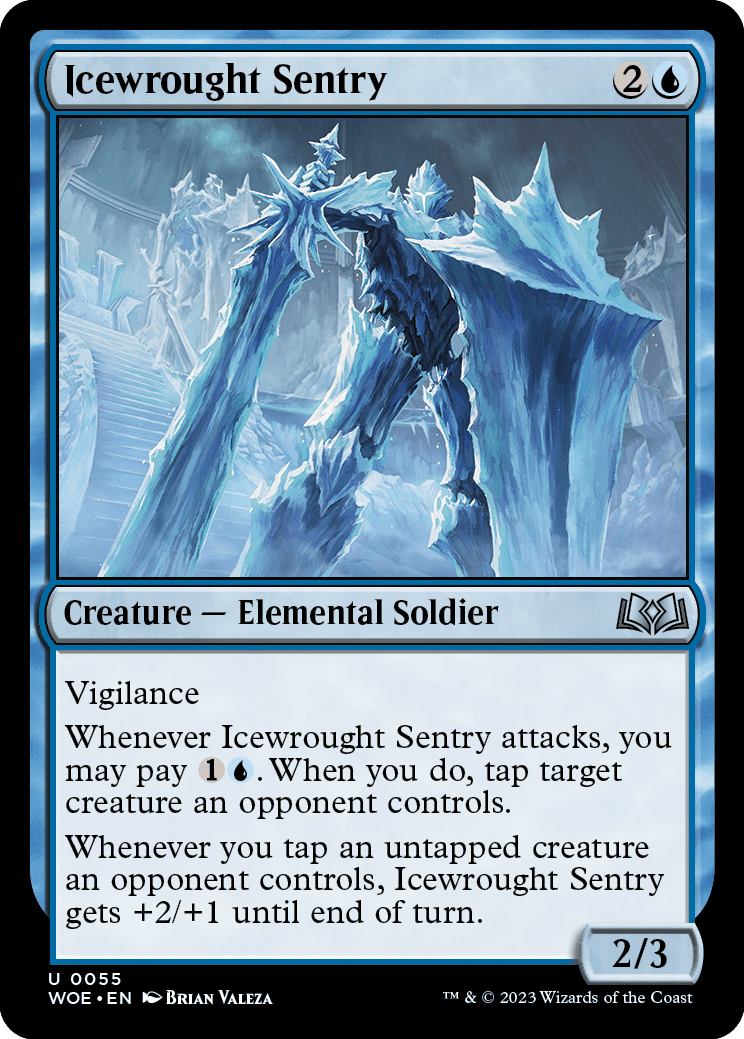
Icewrought Sentry
{2}{U}
Creature — Elemental Soldier
2/3
Vigilance
Whenever Icewrought Sentry attacks, you may pay {1}{U}. When you do, tap target creature an opponent controls.
Whenever you tap an untapped creature an opponent controls, Icewrought Sentry gets +2/+1 until end of turn.
- Icewrought Sentry's last ability will trigger only when an effect instructs you to tap an opponent's creature. It won't trigger if a spell or ability you control instructs an opponent to tap a creature they control. For example, if you control Tangle Wire and an opponent taps an untapped creature they control as part of the resolution of Tangle Wire's triggered ability, Icewrought Sentry's ability won't trigger.
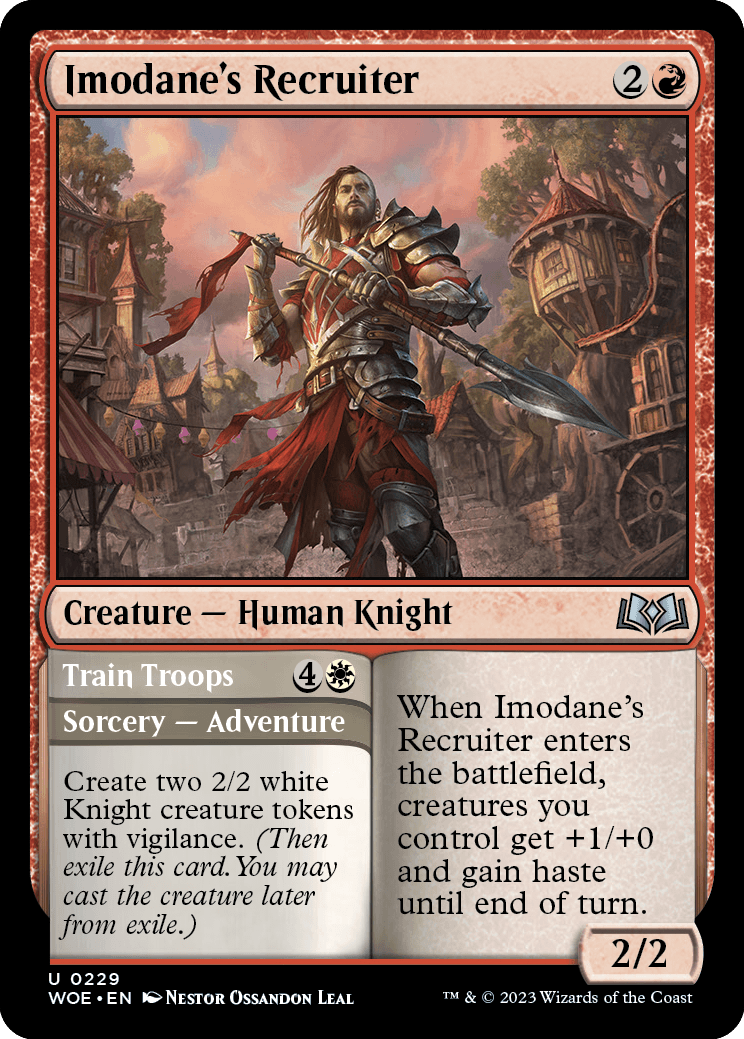
Imodane's Recruiter
{2}{R}
Creature — Human Knight
2/2
When Imodane's Recruiter enters the battlefield, creatures you control get +1/+0 and gain haste until end of turn.
//
Train Troops
{4}{W}
Sorcery — Adventure
Create two 2/2 white Knight creature tokens with vigilance. (Then exile this card. You may cast the creature later from exile.)
- Imodane's Recruiter's triggered ability affects only creatures you control at the time it resolves. Creatures you begin to control later in the turn won't get +1/+0 or gain haste.
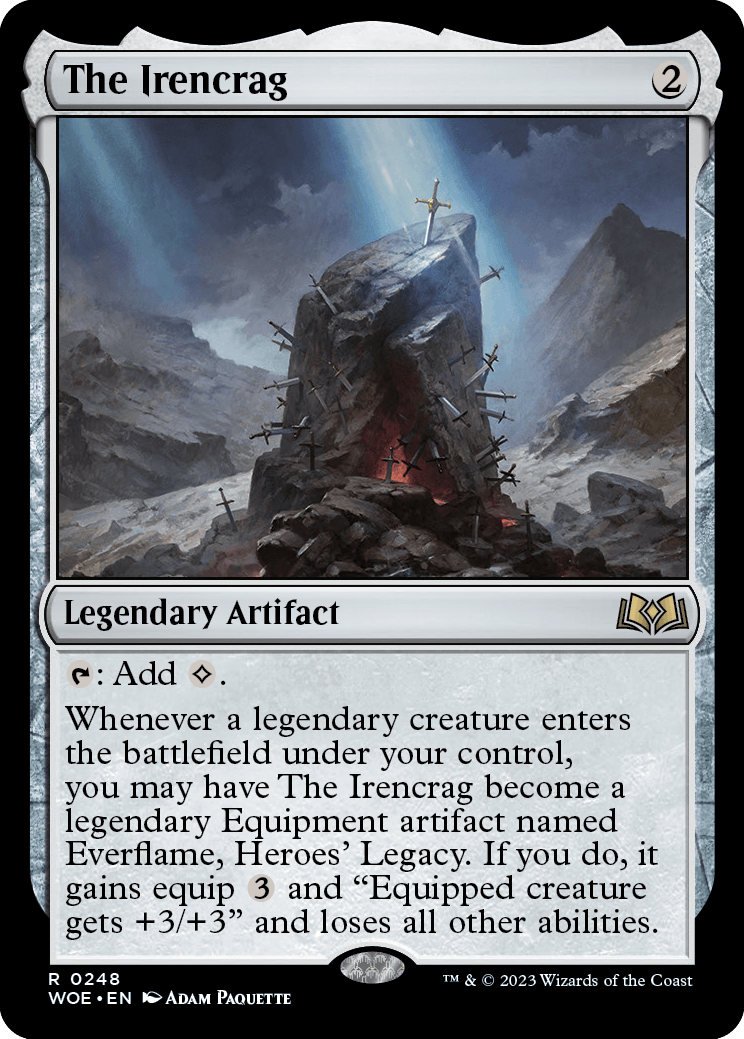
The Irencrag
{2}
Legendary Artifact
{T}: Add {C}.
Whenever a legendary creature enters the battlefield under your control, you may have The Irencrag become a legendary Equipment artifact named Everflame, Heroes' Legacy. If you do, it gains equip {3} and "Equipped creature gets +3/+3" and loses all other abilities.
- The Irencrag's last ability lasts indefinitely.
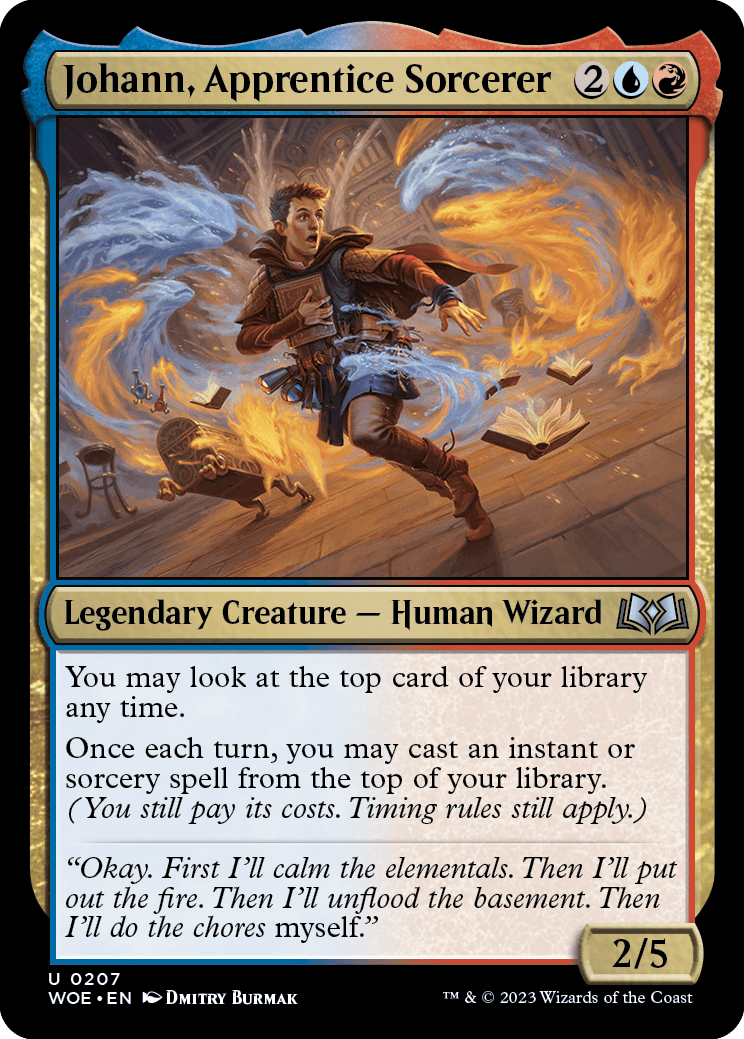
Johann, Apprentice Sorcerer
{2}{U}{R}
Legendary Creature — Human Wizard
2/5
You may look at the top card of your library any time.
Once each turn, you may cast an instant or sorcery spell from the top of your library. (You still pay its costs. Timing rules still apply.)
- You can look at the top card of your library whenever you want (with one restriction; see below), even if you don't have priority. This action doesn't use the stack. Knowing what that card is becomes part of the information you have access to, just like you can look at the cards in your hand.
- If the top card of your library changes while you're casting a spell, playing a land, or activating an ability, you can't look at the new top card until you finish doing so. This means that if you cast a spell from the top of your library, you can't look at the next one until you're done paying for that spell.
- If the top card of your library has an Adventure, you can cast the Adventure spell this way.
- You must pay all costs and follow all timing rules for spells cast from the top of your library this way.
- If Johann leaves the battlefield and returns to the battlefield in the same turn, or if Johann leaves and another Johann appears, the casting permission granted by the old one is different than the casting permission granted by the new one. On the turn in which the new Johann enters the battlefield, you may use its casting permission once, even if you used the old Johann's casting permission to cast an instant or sorcery spell from the top of your library in that same turn. Note that if you control multiple Johanns you won't have the opportunity to cast an instant or sorcery spell from the top of your library before the "legend rule" gets you down to one Johann.
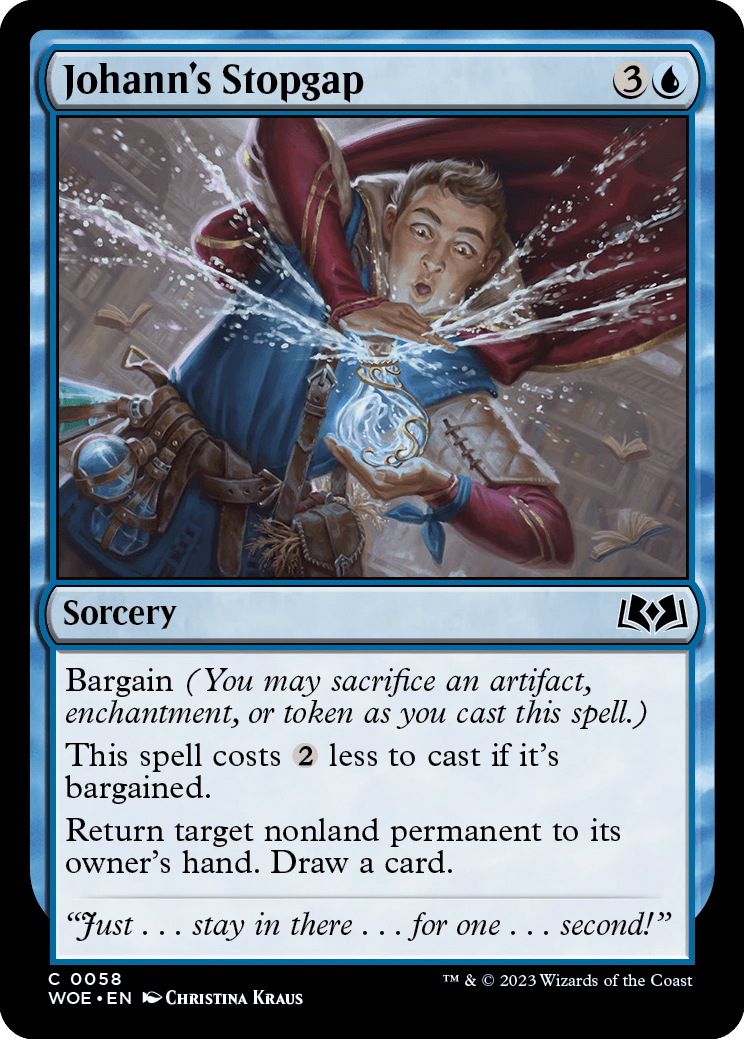
Johann's Stopgap
{3}{U}
Sorcery
Bargain (You may sacrifice an artifact, enchantment, or token as you cast this spell.)
This spell costs {2} less to cast if it's bargained.
Return target nonland permanent to its owner's hand. Draw a card.
- The cost-reduction ability of Johann's Stopgap doesn't change its mana cost or mana value, only the total cost you pay. Specifically, the mana value of Johann's Stopgap is always 4.
- If the permanent is an illegal target as Johann's Stopgap tries to resolve, Johann's Stopgap is removed from the stack and you won't draw a card.
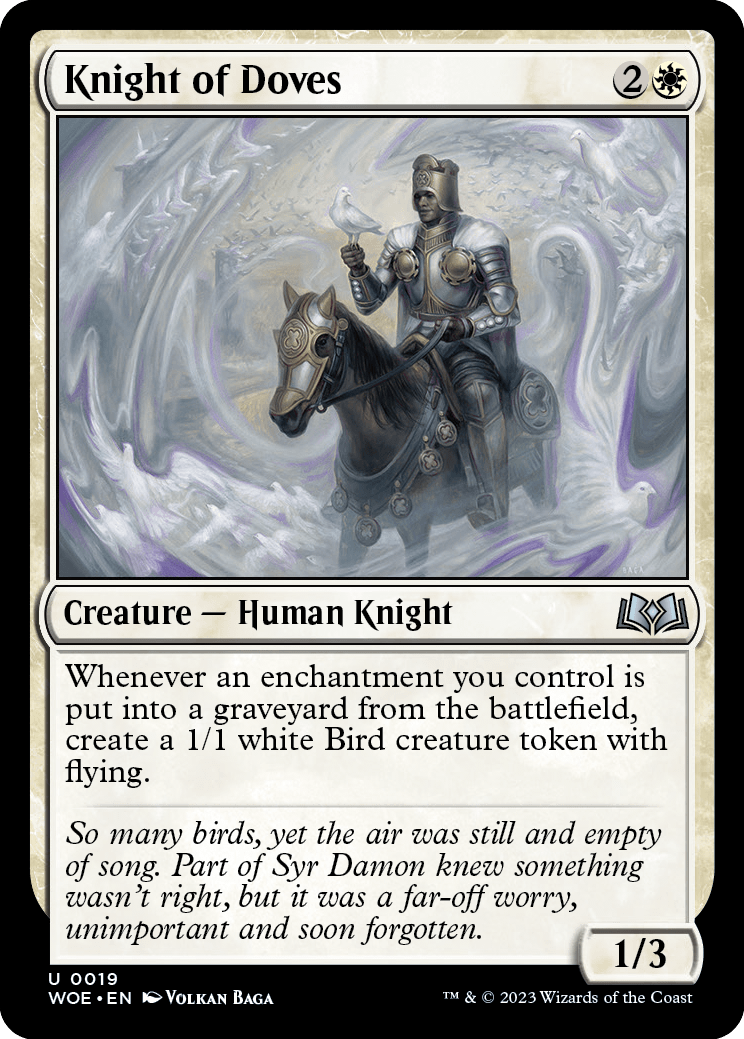
Knight of Doves
{2}{W}
Creature — Human Knight
1/3
Whenever an enchantment you control is put into a graveyard from the battlefield, create a 1/1 white Bird creature token with flying.
- Enchantment tokens (such as Roles) that are sacrificed, destroyed, or would otherwise go to the graveyard are put into their owner's graveyard before ceasing to exist. If you controlled the token, Knight of Doves's ability will trigger.
- If Knight of Doves leaves the battlefield while it has an Aura you control attached to it or at the same time as another creature with an Aura you control attached to it, its ability won't trigger for those enchantments unless they were destroyed by the same effect that caused Knight of Doves to leave the battlefield.
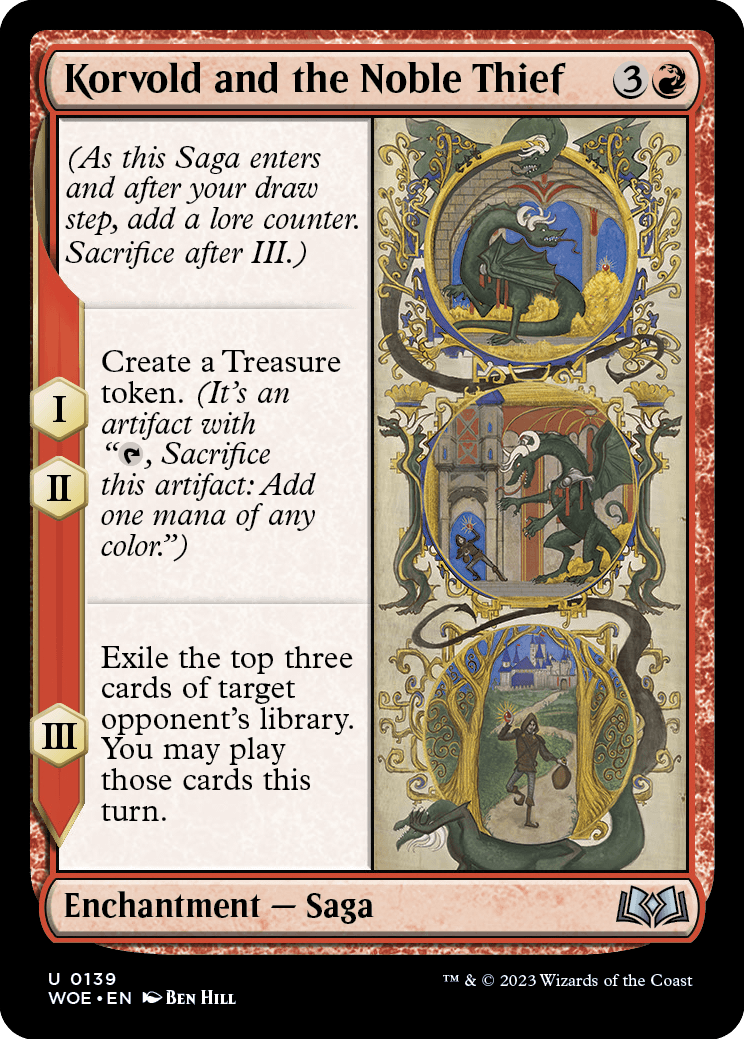
Korvold and the Noble Thief
{3}{R}
Enchantment — Saga
(As this Saga enters and after your draw step, add a lore counter. Sacrifice after III.)
I, II — Create a Treasure token. (It's an artifact with "{T}, Sacrifice this artifact: Add one mana of any color.")
III — Exile the top three cards of target opponent's library. You may play those cards this turn.
- You pay all costs and follow all normal timing rules for a card played this way. For example, if the exiled card is a land card, you may play it only during your main phase while the stack is empty.
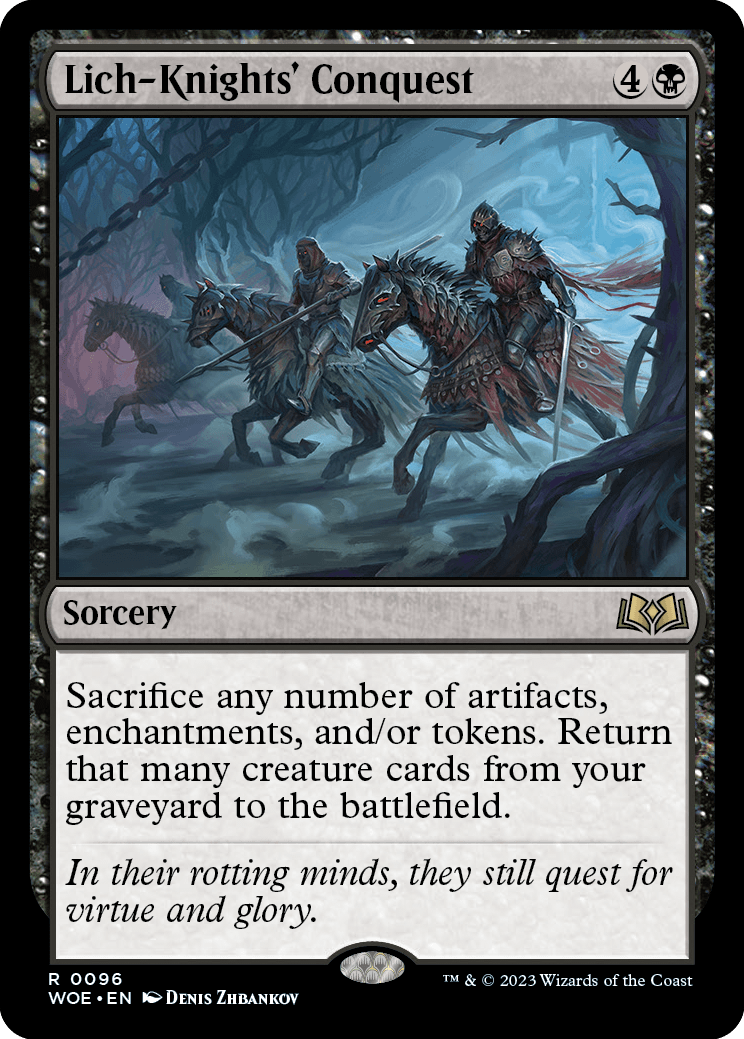
Lich-Knights' Conquest
{4}{B}
Sorcery
Sacrifice any number of artifacts, enchantments, and/or tokens. Return that many creature cards from your graveyard to the battlefield.
- You sacrifice the artifacts, enchantments, and/or tokens as part of the resolution of Lich-Knights' Conquest. It isn't an additional cost. If Lich-Knights' Conquest is countered, you won't sacrifice anything.
- You can choose to sacrifice zero permanents.
- If any abilities trigger as you sacrifice permanents, those abilities won't be put onto the stack until after you've returned creature cards from your graveyard to the battlefield.
- An artifact creature or enchantment creature sacrificed to Lich-Knights' Conquest may be one of the cards chosen to be returned.
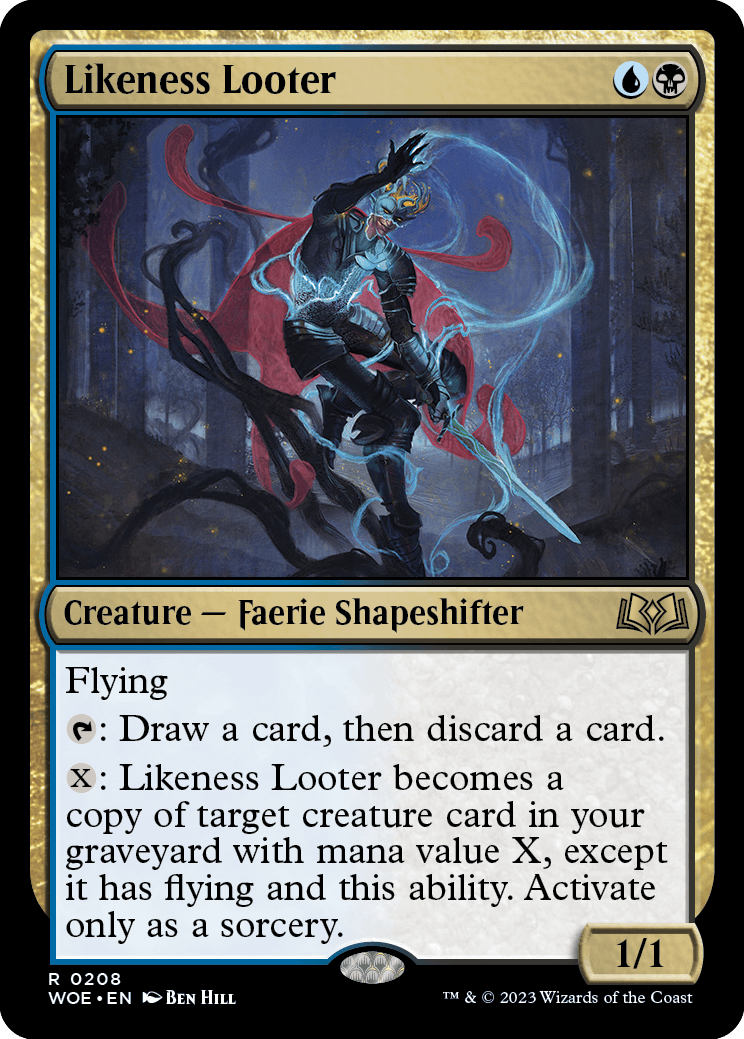
Likeness Looter
{U}{B}
Creature — Faerie Shapeshifter
1/1
Flying
{T}: Draw a card, then discard a card.
{X}: Likeness Looter becomes a copy of target creature card in your graveyard with mana value X, except it has flying and this ability. Activate only as a sorcery.
- Likeness Looter copies exactly what was printed on the original card and nothing else, except the characteristics it specifically modifies. It doesn't copy any information about the object the card was before it was put into your graveyard.
- Any effects that applied to Likeness Looter before it becomes a copy of another card will continue to apply after it becomes a copy. The same is true of any counters that are on Likeness Looter.
- If a card in your graveyard has {X} in its mana cost, X is considered to be 0.
- Because Likeness Looter isn't entering the battlefield when it becomes a copy of a card, any "When [this creature] enters the battlefield" or "[This creature] enters the battlefield with" abilities of the copied card won't apply.
- If the copied card has an ability that can be activated only once each turn, copying that card a second time will allow you to activate the new instance of that ability.
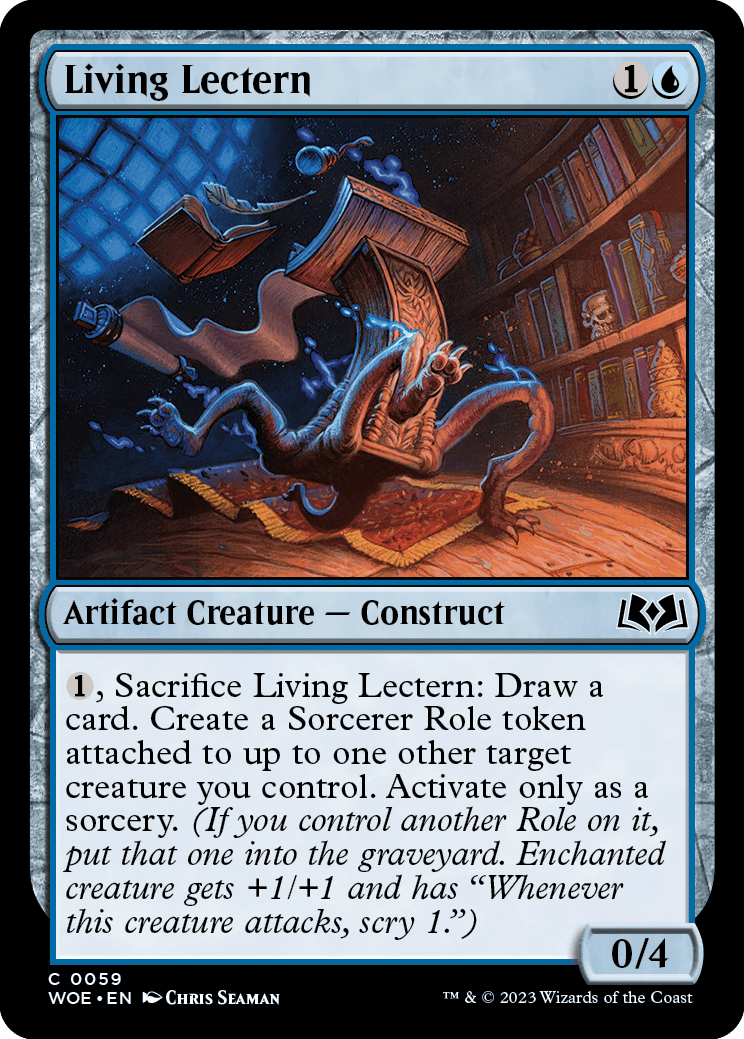
Living Lectern
{1}{U}
Artifact Creature — Construct
0/4
{1}, Sacrifice Living Lectern: Draw a card. Create a Sorcerer Role token attached to up to one other target creature you control. Activate only as a sorcery. (If you control another Role on it, put that one into the graveyard. Enchanted creature gets +1/+1 and has "Whenever this creature attacks, scry 1.")
- You can activate Living Lectern's ability without a target just to draw a card. However, if you do choose a target, and that target is illegal at the time the ability tries to resolve, the ability won't resolve and none of its effects will happen. You won't draw a card.
- If you don't choose a target creature, the Sorcerer Role token won't be created.
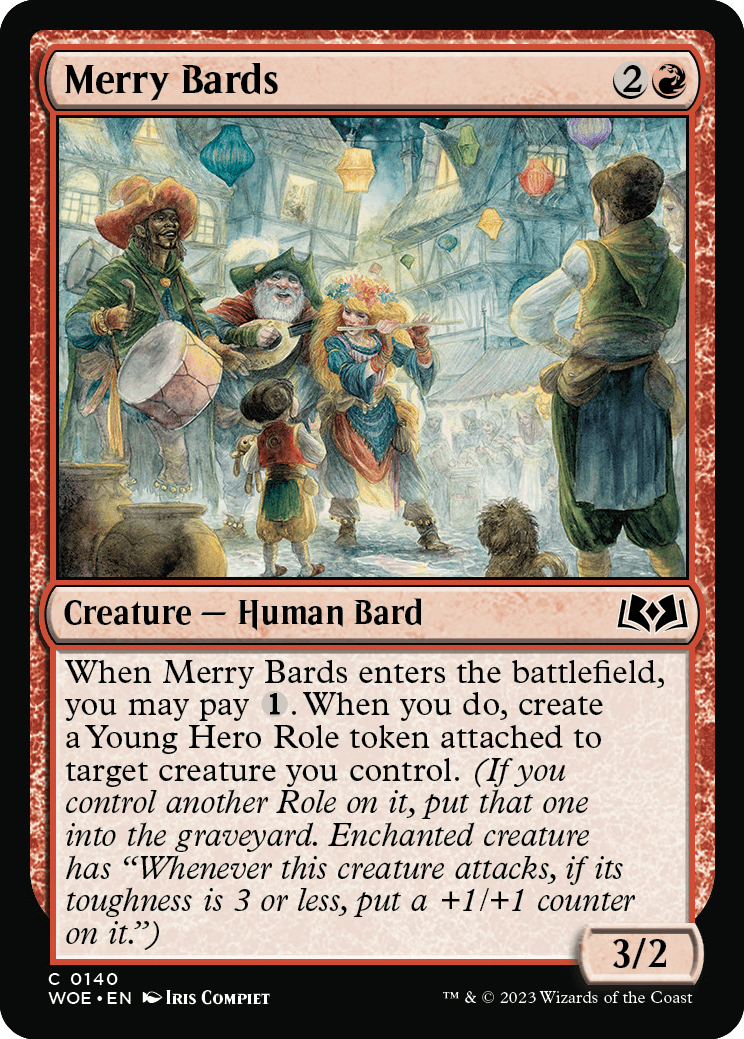
Merry Bards
{2}{R}
Creature — Human Bard
3/2
When Merry Bards enters the battlefield, you may pay {1}. When you do, create a Young Hero Role token attached to target creature you control. (If you control another Role on it, put that one into the graveyard. Enchanted creature has "Whenever this creature attacks, if its toughness is 3 or less, put a +1/+1 counter on it.")
- You don't choose a target for Merry Bards's ability at the time its enters-the-battlefield ability triggers. Rather, a second "reflexive" ability triggers when you pay {1} this way. You choose a target for that ability as it goes on the stack. Each player may respond to this triggered ability as normal.
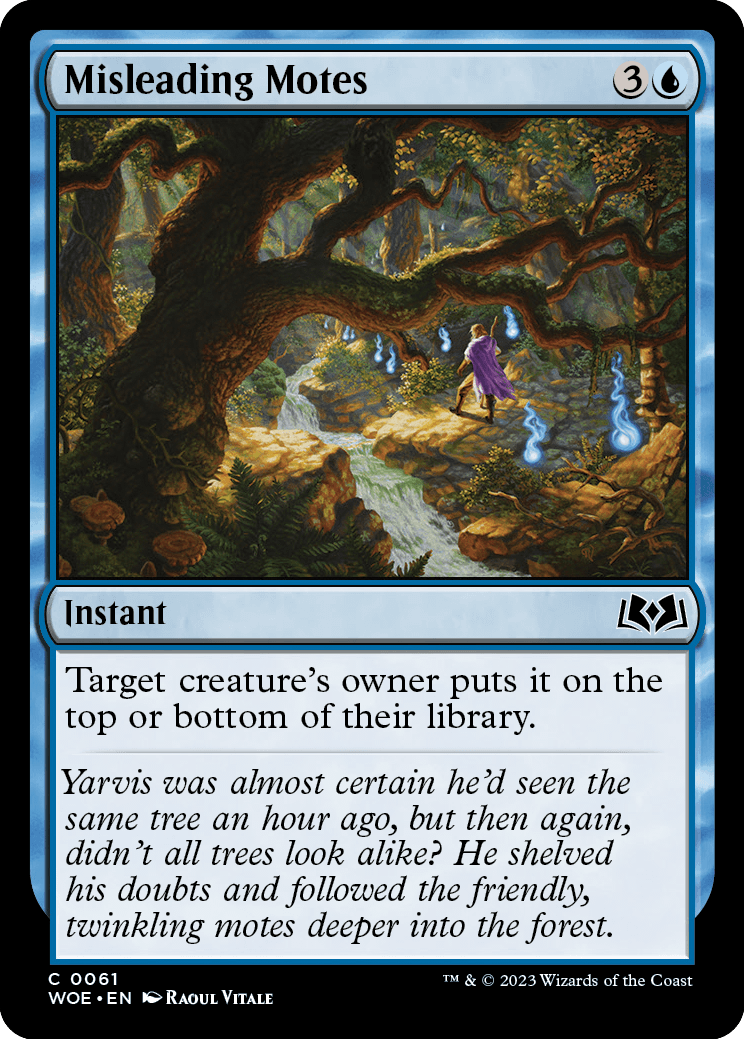
Misleading Motes
{3}{U}
Instant
Target creature's owner puts it on the top or bottom of their library.
- The creature's owner chooses whether to put it on the top or bottom of their library. If multiple cards are put into the library this way (such as when the spell targets a melded permanent), that creature's owner puts all the cards on top or all the cards on the bottom. They put them in whatever order they wish, and do not need to reveal the order.
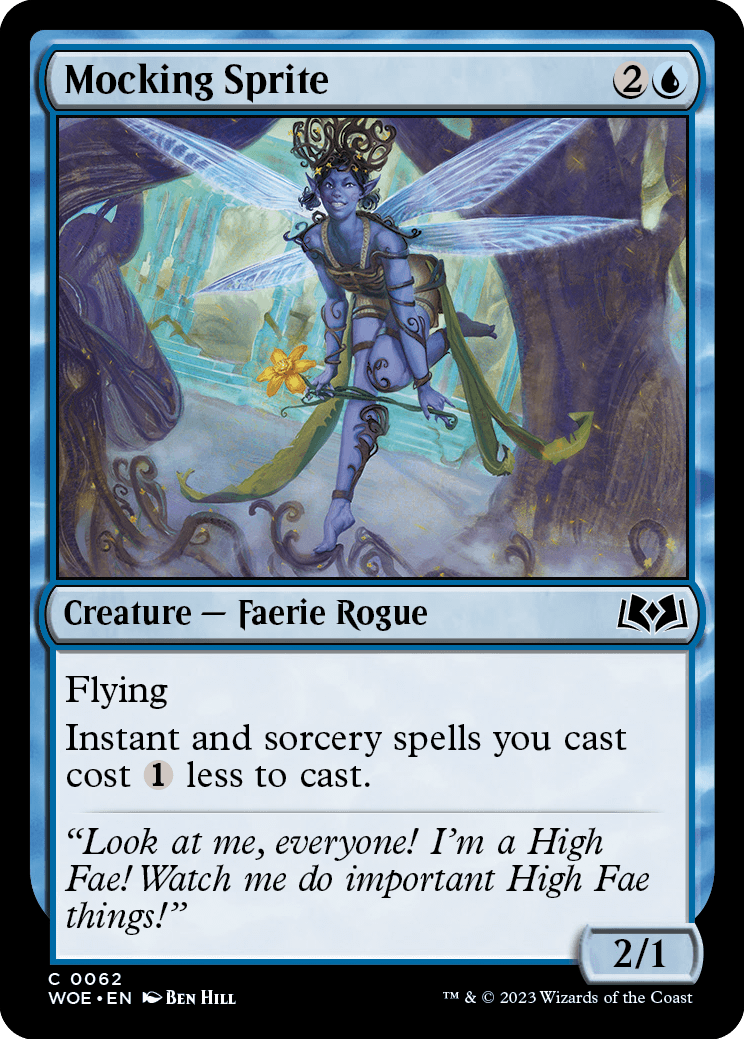
Mocking Sprite
{2}{U}
Creature — Faerie Rogue
2/1
Flying
Instant and sorcery spells you cast cost {1} less to cast.
- Mocking Sprite's last ability doesn't change the mana cost or mana value of any spell. It changes only the total cost you pay.
- Mocking Sprite's last ability can't reduce the amount of colored mana you pay for a spell. It reduces only the generic mana component of that cost.
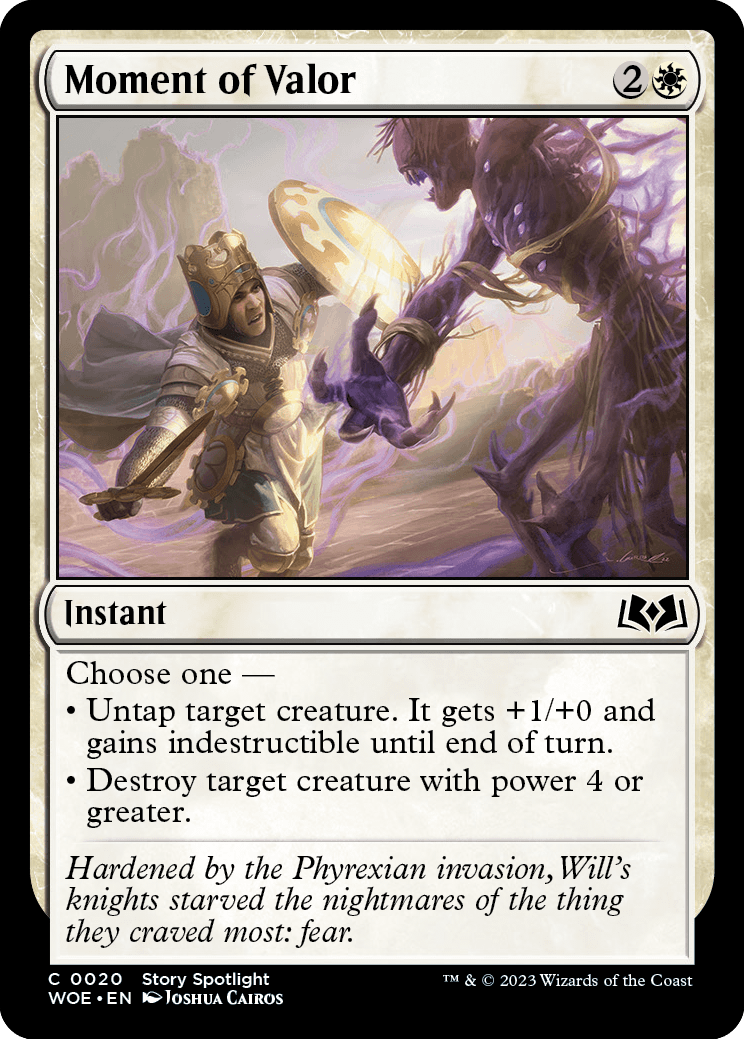
Moment of Valor
{2}{W}
Instant
Choose one —
• Untap target creature. It gets +1/+0 and gains indestructible until end of turn.
• Destroy target creature with power 4 or greater.
- Moment of Valor's first mode can target an untapped creature. It still gets +1/+0 and gains indestructible until end of turn.
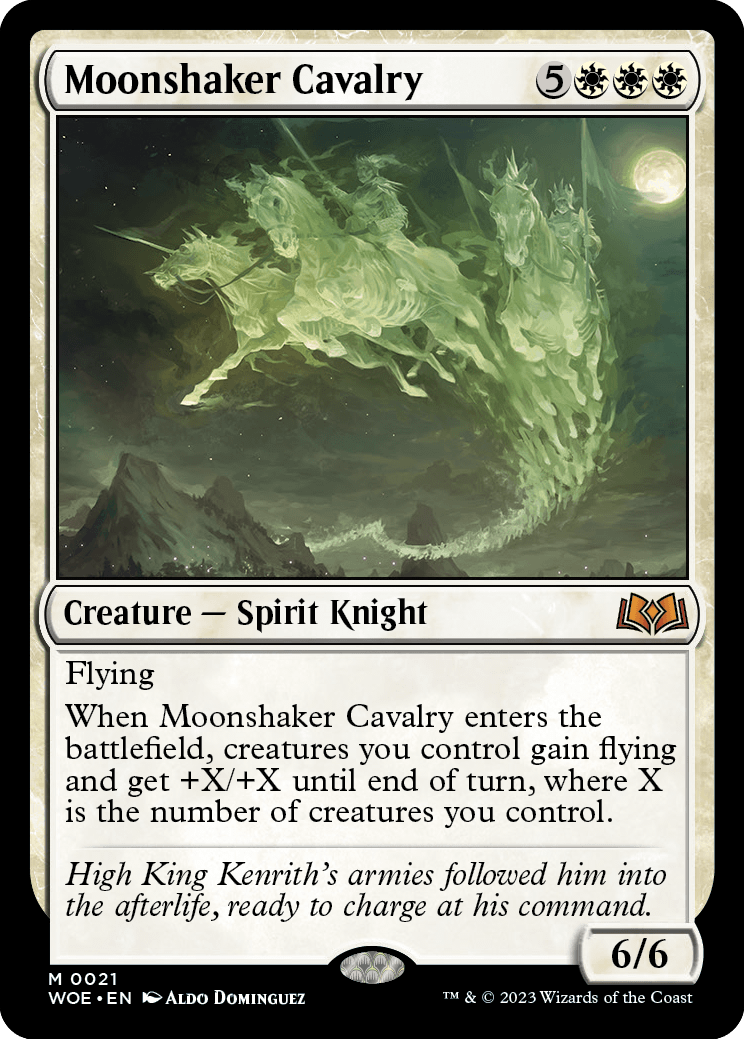
Moonshaker Cavalry
{5}{W}{W}{W}
Creature — Spirit Knight
6/6
Flying
When Moonshaker Cavalry enters the battlefield, creatures you control gain flying and get +X/+X until end of turn, where X is the number of creatures you control.
- The value of X is determined only as Moonshaker Cavalry's triggered ability resolves, potentially including Moonshaker Cavalry itself. It won't change later in the turn if the number of creatures you control changes.
- Moonshaker Cavalry's triggered ability affects only creatures you control at the time it resolves. Creatures you begin to control later in the turn won't be affected.
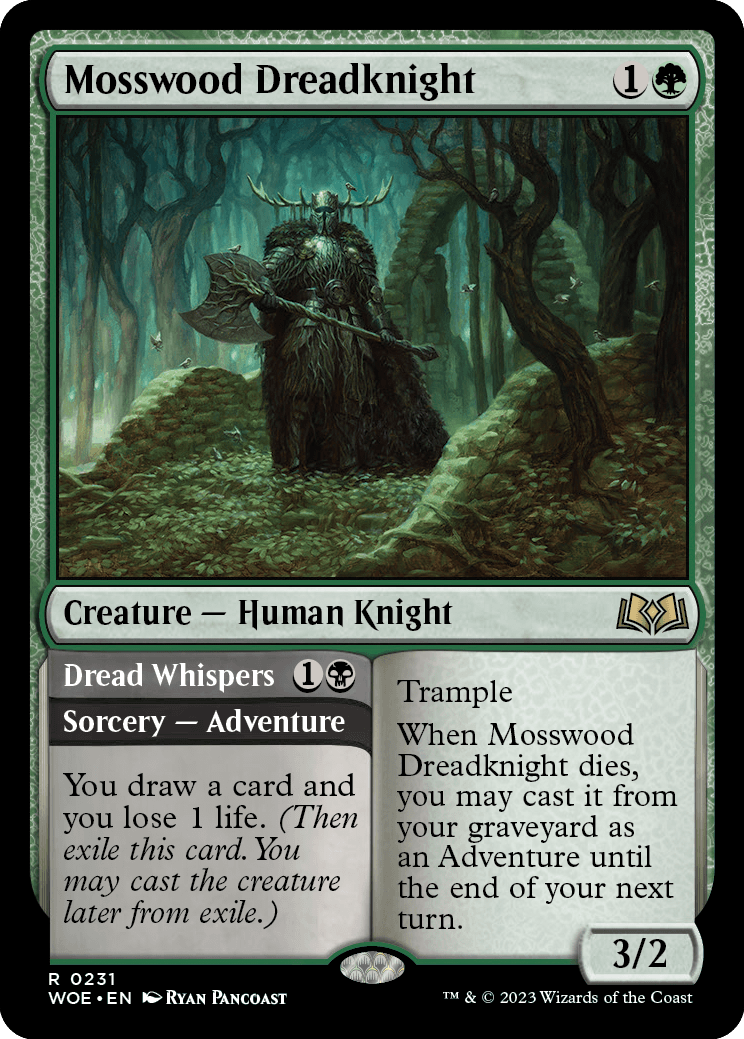
Mosswood Dreadknight
{1}{G}
Creature — Human Knight
3/2
Trample
When Mosswood Dreadknight dies, you may cast it from your graveyard as an Adventure until the end of your next turn.
//
Dread Whispers
{1}{B}
Sorcery — Adventure
You draw a card and you lose 1 life. (Then exile this card. You may cast the creature later from exile.)
- You must follow the normal timing permissions and restrictions for Dread Whispers when casting it with the permission of Mosswood Dreadknight's triggered ability. You must pay its mana cost (or, if another effect allows, an alternative cost).
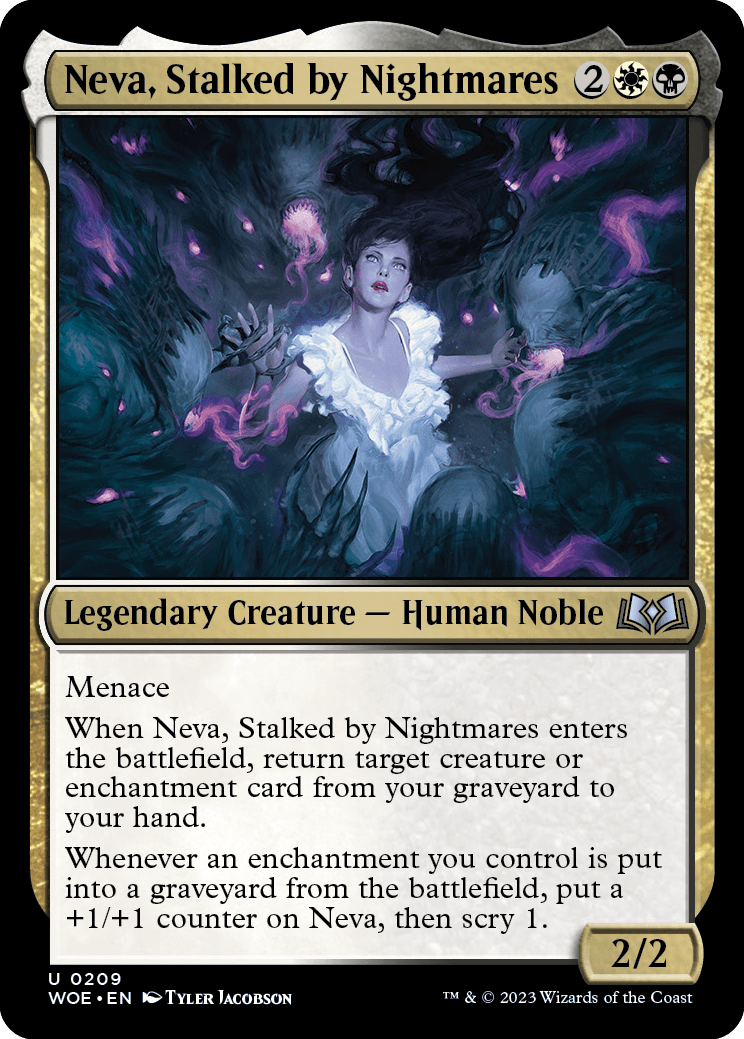
Neva, Stalked by Nightmares
{2}{W}{B}
Legendary Creature — Human Noble
2/2
Menace
When Neva, Stalked by Nightmares enters the battlefield, return target creature or enchantment card from your graveyard to your hand.
Whenever an enchantment you control is put into a graveyard from the battlefield, put a +1/+1 counter on Neva, then scry 1.
- Enchantment tokens (such as Roles) that are sacrificed, destroyed, or would otherwise go to the graveyard are put into their owner's graveyard before ceasing to exist. If you controlled the token, Neva's ability will trigger.
- If Neva leaves the battlefield while it has an Aura you control attached to it or at the same time as another creature with an Aura you control attached to it, its ability won't trigger for those enchantments unless they were destroyed by the same effect that caused Neva to leave the battlefield.
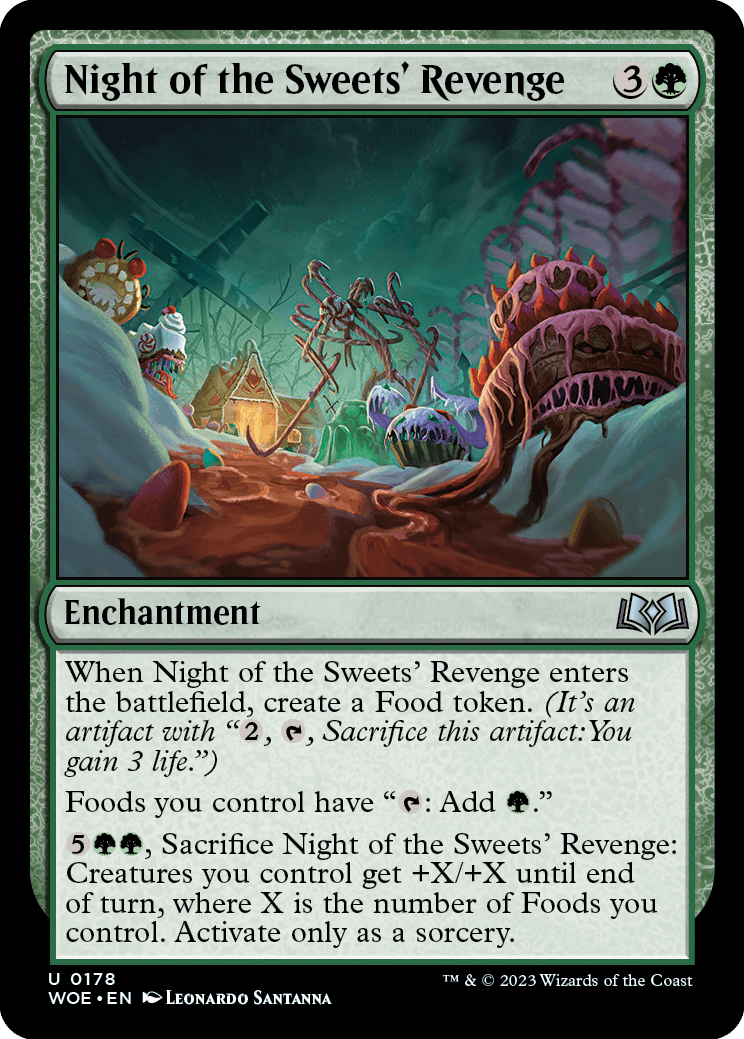
Night of the Sweets' Revenge
{3}{G}
Enchantment
When Night of the Sweets' Revenge enters the battlefield, create a Food token. (It's an artifact with "{2}, {T}, Sacrifice this artifact: You gain 3 life.")
Foods you control have "{T}: Add {G}."
{5}{G}{G}, Sacrifice Night of the Sweets' Revenge: Creatures you control get +X/+X until end of turn, where X is the number of Foods you control. Activate only as a sorcery.
- The value of X is determined only as Night of the Sweets' Revenge's last ability resolves. It won't change later in the turn if the number of Foods you control changes.
- Night of the Sweets' Revenge's last ability affects only creatures you control at the time it resolves. Creatures you begin to control later in the turn won't be affected.
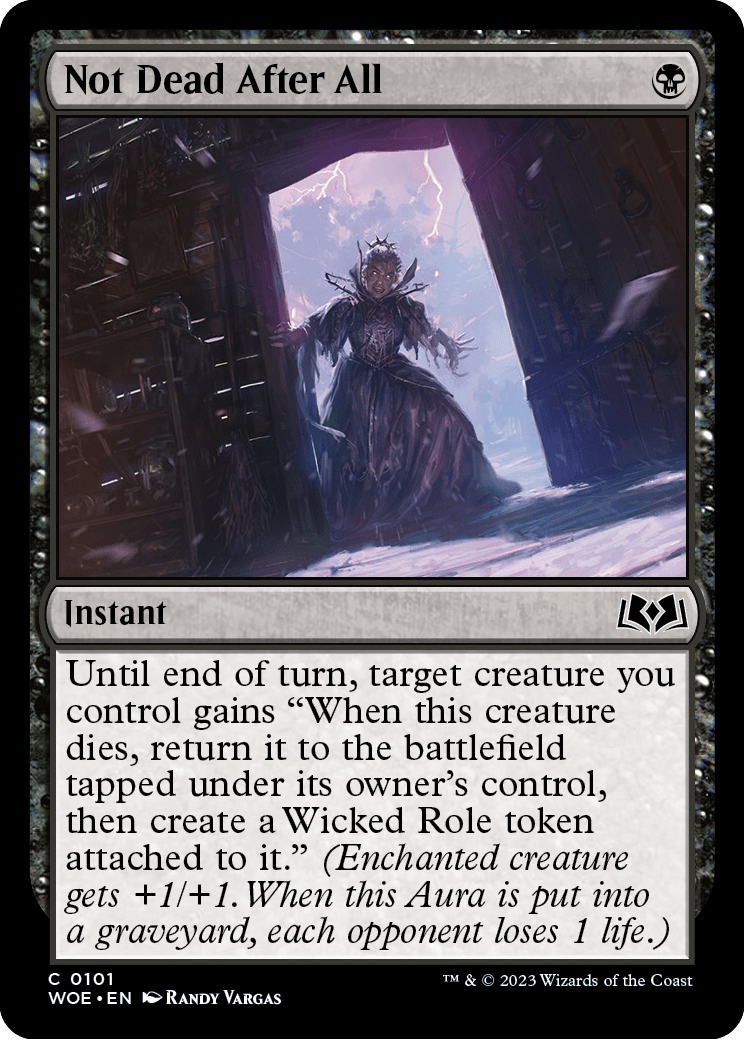
Not Dead After All
{B}
Instant
Until end of turn, target creature you control gains "When this creature dies, return it to the battlefield tapped under its owner's control, then create a Wicked Role token attached to it." (Enchanted creature gets +1/+1. When this Aura is put into a graveyard, each opponent loses 1 life.)
- If the creature doesn't return to the battlefield or returns as a noncreature permanent, the Wicked Role token won't be created.
- If multiple creatures return to the battlefield (possibly because Not Dead After All targeted a melded permanent), a Wicked Role token will be created attached to each of them.
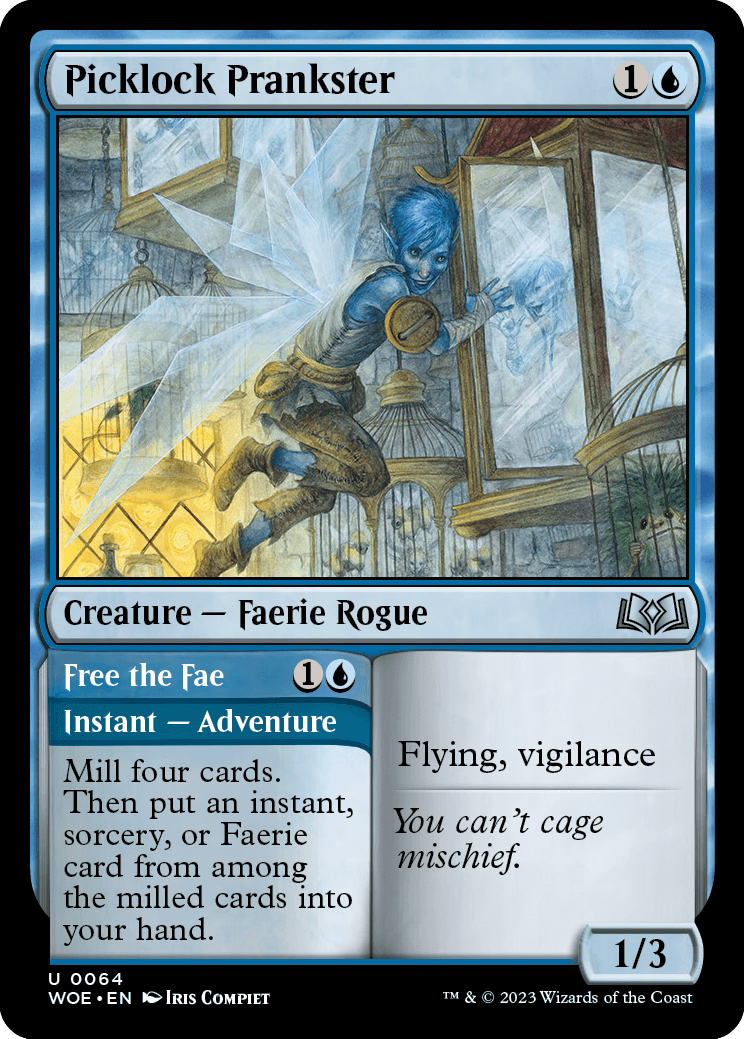
Picklock Prankster
{1}{U}
Creature — Faerie Rogue
1/3
Flying, vigilance
//
Free the Fae
{1}{U}
Instant — Adventure
Mill four cards. Then put an instant, sorcery, or Faerie card from among the milled cards into your hand.
- Adventurer cards aren't instant or sorcery cards while they're in your graveyard. You can't use Free the Fae to put an adventurer card milled with it into your hand unless that card is a Faerie.
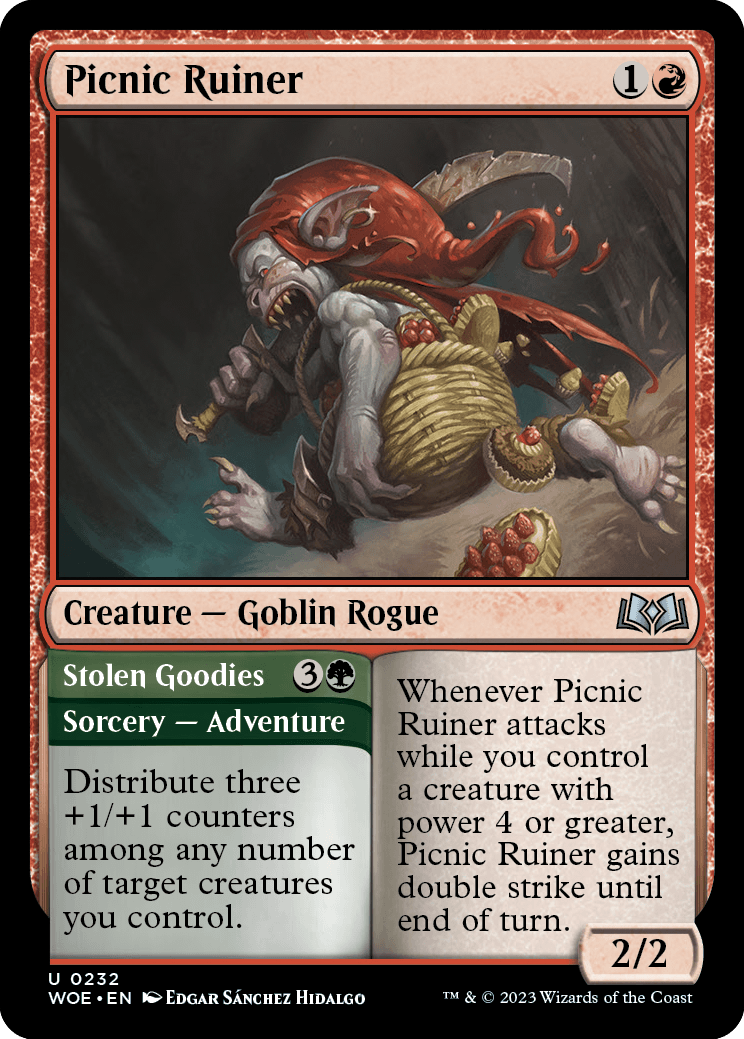
Picnic Ruiner
{1}{R}
Creature — Goblin Rogue
2/2
Whenever Picnic Ruiner attacks while you control a creature with power 4 or greater, Picnic Ruiner gains double strike until end of turn.
//
Stolen Goodies
{3}{G}
Sorcery — Adventure
Distribute three +1/+1 counters among any number of target creatures you control.
- If you controlled a creature with power 4 or greater when you declared Picnic Ruiner as an attacker, it doesn't matter whether you still control one as its ability resolves. Picnic Ruiner will still gain double strike until end of turn.
- You choose how the counters will be distributed as you cast Stolen Goodies. Each target must receive at least one +1/+1 counter.
- If some of the creatures are illegal targets as Stolen Goodies tries to resolve, the original distribution of counters still applies and the counters that would have been put on illegal targets are lost.
- You can cast Stolen Goodies with no targets. If you do, you won't distribute any counters, but you'll still exile it as it resolves, and you'll still be able to cast Picnic Ruiner later.
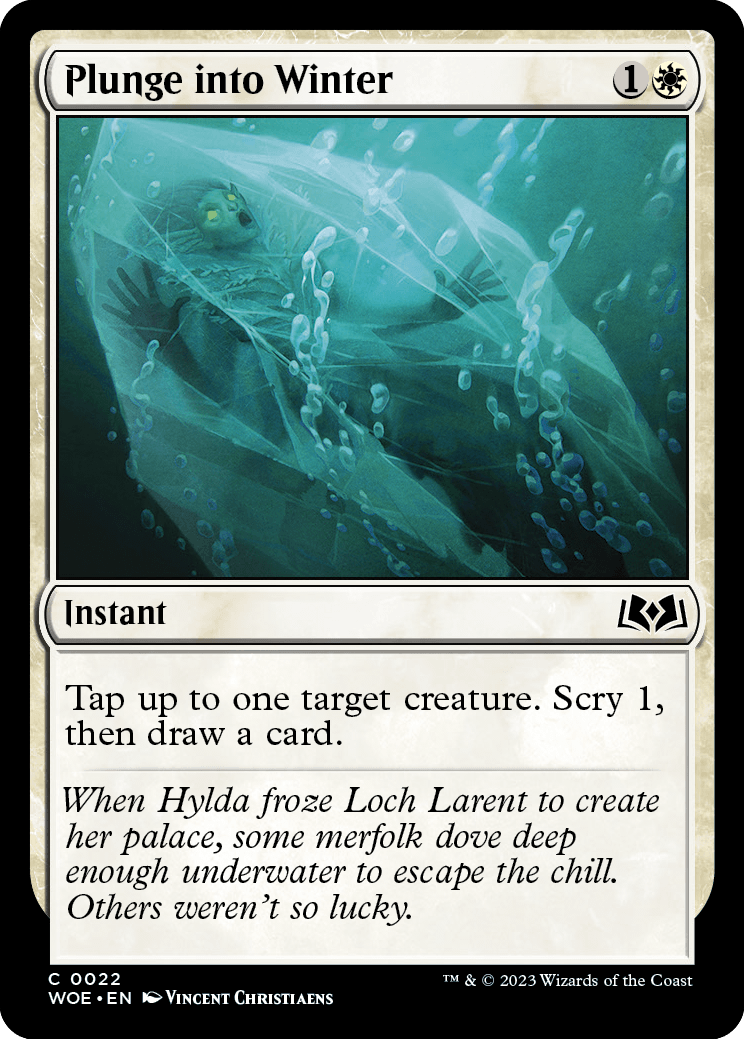
Plunge into Winter
{1}{W}
Instant
Tap up to one target creature. Scry 1, then draw a card.
- You can cast Plunge into Winter without a target just to scry 1 and draw a card. However, if you do choose a target, and that target is illegal at the time Plunge into Winter tries to resolve, the spell won't resolve and none of its effects will happen. You won't scry, and you won't draw a card.
- If the target is already tapped at the time Plunge into Winter resolves, you'll still scry 1 and draw a card.
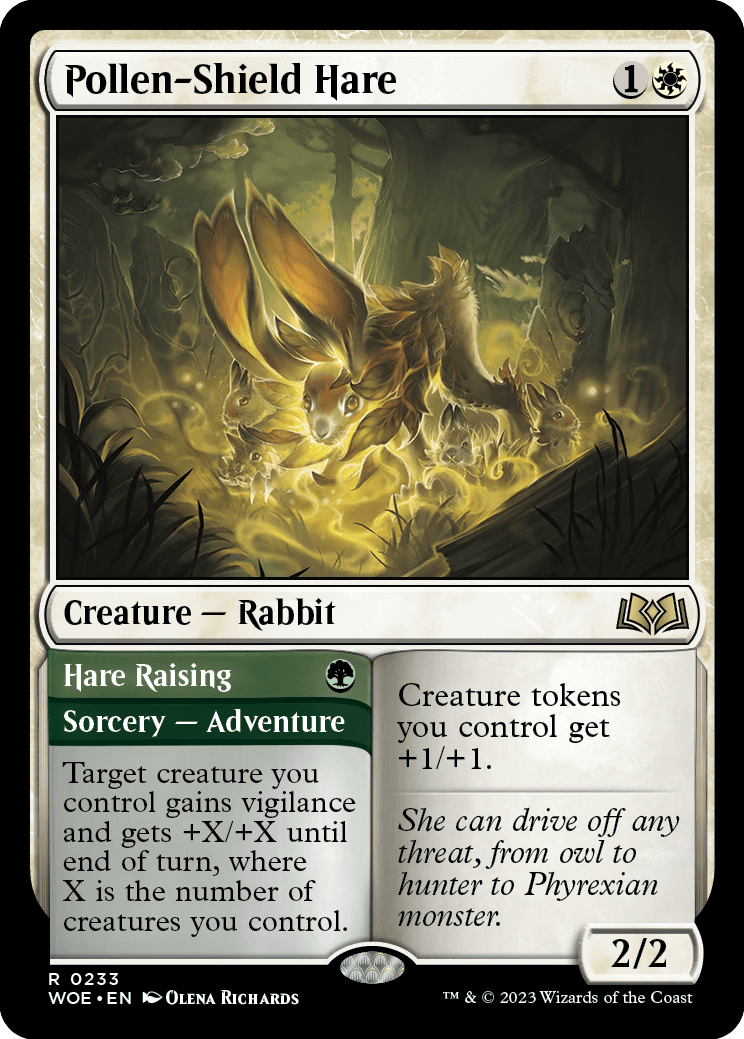
Pollen-Shield Hare
{1}{W}
Creature — Rabbit
2/2
Creature tokens you control get +1/+1.
//
Hare Raising
{G}
Sorcery — Adventure
Target creature you control gains vigilance and gets +X/+X until end of turn, where X is the number of creatures you control.
- The value of X is determined only once, as Hare Raising resolves. If the number of creatures you control changes after that time, it won't change the bonus granted.
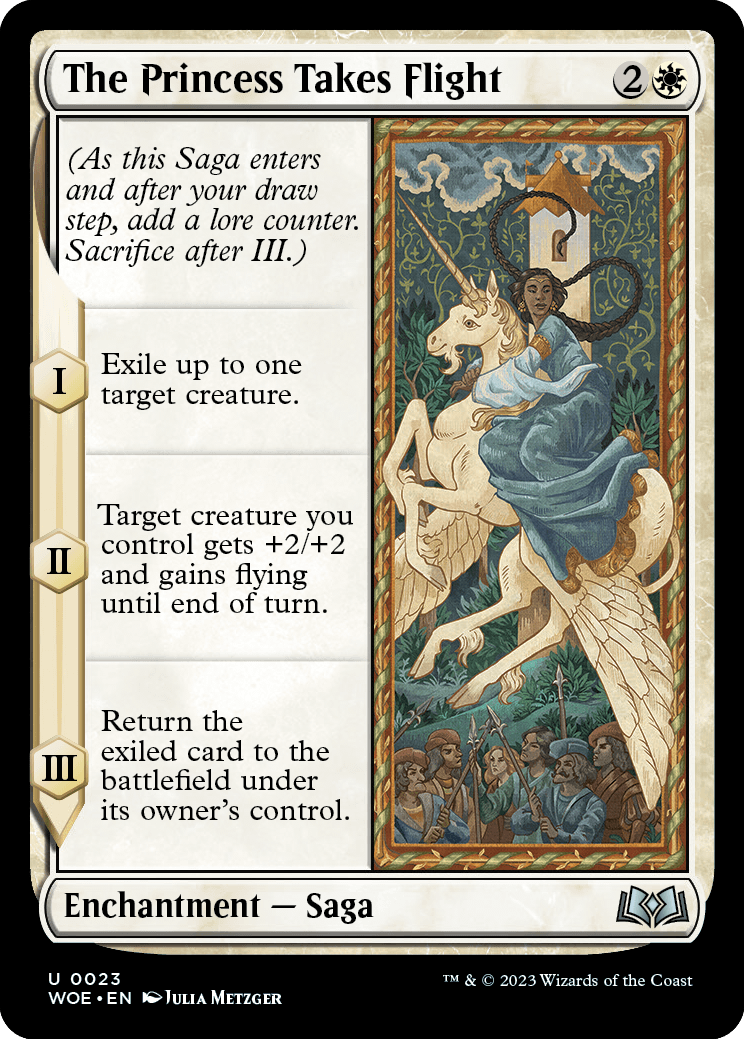
The Princess Takes Flight
{2}{W}
Enchantment — Saga
(As this Saga enters and after your draw step, add a lore counter. Sacrifice after III.)
I — Exile up to one target creature.
II — Target creature you control gets +2/+2 and gains flying until end of turn.
III — Return the exiled card to the battlefield under its owner's control.
- If The Princess Takes Flight's first chapter ability exiled more than one creature (usually because the ability was copied), its third chapter ability will return all of the exiled cards to the battlefield under their owners' control.
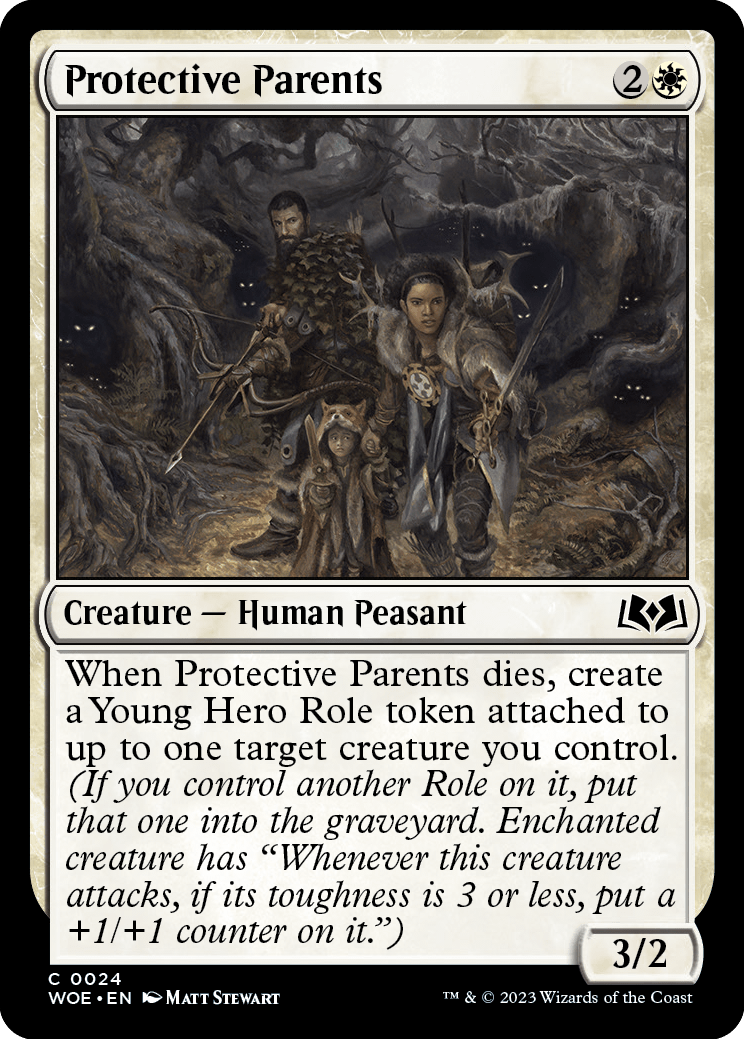
Protective Parents
{2}{W}
Creature — Human Peasant
3/2
When Protective Parents dies, create a Young Hero Role token attached to up to one target creature you control. (If you control another Role on it, put that one into the graveyard. Enchanted creature has "Whenever this creature attacks, if its toughness is 3 or less, put a +1/+1 counter on it.")
- If you don't choose a target for Protective Parents's ability, the Young Hero Role token won't be created.

Questing Druid
{1}{G}
Creature — Human Druid
1/1
Whenever you cast a spell that's white, blue, black, or red, put a +1/+1 counter on Questing Druid.
//
Seek the Beast
{1}{R}
Instant — Adventure
Exile the top two cards of your library. Until your next end step, you may play those cards.
- If you cast a spell that's more than one of the listed colors, Questing Druid's ability still triggers only once.
- You pay all costs and follow all normal timing rules for cards played from exile with Seek the Beast. For example, if the exiled card is a land card, you may play it only during your main phase while the stack is empty.

Raging Battle Mouse
{1}{R}
Creature — Mouse
2/1
The second spell you cast each turn costs {1} less to cast.
Celebration — At the beginning of combat on your turn, if two or more nonland permanents entered the battlefield under your control this turn, target creature you control gets +1/+1 until end of turn.
- Spells that were cast before Raging Battle Mouse entered the battlefield count. If Raging Battle Mouse was the first spell you cast this turn, the next spell you cast this turn is your second spell.
- Raging Battle Mouse can't reduce its own cost, even if it's the second spell you cast in a turn.
- Raging Battle Mouse's cost-reduction ability doesn't change the mana cost or mana value of any spell. It changes only the total cost you pay.
- Raging Battle Mouse's cost-reduction ability can't reduce the amount of colored mana you pay for a spell. It reduces only the generic mana component of that cost.
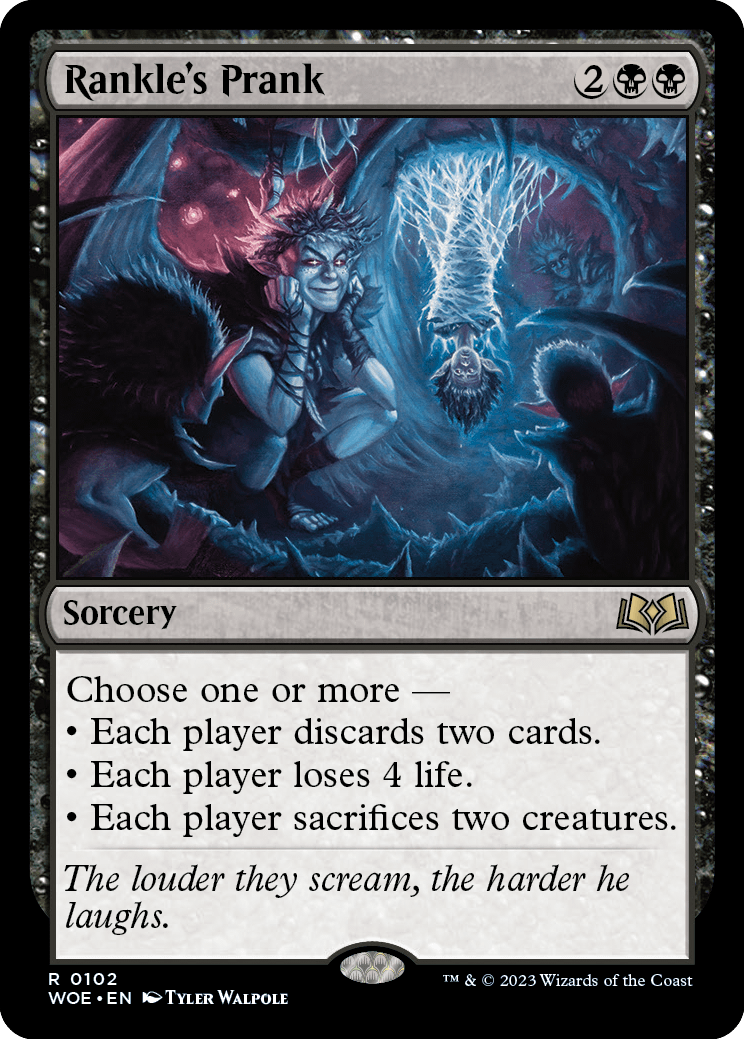
Rankle's Prank
{2}{B}{B}
Sorcery
Choose one or more —
• Each player discards two cards.
• Each player loses 4 life.
• Each player sacrifices two creatures.
- You can choose a mode even if some or all players will be entirely or partially unaffected.
- As the first mode is performed, first the player whose turn it is chooses two cards in hand without revealing them, then each other player in turn order does the same. Then the chosen cards are discarded at the same time.
- As the third mode is performed, first the player whose turn it is chooses two creatures they control, then each other player in turn order does the same, knowing the choices made before them. Then all the chosen creatures are sacrificed at the same time.
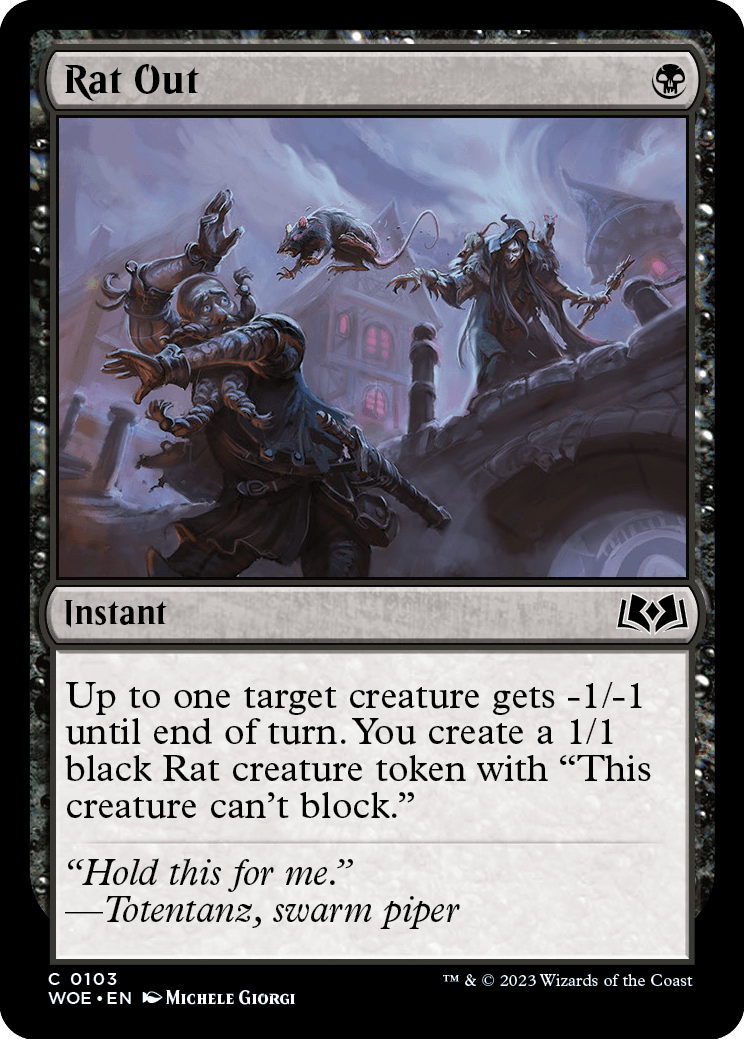
Rat Out
{B}
Instant
Up to one target creature gets -1/-1 until end of turn. You create a 1/1 black Rat creature token with "This creature can't block."
- You can cast Rat Out without a target just to create a Rat token. However, if you do choose a target, and that target is illegal at the time Rat Out tries to resolve, the spell won't resolve and none of its effects will happen. You won't create a Rat token.
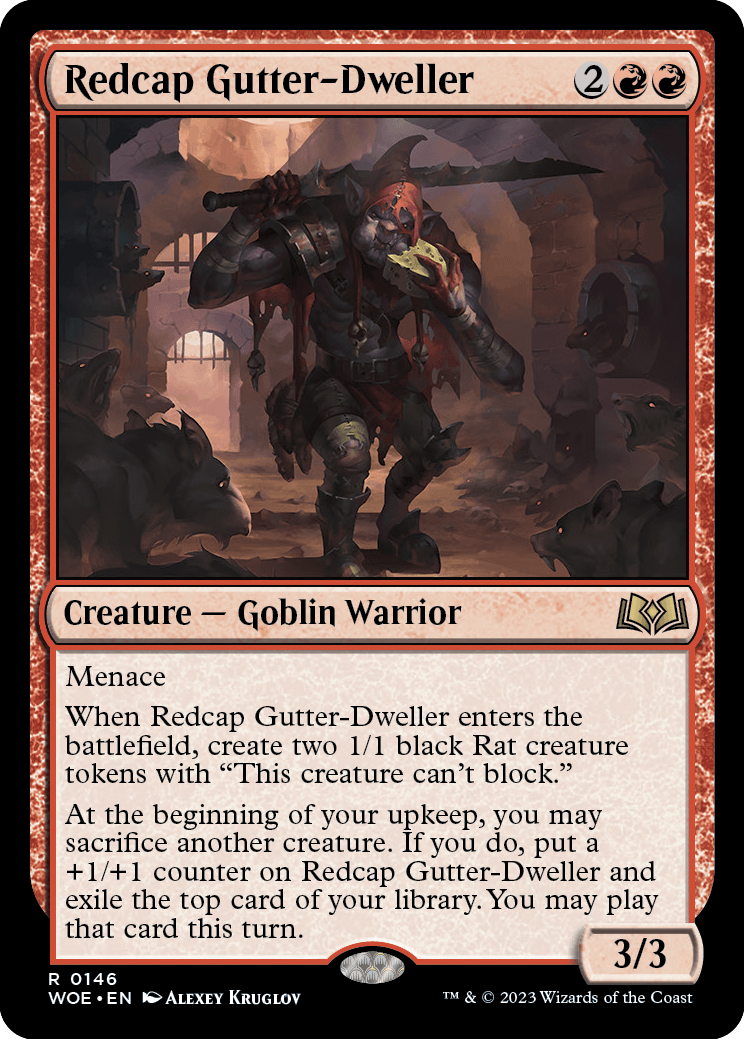
Redcap Gutter-Dweller
{2}{R}{R}
Creature — Goblin Warrior
3/3
Menace
When Redcap Gutter-Dweller enters the battlefield, create two 1/1 black Rat creature tokens with "This creature can't block."
At the beginning of your upkeep, you may sacrifice another creature. If you do, put a +1/+1 counter on Redcap Gutter-Dweller and exile the top card of your library. You may play that card this turn.
- If Redcap Gutter-Dweller leaves the battlefield after its last ability has triggered, you can still sacrifice a creature and exile the top card of your library, even though you won't put a +1/+1 counter on Redcap Gutter-Dweller.
- You pay all costs and follow all normal timing rules for cards played from exile with Redcap Gutter-Dweller. For example, if the exiled card is a land card, you may play it only during your main phase while the stack is empty.
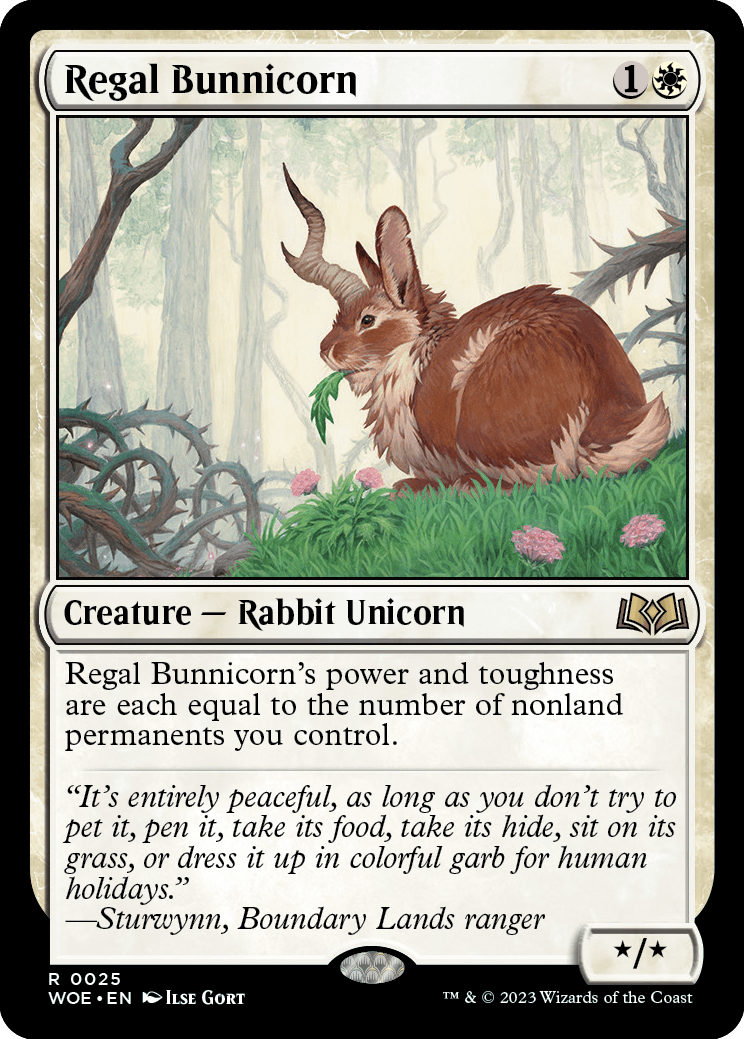
Regal Bunnicorn
{1}{W}
Creature — Rabbit Unicorn
*/*
Regal Bunnicorn's power and toughness are each equal to the number of nonland permanents you control.
- The ability that defines Regal Bunnicorn's power and toughness functions in all zones, not just the battlefield.
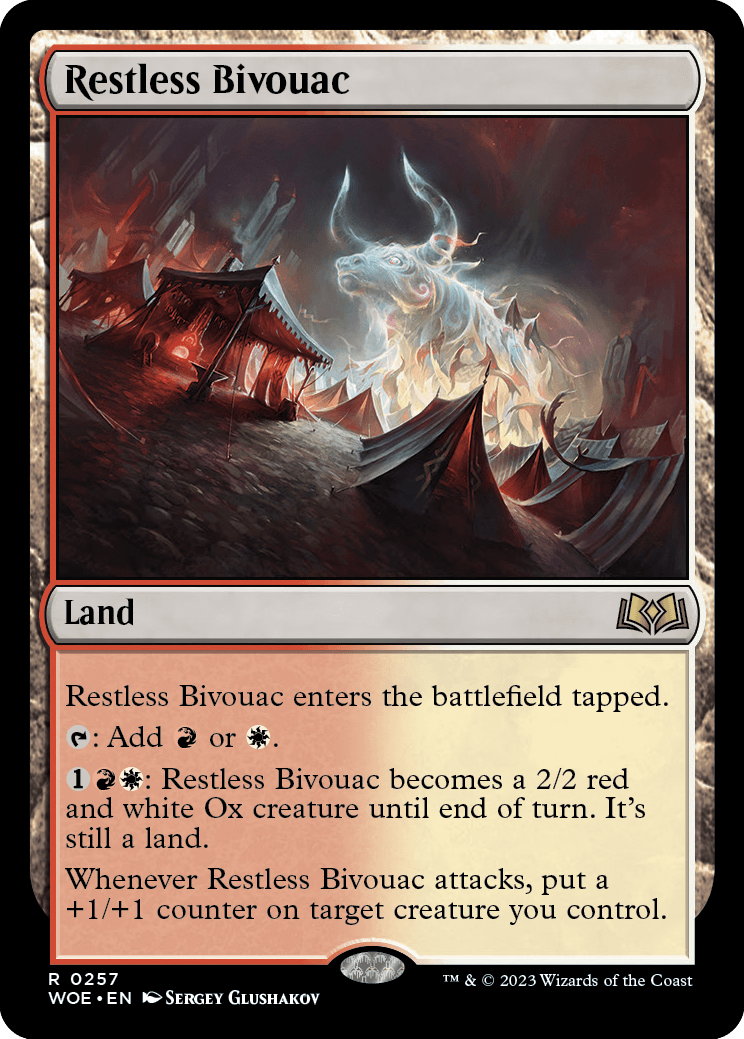
Restless Bivouac
Land
Restless Bivouac enters the battlefield tapped.
{T}: Add {R} or {W}.
{1}{R}{W}: Restless Bivouac becomes a 2/2 red and white Ox creature until end of turn. It's still a land.
Whenever Restless Bivouac attacks, put a +1/+1 counter on target creature you control.
- Counters on Restless Bivouac remain on it when it stops being a creature. If it becomes a creature later, they'll apply to it.
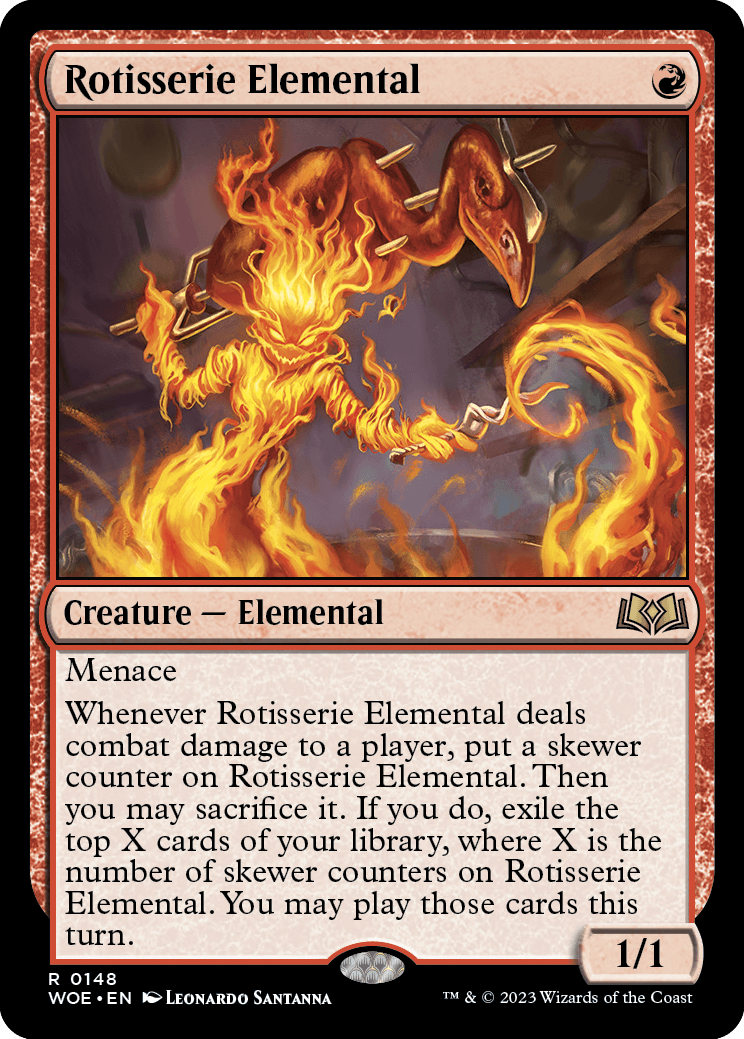
Rotisserie Elemental
{R}
Creature — Elemental
1/1
Menace
Whenever Rotisserie Elemental deals combat damage to a player, put a skewer counter on Rotisserie Elemental. Then you may sacrifice it. If you do, exile the top X cards of your library, where X is the number of skewer counters on Rotisserie Elemental. You may play those cards this turn.
- You choose whether to sacrifice Rotisserie Elemental as its triggered ability resolves. No player may respond between the time you sacrifice it and the time you exile cards from the top of your library.
- You pay all costs and follow all normal timing rules for cards played from exile this way. For example, if the exiled card is a land card, you may play it only during your main phase while the stack is empty.
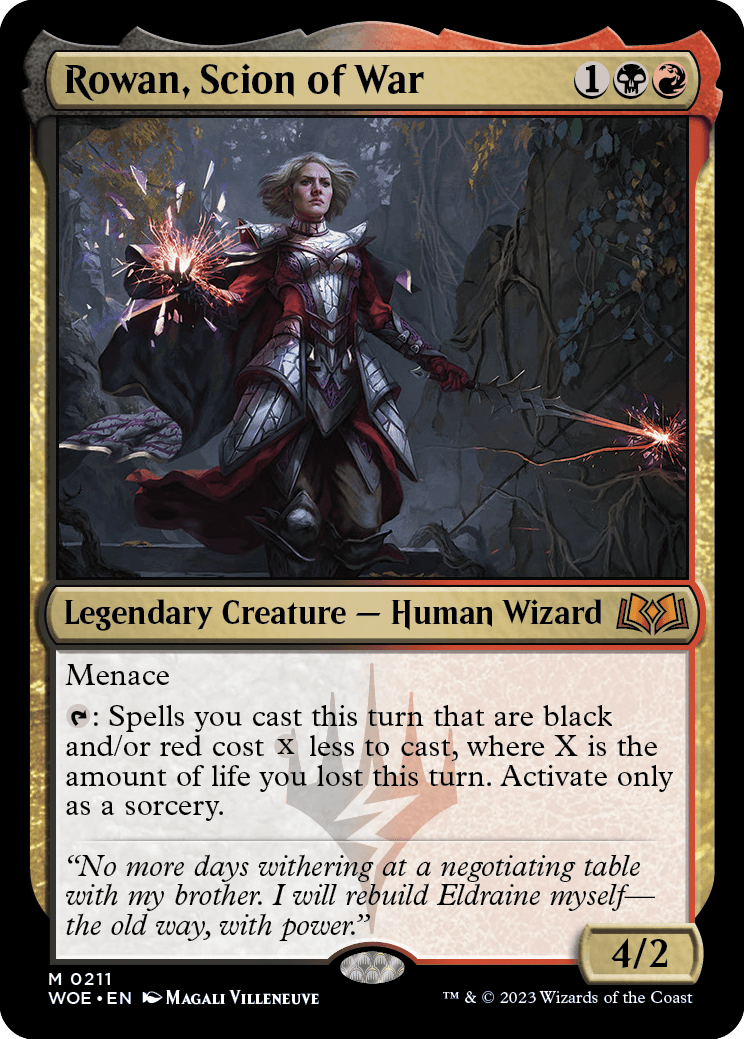
Rowan, Scion of War
{1}{B}{R}
Legendary Creature — Human Wizard
4/2
Menace
{T}: Spells you cast this turn that are black and/or red cost {X} less to cast, where X is the amount of life you lost this turn. Activate only as a sorcery.
- The value of X is determined only once, at the time Rowan, Scion of War's activated ability resolves.
- Rowan's activated ability doesn't change the mana cost or mana value of any spell. It changes only the total cost you pay.
- Rowan's activated ability can't reduce the amount of colored mana you pay for a spell. It reduces only the generic mana component of that cost.
- Rowan's activated ability counts the total amount of life you lost without taking into account any life you gained during that turn. For example, if you gained 3 life and lost 3 life earlier in the turn, the cost of black and/or red spells you cast this turn will be reduced by {3}.
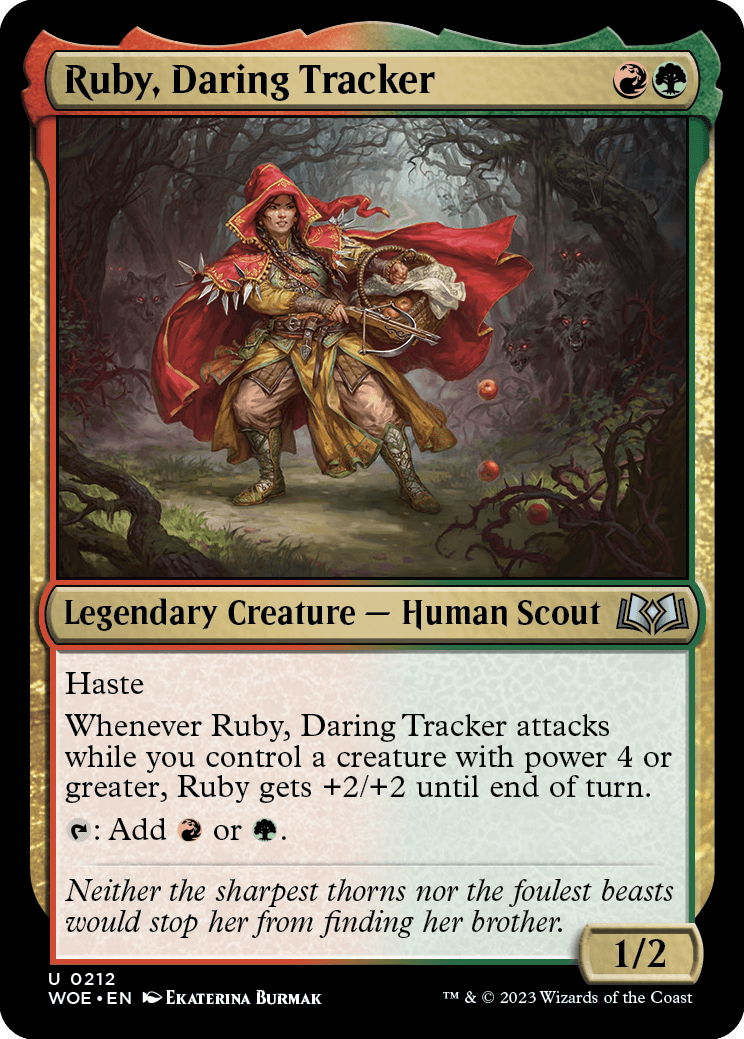
Ruby, Daring Tracker
{R}{G}
Legendary Creature — Human Scout
1/2
Haste
Whenever Ruby, Daring Tracker attacks while you control a creature with power 4 or greater, Ruby gets +2/+2 until end of turn.
{T}: Add {R} or {G}.
- If you controlled a creature with power 4 or greater when you declared Ruby as an attacker, it doesn't matter whether you still control one as her triggered ability resolves. Ruby will still get +2/+2 until end of turn.
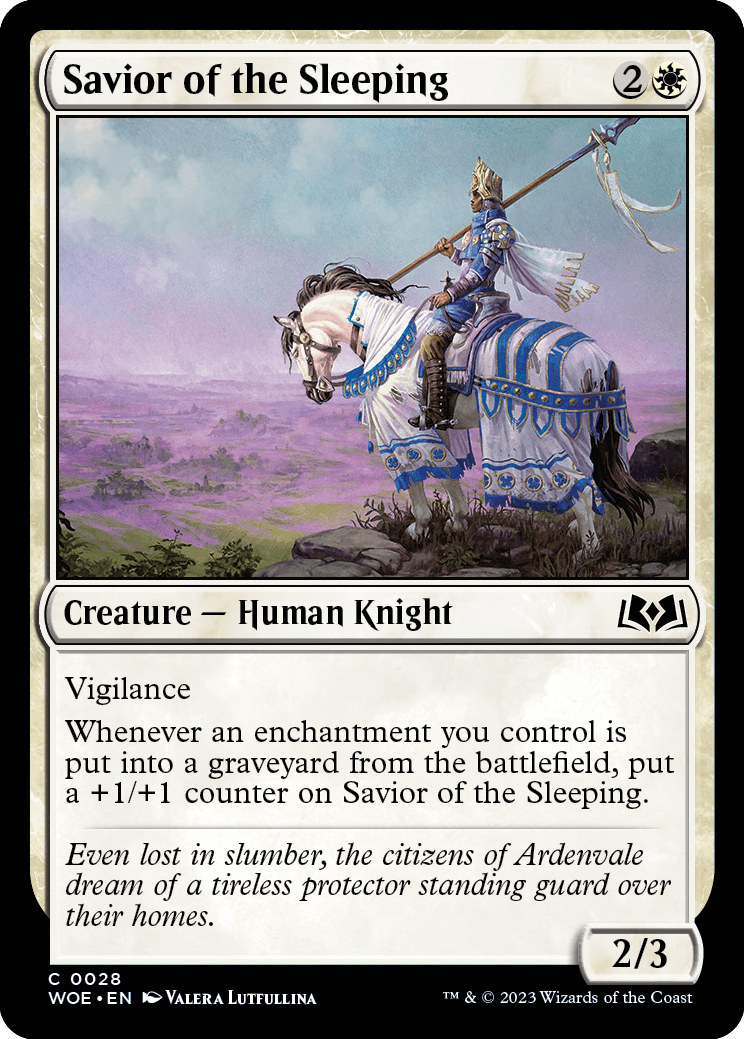
Savior of the Sleeping
{2}{W}
Creature — Human Knight
2/3
Vigilance
Whenever an enchantment you control is put into a graveyard from the battlefield, put a +1/+1 counter on Savior of the Sleeping.
- Enchantment tokens (such as Roles) that are sacrificed, destroyed, or would otherwise go to the graveyard are put into their owner's graveyard before ceasing to exist. If you controlled the token, Savior of the Sleeping's ability will trigger.
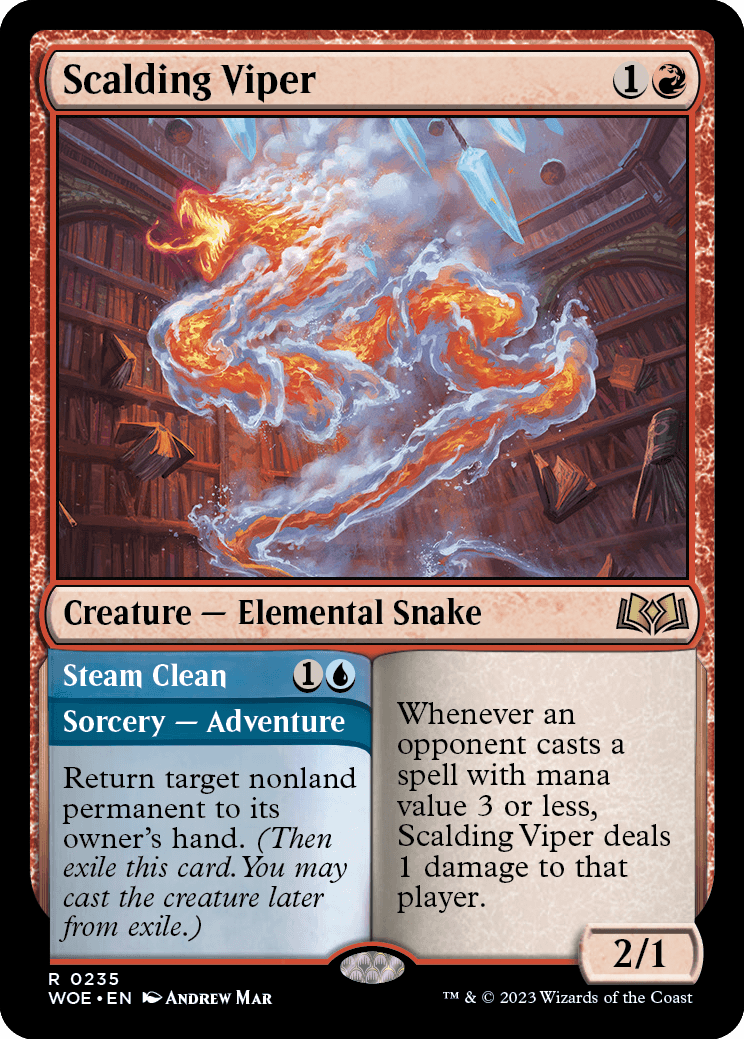
Scalding Viper
{1}{R}
Creature — Elemental Snake
2/1
Whenever an opponent casts a spell with mana value 3 or less, Scalding Viper deals 1 damage to that player.
//
Steam Clean
{1}{U}
Sorcery — Adventure
Return target nonland permanent to its owner's hand. (Then exile this card. You may cast the creature later from exile.)
- If a spell has {X} in its mana cost, use the value chosen for X to determine the mana value of that spell.
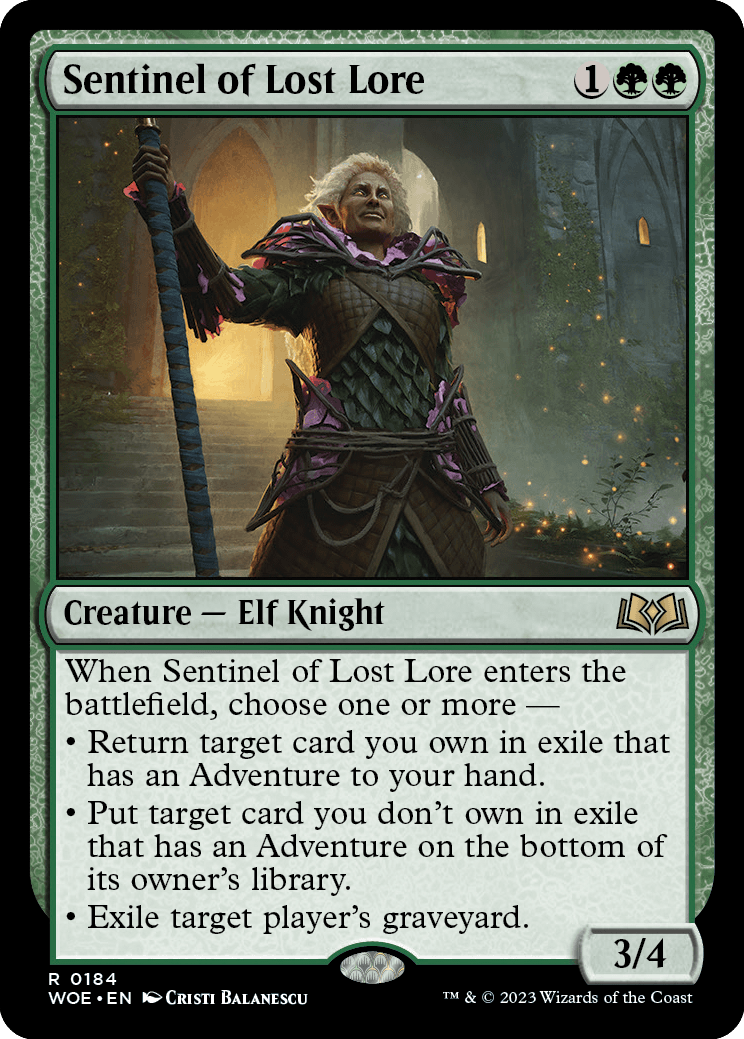
Sentinel of Lost Lore
{1}{G}{G}
Creature — Elf Knight
3/4
When Sentinel of Lost Lore enters the battlefield, choose one or more —
• Return target card you own in exile that has an Adventure to your hand.
• Put target card you don't own in exile that has an Adventure on the bottom of its owner's library.
• Exile target player's graveyard.
- The first and second modes of Sentinel of Lost Lore's ability can target any face-up exiled card that has an Adventure as long as it's owned by an appropriate player. It doesn't matter whether the card was cast as an Adventure.
- You must choose at least one mode if you can. If there are no legal targets available for the first two modes, you must choose the last mode. Notably, the last mode can target any player, even one who has no cards in their graveyard. In the unusual case there are no appropriate cards in exile to target and no player may legally be chosen as a target, the ability is removed from the stack with no effect.
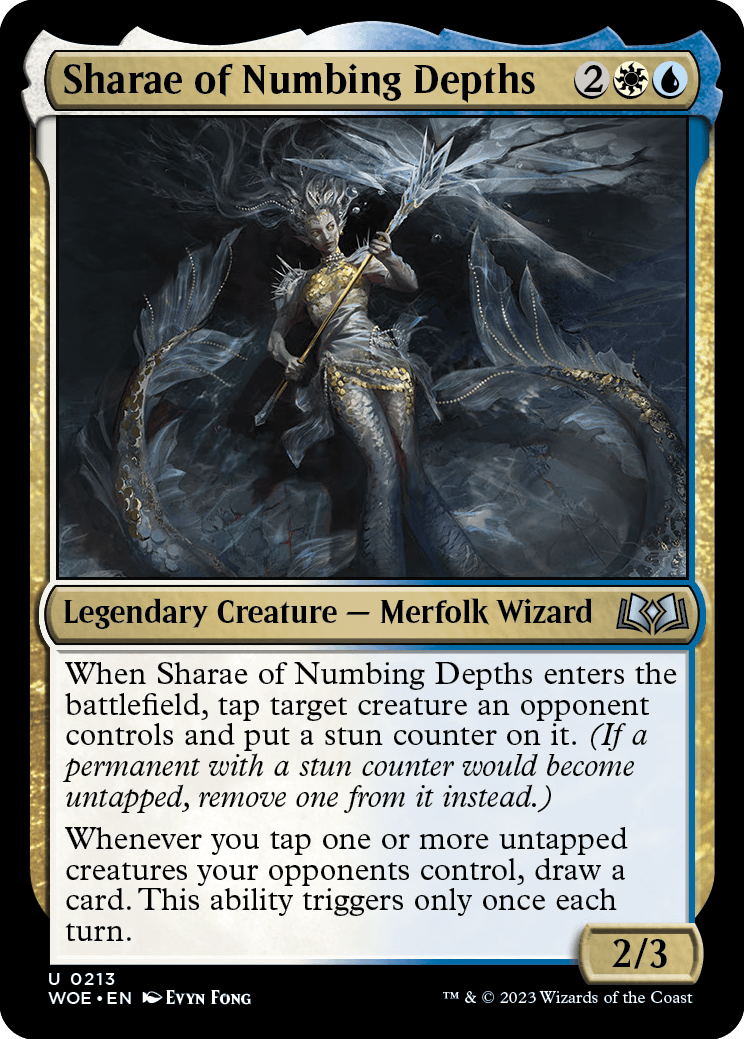
Sharae of Numbing Depths
{2}{W}{U}
Legendary Creature — Merfolk Wizard
2/3
When Sharae of Numbing Depths enters the battlefield, tap target creature an opponent controls and put a stun counter on it. (If a permanent with a stun counter would become untapped, remove one from it instead.)
Whenever you tap one or more untapped creatures your opponents control, draw a card. This ability triggers only once each turn.
- You may target a creature that is already tapped with Sharae's first ability. If the target creature is already tapped as it resolves, you will still put a stun counter on it.
- Sharae of Numbing Depths's last ability will trigger only when an effect instructs you to tap one or more creatures your opponents control. It won't trigger if a spell or ability you control instructs an opponent to tap a creature they control. For example, if you control Tangle Wire and an opponent taps an untapped creature they control as part of the resolution of Tangle Wire's triggered ability, Sharae's ability won't trigger.
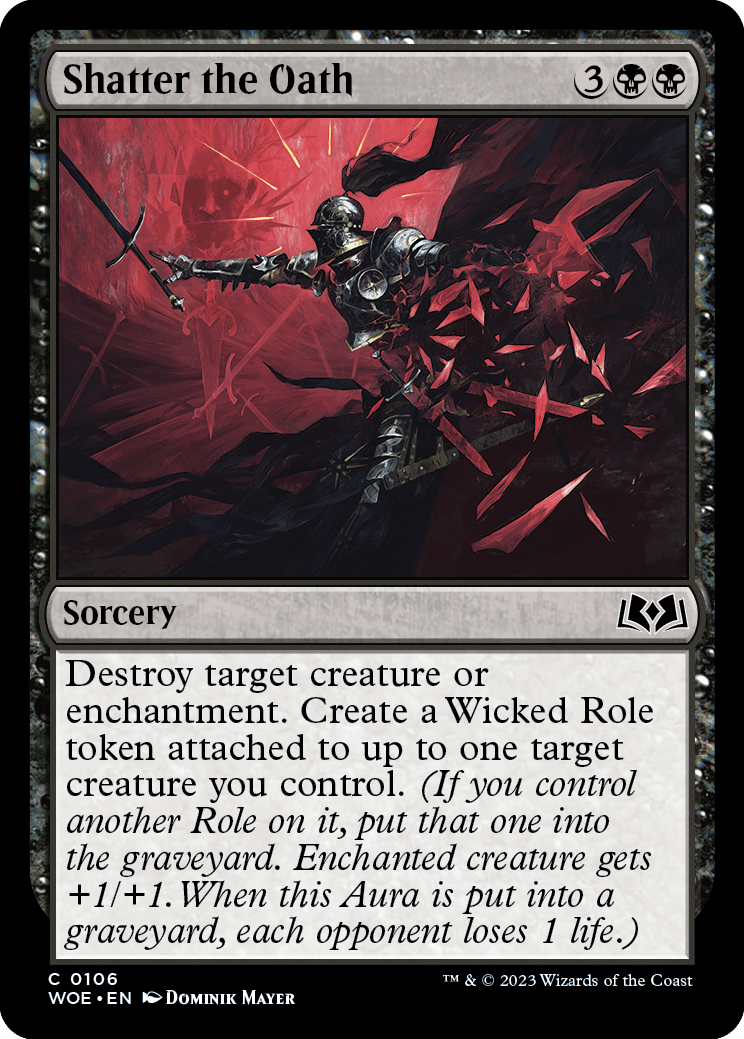
Shatter the Oath
{3}{B}{B}
Sorcery
Destroy target creature or enchantment. Create a Wicked Role token attached to up to one target creature you control. (If you control another Role on it, put that one into the graveyard. Enchanted creature gets +1/+1. When this Aura is put into a graveyard, each opponent loses 1 life.)
- If you don't choose a second target for Shatter the Oath or that target is illegal as the spell resolves, the Wicked Role token won't be created.
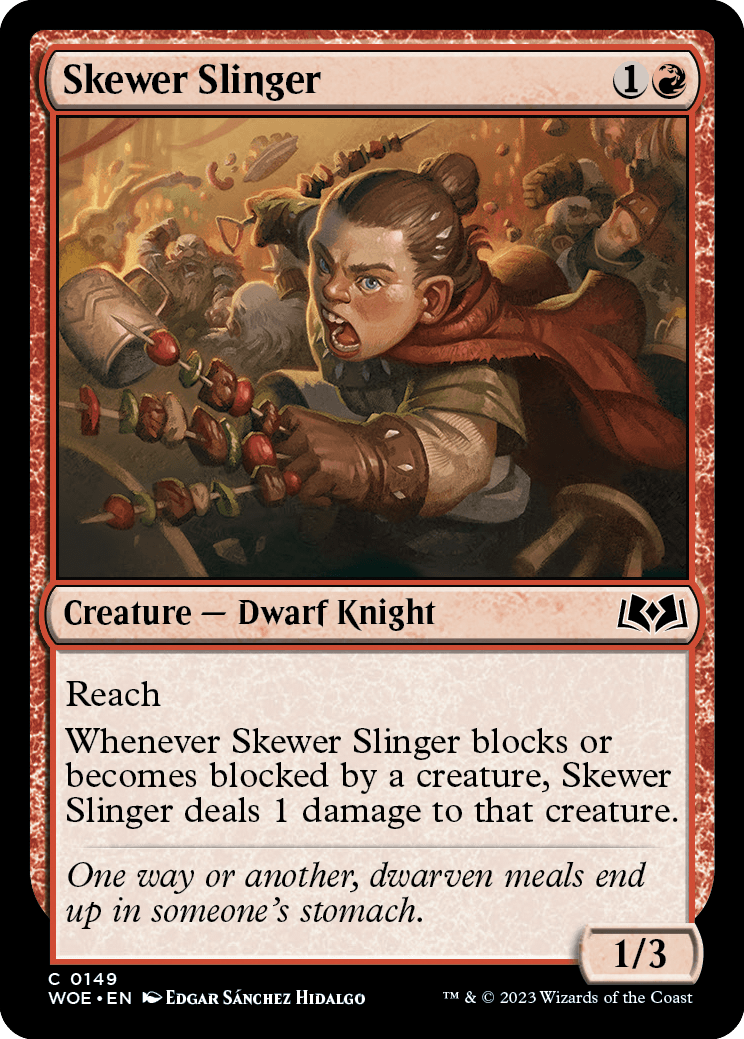
Skewer Slinger
{1}{R}
Creature — Dwarf Knight
1/3
Reach
Whenever Skewer Slinger blocks or becomes blocked by a creature, Skewer Slinger deals 1 damage to that creature.
- The triggered ability triggers once for each creature blocking or blocked by Skewer Slinger. The ability resolves and deals damage to that creature before combat damage is dealt. If that damage destroys all creatures blocking Skewer Slinger, it doesn't become unblocked.
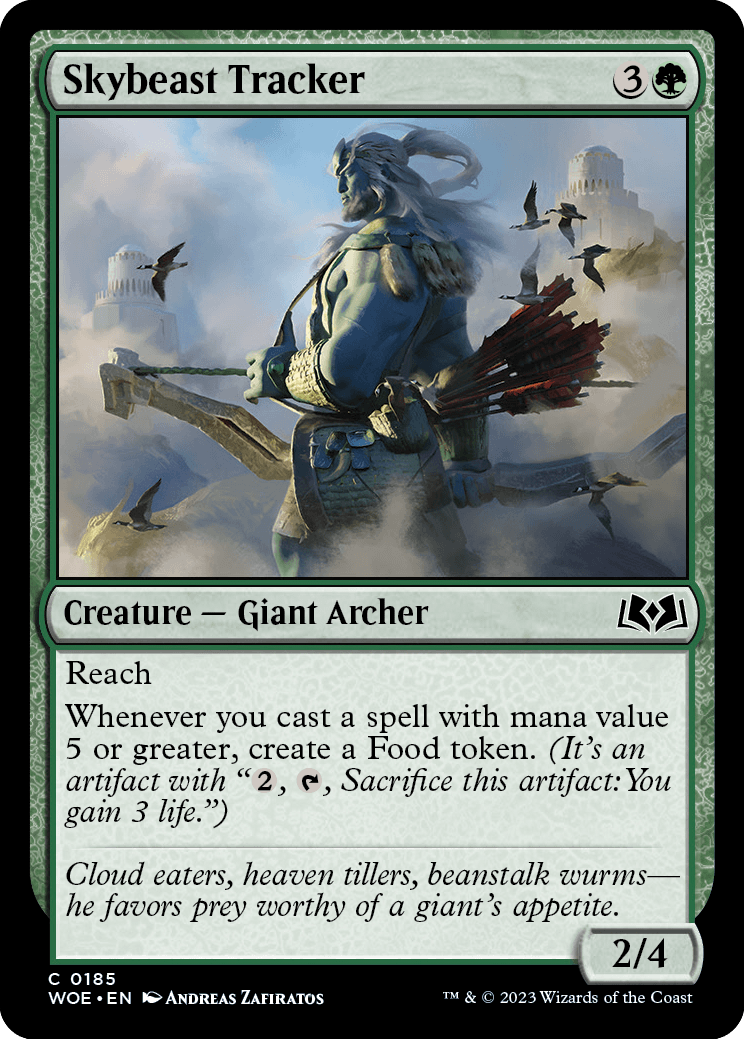
Skybeast Tracker
{3}{G}
Creature — Giant Archer
2/4
Reach
Whenever you cast a spell with mana value 5 or greater, create a Food token. (It's an artifact with "{2}, {T}, Sacrifice this artifact: You gain 3 life.")
- If a spell has {X} in its mana cost, use the value chosen for that X to determine the mana value of that spell.
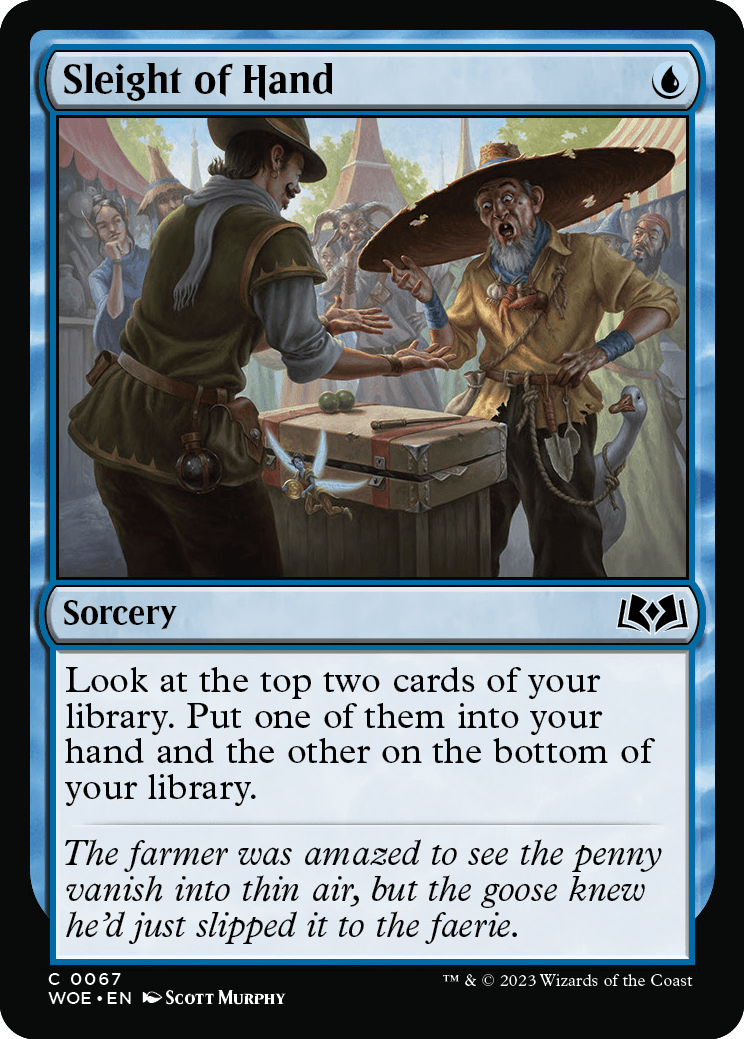
Sleight of Hand
{U}
Sorcery
Look at the top two cards of your library. Put one of them into your hand and the other on the bottom of your library.
- If there is only one card in your library, you put it into your hand.
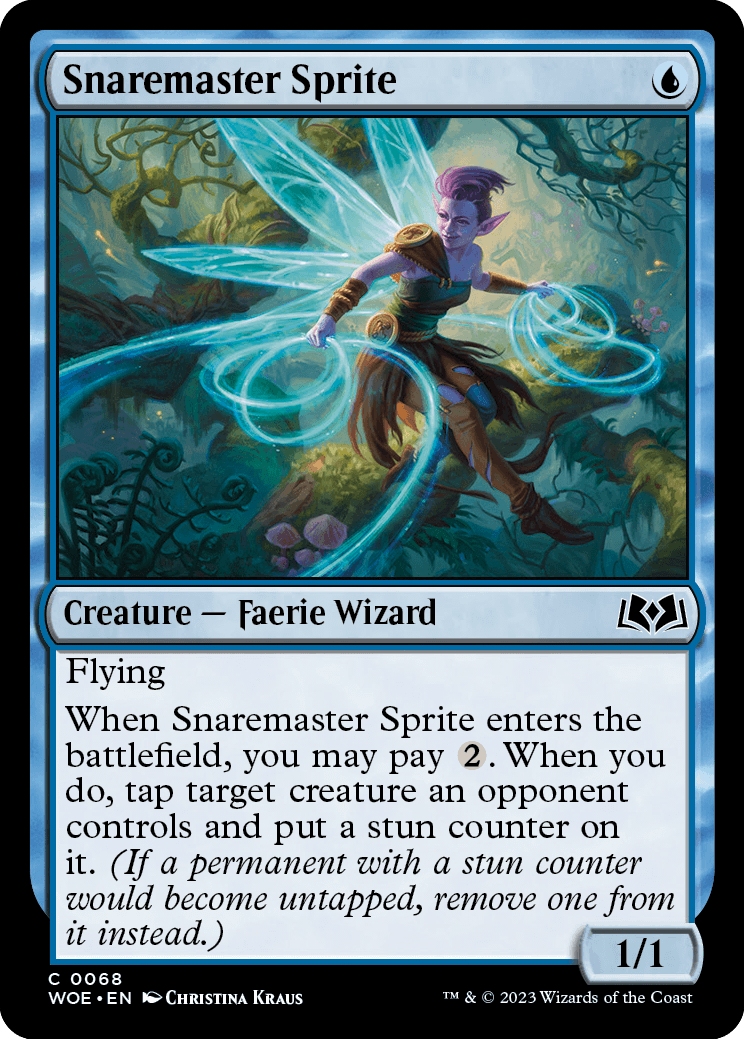
Snaremaster Sprite
{U}
Creature — Faerie Wizard
1/1
Flying
When Snaremaster Sprite enters the battlefield, you may pay {2}. When you do, tap target creature an opponent controls and put a stun counter on it. (If a permanent with a stun counter would become untapped, remove one from it instead.)
- You don't choose a target for Snaremaster Sprite's ability at the time it triggers. Rather, a second "reflexive" ability triggers when you pay {2} this way. You choose a target for that ability as it goes on the stack. Each player may respond to this triggered ability as normal.
- You may target a creature that is already tapped with the reflexive triggered ability. If the target creature is already tapped as the ability resolves, you will still put a stun counter on it.
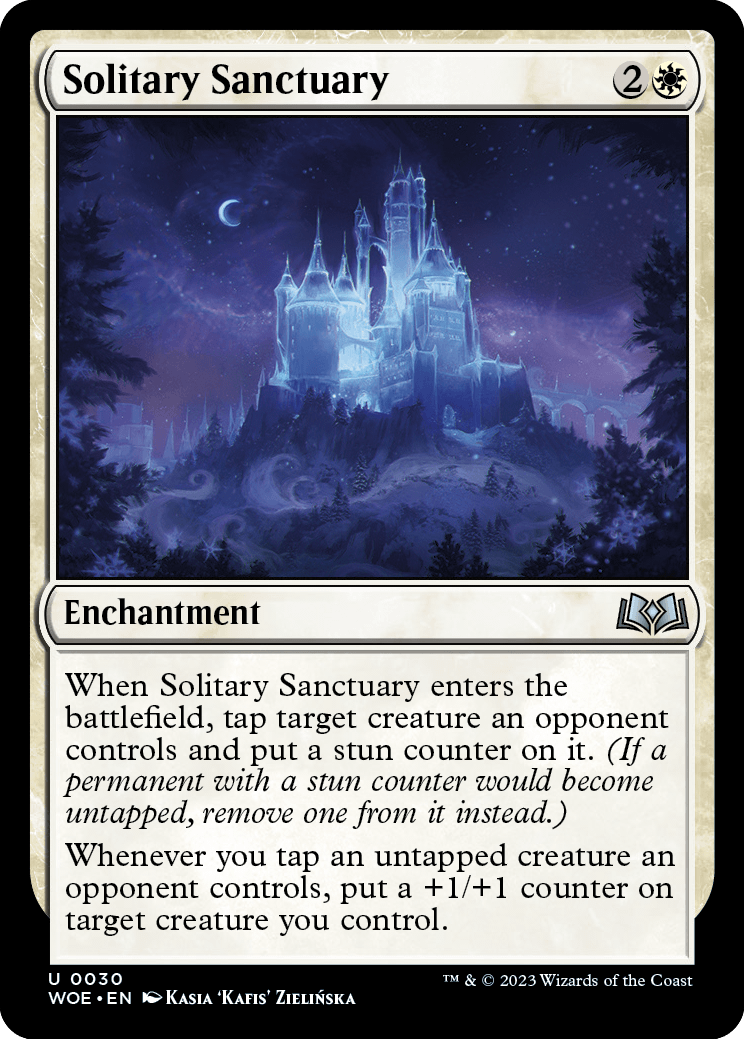
Solitary Sanctuary
{2}{W}
Enchantment
When Solitary Sanctuary enters the battlefield, tap target creature an opponent controls and put a stun counter on it. (If a permanent with a stun counter would become untapped, remove one from it instead.)
Whenever you tap an untapped creature an opponent controls, put a +1/+1 counter on target creature you control.
- You may target a creature that is already tapped with Solitary Sanctuary's first ability. If the target creature is already tapped as it resolves, you will still put a stun counter on it.
- Solitary Sanctuary's last ability will trigger only when an effect instructs you to tap an opponent's creature. It won't trigger if a spell or ability you control instructs an opponent to tap a creature they control. For example, if you control Tangle Wire and an opponent taps an untapped creature they control as part of the resolution of Tangle Wire's triggered ability, Solitary Sanctuary's ability won't trigger.
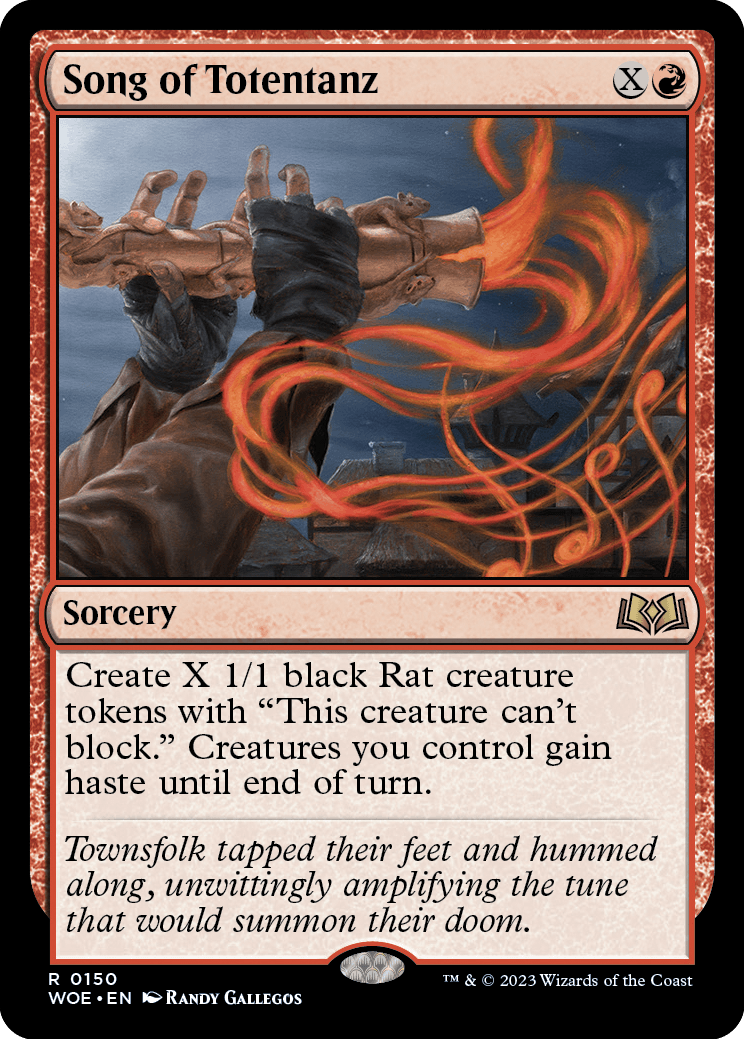
Song of Totentanz
{X}{R}
Sorcery
Create X 1/1 black Rat creature tokens with "This creature can't block." Creatures you control gain haste until end of turn.
- Only creatures you control at the time Song of Totentanz resolves, including the Rat tokens it creates, will gain haste. Creatures you begin to control later in the turn won't be affected.

Spellbook Vendor
{1}{W}
Creature — Human Peasant
2/2
Vigilance
At the beginning of combat on your turn, you may pay {1}. When you do, create a Sorcerer Role token attached to target creature you control. (If you control another Role on it, put that one into the graveyard. Enchanted creature gets +1/+1 and has "Whenever this creature attacks, scry 1.")
- You don't choose a target for Spellbook Vendor's ability at the time it triggers. Rather, a second "reflexive" ability triggers when you pay {1} this way. You choose a target for that ability as it goes on the stack. Each player may respond to this triggered ability as normal.
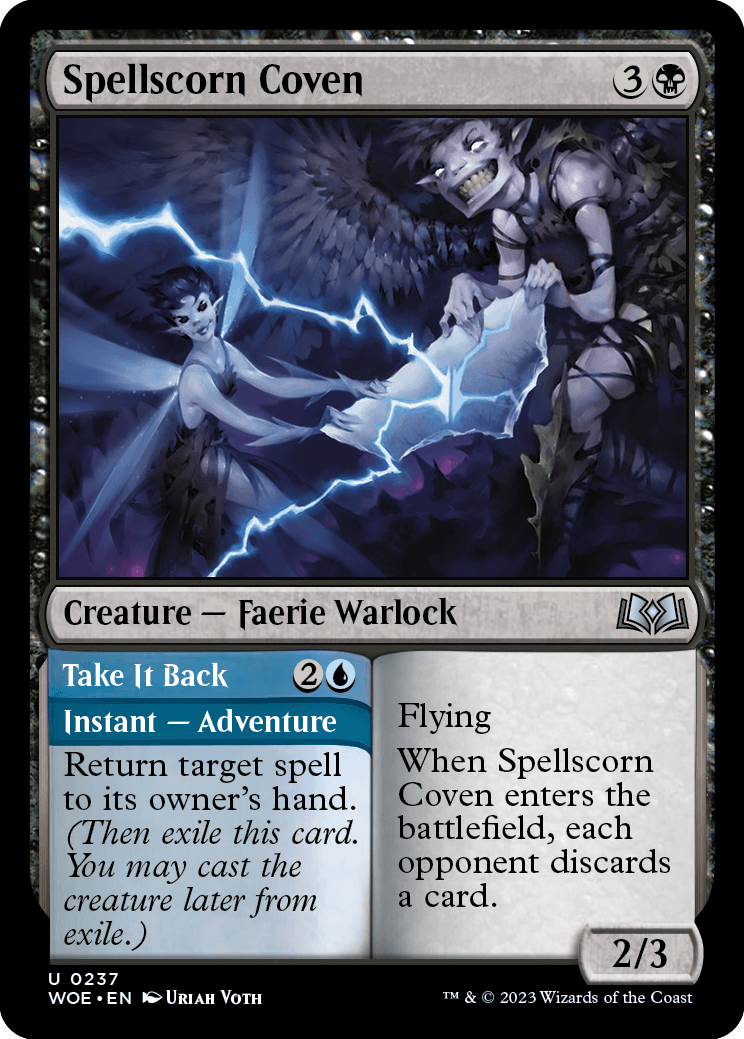
Spellscorn Coven
{3}{B}
Creature — Faerie Warlock
2/3
Flying
When Spellscorn Coven enters the battlefield, each opponent discards a card.
//
Take It Back
{2}{U}
Instant — Adventure
Return target spell to its owner's hand. (Then exile this card. You may cast the creature later from exile.)
- If a spell is returned to its owner's hand, it's removed from the stack and thus will not resolve. The spell isn't countered; it just no longer exists. This works even against a spell that can't be countered.
- If a copy of a spell is returned to its owner's hand, it's moved there, then it will cease to exist as a state-based action. It can't be recast.
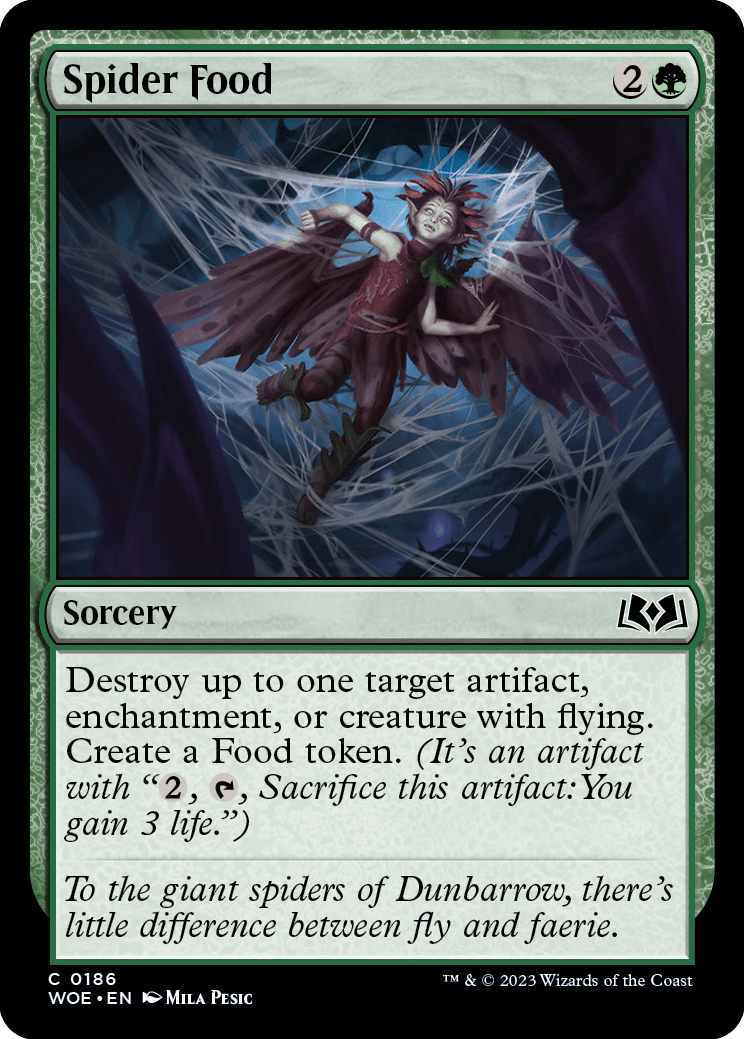
Spider Food
{2}{G}
Sorcery
Destroy up to one target artifact, enchantment, or creature with flying. Create a Food token. (It's an artifact with "{2}, {T}, Sacrifice this artifact: You gain 3 life.")
- You can cast Spider Food without a target just to create a Food token. However, if you do choose a target, and that target is illegal at the time Spider Food tries to resolve, the spell won't resolve and none of its effects will happen. You won't create a Food token.
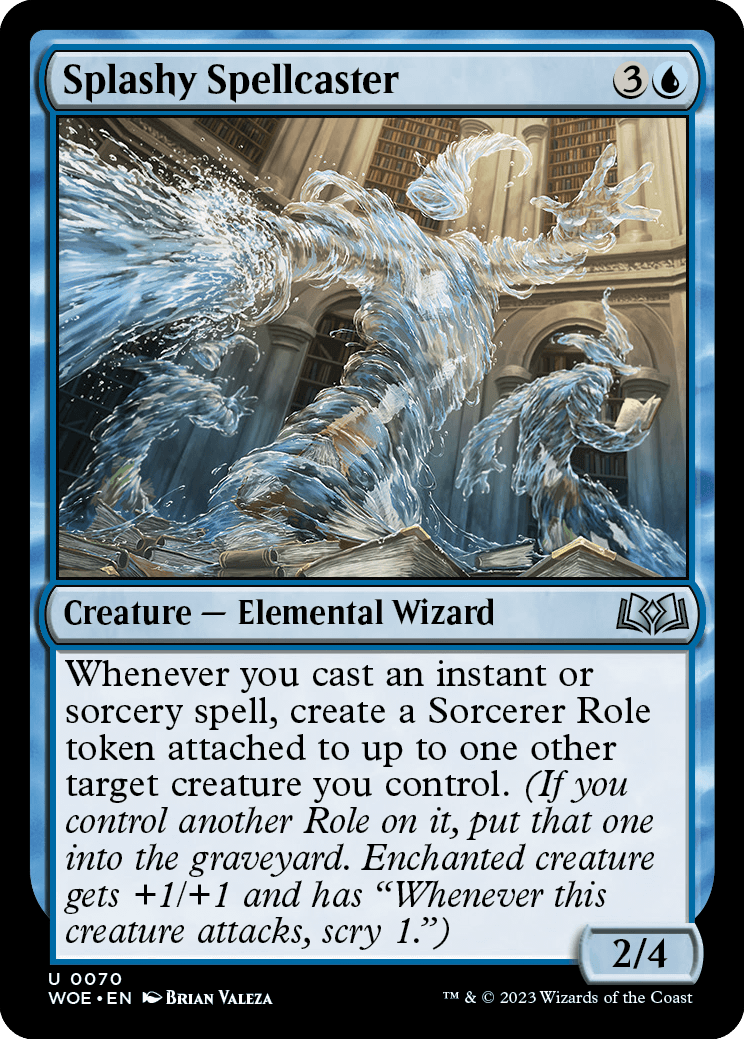
Splashy Spellcaster
{3}{U}
Creature — Elemental Wizard
2/4
Whenever you cast an instant or sorcery spell, create a Sorcerer Role token attached to up to one other target creature you control. (If you control another Role on it, put that one into the graveyard. Enchanted creature gets +1/+1 and has "Whenever this creature attacks, scry 1.")
- If you don't choose a target for Splashy Spellcaster's ability, the Sorcerer Role token won't be created.
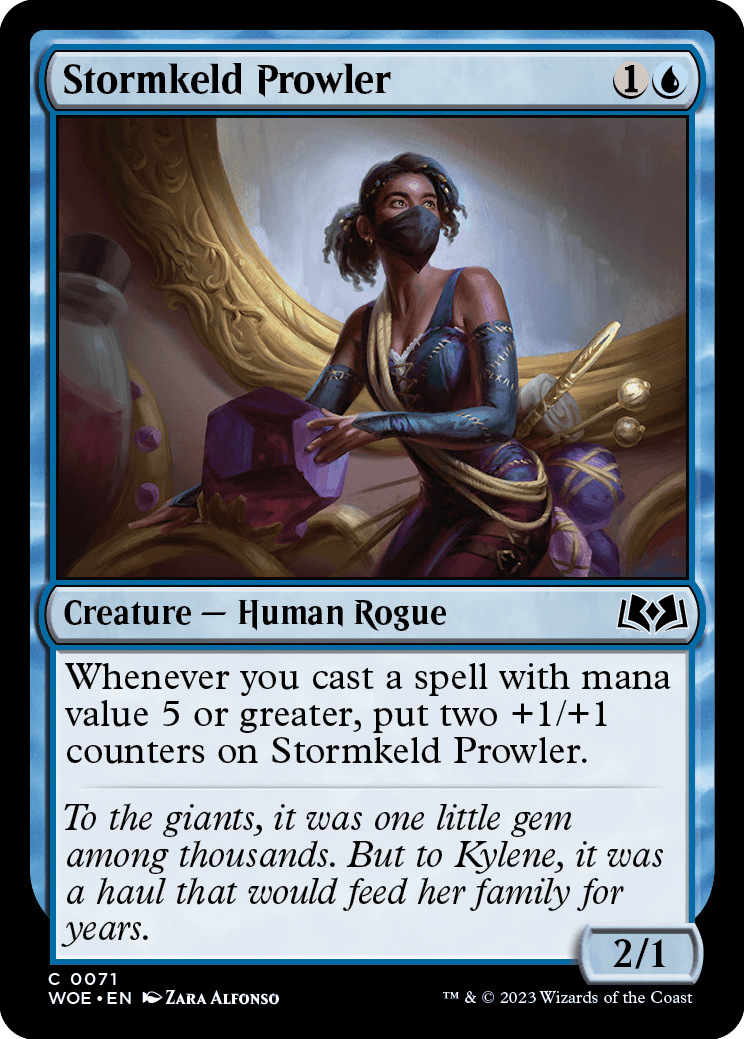
Stormkeld Prowler
{1}{U}
Creature — Human Rogue
2/1
Whenever you cast a spell with mana value 5 or greater, put two +1/+1 counters on Stormkeld Prowler.
- If a spell has {X} in its mana cost, use the value chosen for that X to determine the mana value of that spell.
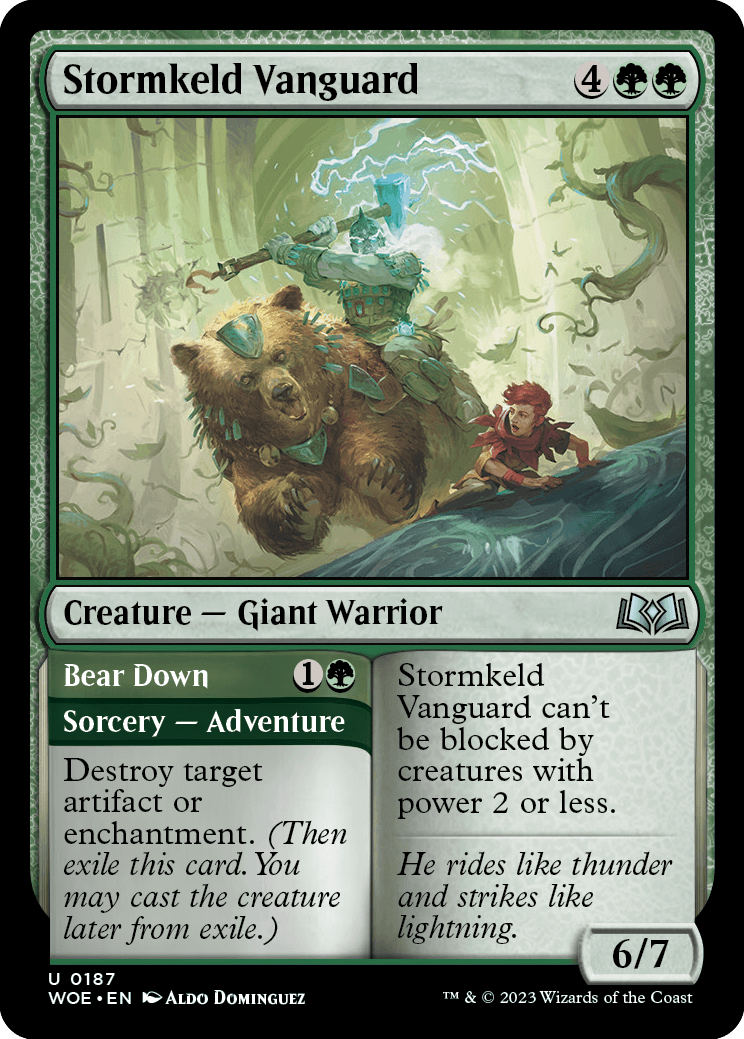
Stormkeld Vanguard
{4}{G}{G}
Creature — Giant Warrior
6/7
Stormkeld Vanguard can't be blocked by creatures with power 2 or less.
//
Bear Down
{1}{G}
Sorcery — Adventure
Destroy target artifact or enchantment. (Then exile this card. You may cast the creature later from exile.)
- Once Stormkeld Vanguard has become blocked, reducing the power of a creature blocking it to 2 or less won't cause it to become unblocked.
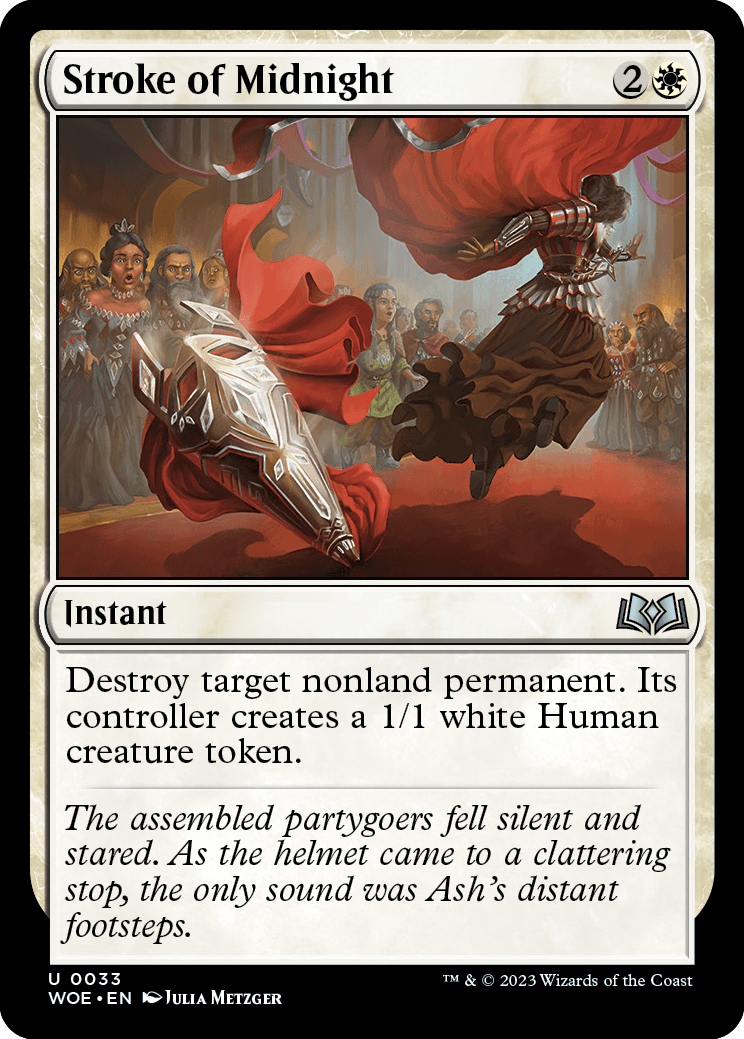
Stroke of Midnight
{2}{W}
Instant
Destroy target nonland permanent. Its controller creates a 1/1 white Human creature token.
- If the target permanent is an illegal target by the time Stroke of Midnight tries to resolve, the spell doesn't resolve. No player creates a Human token. If the target is legal but not destroyed (most likely because it has indestructible), its controller does create a Human token.
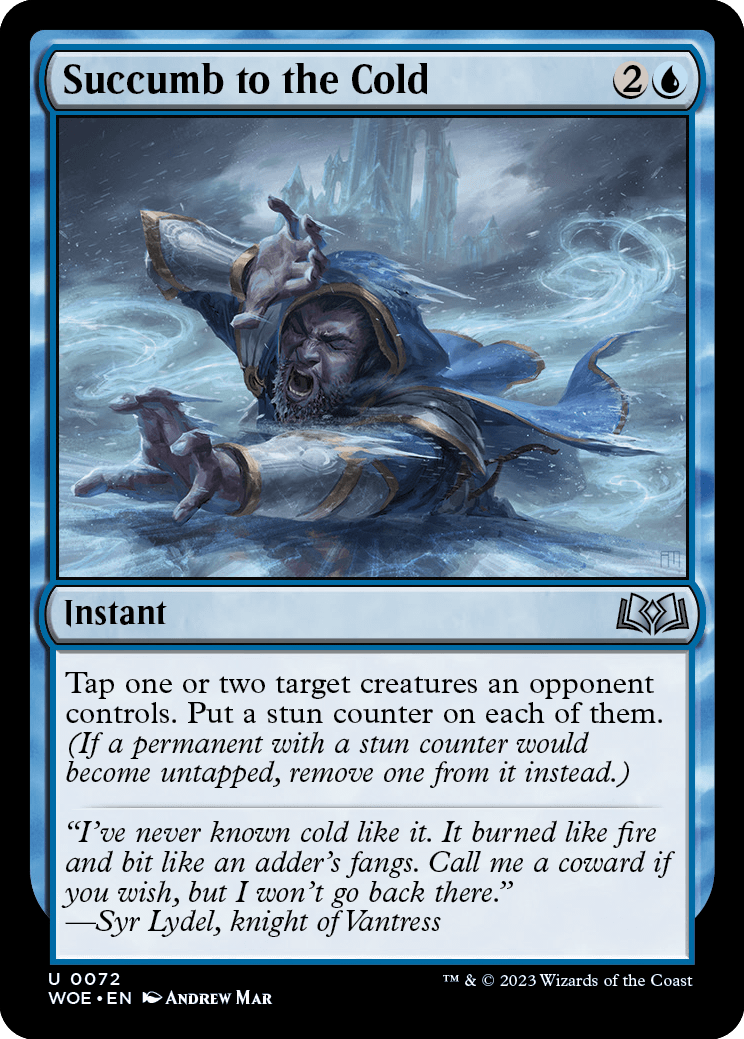
Succumb to the Cold
{2}{U}
Instant
Tap one or two target creatures an opponent controls. Put a stun counter on each of them. (If a permanent with a stun counter would become untapped, remove one from it instead.)
- You may target creatures that are already tapped with Succumb to the Cold. If a target creature is already tapped as it resolves, you will still put a stun counter on it.
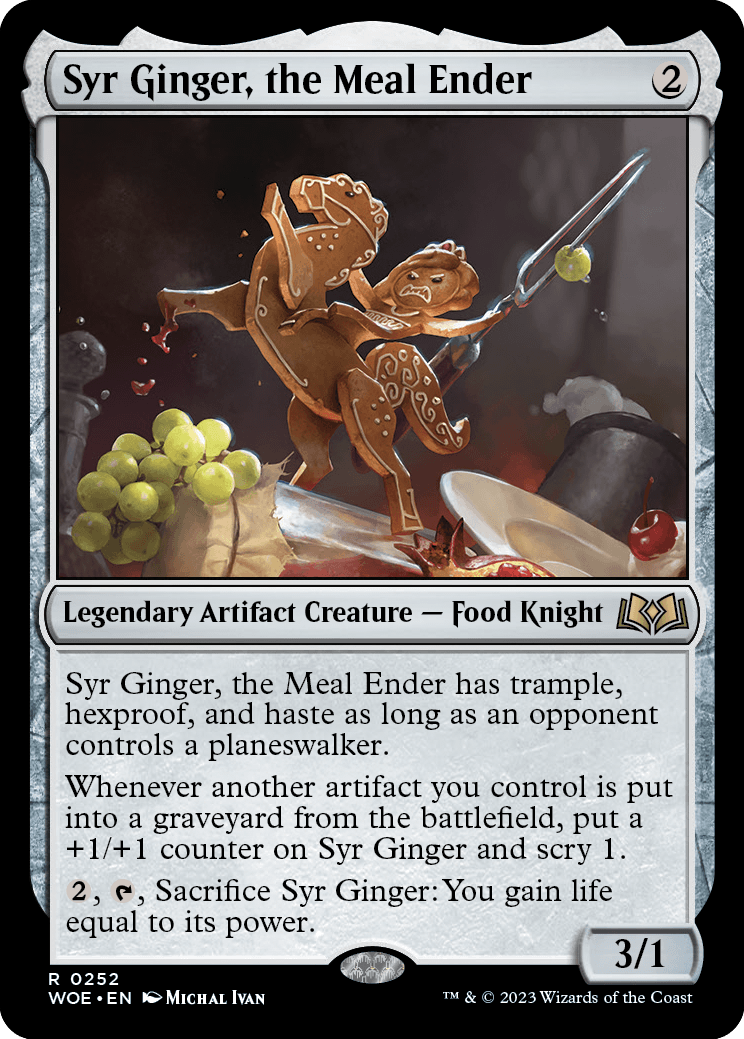
Syr Ginger, the Meal Ender
{2}
Legendary Artifact Creature — Food Knight
3/1
Syr Ginger, the Meal Ender has trample, hexproof, and haste as long as an opponent controls a planeswalker.
Whenever another artifact you control is put into a graveyard from the battlefield, put a +1/+1 counter on Syr Ginger and scry 1.
{2}, {T}, Sacrifice Syr Ginger: You gain life equal to its power.
- For Syr Ginger's last ability, use its power from when it was last on the battlefield to determine how much life is gained. If that power was 0 or less, you gain no life.
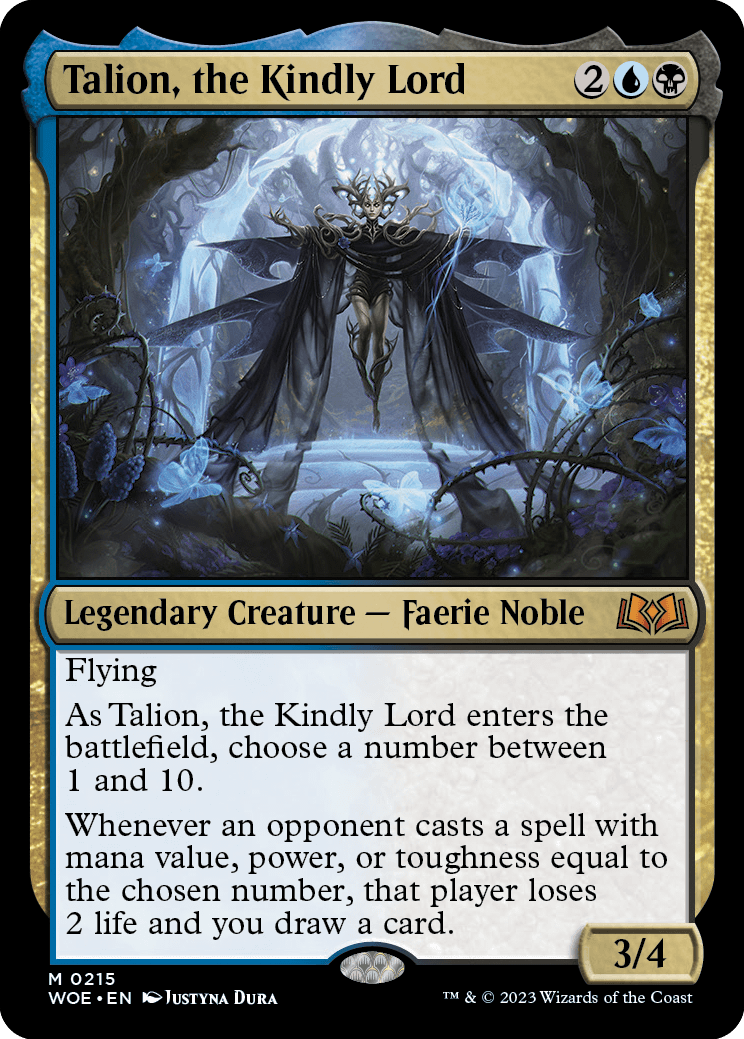
Talion, the Kindly Lord
{2}{U}{B}
Legendary Creature — Faerie Noble
3/4
Flying
As Talion, the Kindly Lord enters the battlefield, choose a number between 1 and 10.
Whenever an opponent casts a spell with mana value, power, or toughness equal to the chosen number, that player loses 2 life and you draw a card.
- The numbers you may choose include 1 and 10.
- Effects that increase or reduce the cost to cast a spell don't affect that spell's mana value.
- For spells with {X} in their mana costs, use the value chosen for X to determine if the spell's mana value is the chosen number. For example, if the chosen number is 4, a spell with mana cost {X}{R}{R} cast with X equal to 2 would cause Talion's last ability to trigger.
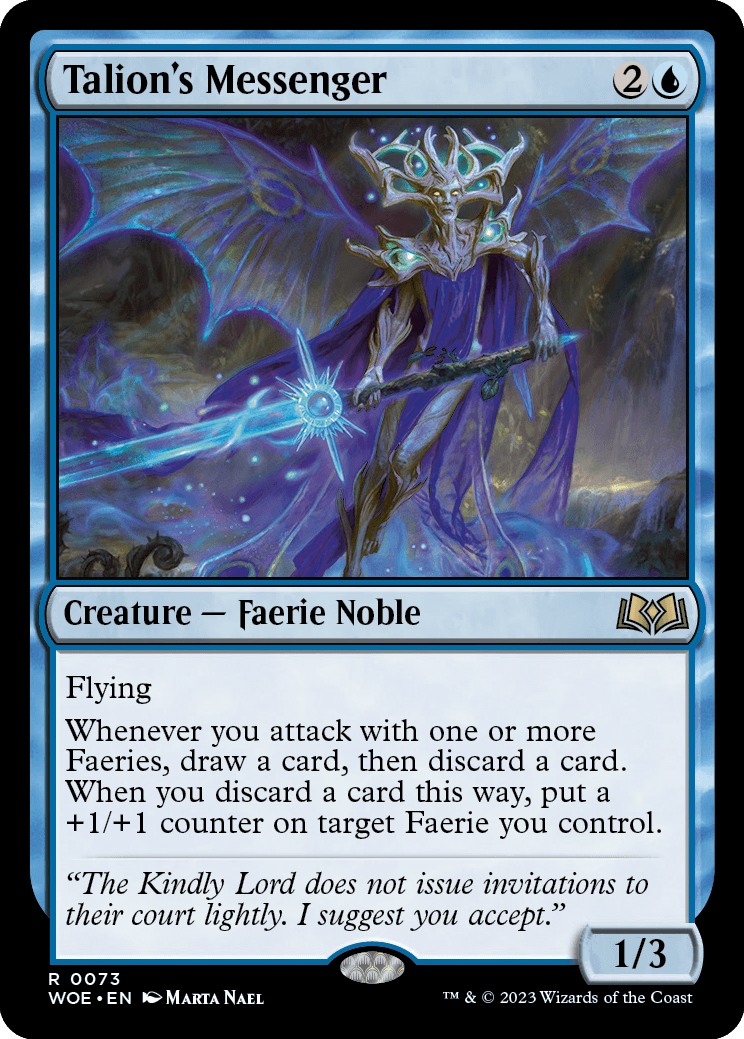
Talion's Messenger
{2}{U}
Creature — Faerie Noble
1/3
Flying
Whenever you attack with one or more Faeries, draw a card, then discard a card. When you discard a card this way, put a +1/+1 counter on target Faerie you control.
- You don't choose a target for Talion's Messenger's ability at the time it triggers. Rather, a second "reflexive" ability triggers when you discard a card this way. You choose a target for that ability as it goes on the stack. Each player may respond to this triggered ability as normal.
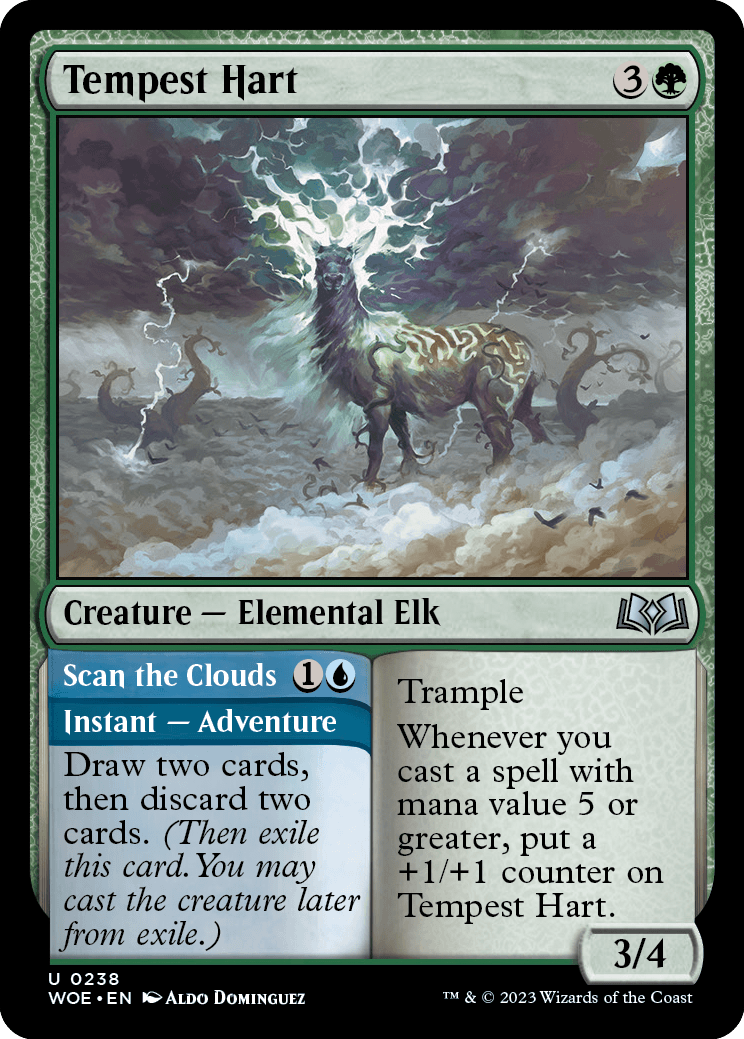
Tempest Hart
{3}{G}
Creature — Elemental Elk
3/4
Trample
Whenever you cast a spell with mana value 5 or greater, put a +1/+1 counter on Tempest Hart.
//
Scan the Clouds
{1}{U}
Instant — Adventure
Draw two cards, then discard two cards. (Then exile this card. You may cast the creature later from exile.)
- If a spell has {X} in its mana cost, use the value chosen for that X to determine the mana value of that spell.
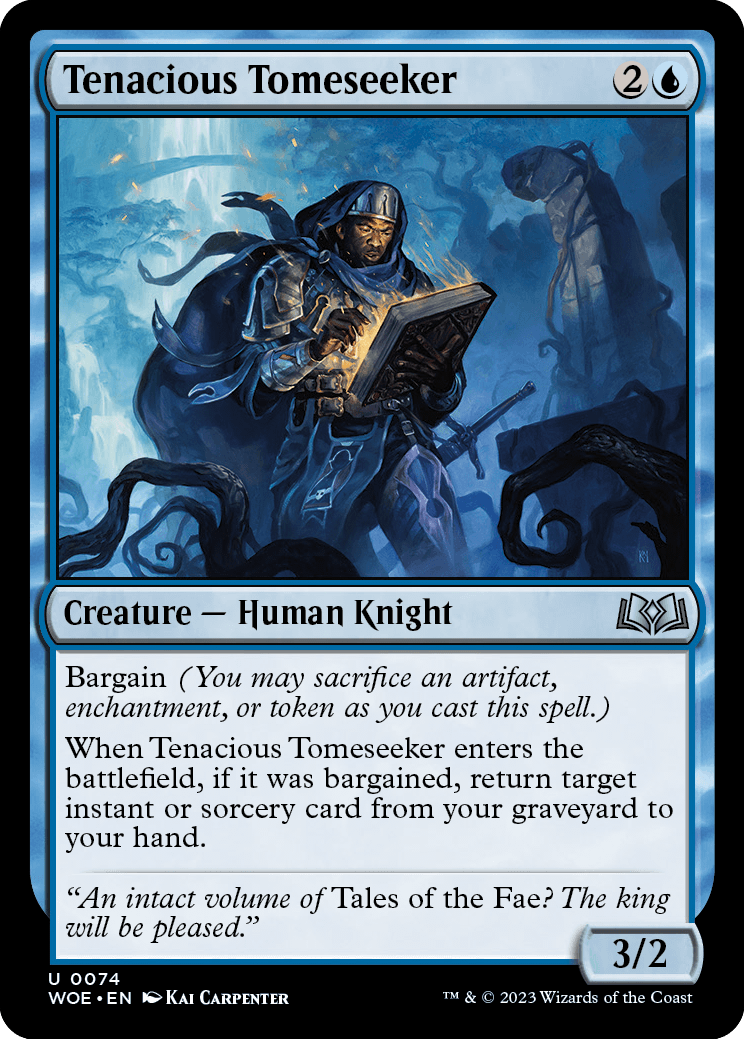
Tenacious Tomeseeker
{2}{U}
Creature — Human Knight
3/2
Bargain (You may sacrifice an artifact, enchantment, or token as you cast this spell.)
When Tenacious Tomeseeker enters the battlefield, if it was bargained, return target instant or sorcery card from your graveyard to your hand.
- Adventurer cards aren't instant or sorcery cards while they're in your graveyard. You can't use Tenacious Tomeseeker's ability to return an adventurer card from your graveyard to your hand.
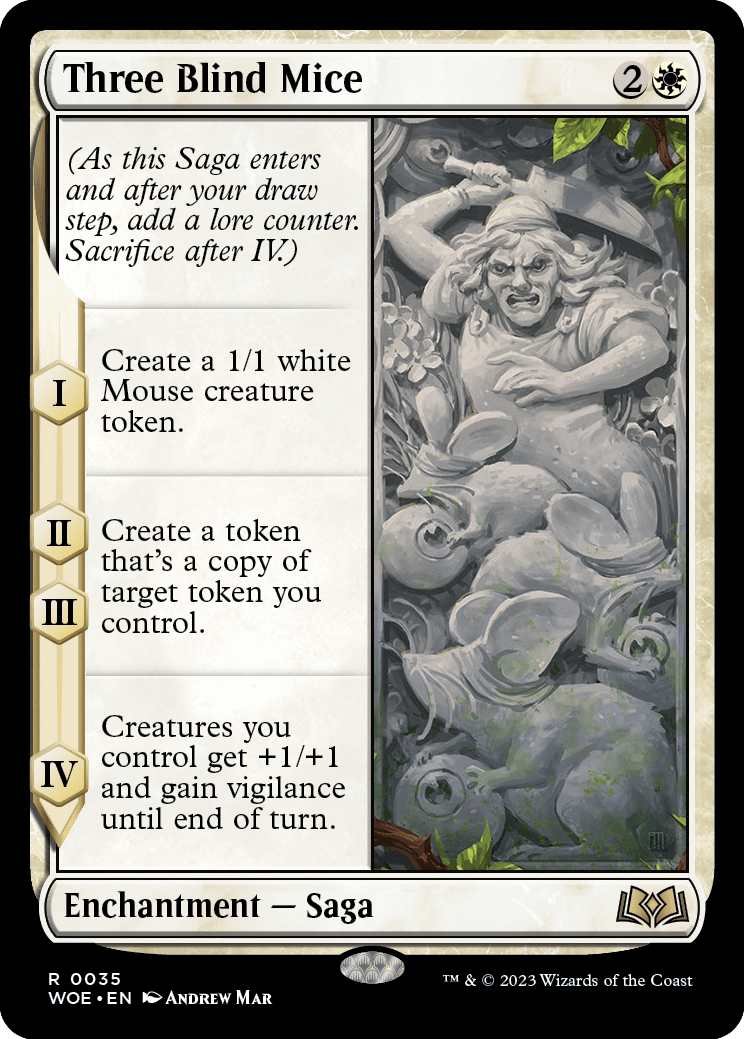
Three Blind Mice
{2}{W}
Enchantment — Saga
(As this Saga enters and after your draw step, add a lore counter. Sacrifice after IV.)
I — Create a 1/1 white Mouse creature token.
II, III — Create a token that's a copy of target token you control.
IV — Creatures you control get +1/+1 and gain vigilance until end of turn.
- The token copies the original characteristics of the target token as stated by the effect that created the token.
- If the copied token is copying something else, then the token enters the battlefield as whatever that token copied.
- Only creatures you control at the time the fourth chapter ability resolves will get +1/+1 and gain vigilance. Creatures you begin to control later in the turn won't be affected.

Torch the Tower
{R}
Instant
Bargain (You may sacrifice an artifact, enchantment, or token as you cast this spell.)
Torch the Tower deals 2 damage to target creature or planeswalker. If this spell was bargained, instead it deals 3 damage to that permanent and you scry 1.
If a permanent dealt damage by Torch the Tower would die this turn, exile it instead.
- Torch the Tower's last replacement effect will exile the target permanent if it would die this turn for any reason, not just due to lethal damage or having 0 loyalty.
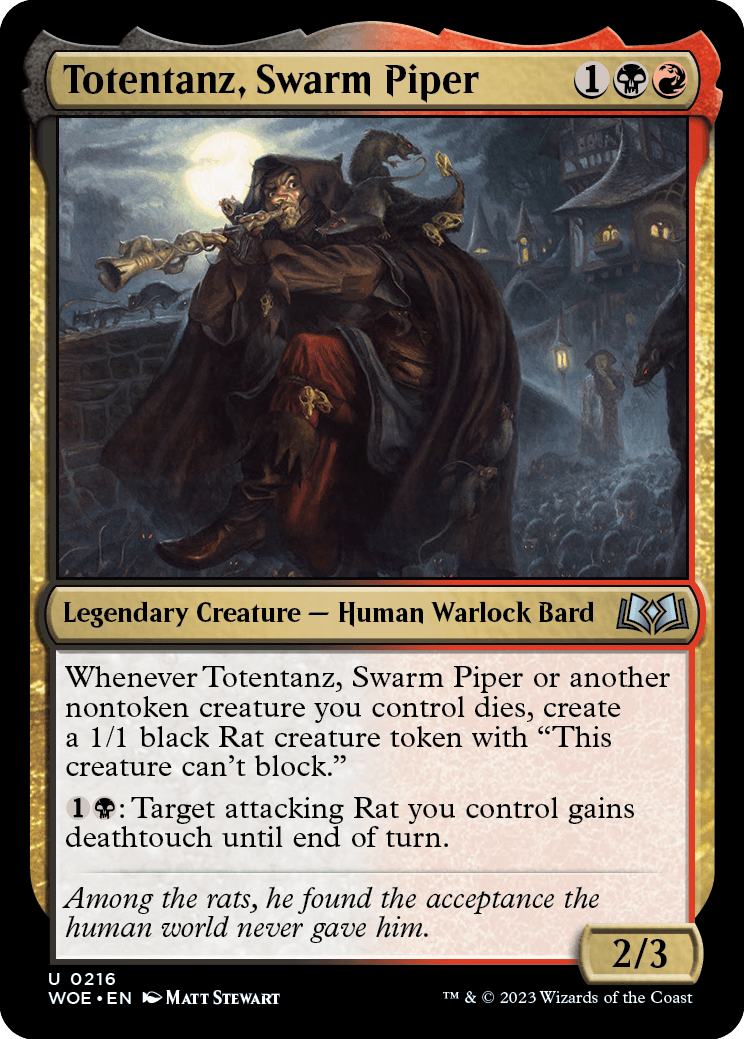
Totentanz, Swarm Piper
{1}{B}{R}
Legendary Creature — Human Warlock Bard
2/3
Whenever Totentanz, Swarm Piper or another nontoken creature you control dies, create a 1/1 black Rat creature token with "This creature can't block."
{1}{B}: Target attacking Rat you control gains deathtouch until end of turn.
- If Totentanz, Swarm Piper dies at the same time as one or more other nontoken creatures you control, Totentanz's ability triggers for each of them.

Tough Cookie
{1}{G}
Artifact Creature — Food Golem
2/2
When Tough Cookie enters the battlefield, create a Food token. (It's an artifact with "{2}, {T}, Sacrifice this artifact: You gain 3 life.")
{2}{G}: Target noncreature artifact you control becomes a 4/4 artifact creature until end of turn.
{2}, {T}, Sacrifice Tough Cookie: You gain 3 life.
- As Tough Cookie's second ability resolves, the target permanent keeps any other types and subtypes it had before it became an artifact creature.
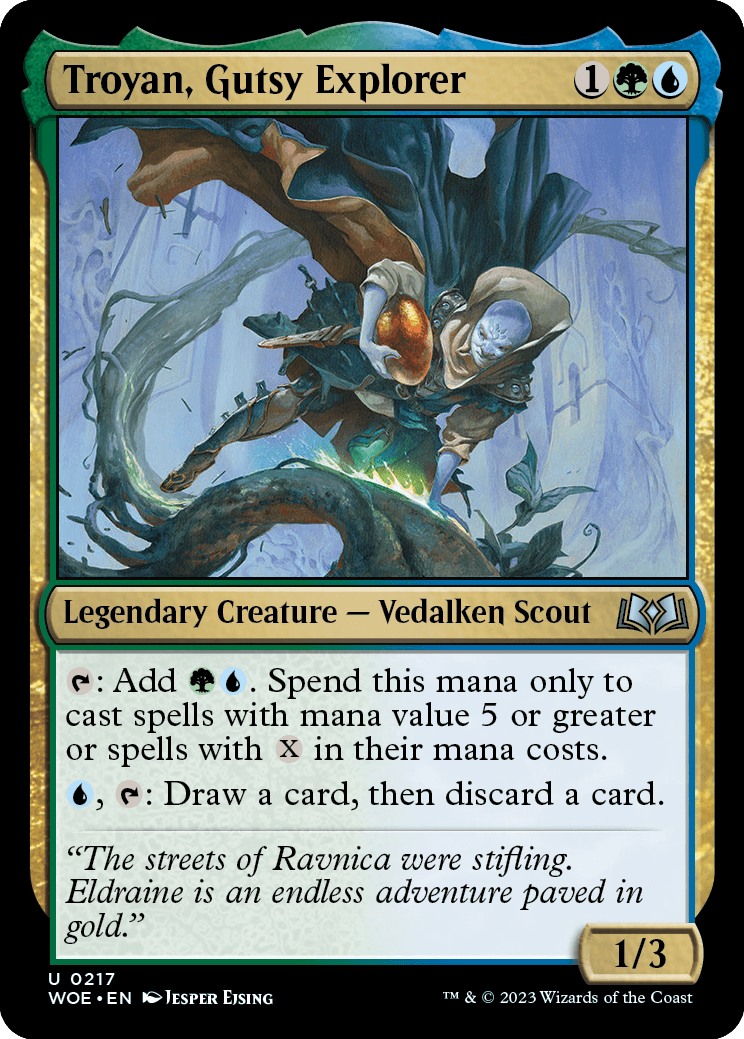
Troyan, Gutsy Explorer
{1}{G}{U}
Legendary Creature — Vedalken Scout
1/3
{T}: Add {G}{U}. Spend this mana only to cast spells with mana value 5 or greater or spells with {X} in their mana costs.
{U}, {T}: Draw a card, then discard a card.
- You can spend mana generated by Troyan on any part of the cost of a spell that contains {X} in its mana cost. You're not limited to spending it only on the {X} part.
- You don't have to spend the two mana on the same spell.
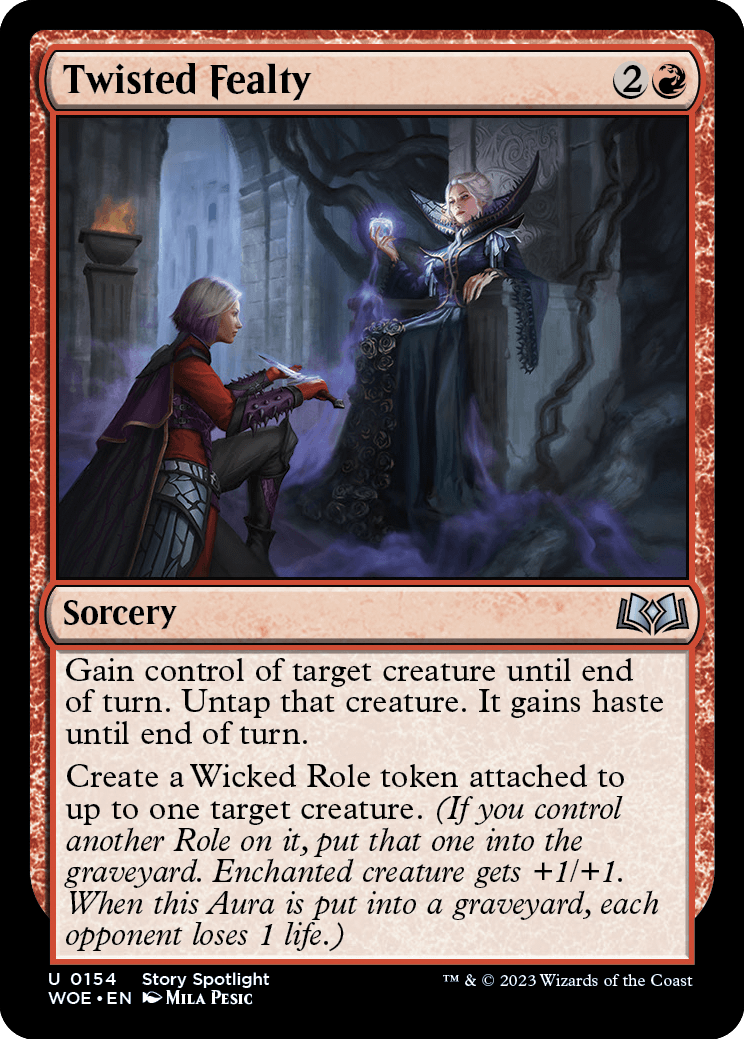
Twisted Fealty
{2}{R}
Sorcery
Gain control of target creature until end of turn. Untap that creature. It gains haste until end of turn.
Create a Wicked Role token attached to up to one target creature. (If you control another Role on it, put that one into the graveyard. Enchanted creature gets +1/+1. When this Aura is put into a graveyard, each opponent loses 1 life.)
- If you don't choose a second target for Twisted Fealty or that target is illegal as the spell resolves, the Wicked Role token won't be created.
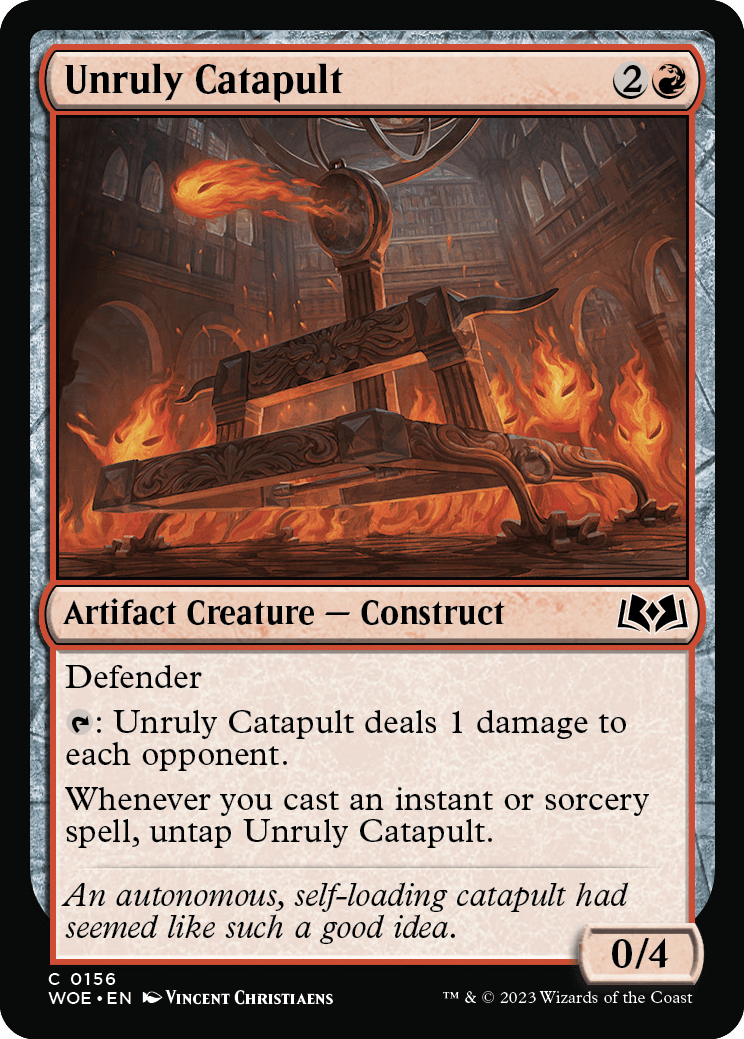
Unruly Catapult
{2}{R}
Artifact Creature — Construct
0/4
Defender
{T}: Unruly Catapult deals 1 damage to each opponent.
Whenever you cast an instant or sorcery spell, untap Unruly Catapult.
- Unruly Catapult's triggered ability resolves before the spell that caused it to trigger. It resolves even if that spell is countered.
- Players can cast spells and activate abilities (such as Unruly Catapult's own activated ability) after the triggered ability resolves but before the spell that caused it to trigger does.
- In a Two-Headed Giant game, Unruly Catapult's activated ability causes the opposing team to lose 2 life.
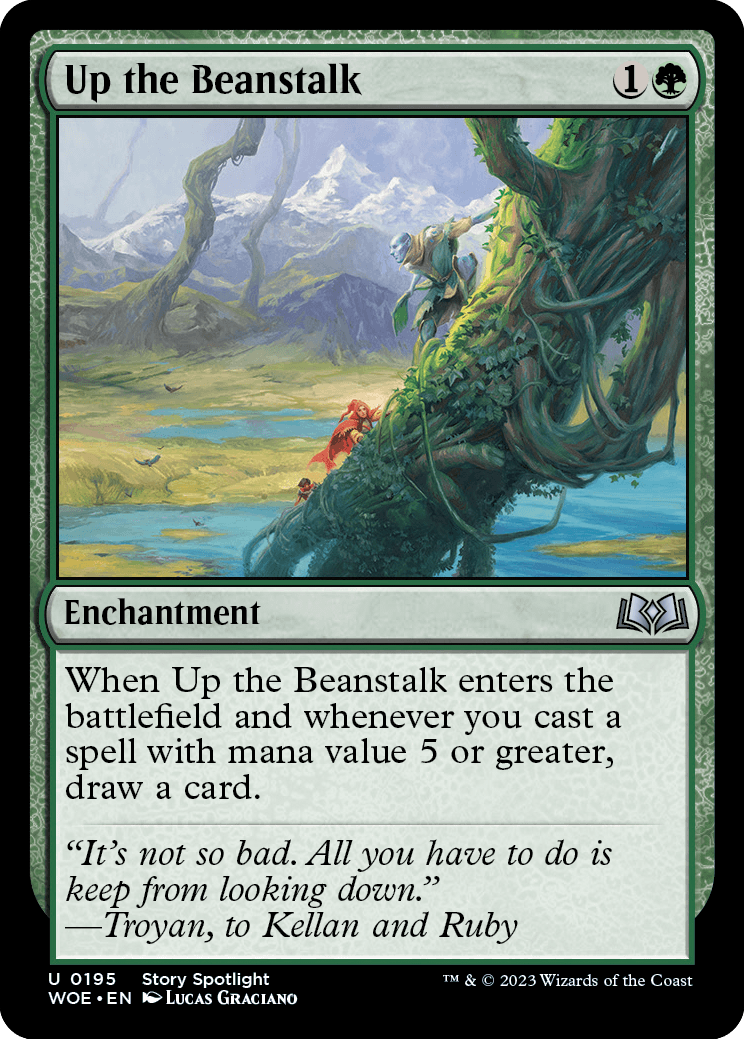
Up the Beanstalk
{1}{G}
Enchantment
When Up the Beanstalk enters the battlefield and whenever you cast a spell with mana value 5 or greater, draw a card.
- If a spell has {X} in its mana cost, use the value chosen for that X to determine the mana value of that spell.
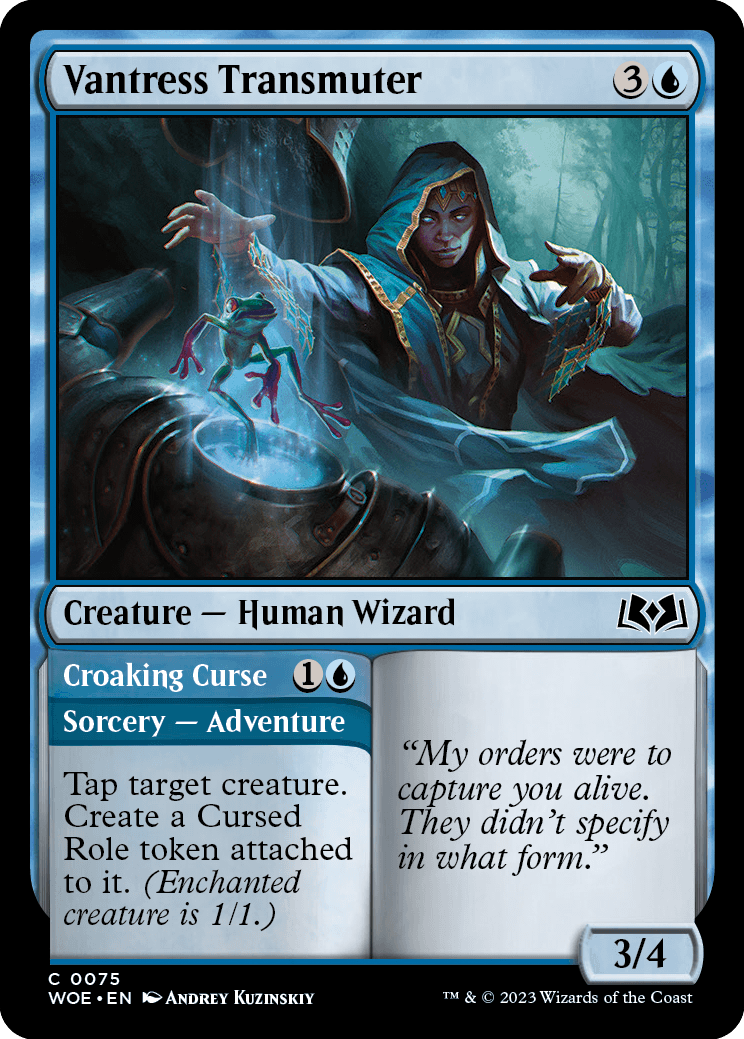
Vantress Transmuter
{3}{U}
Creature — Human Wizard
3/4
//
Croaking Curse
{1}{U}
Sorcery — Adventure
Tap target creature. Create a Cursed Role token attached to it. (Enchanted creature is 1/1.)
- You may target a creature that is already tapped with Croaking Curse. If the target creature is already tapped as it resolves, you will still create a Cursed Role token attached to it.
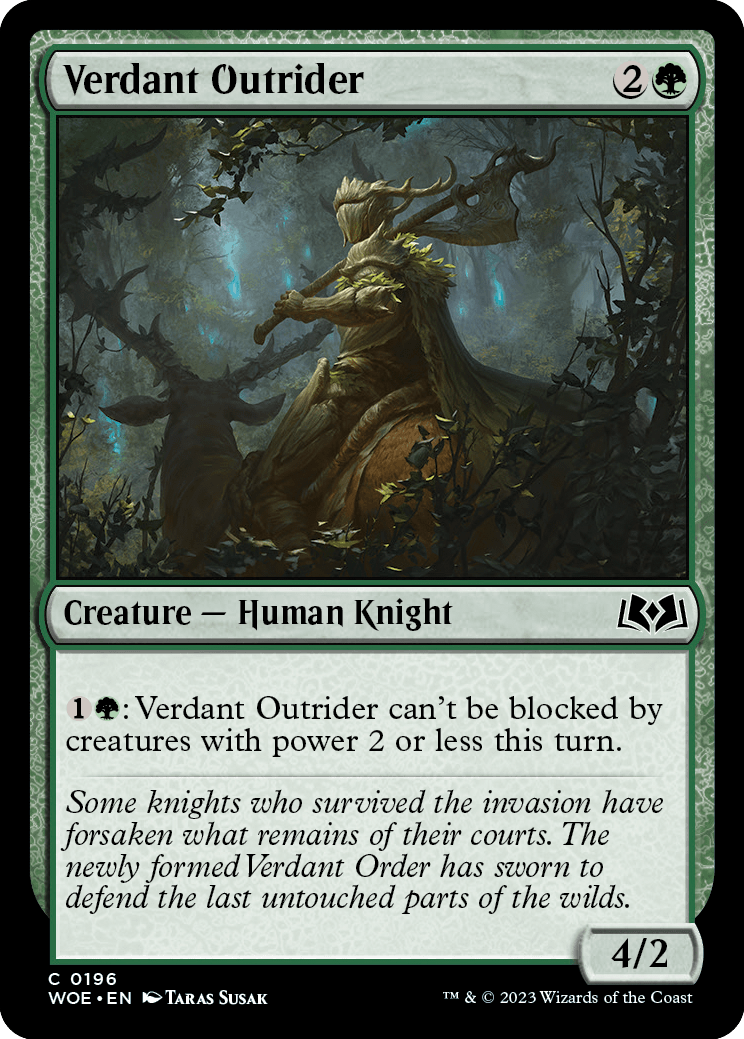
Verdant Outrider
{2}{G}
Creature — Human Knight
4/2
{1}{G}: Verdant Outrider can't be blocked by creatures with power 2 or less this turn.
- Activating Verdant Outrider's ability after it has become blocked by a creature with power 2 or less won't cause it to become unblocked.
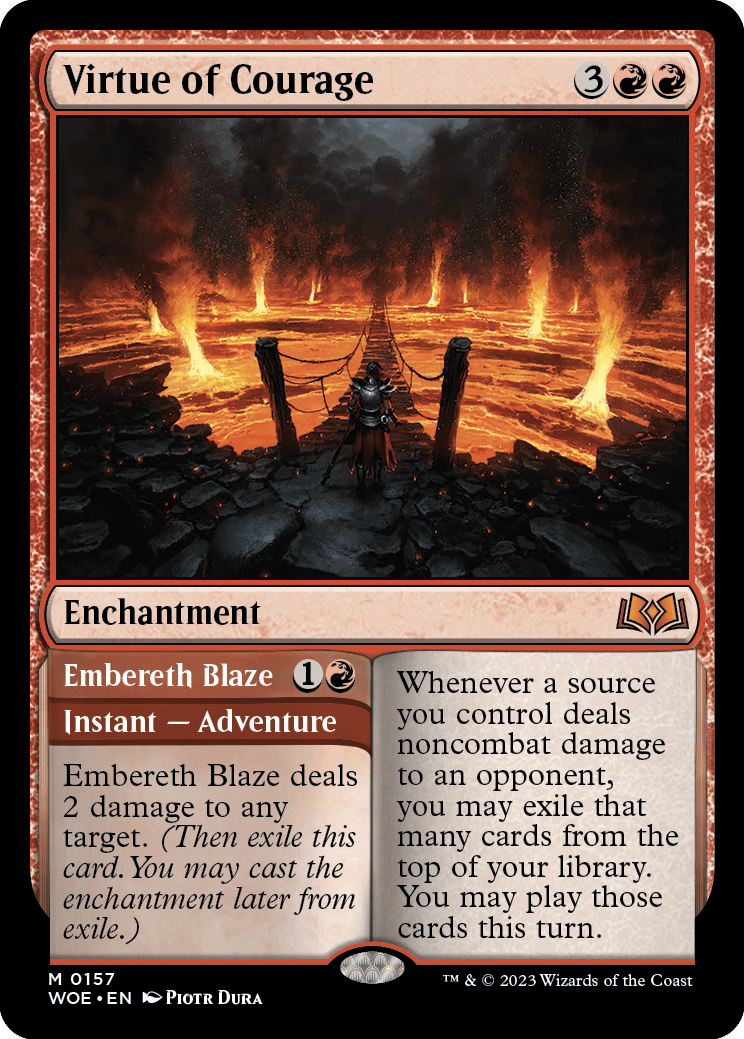
Virtue of Courage
{3}{R}{R}
Enchantment
Whenever a source you control deals noncombat damage to an opponent, you may exile that many cards from the top of your library. You may play those cards this turn.
//
Embereth Blaze
{1}{R}
Instant — Adventure
Embereth Blaze deals 2 damage to any target. (Then exile this card. You may cast the enchantment later from exile.)
- Combat damage is the damage that's dealt automatically by attacking and blocking creatures. Any other damage is noncombat damage, even if it's dealt during a combat phase by an attacking or blocking creature.
- You pay all costs and follow all normal timing rules for a card played this way. For example, if the exiled card is a land card, you may play it only during your main phase while the stack is empty.
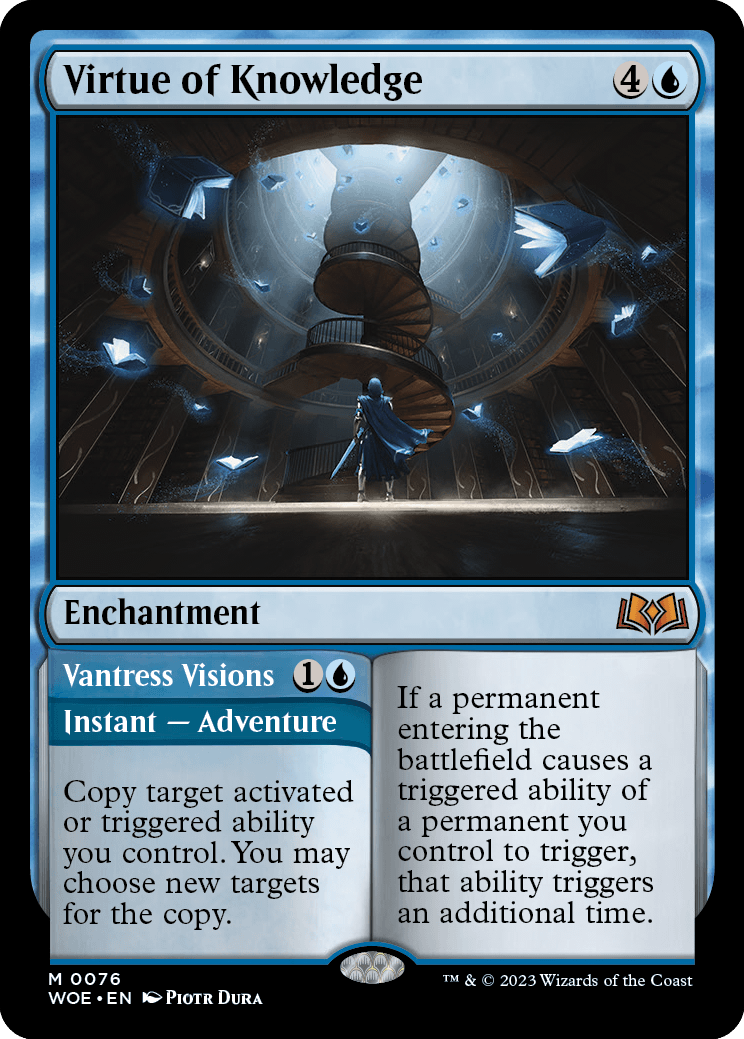
Virtue of Knowledge
{4}{U}
Enchantment
If a permanent entering the battlefield causes a triggered ability of a permanent you control to trigger, that ability triggers an additional time.
//
Vantress Visions
{1}{U}
Instant — Adventure
Copy target activated or triggered ability you control. You may choose new targets for the copy.
- Virtue of Knowledge's ability affects a permanent's own enters-the-battlefield triggered abilities as well as other triggered abilities that trigger when that permanent enters the battlefield. Such triggered abilities start with "when" or "whenever." Some keyword abilities also include a triggered ability that happens when a permanent enters the battlefield.
- Replacement effects are unaffected by Virtue of Knowledge's ability. For example, a creature that enters the battlefield under your control with one +1/+1 counter on it won't receive an additional +1/+1 counter.
- Abilities that apply "as [this permanent] enters the battlefield," such as choosing a number with Talion, the Kindly Lord, are also unaffected.
- Virtue of Knowledge's ability doesn't copy the triggered ability; it just causes the ability to trigger an additional time. Any choices made as you put the ability onto the stack, such as modes and targets, are made separately for each instance of the ability. Any choices made on resolution, such as whether to put counters on a permanent, are also made individually.
- If you control two copies of Virtue of Knowledge, a permanent entering the battlefield causes abilities to trigger three times, not four. A third Virtue of Knowledge causes abilities to trigger four times, a fourth causes abilities to trigger five times, and so on.
- If a permanent entering the battlefield at the same time as Virtue of Knowledge (including Virtue of Knowledge itself) causes a triggered ability of a permanent you control to trigger, that ability triggers an additional time.
- If a triggered ability is linked to a second ability, additional instances of that triggered ability are also linked to that second ability. If the second ability refers to "the exiled card," it refers to all cards exiled by instances of the triggered ability.
- In some cases involving linked abilities, an ability requires information about "the exiled card." When this happens, the ability gets multiple answers. If these answers are being used to determine the value of a variable, the sum is used. For example, if Elite Arcanist's enters-the-battlefield ability triggers twice, two cards are exiled. The value of X in the activation cost of Elite Arcanist's other ability is the sum of the two cards' mana values. As the ability resolves, you create copies of both cards and can cast none, one, or both of the copies in any order.
- In a Two-Headed Giant game, Virtue of Knowledge does not affect triggered abilities of permanents your teammate controls.
- Activated abilities contain a colon. They're generally written "[Cost]: [Effect]." Some keyword abilities (such as equip) are activated abilities and will have colons in their reminder text.
- Triggered abilities use the word "when," "whenever," or "at." They're often written as "[Trigger condition], [effect]." Some keyword abilities are triggered abilities and will have "when," "whenever," or "at the beginning of" in their reminder text.
- The source of the copy created by Vantress Visions is the same as the source of the original ability.
- If the ability copied by Vantress Visions is modal (that is, if it says, "Choose one —" or similar), the mode is copied and can't be changed.
- If the ability copied by Vantress Visions divides damage or distributes counters among a number of targets, the division and number of targets can't be changed. If you choose new targets, you must choose the same number of targets.
- If the activated ability's cost contains a choice, such as a creature to sacrifice or a number of counters to remove, the copy created by Vantress Visions uses that same information. You can't pay the cost again, even if you want to.
- Any choices made when the ability resolves won't have been made yet when it's copied by Vantress Visions. Any such choices will be made separately when the copy resolves. If a triggered ability asks you to pay a cost, you pay that cost for the copy separately.
- If an ability is linked to a second ability, copies of that ability are also linked to that second ability. If the second ability refers to "the exiled card," it refers to all cards exiled by the ability and the copy. For example, if Tidehollow Sculler's enters-the-battlefield ability is copied and two cards are exiled, they both return when Tidehollow Sculler leaves the battlefield.
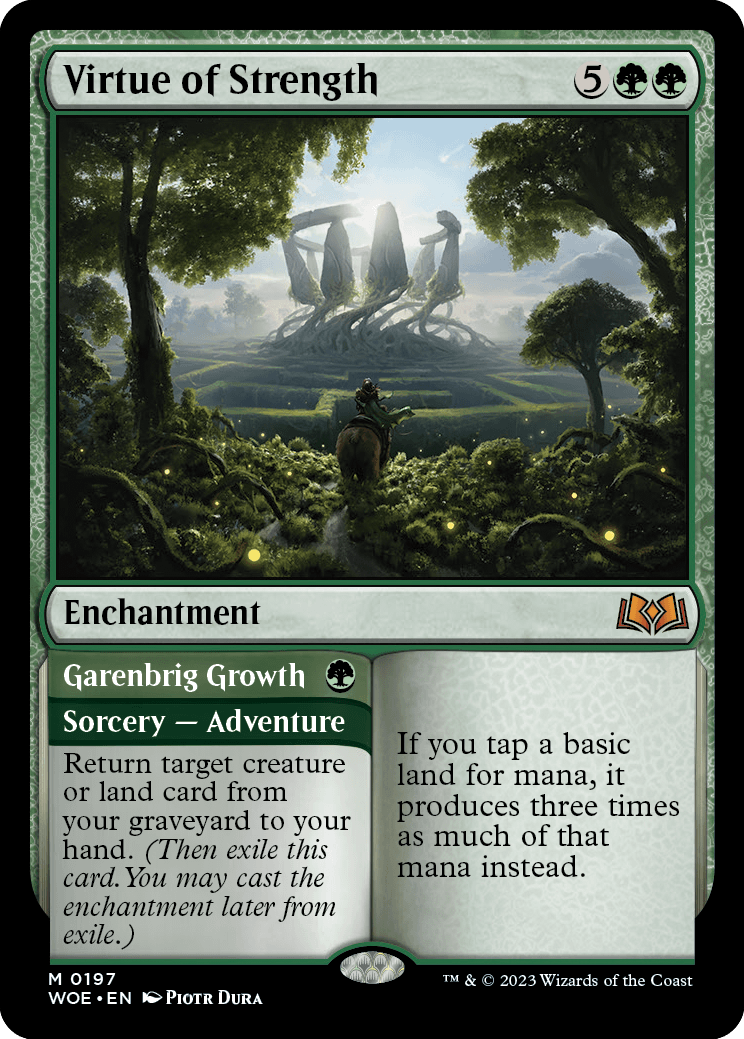
Virtue of Strength
{5}{G}{G}
Enchantment
If you tap a basic land for mana, it produces three times as much of that mana instead.
//
Garenbrig Growth
{G}
Sorcery — Adventure
Return target creature or land card from your graveyard to your hand. (Then exile this card. You may cast the enchantment later from exile.)
- An object with the land card type and a basic land type has the intrinsic ability "{T}: Add [mana symbol]," even if the text box doesn't actually contain that text or the object has no text box. For example, a basic Forest will have the intrinsic ability "{T}: Add {G}."
- You're "tapping a basic land for mana" only if you're activating a mana ability of a basic land that includes the {T} symbol in its cost. A mana ability produces mana as part of its effect.
- If an ability triggers "whenever you tap" a basic land for mana and produces mana, that triggered mana ability won't be affected by Virtue of Strength.
- Virtue of Strength doesn't produce any mana itself. Rather, it causes basic lands you tap for mana to produce more mana.
- The effects of multiple copies of Virtue of Strength are cumulative. For example, if you have two Virtue of Strengths on the battlefield, you'll get nine times the original amount and type of mana.
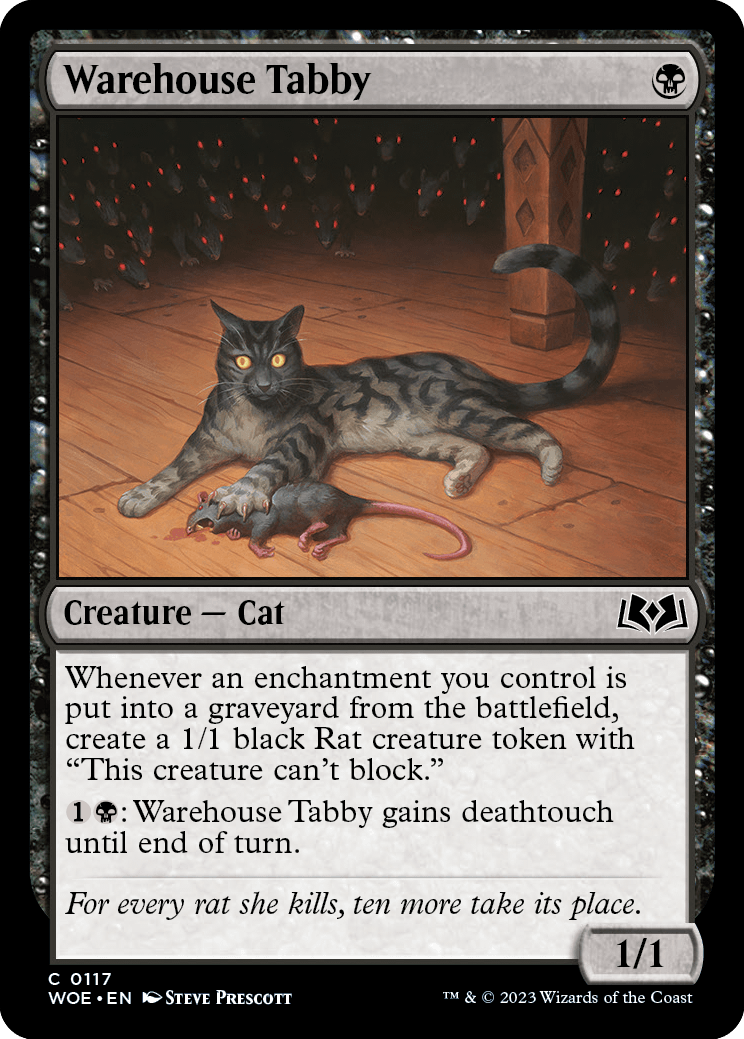
Warehouse Tabby
{B}
Creature — Cat
1/1
Whenever an enchantment you control is put into a graveyard from the battlefield, create a 1/1 black Rat creature token with "This creature can't block."
{1}{B}: Warehouse Tabby gains deathtouch until end of turn.
- Enchantment tokens (such as Roles) that are sacrificed, destroyed, or would otherwise go to the graveyard are put into their owner's graveyard before ceasing to exist. If you controlled the token, Warehouse Tabby's ability will trigger.
- If Warehouse Tabby leaves the battlefield while it has an Aura you control attached to it or at the same time as another creature with an Aura you control attached to it, its ability won't trigger for those enchantments unless they were destroyed by the same effect that caused Warehouse Tabby to leave the battlefield.
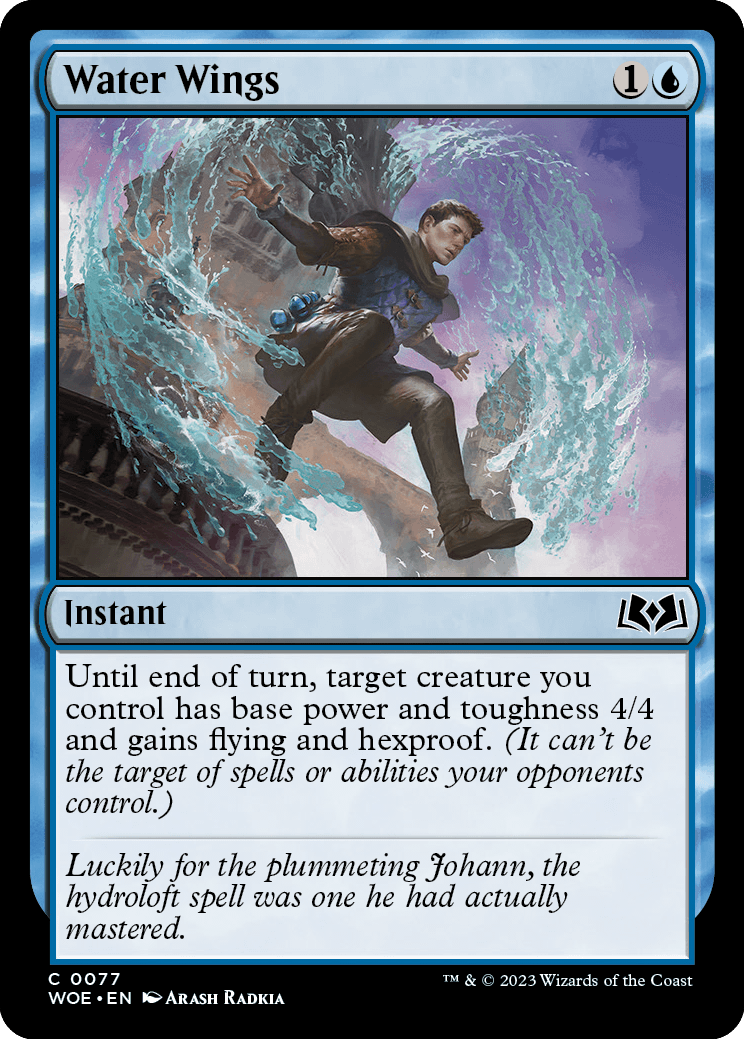
Water Wings
{1}{U}
Instant
Until end of turn, target creature you control has base power and toughness 4/4 and gains flying and hexproof. (It can't be the target of spells or abilities your opponents control.)
- Water Wings overwrites any previous effects that set the creature's power and/or toughness to specific values. Effects that otherwise modify its power and toughness will still apply no matter when they took effect. The same is true for +1/+1 counters.
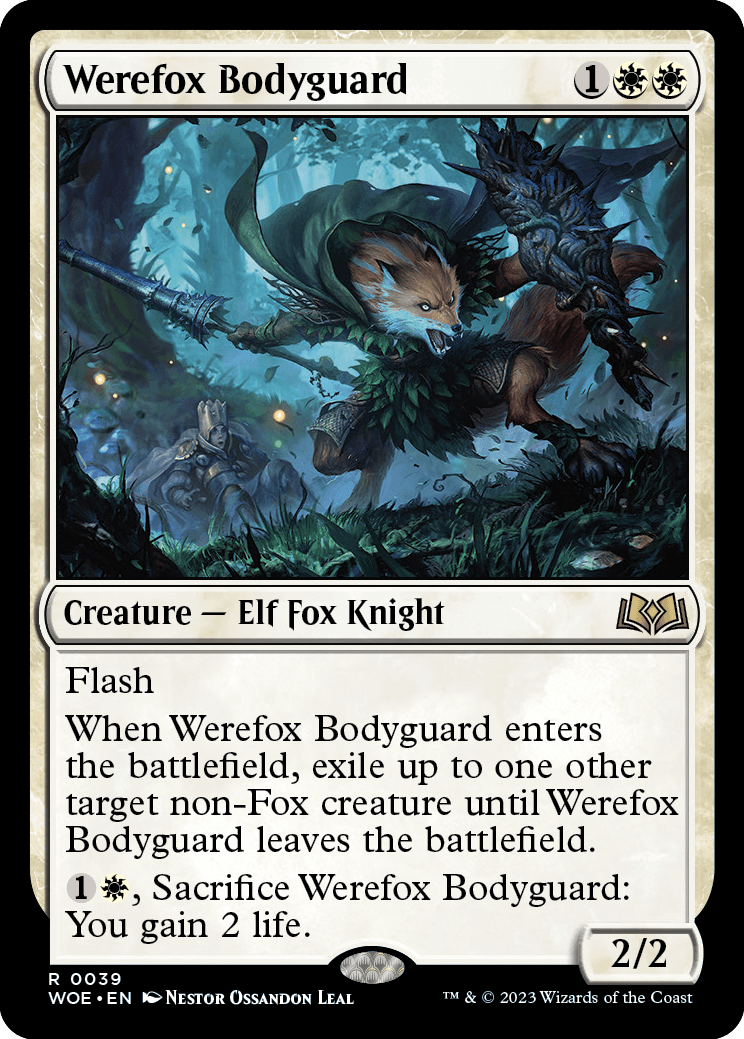
Werefox Bodyguard
{1}{W}{W}
Creature — Elf Fox Knight
2/2
Flash
When Werefox Bodyguard enters the battlefield, exile up to one other target non-Fox creature until Werefox Bodyguard leaves the battlefield.
{1}{W}, Sacrifice Werefox Bodyguard: You gain 2 life.
- If Werefox Bodyguard leaves the battlefield before its triggered ability resolves, the target creature won't be exiled.
- Auras attached to the exiled creature will be put into their owners' graveyards. Any Equipment will become unattached and remain on the battlefield. Any counters on the exiled creature will cease to exist. When the card returns to the battlefield, it will be a new object with no connection to the card that was exiled.
- If a token is exiled this way, it will cease to exist and won't return to the battlefield.
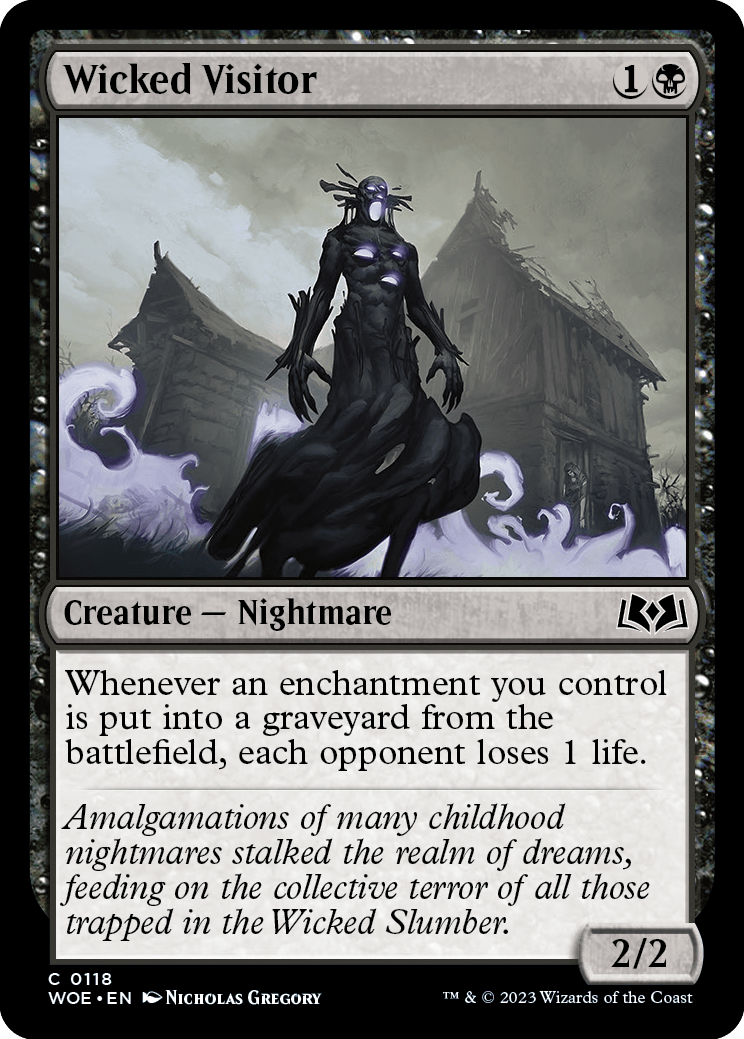
Wicked Visitor
{1}{B}
Creature — Nightmare
2/2
Whenever an enchantment you control is put into a graveyard from the battlefield, each opponent loses 1 life.
- Enchantment tokens (such as Roles) that are sacrificed, destroyed, or would otherwise go to the graveyard are put into their owner's graveyard before ceasing to exist. If you controlled the token, Wicked Visitor's ability will trigger.
- If Wicked Visitor leaves the battlefield while it has an Aura you control attached to it or at the same time as another creature with an Aura you control attached to it, its ability won't trigger for those enchantments unless they were destroyed by the same effect that caused Wicked Visitor to leave the battlefield.
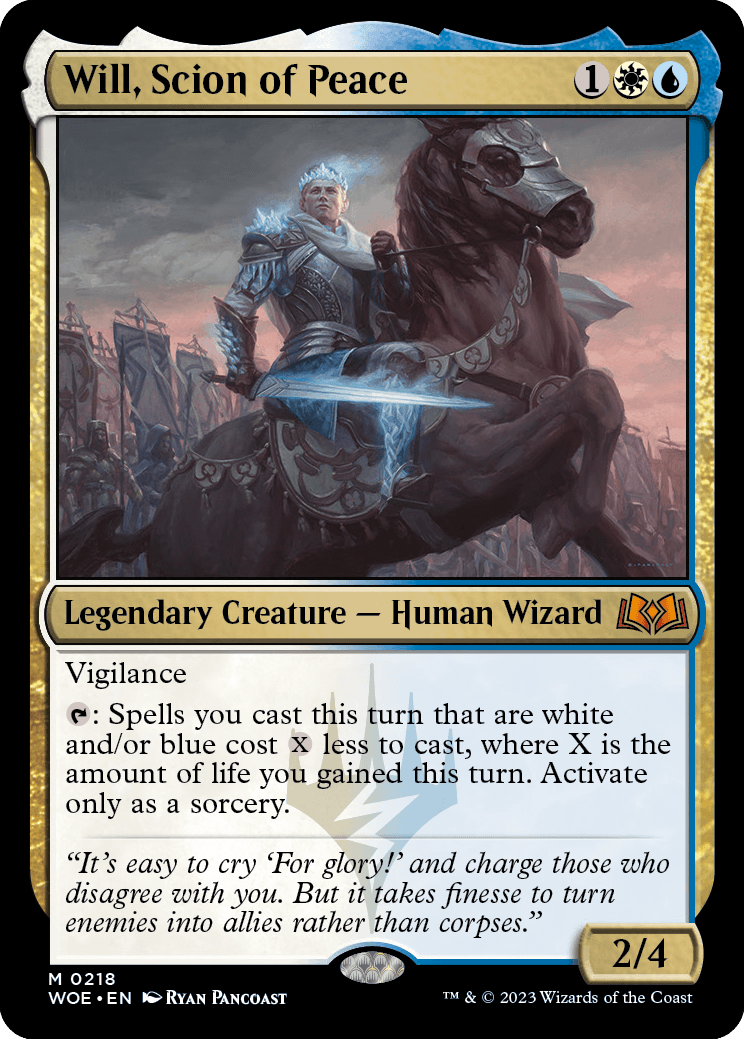
Will, Scion of Peace
{1}{W}{U}
Legendary Creature — Human Wizard
2/4
Vigilance
{T}: Spells you cast this turn that are white and/or blue cost {X} less to cast, where X is the amount of life you gained this turn. Activate only as a sorcery.
- The value of X is determined only once, at the time Will, Scion of Peace's activated ability resolves.
- Will's activated ability doesn't change the mana cost or mana value of any spell. It changes only the total cost you pay.
- Will's activated ability can't reduce the amount of colored mana you pay for a spell. It reduces only the generic mana component of that cost.
- Will's activated ability counts the total amount of life you gained without taking into account any life you lost during that turn. For example, if you gained 3 life and lost 3 life earlier in the turn, the cost of white and/or blue spells you cast this turn will be reduced by {3}.
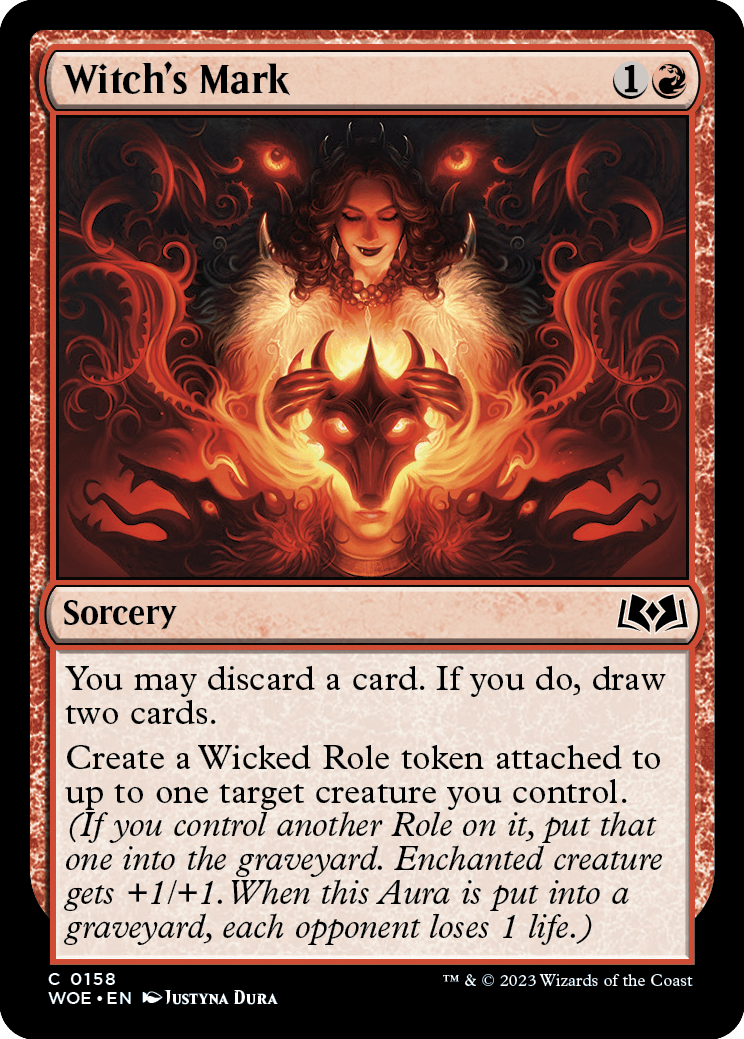
Witch's Mark
{1}{R}
Sorcery
You may discard a card. If you do, draw two cards.
Create a Wicked Role token attached to up to one target creature you control. (If you control another Role on it, put that one into the graveyard. Enchanted creature gets +1/+1. When this Aura is put into a graveyard, each opponent loses 1 life.)
- You can cast Witch's Mark without a target just to discard a card and draw two cards. However, if you do choose a target, and that target is illegal at the time Witch's Mark tries to resolve, the spell won't resolve and none of its effects will happen. You won't discard, draw, or create a Wicked Role token.
- If you don't choose a target for Witch's Mark, the Wicked Role token won't be created.
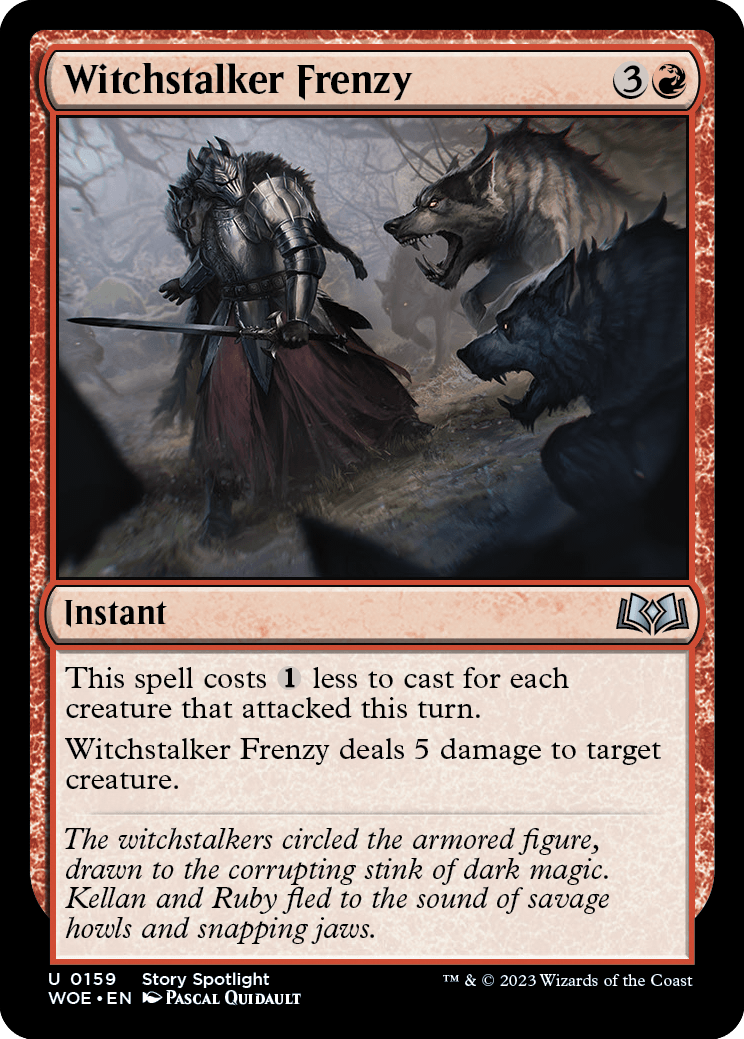
Witchstalker Frenzy
{3}{R}
Instant
This spell costs {1} less to cast for each creature that attacked this turn.
Witchstalker Frenzy deals 5 damage to target creature.
- Witchstalker Frenzy's first ability doesn't change its mana cost or mana value, only the total cost you pay. Specifically, the mana value of Witchstalker Frenzy is always 4.
- Witchstalker Frenzy's first ability can't reduce its cost to less than {R}.
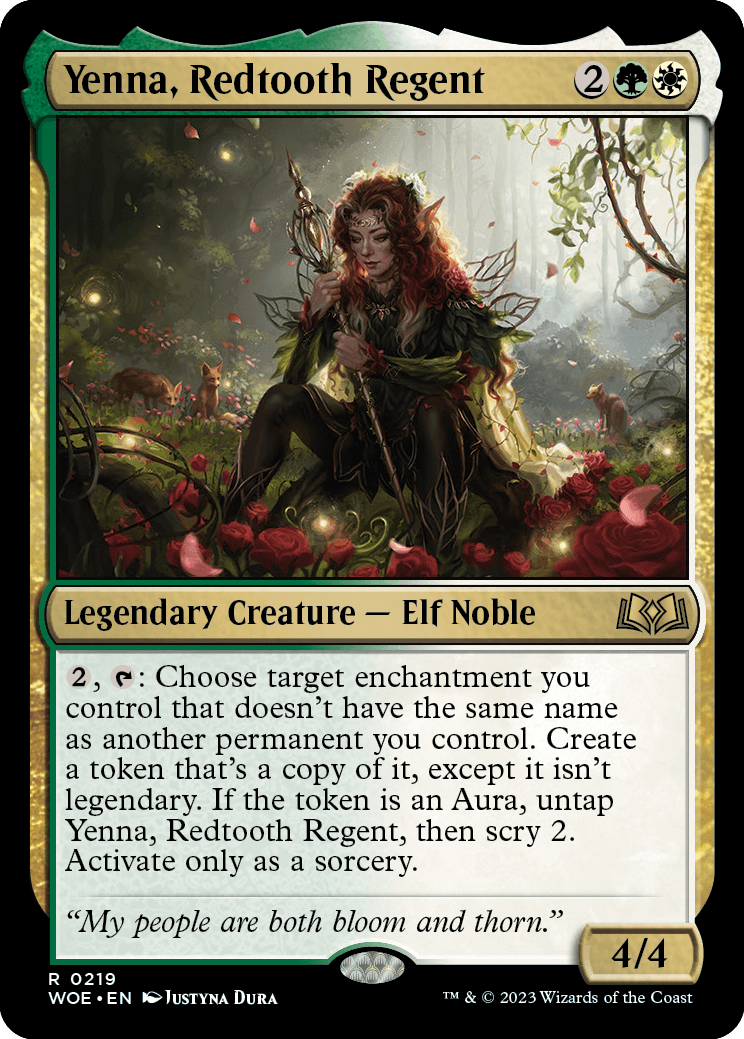
Yenna, Redtooth Regent
{2}{G}{W}
Legendary Creature — Elf Noble
4/4
{2}, {T}: Choose target enchantment you control that doesn't have the same name as another permanent you control. Create a token that's a copy of it, except it isn't legendary. If the token is an Aura, untap Yenna, Redtooth Regent, then scry 2. Activate only as a sorcery.
- Except for the listed exceptions, the token copies exactly what was printed on the original enchantment and nothing else (unless that enchantment is itself copying something else; see below). It doesn't copy whether that permanent is tapped or untapped, whether it has any counters on it or Auras attached to it, or any non-copy effects that have changed its power, toughness, types, color, and so on.
- If the copied enchantment is copying something else, then the token enters the battlefield as whatever that enchantment copied, with the stated exceptions.
- If the copied enchantment has {X} in its mana cost, X is 0.
- Any enters-the-battlefield abilities of the copied enchantment will trigger when the token enters the battlefield. Any "as [this enchantment] enters the battlefield" or "[this enchantment] enters the battlefield with" abilities of the enchantment will also work.
- If something becomes a copy of the token, the copy also isn't legendary.
WILDS OF ELDRAINE JUMPSTART CARD-SPECIFIC NOTES
Jumpstart Boosters were not produced for the Wilds of Eldraine release. However, the fifteen cards created for that experience are available in Set Boosters, and the five rare cards are also available in Collector Boosters.
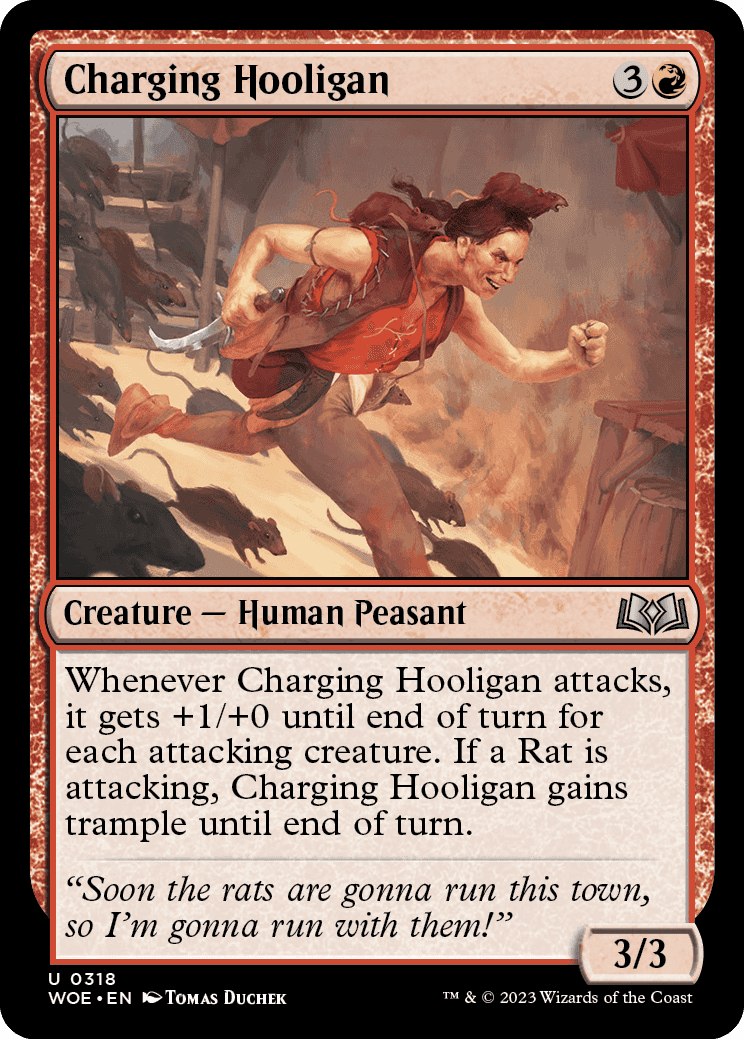
Charging Hooligan
{3}{R}
Creature — Human Peasant
3/3
Whenever Charging Hooligan attacks, it gets +1/+0 until end of turn for each attacking creature. If a Rat is attacking, Charging Hooligan gains trample until end of turn.
- Count the number of attacking creatures when Charging Hooligan's ability resolves, including Charging Hooligan itself, to determine the increase to its power.
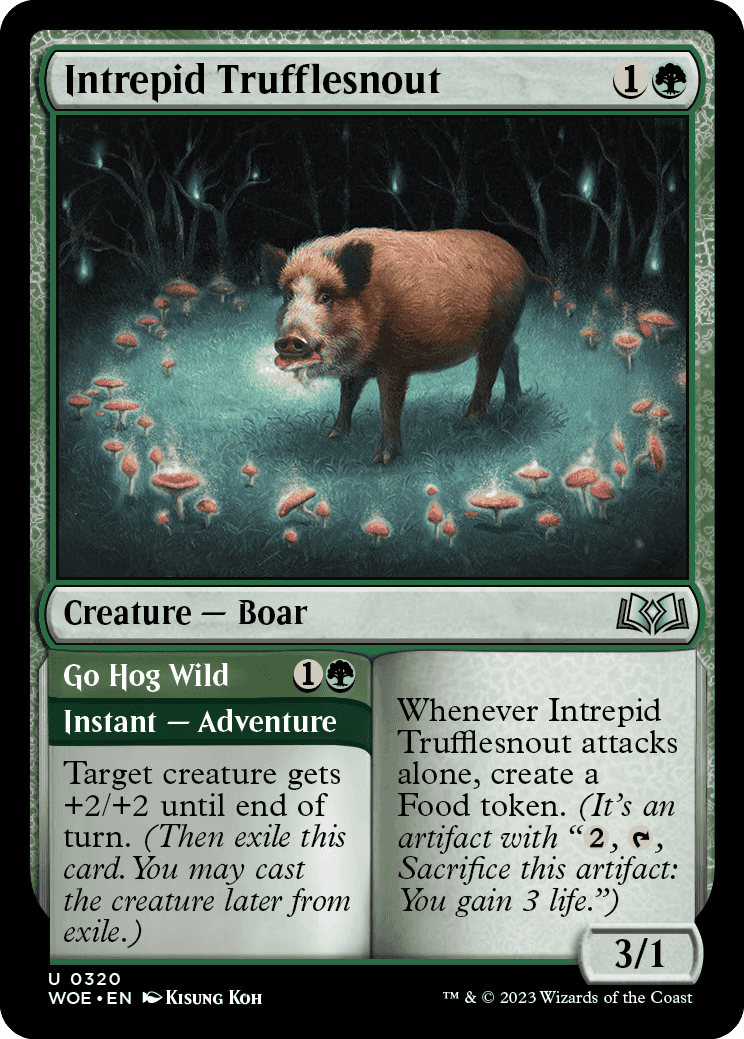
Intrepid Trufflesnout
{1}{G}
Creature — Boar
3/1
Whenever Intrepid Trufflesnout attacks alone, create a Food token. (It's an artifact with "{2}, {T}, Sacrifice this artifact: You gain 3 life.")
//
Go Hog Wild
{1}{G}
Instant — Adventure
Target creature gets +2/+2 until end of turn. (Then exile this card. You may cast the creature later from exile.)
- A creature attacks alone if it's the only creature declared as an attacker during the declare attackers step. For example, Intrepid Trufflesnout's ability won't trigger if you attack with multiple creatures and all but one of them are removed from combat.
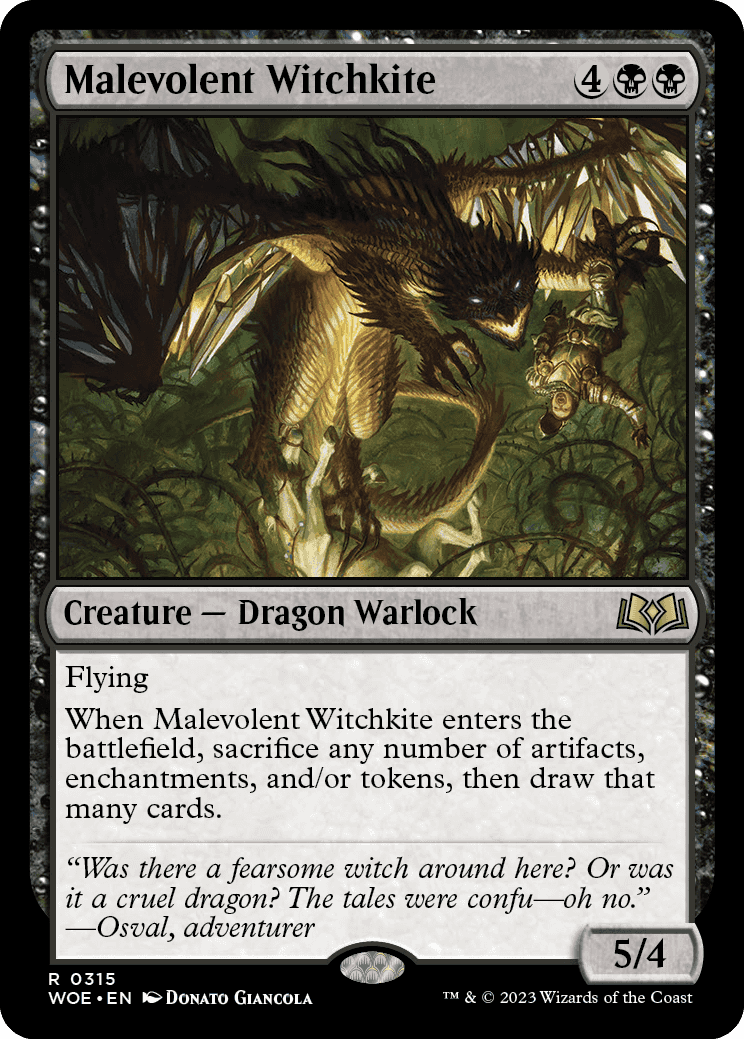
Malevolent Witchkite
{4}{B}{B}
Creature — Dragon Warlock
5/4
Flying
When Malevolent Witchkite enters the battlefield, sacrifice any number of artifacts, enchantments, and/or tokens, then draw that many cards.
- As Malevolent Witchkite's triggered ability resolves, you may choose to sacrifice zero permanents.
- If any abilities trigger when you sacrifice permanents, those abilities won't be put onto the stack until after you've drawn cards. Those abilities won't trigger if you choose to sacrifice zero permanents.
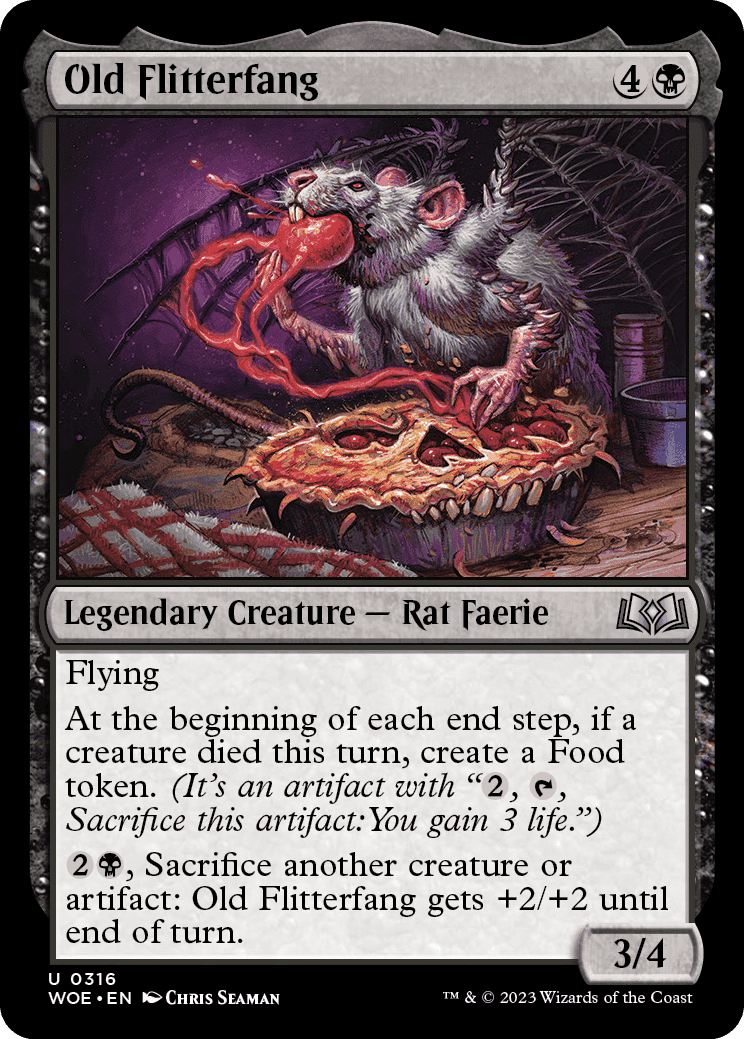
Old Flitterfang
{4}{B}
Legendary Creature — Rat Faerie
3/4
Flying
At the beginning of each end step, if a creature died this turn, create a Food token. (It's an artifact with "{2}, {T}, Sacrifice this artifact: You gain 3 life.")
{2}{B}, Sacrifice another creature or artifact: Old Flitterfang gets +2/+2 until end of turn.
- Old Flitterfang's triggered ability will check as the end step starts to see if a creature died this turn. If none did, the ability won't trigger at all.
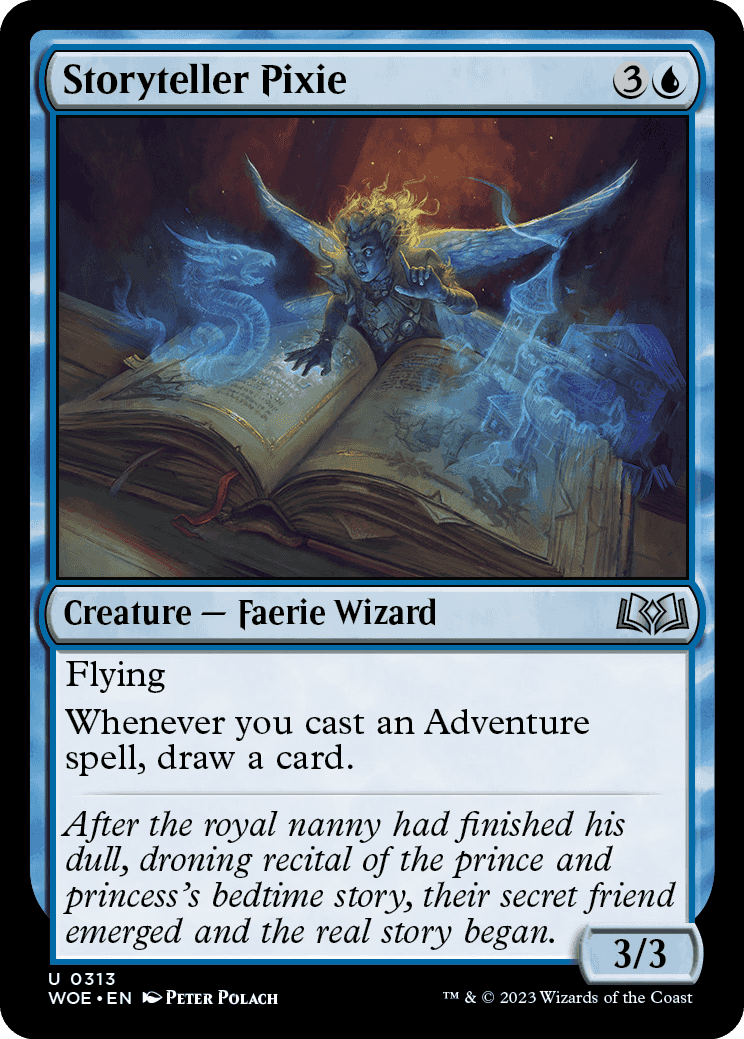
Storyteller Pixie
{3}{U}
Creature — Faerie Wizard
3/3
Flying
Whenever you cast an Adventure spell, draw a card.
- An Adventure spell means an instant or sorcery spell with the Adventure spell type. Permanent spells that you cast which have an Adventure won't cause this ability to trigger.
WILDS OF ELDRAINE COMMANDER CARD-SPECIFIC NOTES
Returning Mechanic: The Monarch
The monarch is a designation a player may have. The crown comes with some benefits, like an extra card each turn, but it can also attract unwanted attention from other players. Will your time on the throne have a fairy tale ending?
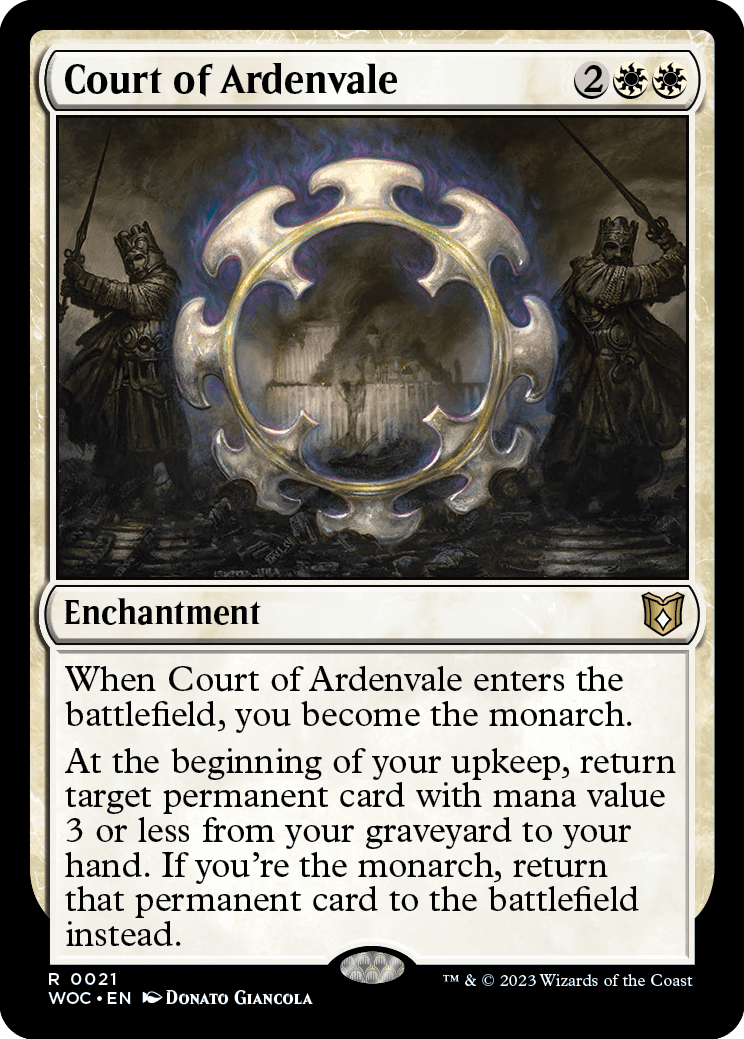
Court of Ardenvale
{2}{W}{W}
Enchantment
When Court of Ardenvale enters the battlefield, you become the monarch.
At the beginning of your upkeep, return target permanent card with mana value 3 or less from your graveyard to your hand. If you're the monarch, return that permanent card to the battlefield instead.
General Monarch Notes:
- The game starts with no monarch. As a player becomes the monarch, the current monarch (if any) ceases being the monarch. There is never more than one monarch at a time.
- There are two inherent triggered abilities associated with being the monarch. These triggered abilities have no source and are controlled by the player who was the monarch at the time the abilities triggered. The full texts of these abilities are "At the beginning of the monarch's end step, that player draws a card" and "Whenever a creature deals combat damage to the monarch, its controller becomes the monarch."
- If the triggered ability that causes the monarch to draw a card goes on the stack and a different player becomes the monarch before that ability resolves, the first player will still draw the card.
- If the monarch leaves the game during another player's turn, that player becomes the monarch. If the monarch leaves the game during their turn, the next player in turn order becomes the monarch.
- If combat damage dealt to the monarch causes that player to lose the game, the triggered ability that causes the controller of the attacking creature to become the monarch doesn't resolve. In most cases, the controller of the attacking creature will still become the monarch as it is likely their turn.
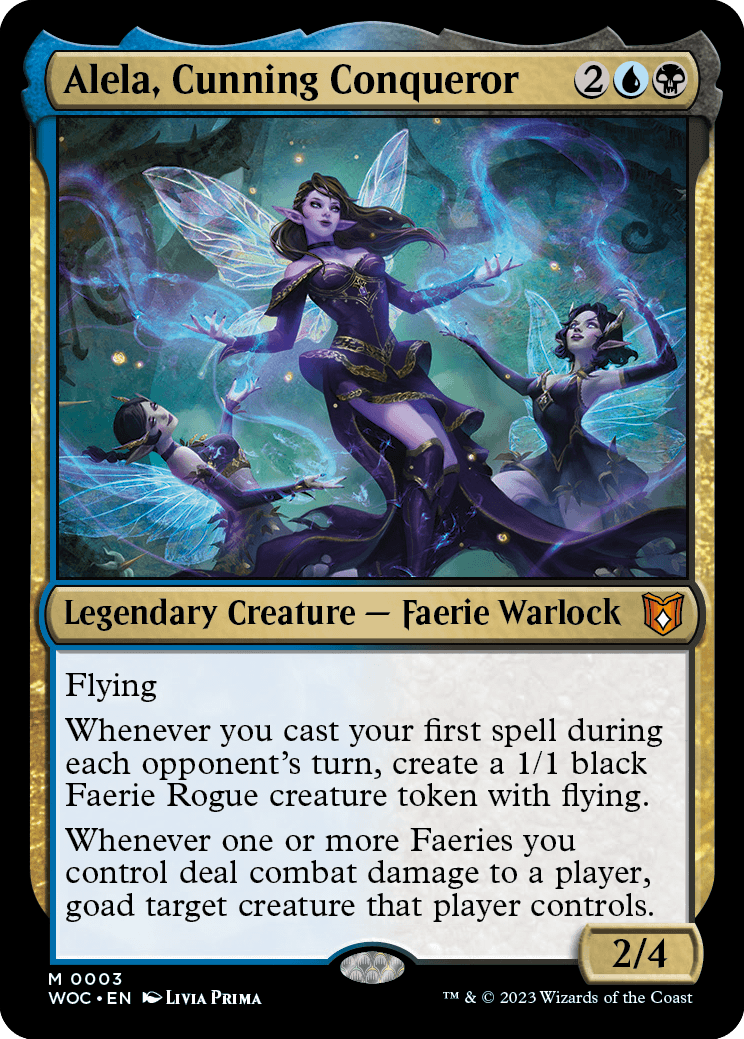
Alela, Cunning Conqueror
{2}{U}{B}
Legendary Creature — Faerie Warlock
2/4
Flying
Whenever you cast your first spell during each opponent's turn, create a 1/1 black Faerie Rogue creature token with flying.
Whenever one or more Faeries you control deal combat damage to a player, goad target creature that player controls.
- Normally, combat damage is dealt all at the same time. In that case, Alela, Cunning Conqueror's last ability triggers once for each player that Faeries you control dealt combat damage to, regardless of how many creatures were dealing that damage. If any of those Faeries have double strike or first strike, the ability will trigger once for each player dealt damage in each combat damage step.
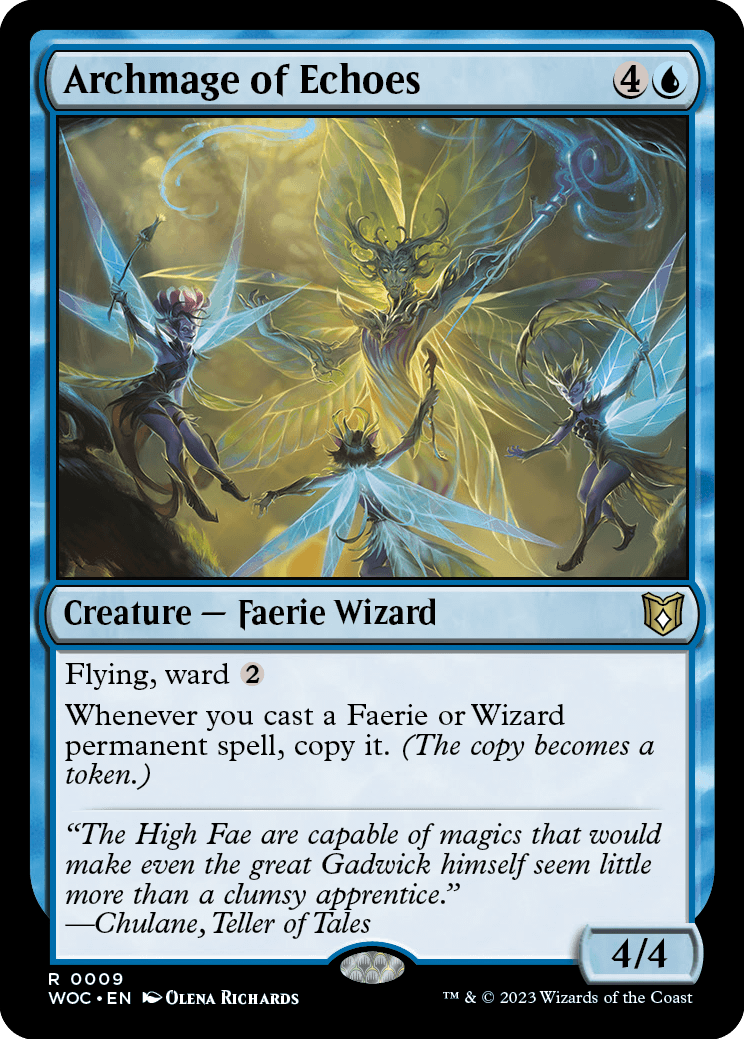
Archmage of Echoes
{4}{U}
Creature — Faerie Wizard
4/4
Flying, ward {2}
Whenever you cast a Faerie or Wizard permanent spell, copy it. (The copy becomes a token.)
- A resolving copy of a permanent spell becomes a token, so the token isn't "created." Effects that care about a token being created won't interact with a token that enters the battlefield from Archmage of Echoes's ability.
- The copy remembers any decisions that were made for the original spell as it was cast, including values chosen for X in its mana cost and whether any alternative or additional costs were chosen. For example, if the original creature spell had kicker and its kicker cost was paid, the copy will also be kicked.
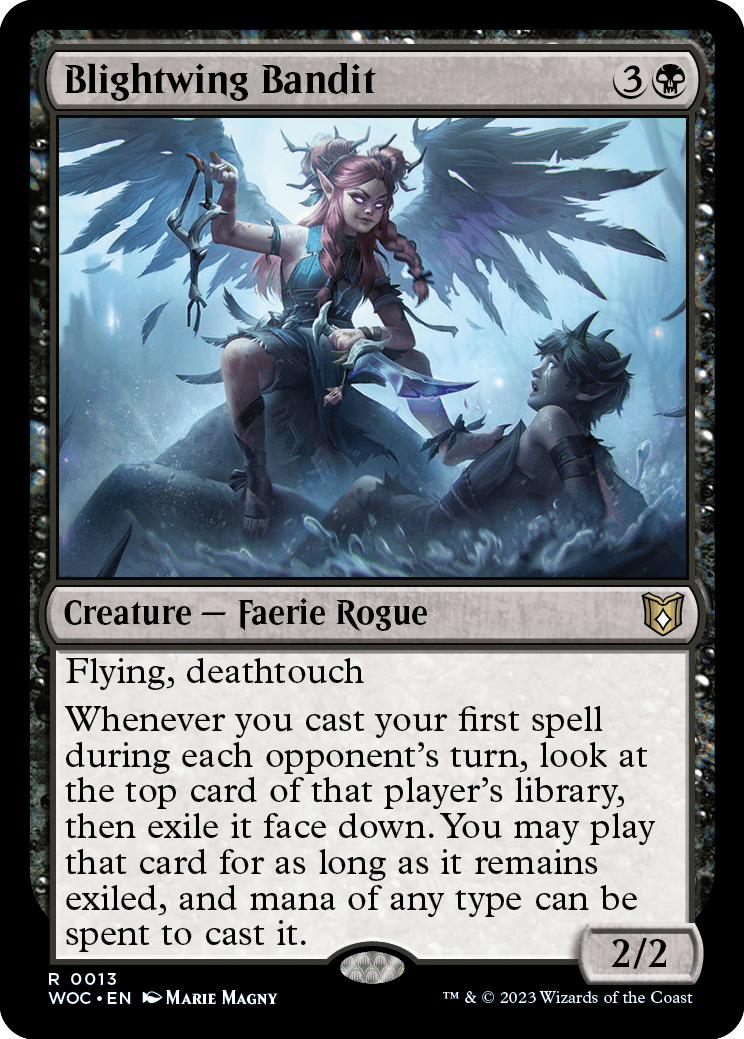
Blightwing Bandit
{3}{B}
Creature — Faerie Rogue
2/2
Flying, deathtouch
Whenever you cast your first spell during each opponent's turn, look at the top card of that player's library, then exile it face down. You may play that card for as long as it remains exiled, and mana of any type can be spent to cast it.
- You may look at and cast the exiled cards (and spend mana of any type to do so) even if Blightwing Bandit leaves the battlefield. If another player gains control of Blightwing Bandit, that player can't look at or cast the cards, and you still can.
- You pay the costs for an exiled card if you cast it. You may pay any alternative costs the card has rather than the card's mana cost.
- The six types of mana are white, blue, black, red, green, and colorless. Snow mana is not a type of mana. Blightwing Bandit won't let you pay a snow cost using mana produced by a nonsnow source.
- Blightwing Bandit doesn't change when you can cast a spell. For example, if you exile a creature card without flash, you can cast it only during your main phase when the stack is empty.
- Casting an exiled card causes it to leave exile. You can't cast it multiple times.
- If you leave the game, the cards remain exiled face down indefinitely. No player may look at them.
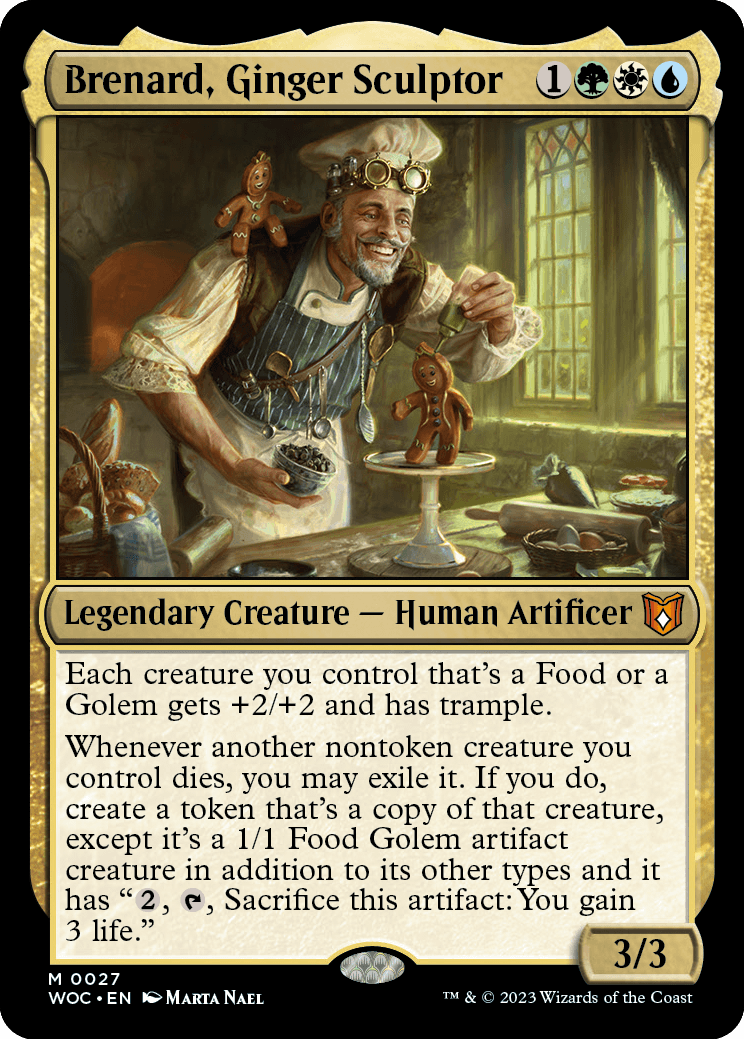
Brenard, Ginger Sculptor
{1}{G}{W}{U}
Legendary Creature — Human Artificer
3/3
Each creature you control that's a Food or a Golem gets +2/+2 and has trample.
Whenever another nontoken creature you control dies, you may exile it. If you do, create a token that's a copy of that creature, except it's a 1/1 Food Golem artifact creature in addition to its other types and it has "{2}, {T}, Sacrifice this artifact: You gain 3 life."
- Except for the listed exceptions, the token copies exactly what was printed on the original creature and nothing else (unless that creature was itself copying something else; see below). It doesn't copy whether that permanent was tapped or untapped, whether it had any counters on it or Auras attached to it, or any non-copy effects that changed its power, toughness, types, color, and so on.
- If the copied creature was copying something else, then the token enters the battlefield as whatever that creature copied, with the stated exceptions.
- If the copied creature had {X} in its mana cost, X is 0.
- Any enters-the-battlefield abilities of the copied creature will trigger when the token enters the battlefield. Any "as [this creature] enters the battlefield" or "[this creature] enters the battlefield with" abilities of the creature will also work.
- If something becomes a copy of the token, the copy also has base power and toughness 1/1, is a Food Golem artifact creature in addition to its other types, and has "{2}, {T}, Sacrifice this artifact: You gain 3 life."
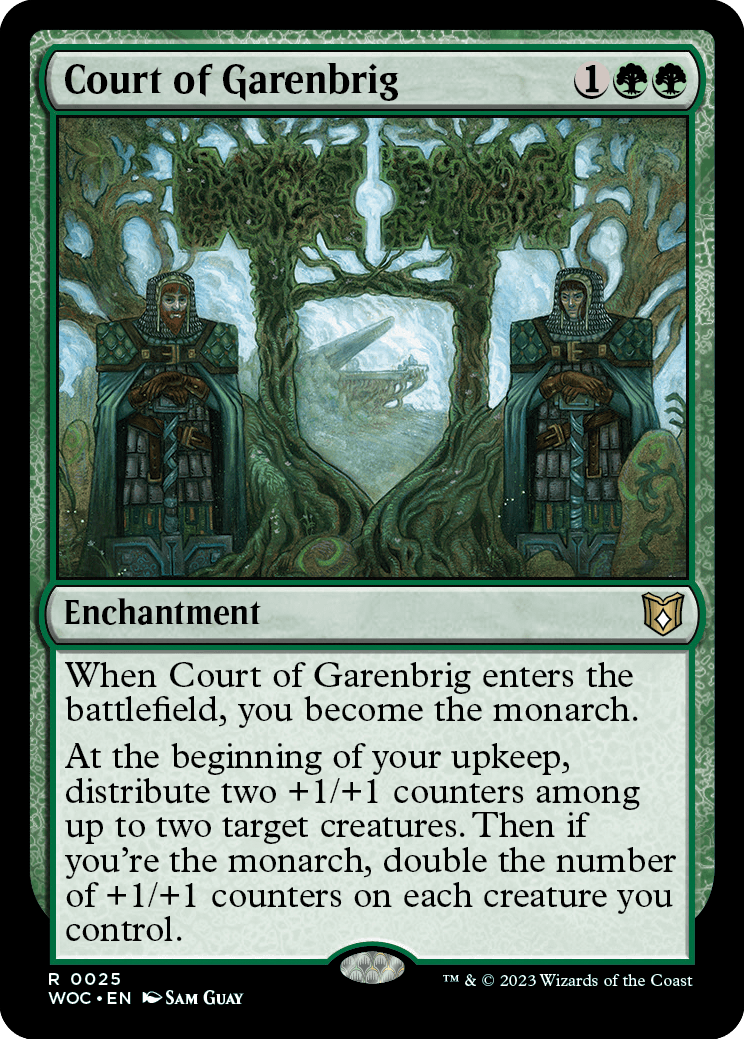
Court of Garenbrig
{1}{G}{G}
Enchantment
When Court of Garenbrig enters the battlefield, you become the monarch.
At the beginning of your upkeep, distribute two +1/+1 counters among up to two target creatures. Then if you're the monarch, double the number of +1/+1 counters on each creature you control.
- You choose how the counters will be distributed as you put Court of Garenbrig's last ability on the stack. Each target must receive at least one +1/+1 counter.
- If some of the creatures are illegal targets as Court of Garenbrig's last ability tries to resolve, the original distribution of counters still applies and the counters that would have been put on illegal targets are lost.
- To double the number of +1/+1 counters on a permanent, put a number of +1/+1 counters on it equal to the number it already has. Other cards that interact with putting counters on it will interact with this effect accordingly.
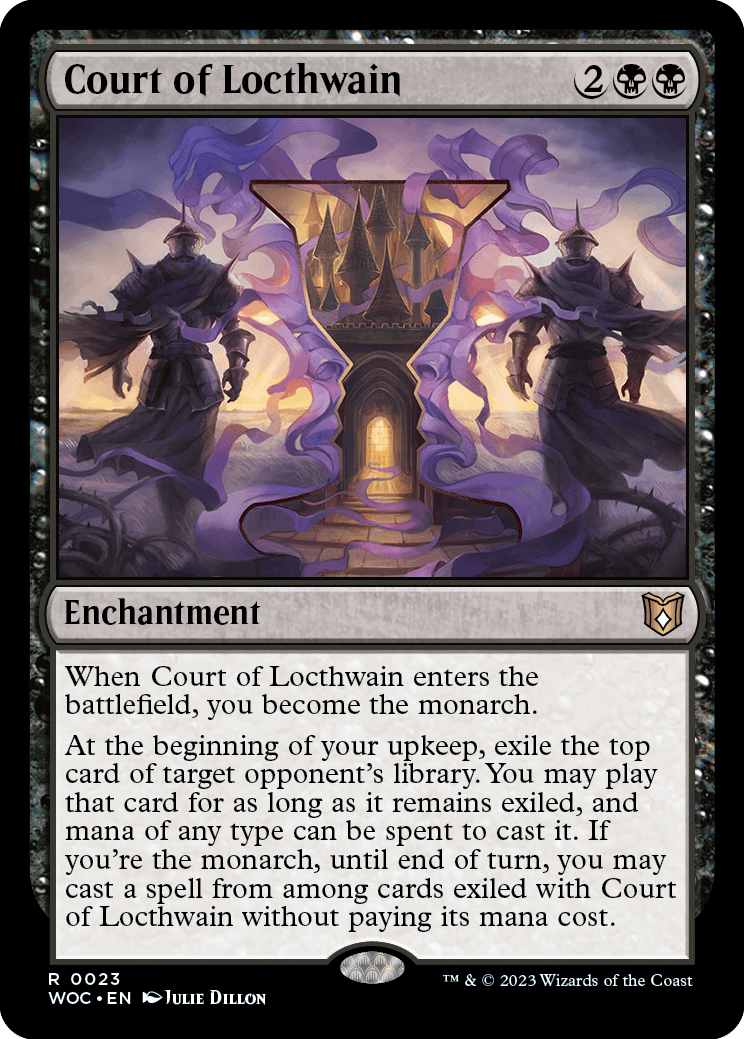
Court of Locthwain
{2}{B}{B}
Enchantment
When Court of Locthwain enters the battlefield, you become the monarch.
At the beginning of your upkeep, exile the top card of target opponent's library. You may play that card for as long as it remains exiled, and mana of any type can be spent to cast it. If you're the monarch, until end of turn, you may cast a spell from among cards exiled with Court of Locthwain without paying its mana cost.
- You may play the exiled cards (and spend mana of any type to do so) even if Court of Locthwain leaves the battlefield. If another player gains control of Court of Locthwain, that player can't play the cards, and you still can.
- You pay the costs for an exiled card if you cast it. You may pay any alternative costs the card has rather than the card's mana cost.
- The six types of mana are white, blue, black, red, green, and colorless. Snow mana is not a type of mana. Court of Locthwain won't let you pay a snow cost using mana produced by a nonsnow source.
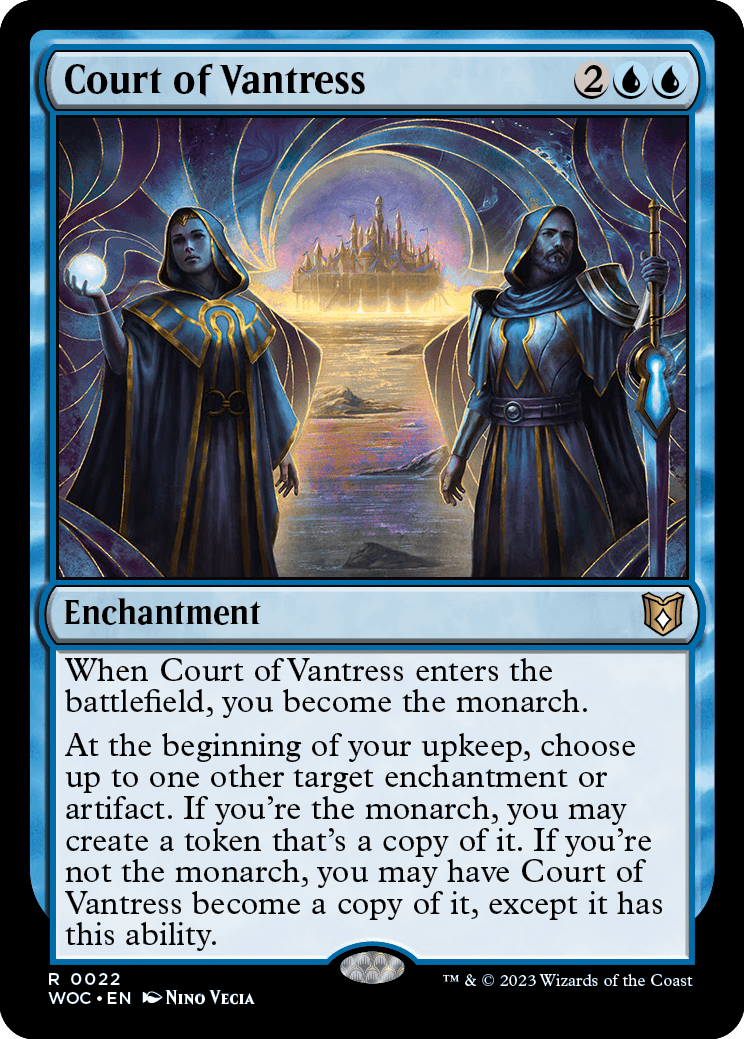
Court of Vantress
{2}{U}{U}
Enchantment
When Court of Vantress enters the battlefield, you become the monarch.
At the beginning of your upkeep, choose up to one other target enchantment or artifact. If you're the monarch, you may create a token that's a copy of it. If you're not the monarch, you may have Court of Vantress become a copy of it, except it has this ability.
- Court of Vantress copies the printed values of the enchantment or artifact plus any copy effects that have been applied to it.
- If Court of Vantress becomes a copy of a token, it copies the original characteristics of that token as defined by the effect that put it onto the battlefield. It won't become a token.
- If Court of Vantress becomes a copy of an Aura, it's put into its owner's graveyard unless it's somehow attached to an appropriate object or player already. If it becomes a copy of an Equipment and is attached to a creature, it'll become unattached when it becomes a non-Equipment, non-Aura permanent.
- The copy effect lasts indefinitely. Often, it will last until it is overwritten by another copy effect (if it copies another permanent on a future turn, perhaps).
- When Court of Vantress becomes a copy of a permanent, it's neither entering nor leaving the battlefield. Any enters-the-battlefield or leaves-the-battlefield abilities won't trigger.
- If another permanent becomes a copy of Court of Vantress, it will become a copy of whatever Court of Vantress is currently copying (if anything) that also has Court of Vantress's last ability.
- The token copies exactly what was printed on the original permanent and nothing else (unless that permanent is itself copying something else; see below). It doesn't copy whether that permanent is tapped or untapped, whether it has any counters on it or Auras attached to it, or any non-copy effects that have changed its power, toughness, types, color, and so on.
- If the copied permanent is copying something else, then the token enters the battlefield as whatever that permanent copied, with the stated exceptions.
- If the copied permanent has {X} in its mana cost, X is 0.
- Any enters-the-battlefield abilities of the copied permanent will trigger when the token enters the battlefield. Any "as [this permanent] enters the battlefield" or "[this permanent] enters the battlefield with" abilities of the permanent will also work.
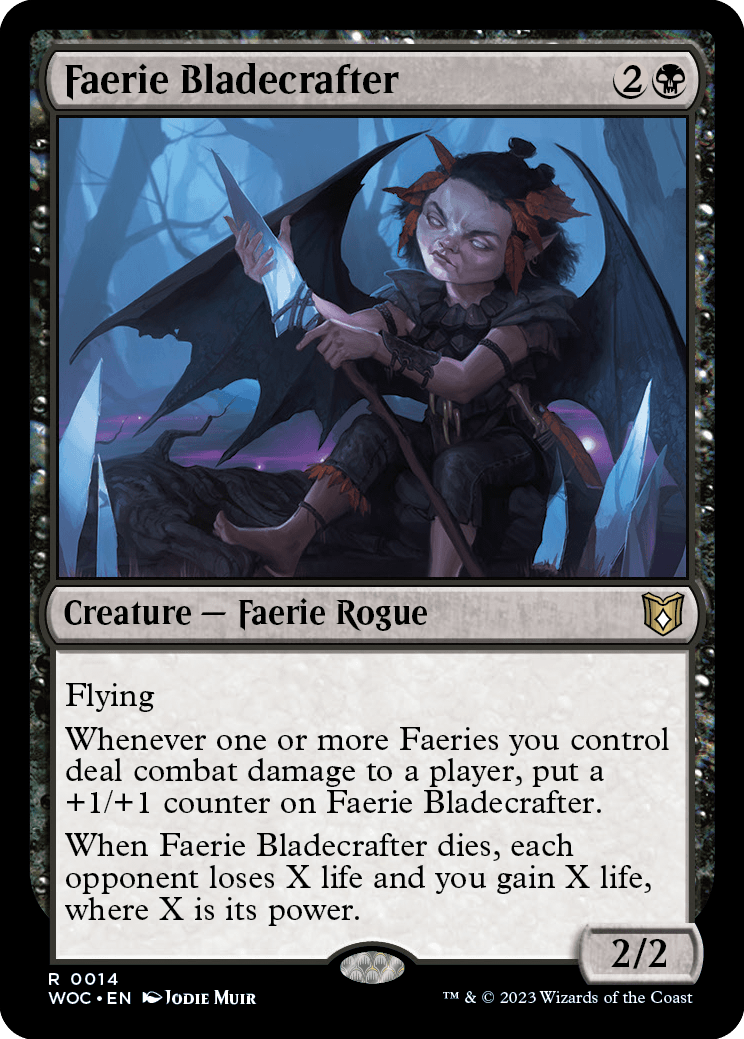
Faerie Bladecrafter
{2}{B}
Creature — Faerie Rogue
2/2
Flying
Whenever one or more Faeries you control deal combat damage to a player, put a +1/+1 counter on Faerie Bladecrafter.
When Faerie Bladecrafter dies, each opponent loses X life and you gain X life, where X is its power.
- Normally, combat damage is dealt all at the same time. In that case, Faerie Bladecrafter's first triggered ability triggers once for each player that Faeries you control dealt combat damage to, regardless of how many creatures were dealing that damage. If any of those Faeries have double strike or first strike, the ability will trigger once for each player dealt damage in each combat damage step.
- Use Faerie Bladecrafter's power from when it was last on the battlefield to determine the value of X.
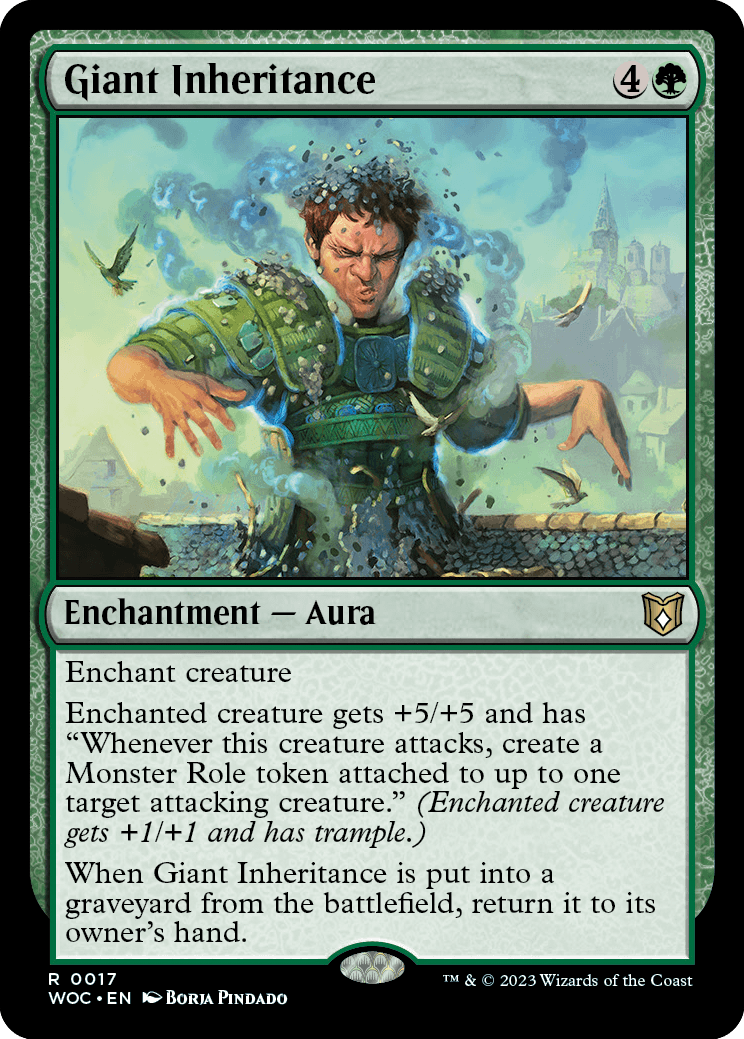
Giant Inheritance
{4}{G}
Enchantment — Aura
Enchant creature
Enchanted creature gets +5/+5 and has "Whenever this creature attacks, create a Monster Role token attached to up to one target attacking creature." (Enchanted creature gets +1/+1 and has trample.)
When Giant Inheritance is put into a graveyard from the battlefield, return it to its owner's hand.
- If you don't choose a target attacking creature with the ability granted by Giant Inheritance, the Monster Role token won't be created.
- If the creature Giant Inheritance would enchant is an illegal target by the time the Aura spell resolves, the entire spell doesn't resolve. It's put into the graveyard from the stack, not the battlefield, so its last ability won't trigger.
- Giant Inheritance will return to its owner's hand from the graveyard only if it's still in the graveyard when its ability resolves. If it leaves the graveyard before that point, it will stay in whatever zone it's in, even if it's returned to the graveyard before the ability resolves.
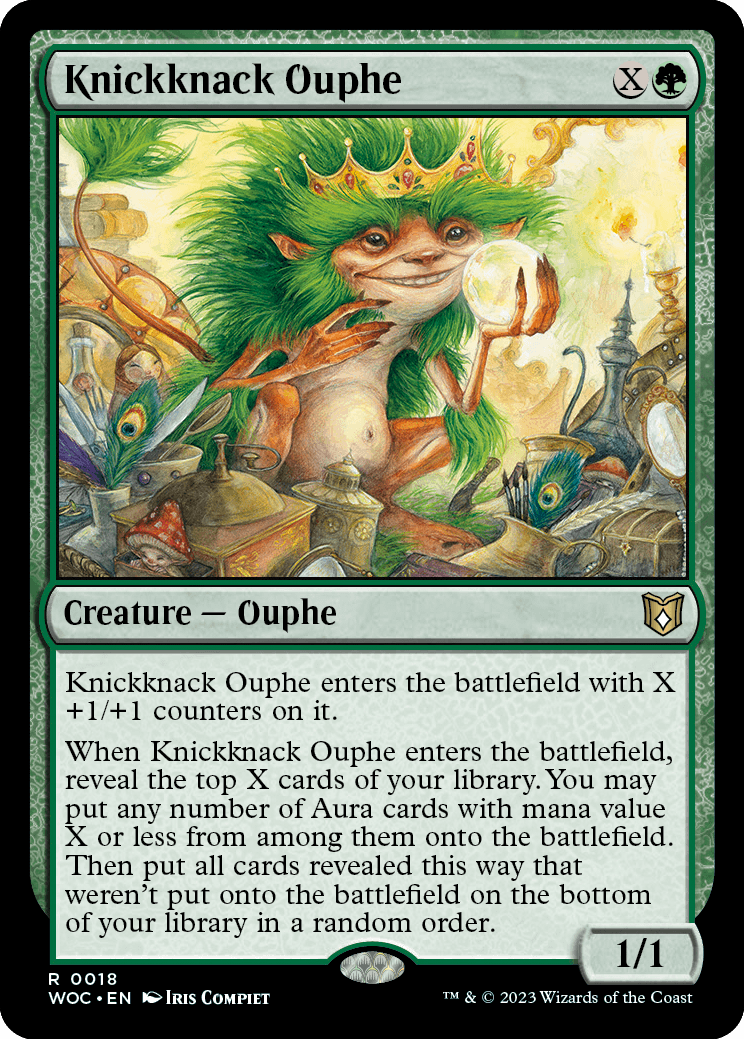
Knickknack Ouphe
{X}{G}
Creature — Ouphe
1/1
Knickknack Ouphe enters the battlefield with X +1/+1 counters on it.
When Knickknack Ouphe enters the battlefield, reveal the top X cards of your library. You may put any number of Aura cards with mana value X or less from among them onto the battlefield. Then put all cards revealed this way that weren't put onto the battlefield on the bottom of your library in a random order.
- An Aura put onto the battlefield this way doesn't target anything (so it could be attached to an opponent's permanent with hexproof, for example), but the Aura's enchant ability restricts what it can be attached to. If the Aura can't legally be attached to anything, you can't choose to put it onto the battlefield at all.
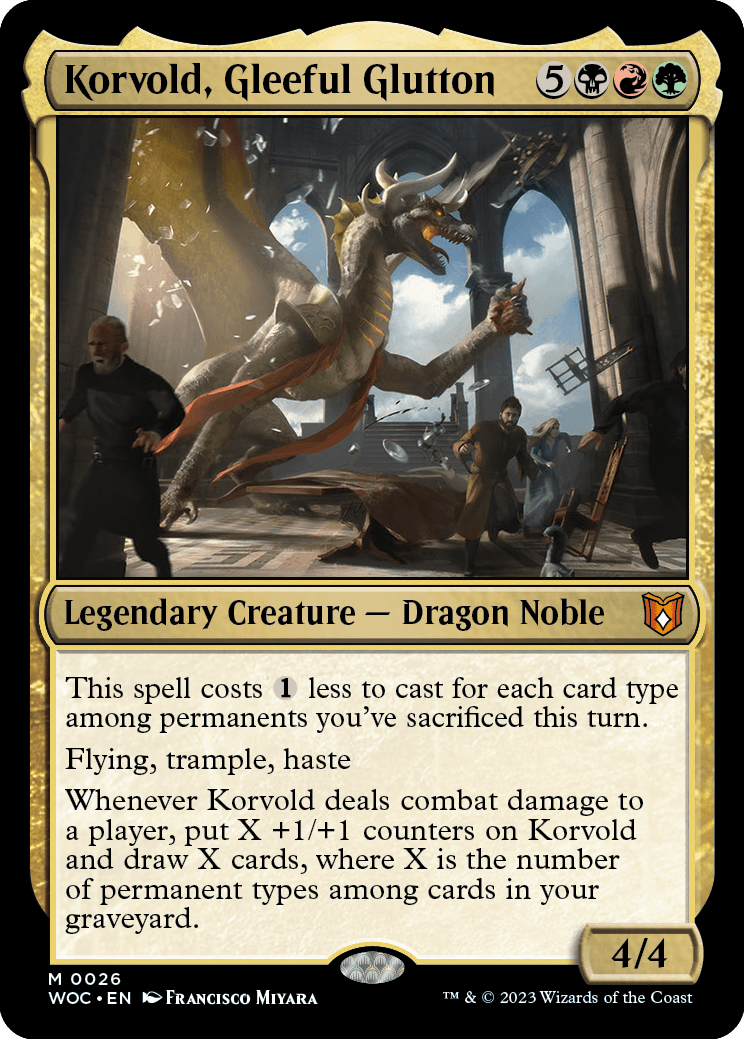
Korvold, Gleeful Glutton
{5}{B}{R}{G}
Legendary Creature — Dragon Noble
4/4
This spell costs {1} less to cast for each card type among permanents you've sacrificed this turn.
Flying, trample, haste
Whenever Korvold deals combat damage to a player, put X +1/+1 counters on Korvold and draw X cards, where X is the number of permanent types among cards in your graveyard.
- The permanent types are artifact, battle, creature, enchantment, land, and planeswalker. Things like "legendary" or "snow" are supertypes, not types. "Token" is not a type.
- The cost-reduction ability of Korvold, Gleeful Glutton doesn't change its mana cost or mana value, only the total cost you pay. Specifically, the mana value of Korvold, Gleeful Glutton is always 8.
- Korvold's cost-reduction ability doesn't affect the colored mana in its mana cost. It can't reduce its cost to less than {B}{R}{G}.
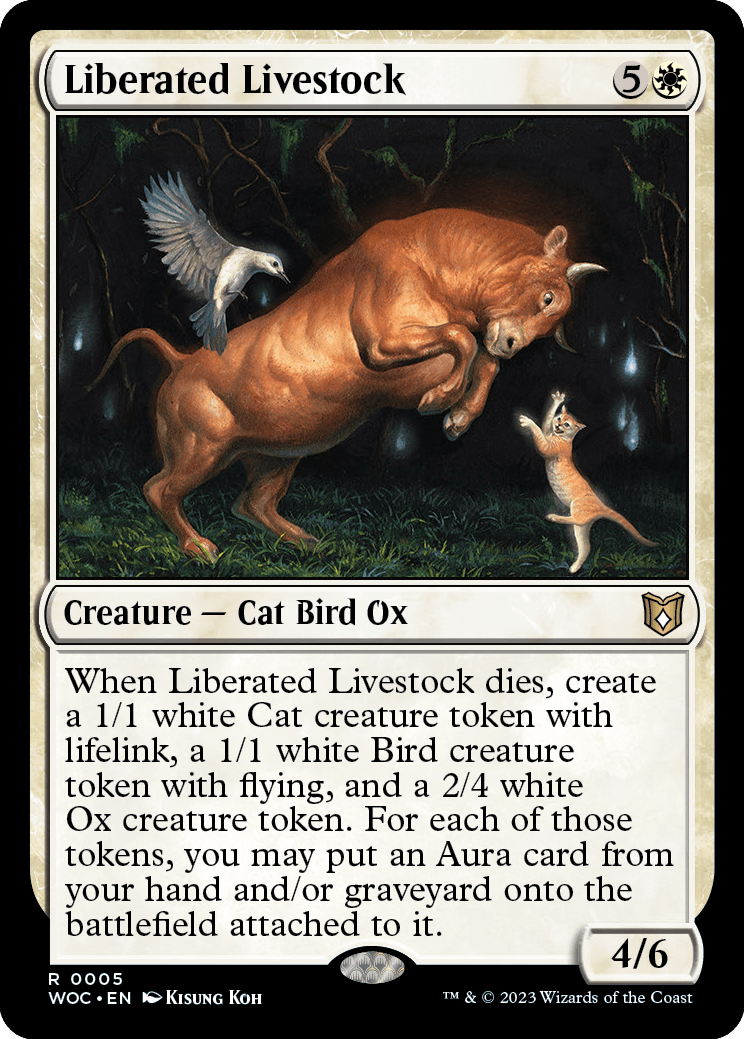
Liberated Livestock
{5}{W}
Creature — Cat Bird Ox
4/6
When Liberated Livestock dies, create a 1/1 white Cat creature token with lifelink, a 1/1 white Bird creature token with flying, and a 2/4 white Ox creature token. For each of those tokens, you may put an Aura card from your hand and/or graveyard onto the battlefield attached to it.
- If you attempt to put an Aura onto the battlefield this way and that Aura can't legally be attached to the token, that Aura does not enter the battlefield at all. Instead, it will stay in its previous zone.
- If Liberated Livestock's ability causes more than the expected number of tokens to be created (due to an effect such as that of Doubling Season), you may put an Aura card from your hand and/or graveyard onto the battlefield attached to each of the additional tokens as well.
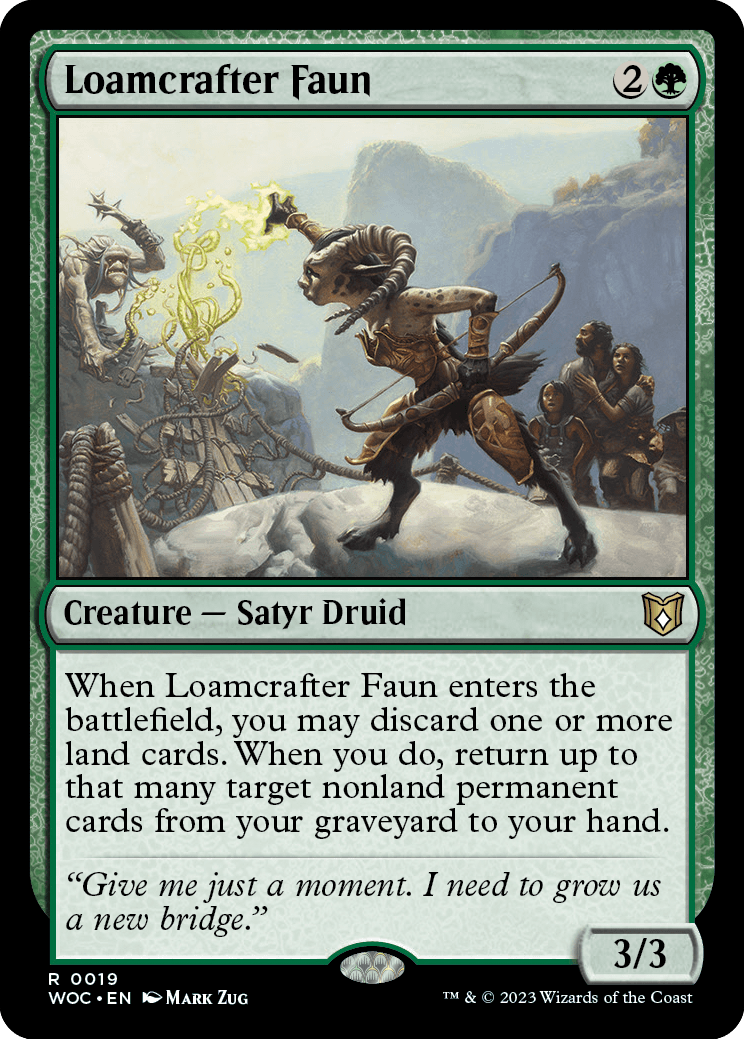
Loamcrafter Faun
{2}{G}
Creature — Satyr Druid
3/3
When Loamcrafter Faun enters the battlefield, you may discard one or more land cards. When you do, return up to that many target nonland permanent cards from your graveyard to your hand.
- You don't choose targets for Loamcrafter Faun's ability at the time it triggers. Rather, a second "reflexive" ability triggers when you discard one or more land cards this way. You choose targets for that ability as it goes on the stack. Each player may respond to this triggered ability as normal.
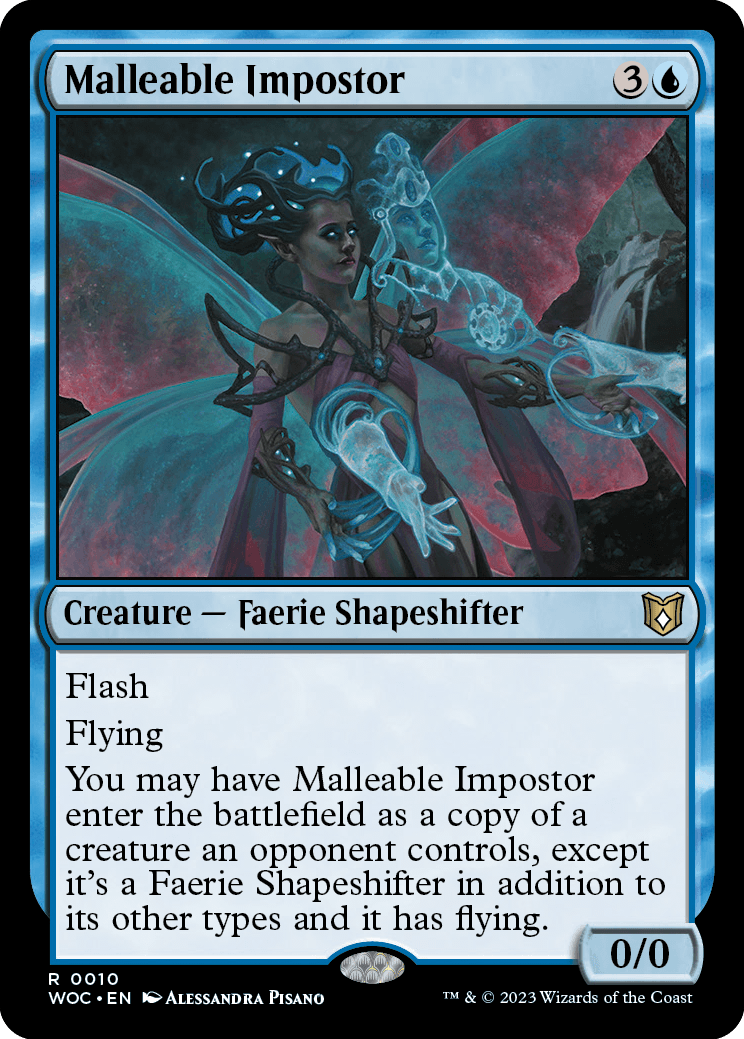
Malleable Impostor
{3}{U}
Creature — Faerie Shapeshifter
0/0
Flash
Flying
You may have Malleable Impostor enter the battlefield as a copy of a creature an opponent controls, except it's a Faerie Shapeshifter in addition to its other types and it has flying.
- Except for the listed exceptions, Malleable Impostor copies exactly what was printed on the original permanent and nothing more (unless that permanent is itself copying something or is a token; see below). It doesn't copy whether that permanent is tapped or untapped, whether it has any counters on it or Auras attached to it, or any noncopy effects that have changed its power, toughness, types, color, and so on.
- If the chosen permanent has {X} in its mana cost, X is 0.
- If the chosen permanent is copying something else (for example, if the chosen permanent is a Clone), then your Malleable Impostor enters the battlefield as whatever the chosen permanent copied, with the stated exceptions.
- If the chosen permanent is a token, Malleable Impostor copies the original characteristics of that token as stated by the effect that put the token onto the battlefield, with the listed exceptions. Malleable Impostor does not become a token.
- Any enters-the-battlefield abilities of the copied permanent will trigger when Malleable Impostor enters the battlefield. Any "as [this permanent] enters the battlefield" or "[this permanent] enters the battlefield with" abilities of the chosen permanent will also work.
- If Malleable Impostor somehow enters the battlefield at the same time as another creature, Malleable Impostor can't become a copy of that creature. You may choose only a creature that's already on the battlefield.
- You can choose not to copy anything. In that case, Malleable Impostor simply enters the battlefield as a 0/0 creature and is probably put into your graveyard immediately, unless something else is increasing its toughness to keep it alive.
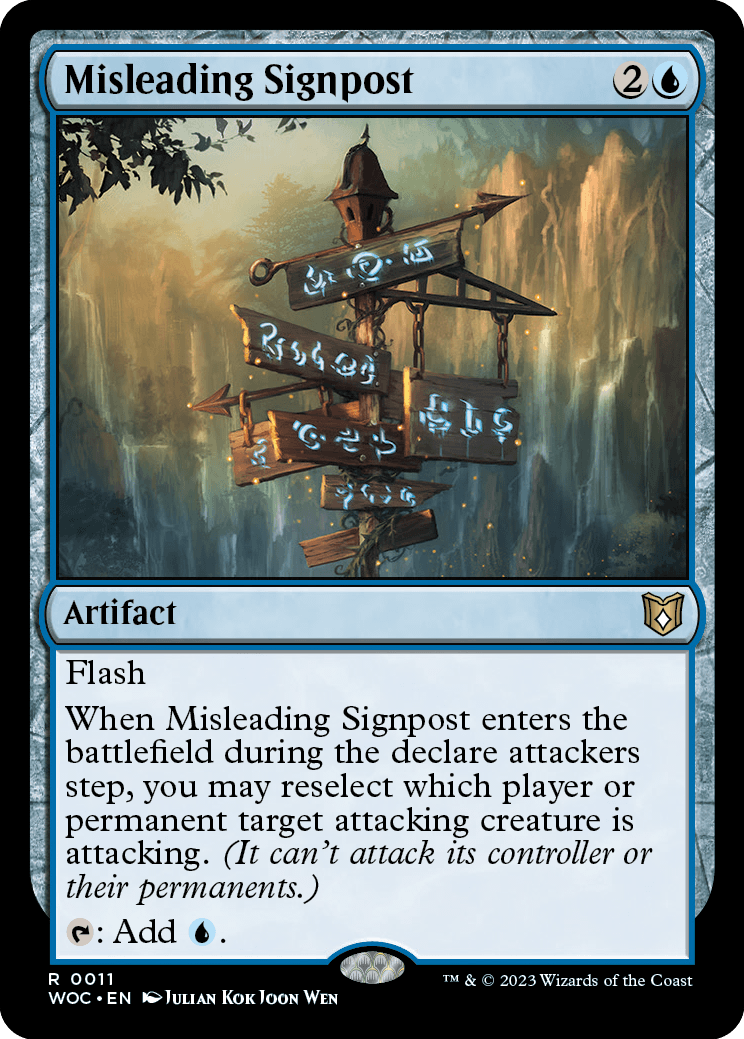
Misleading Signpost
{2}{U}
Artifact
Flash
When Misleading Signpost enters the battlefield during the declare attackers step, you may reselect which player or permanent target attacking creature is attacking. (It can't attack its controller or their permanents.)
{T}: Add {U}.
- You may cast Misleading Signpost outside of a declare attackers step. If Misleading Signpost enters the battlefield outside of a declare attackers step, its ability simply doesn't trigger.
- Reselecting which player or permanent a creature is attacking ignores all requirements, restrictions, and costs associated with attacking.
- Reselecting which player or permanent a creature is attacking doesn't cause "whenever this creature attacks" abilities to trigger.
- If you reselect which player or permanent an attacking creature is attacking, that creature is still considered to have attacked the player or permanent as declared, but it is now attacking the new player or permanent.
- If an ability targets something controlled by the "defending player" of an attacking creature and the defending player for that creature changes before that ability resolves, the ability won't resolve because its target has become illegal.
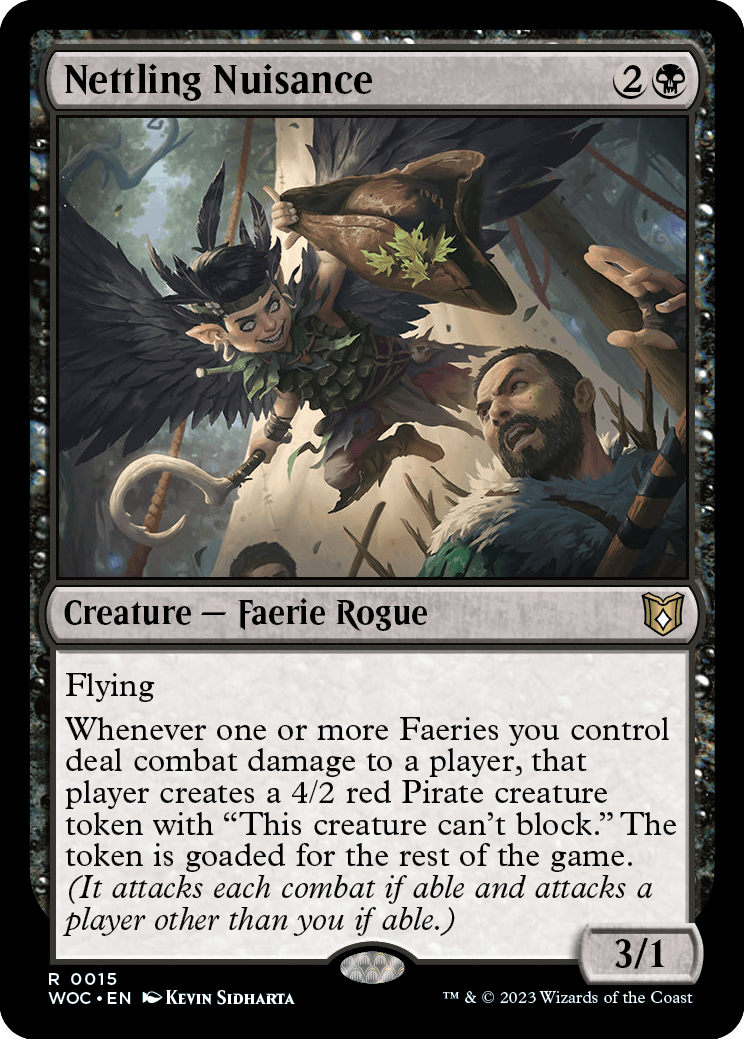
Nettling Nuisance
{2}{B}
Creature — Faerie Rogue
3/1
Flying
Whenever one or more Faeries you control deal combat damage to a player, that player creates a 4/2 red Pirate creature token with "This creature can't block." The token is goaded for the rest of the game. (It attacks each combat if able and attacks a player other than you if able.)
- Normally, combat damage is dealt all at the same time. In that case, Nettling Nuisance's ability triggers once for each player that Faeries you control dealt combat damage to, regardless of how many creatures were dealing that damage. If any of those Faeries have double strike or first strike, the ability will trigger once for each player dealt damage in each combat damage step.
- If, during a player's declare attackers step, a creature that player controls that's been goaded is tapped, is affected by a spell or ability that says it can't attack, or hasn't been under that player's control continuously since the turn began (and doesn't have haste), then it doesn't attack. If there's a cost associated with having a creature attack a player, its controller isn't forced to pay that cost, so it doesn't have to attack that player.
- If the creature doesn't meet any of the above exceptions and can attack, it must attack a player other than the controller of the spell or ability that goaded it if able. If the creature can't attack any of those players but could otherwise attack, it must attack a planeswalker an opponent controls, a battle an opponent protects, or the player that goaded it.
- Being goaded isn't an ability the creature has. Once it's been goaded, it must attack as detailed above even if it loses all abilities.
- Attacking with a goaded creature doesn't cause it to stop being goaded. If there is an additional combat phase that turn, or if another player gains control of it before it stops being goaded, it must attack again if able.
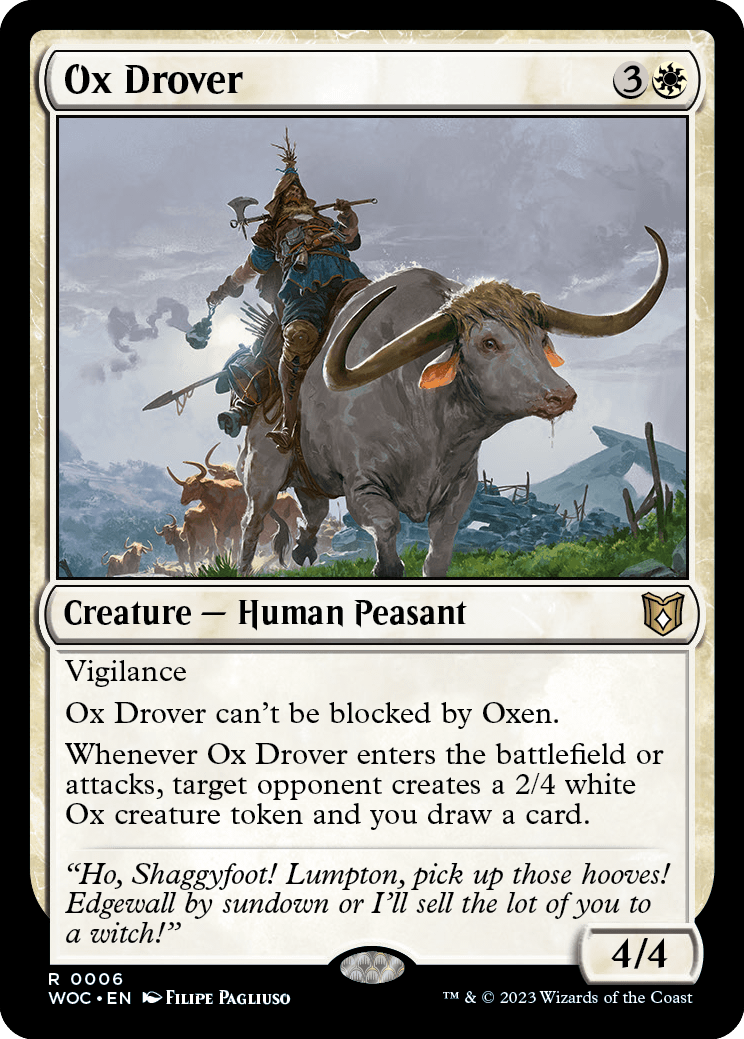
Ox Drover
{3}{W}
Creature — Human Peasant
4/4
Vigilance
Ox Drover can't be blocked by Oxen.
Whenever Ox Drover enters the battlefield or attacks, target opponent creates a 2/4 white Ox creature token and you draw a card.
- If the target opponent is an illegal target by the time Ox Drover's last ability tries to resolve, it won't resolve. They won't create an Ox token, and you won't draw a card.
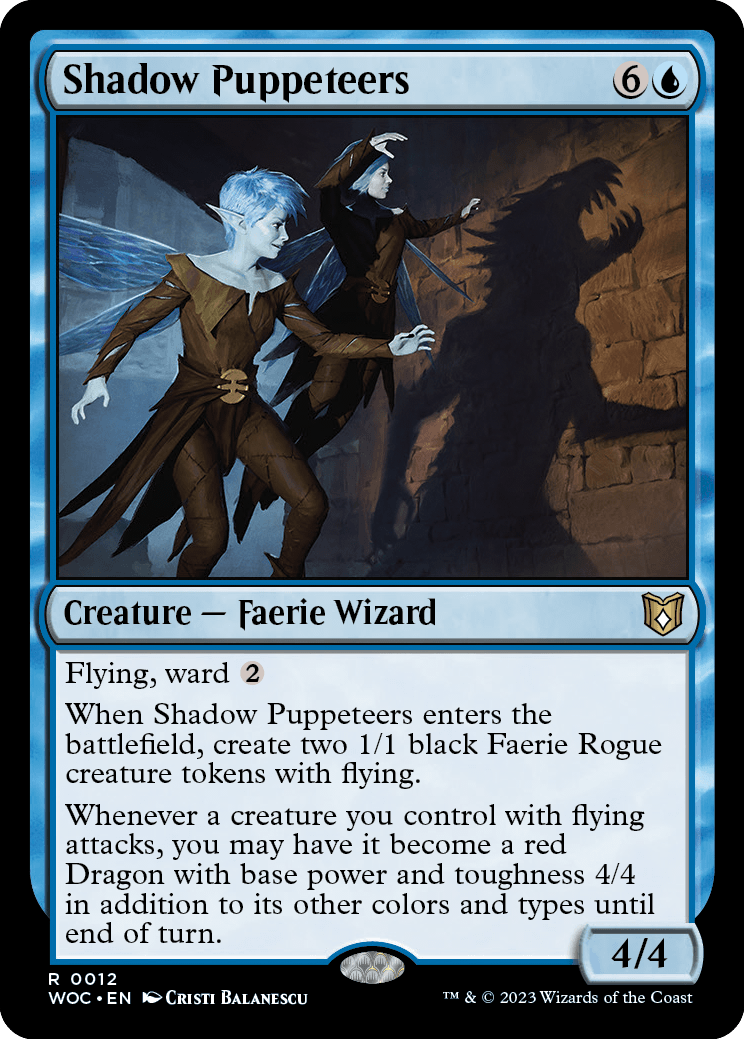
Shadow Puppeteers
{6}{U}
Creature — Faerie Wizard
4/4
Flying, ward {2}
When Shadow Puppeteers enters the battlefield, create two 1/1 black Faerie Rogue creature tokens with flying.
Whenever a creature you control with flying attacks, you may have it become a red Dragon with base power and toughness 4/4 in addition to its other colors and types until end of turn.
- Shadow Puppeteers's last ability doesn't remove any abilities the creature has.
- Shadow Puppeteers's last ability overwrites any previous effects that set the creature's power and/or toughness to specific values. Any power- or toughness-setting effects that start to apply after Shadow Puppeteers's last ability resolves will overwrite this effect.
- Effects that modify a creature's power and/or toughness, such as the one created by Squeak By or a +1/+1 counter, will apply to the creature no matter when they started to take effect.
- If the creature loses flying before Shadow Puppeteers's last ability resolves, the creature will still become a red Dragon with base power and toughness 4/4 in addition to its other colors and types until end of turn. It won't gain flying.
- If the creature stops being a creature before Shadow Puppeteers's last ability resolves, it will become red until end of turn in addition to its other colors. Since it's not a creature, it won't gain the Dragon subtype, and it won't have base power and toughness 4/4.
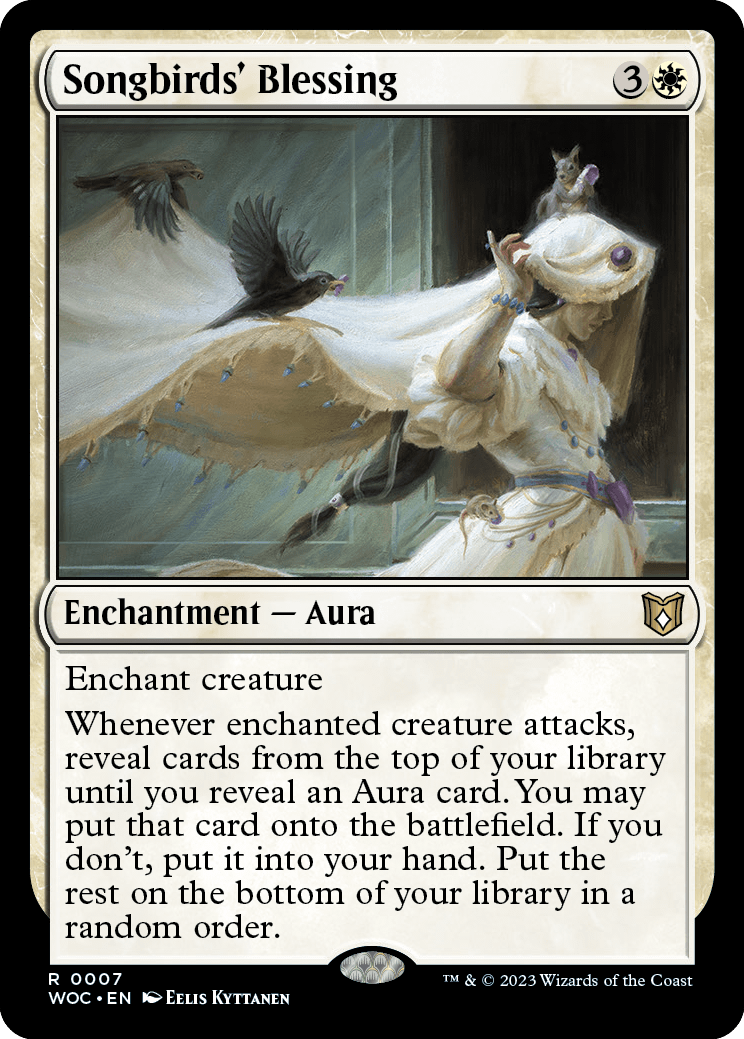
Songbirds' Blessing
{3}{W}
Enchantment — Aura
Enchant creature
Whenever enchanted creature attacks, reveal cards from the top of your library until you reveal an Aura card. You may put that card onto the battlefield. If you don't, put it into your hand. Put the rest on the bottom of your library in a random order.
- If you put an Aura card onto the battlefield with Songbirds' Blessing's triggered ability, you choose what it will enchant as it enters the battlefield. An Aura put onto the battlefield this way doesn't target anything (so it could be attached to an opponent's permanent with hexproof, for example), but the Aura's enchant ability restricts what it can be attached to. If the Aura can't legally be attached to anything, you won't be able to put it onto the battlefield, and it will be put into your hand by the next part of the effect.
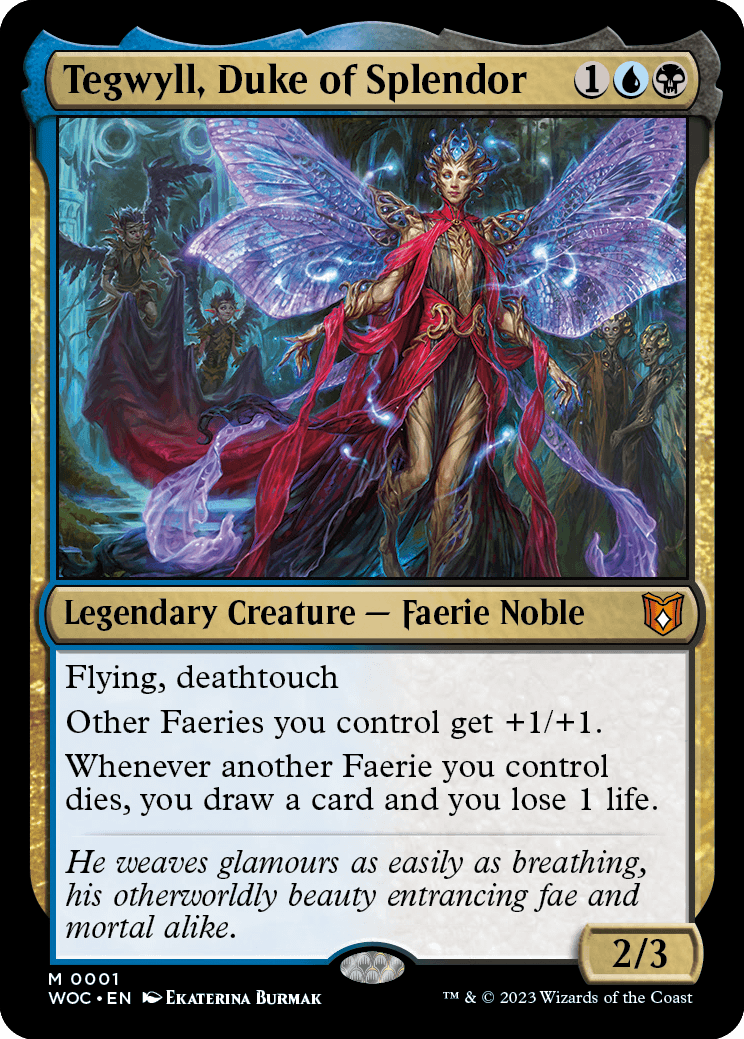
Tegwyll, Duke of Splendor
{1}{U}{B}
Legendary Creature — Faerie Noble
2/3
Flying, deathtouch
Other Faeries you control get +1/+1.
Whenever another Faerie you control dies, you draw a card and you lose 1 life.
- If Tegwyll, Duke of Splendor dies at the same time as one or more other Faeries you control, Tegwyll's ability triggers for each of those other Faeries.
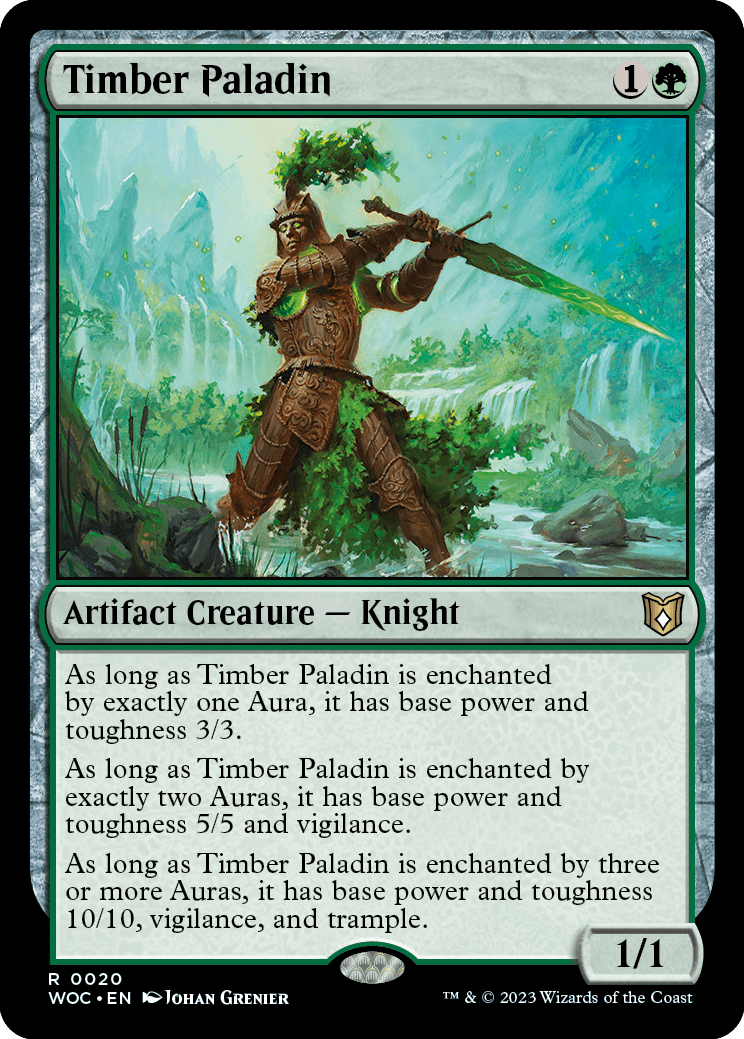
Timber Paladin
{1}{G}
Artifact Creature — Knight
1/1
As long as Timber Paladin is enchanted by exactly one Aura, it has base power and toughness 3/3.
As long as Timber Paladin is enchanted by exactly two Auras, it has base power and toughness 5/5 and vigilance.
As long as Timber Paladin is enchanted by three or more Auras, it has base power and toughness 10/10, vigilance, and trample.
- Timber Paladin's abilities each overwrite any previous effects that set creatures' power and/or toughness to specific numbers. Any power- or toughness-setting effects that start to apply after Timber Paladin enters the battlefield will overwrite these effects, regardless of when Timber Paladin became enchanted by one, two, or three or more Auras.
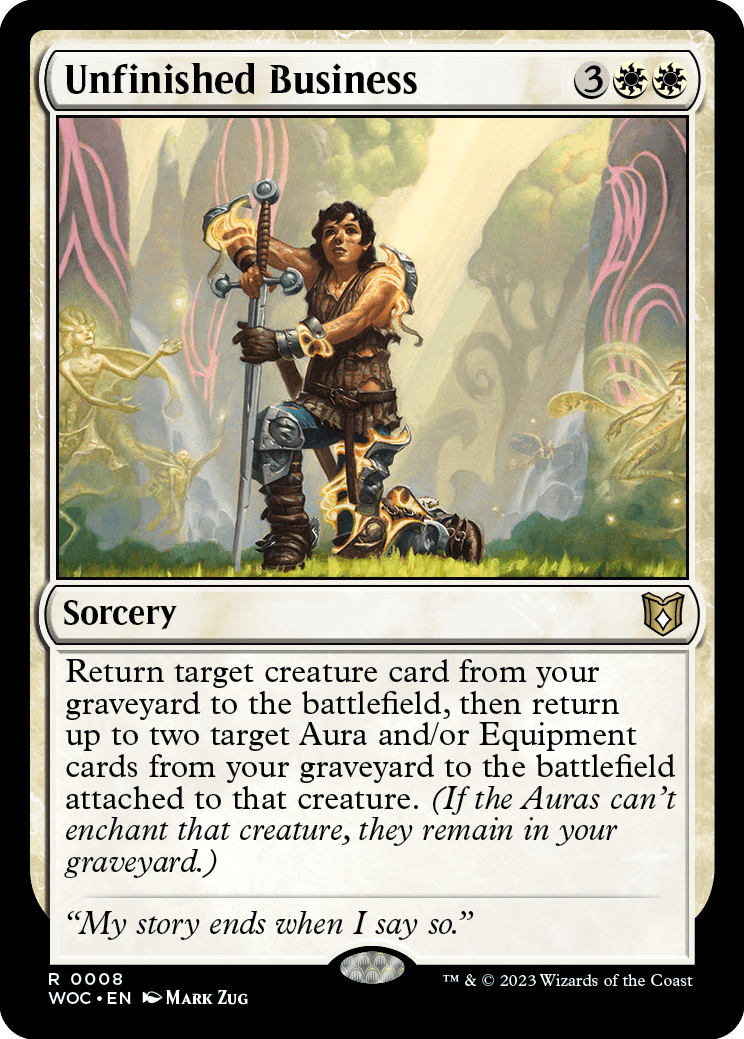
Unfinished Business
{3}{W}{W}
Sorcery
Return target creature card from your graveyard to the battlefield, then return up to two target Aura and/or Equipment cards from your graveyard to the battlefield attached to that creature. (If the Auras can't enchant that creature, they remain in your graveyard.)
- Any target Equipment cards that can't legally be attached to the creature will enter the battlefield unattached.
WILDS OF ELDRAINE ENCHANTING TALES CARD-SPECIFIC NOTES
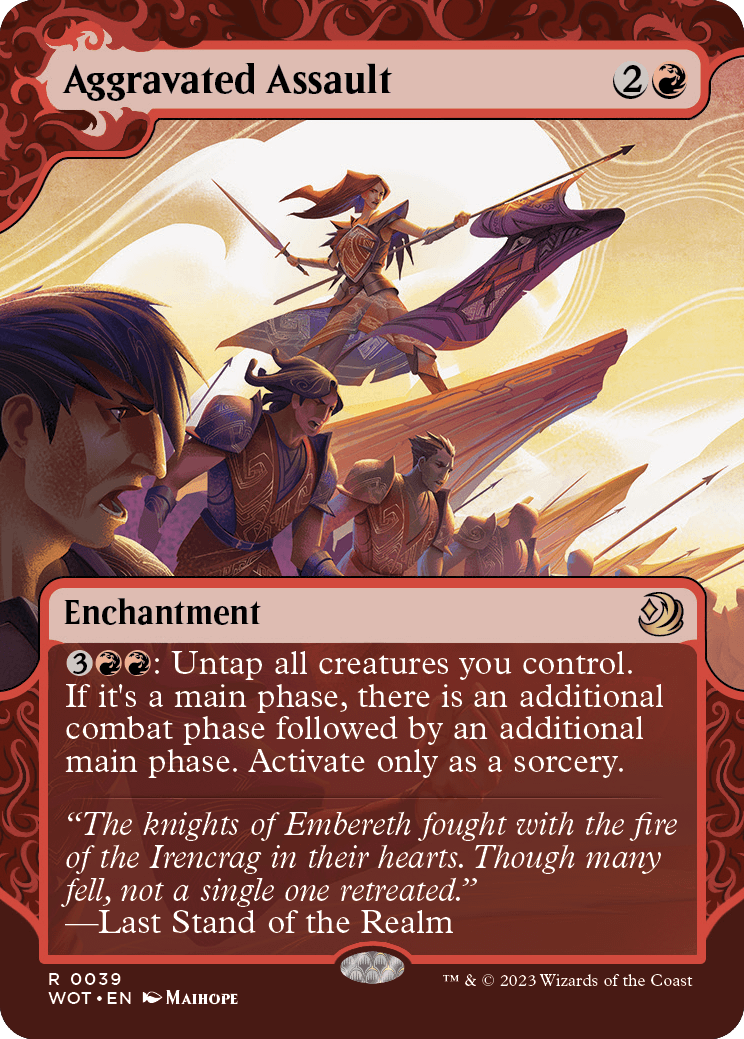
Aggravated Assault
{2}{R}
Enchantment
{3}{R}{R}: Untap all creatures you control. If it's a main phase, there is an additional combat phase followed by an additional main phase. Activate only as a sorcery.
- If you have enough mana, the ability may be activated more than once in a turn.
- You will normally activate this ability during your postcombat main phase so you can untap any creatures that attacked.
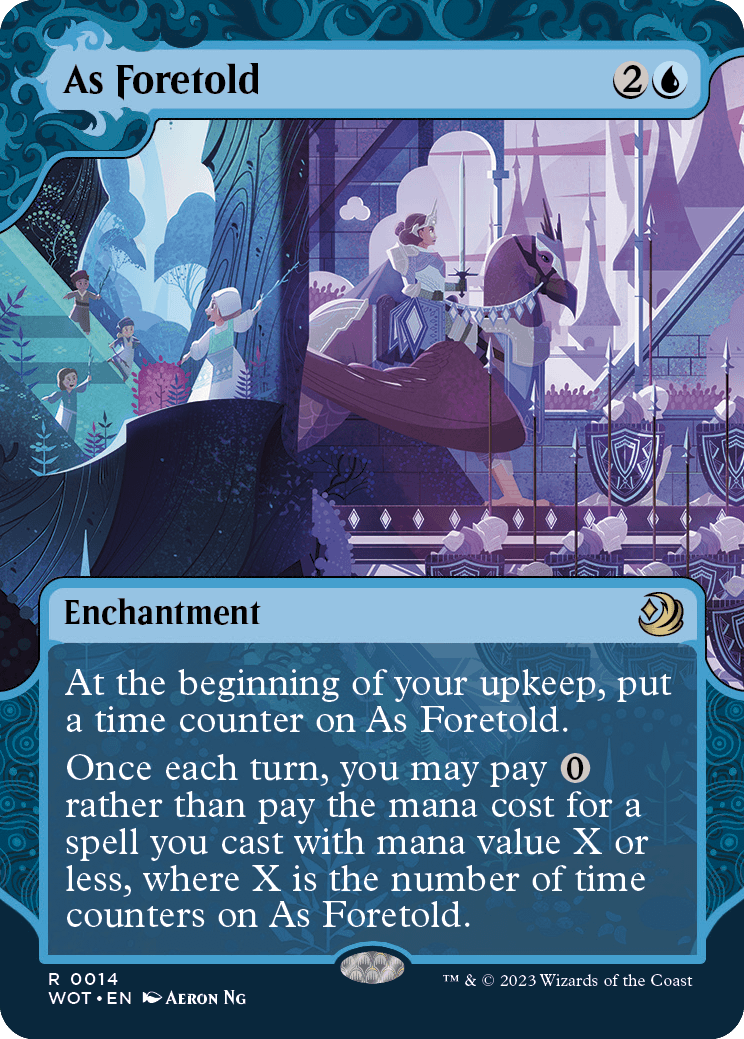
As Foretold
{2}{U}
Enchantment
At the beginning of your upkeep, put a time counter on As Foretold.
Once each turn, you may pay {0} rather than pay the mana cost for a spell you cast with mana value X or less, where X is the number of time counters on As Foretold.
- If you cast a spell for an alternative cost of {0}, you can't pay any other alternative costs, such as emerge costs. You can, however, pay additional costs, such as bargain. If the spell has any mandatory additional costs, such as that of Tormenting Voice, you must pay those to cast the spell.
- A card's mana value is determined solely by the mana symbols printed in its upper right corner. The mana value is the total amount of mana in that cost, regardless of color. For example, a card with mana cost {1}{U}{U} has mana value 3. Ignore any alternative costs, additional costs, cost increases, or cost reductions that could apply to it.
- If a spell has no mana cost, its mana value is 0. You can cast it with As Foretold's alternative cost.
- If you're casting a split card, only the mana value of the half you're casting is compared to the number of time counters on As Foretold. This is because only that half is on the stack at the time that you choose to apply the effect of As Foretold.
- If the card has {X} in its mana cost, you must choose 0 as the value of X when casting it for another cost that doesn't include X. For example, if there are five time counters on As Foretold and you choose to use its effect to cast Pull from Tomorrow, X must be 0. X can't be 2, even though the spell's mana value would be 4.
- If you control multiple As Foretolds, you may cast one spell for each of them paying {0}.
- All counters with the same name are indistinguishable from other counters with that name. Cards that interact with time counters will interact with As Foretold.
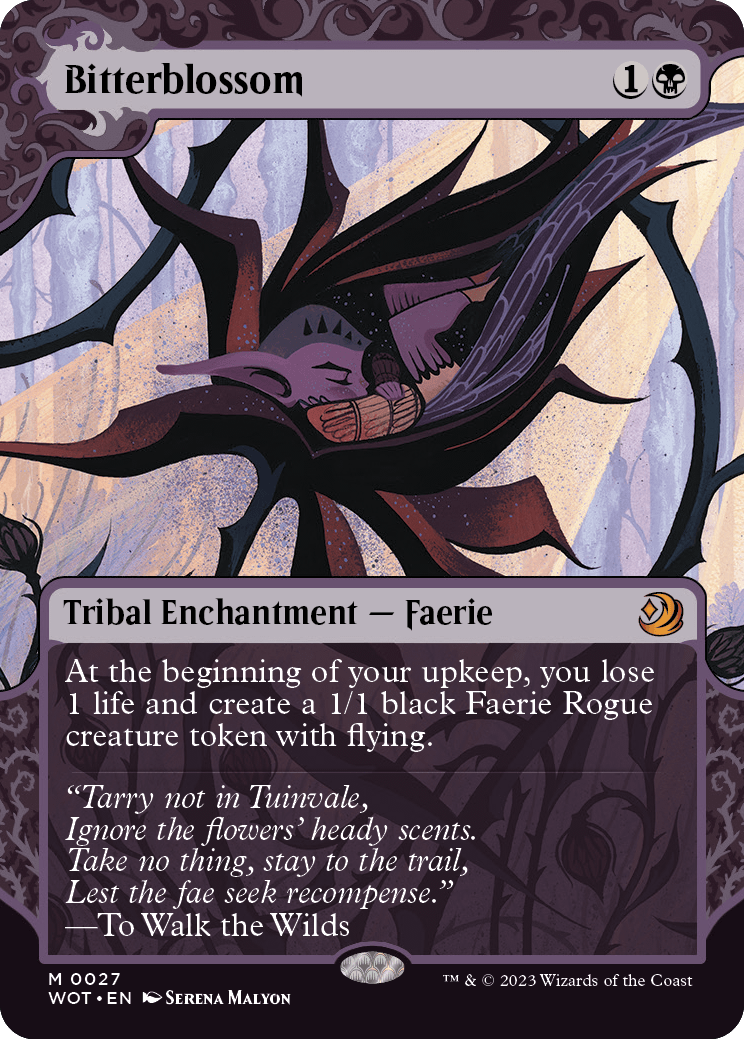
Bitterblossom
{1}{B}
Tribal Enchantment — Faerie
At the beginning of your upkeep, you lose 1 life and create a 1/1 black Faerie Rogue creature token with flying.
- The effect is mandatory. You'll lose 1 life even if you have only 1 life left.
- The life loss isn't a payment. You'll get a token even if you had 0 life (and another effect is stopping you from losing the game).
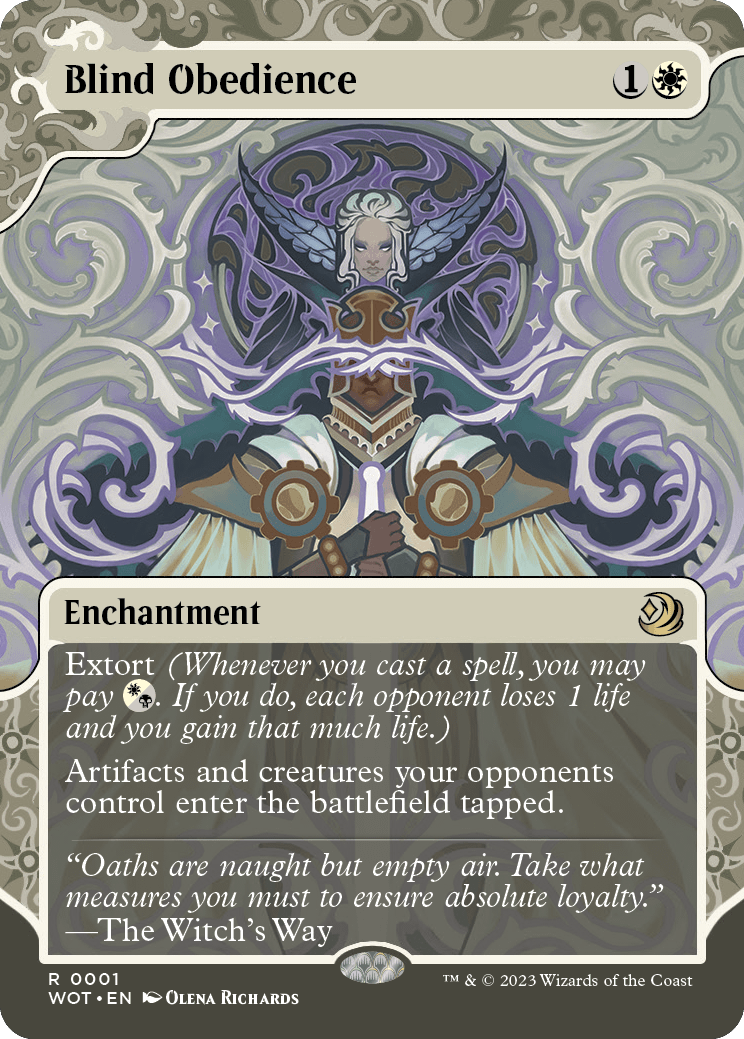
Blind Obedience
{1}{W}
Enchantment
Extort (Whenever you cast a spell, you may pay {W/B}. If you do, each opponent loses 1 life and you gain that much life.)
Artifacts and creatures your opponents control enter the battlefield tapped.
- You may pay {W/B} a maximum of one time for each extort triggered ability. You decide whether to pay when the ability resolves.
- The amount of life you gain from extort is based on the total amount of life lost, not necessarily the number of opponents you have. For example, if your opponent's life total can't change (perhaps because that player controls Platinum Emperion), you won't gain any life.
- The extort ability doesn't target any player.
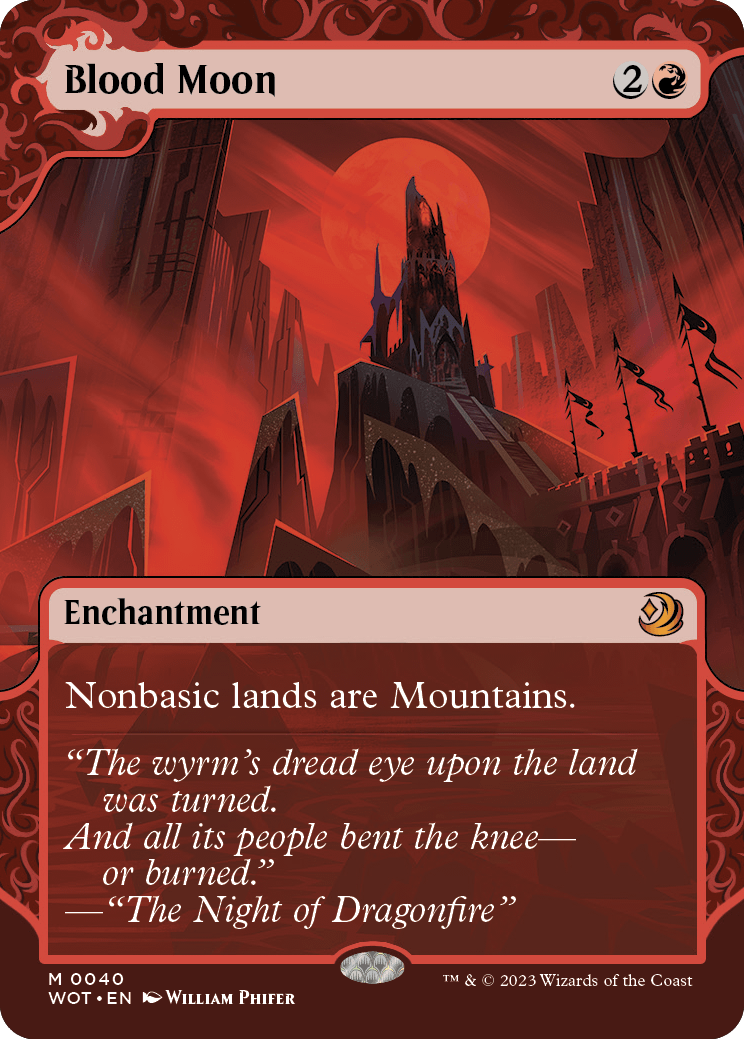
Blood Moon
{2}{R}
Enchantment
Nonbasic lands are Mountains.
- If a nonbasic land has an ability that triggers "when" it enters the battlefield, it will lose that ability before it can trigger.
- If a nonbasic land has an ability that causes it to enter the battlefield tapped, it will lose that ability before it can apply. The same is also true of any other abilities that modify how a land enters the battlefield or apply "as" a land enters the battlefield, such as the first ability of Cavern of Souls.
- Nonbasic lands will lose any other land types and abilities they had. They will gain the land type Mountain and gain the ability "{T}: Add {R}."
- This effect doesn't affect names or supertypes. It won't turn any land into a basic land or remove the legendary supertype from a legendary land, and the lands won't be named "Mountain."
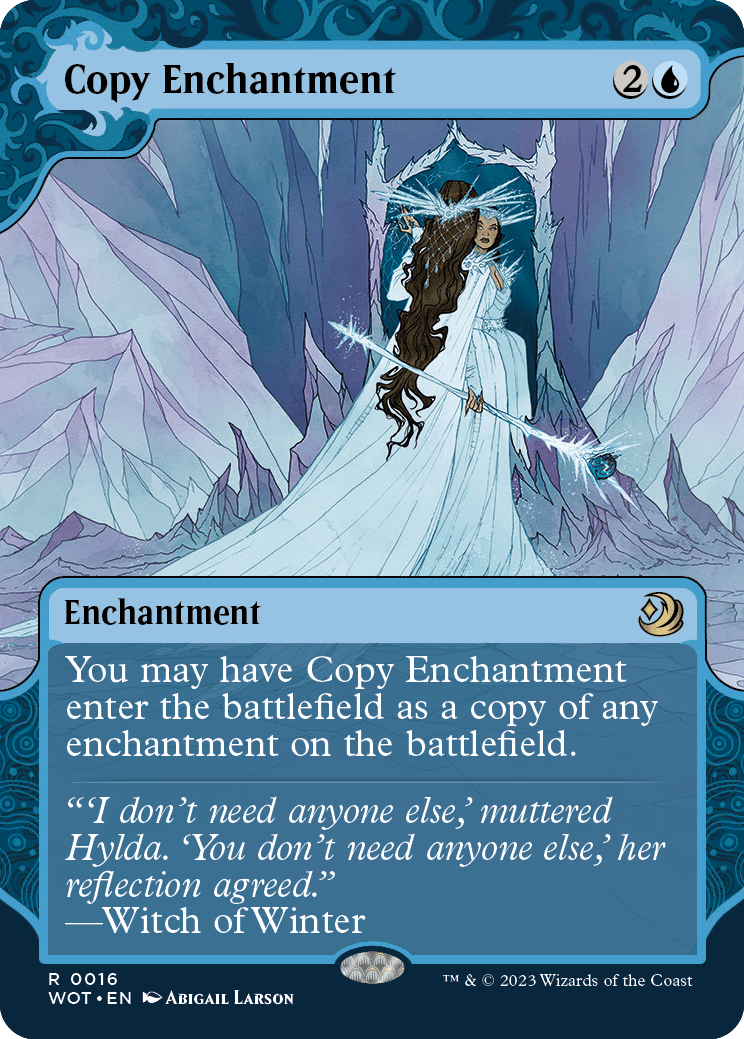
Copy Enchantment
{2}{U}
Enchantment
You may have Copy Enchantment enter the battlefield as a copy of any enchantment on the battlefield.
- Copy Enchantment copies exactly what was printed on the original permanent and nothing more (unless that permanent is itself copying something or is a token; see below). It doesn't copy whether that permanent is tapped or untapped, whether it has any counters on it or Auras attached to it, or any noncopy effects that have changed its power, toughness, types, color, and so on.
- If the chosen permanent has {X} in its mana cost, X is 0.
- If the chosen permanent is copying something else (for example, if the chosen permanent is another Copy Enchantment), then your Copy Enchantment enters the battlefield as whatever the chosen permanent copied.
- If the chosen permanent is a token, Copy Enchantment copies the original characteristics of that token as stated by the effect that put the token onto the battlefield. Copy Enchantment does not become a token.
- If Copy Enchantment copies an Aura this way, you choose what the Aura will enchant just before it enters the battlefield. You can't choose any permanents entering the battlefield at the same time as that Aura. This doesn't target the player or permanent it will enchant, so an opponent's permanent with hexproof may be chosen this way. The chosen recipient must be able to legally be enchanted by the Aura, so a player or permanent with protection from one of the Aura's qualities can't be chosen this way. If there's nothing legal for the Aura to enchant, Copy Enchantment stays in its current zone (unless it's a spell, in which case it's put into its owner's graveyard).
- Any enters-the-battlefield abilities of the copied permanent will trigger when Copy Enchantment enters the battlefield. Any "as [this enchantment] enters the battlefield" or "[this enchantment] enters the battlefield with" abilities of the chosen permanent will also work.
- If Copy Enchantment somehow enters the battlefield at the same time as another permanent, Copy Enchantment can't become a copy of that permanent. You may choose only a permanent that's already on the battlefield.
- You can choose not to copy anything. In that case, Copy Enchantment simply enters the battlefield as an enchantment with an irrelevant ability. We're sure you had your reasons.
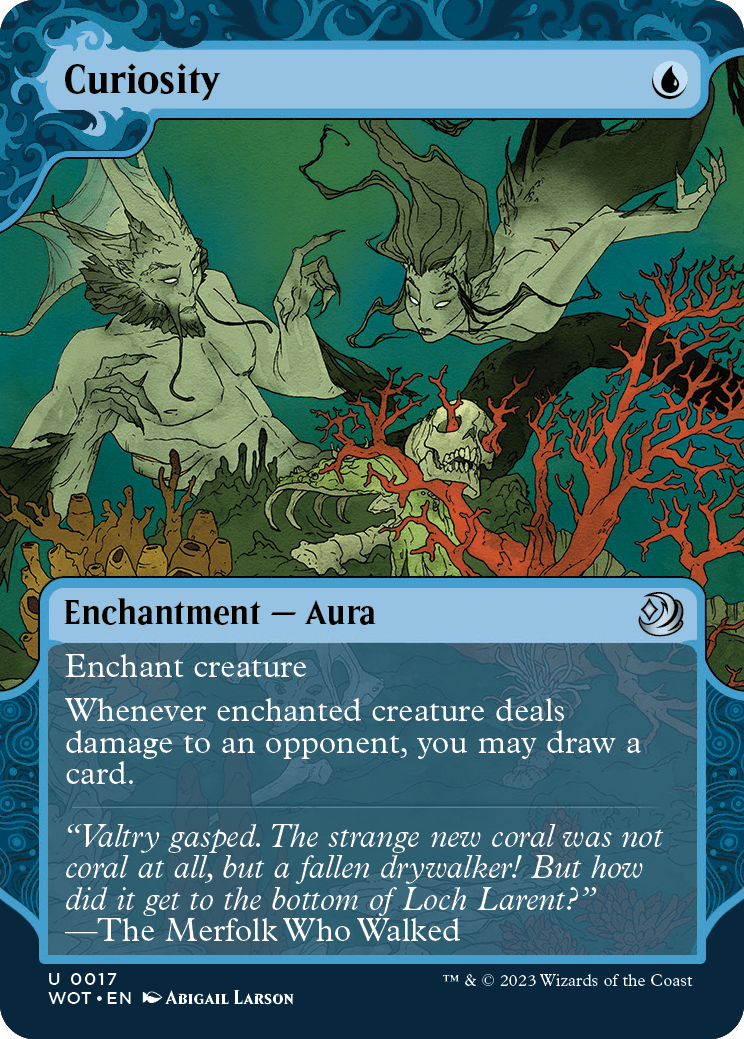
Curiosity
{U}
Enchantment — Aura
Enchant creature
Whenever enchanted creature deals damage to an opponent, you may draw a card.
- "You" refers to the controller of Curiosity, which may be different from the controller of the enchanted creature. "An opponent" refers to an opponent of Curiosity's controller.
- Any damage dealt by the enchanted creature to an opponent will cause Curiosity to trigger, not just combat damage.
- Curiosity doesn't trigger if the enchanted creature deals damage to a planeswalker or to a battle.
- You draw one card each time the enchanted creature deals damage to an opponent, no matter how much damage it deals.
- If you control Curiosity and it's enchanting an opponent's creature, you won't draw a card when that creature deals damage to you. The creature has to deal damage to one of your opponents for the ability to trigger.
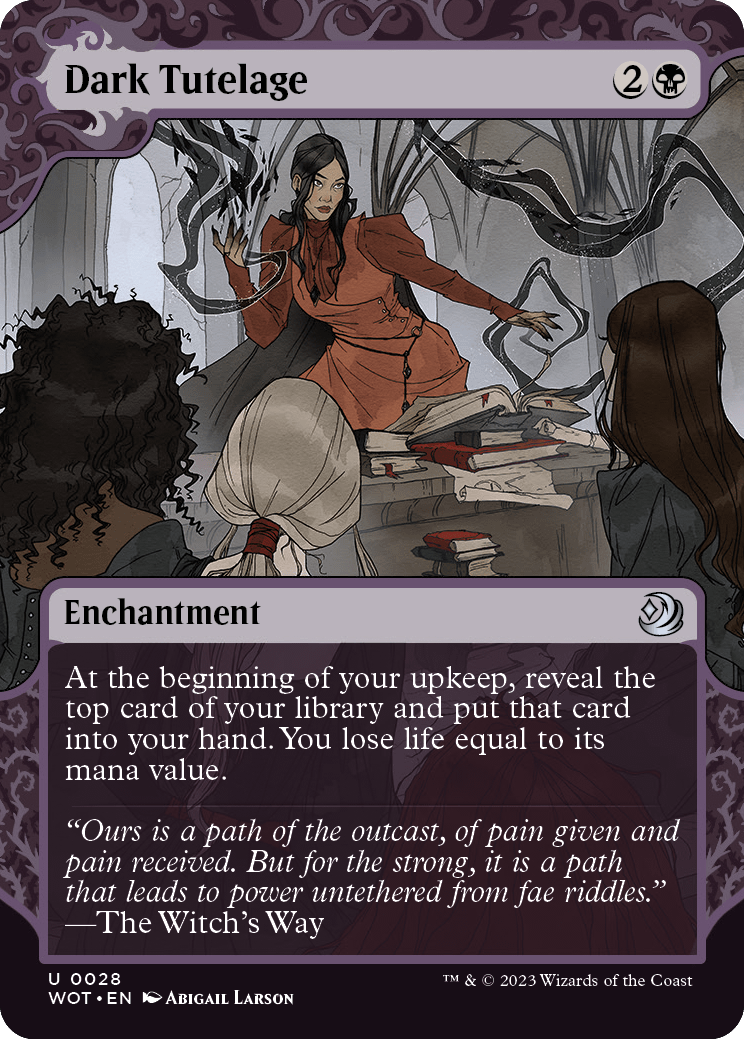
Dark Tutelage
{2}{B}
Enchantment
At the beginning of your upkeep, reveal the top card of your library and put that card into your hand. You lose life equal to its mana value.
- If the mana cost of the revealed card includes {X}, X is considered to be 0.
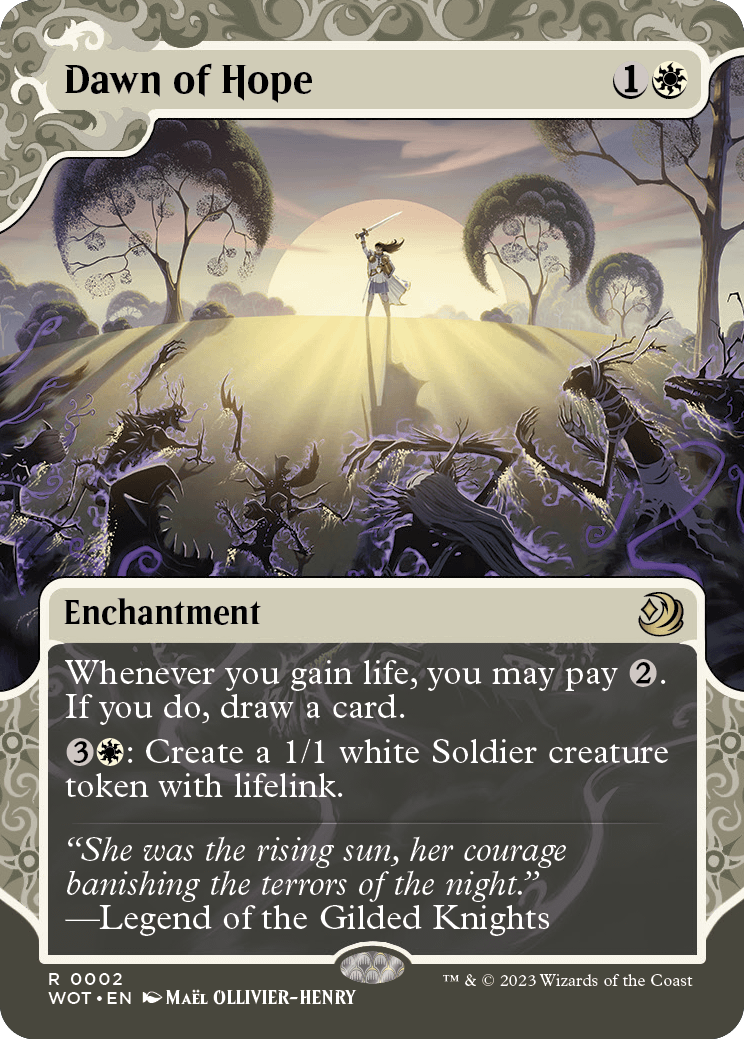
Dawn of Hope
{1}{W}
Enchantment
Whenever you gain life, you may pay {2}. If you do, draw a card.
{3}{W}: Create a 1/1 white Soldier creature token with lifelink.
- Dawn of Hope's first ability triggers just once for each life-gaining event, whether it's 2 life from Werefox Bodyguard or 3 life from a Food token.
- You can't pay {2} multiple times to draw more than one card each time you resolve Dawn of Hope's triggered ability.
- Each creature with lifelink dealing combat damage causes a separate life-gaining event. For example, if two creatures you control with lifelink deal combat damage at the same time, Dawn of Hope's ability will trigger twice. However, if a single creature you control with lifelink deals combat damage to multiple creatures, players, planeswalkers, and/or battles at the same time (perhaps because it has trample or was blocked by more than one creature), the ability will trigger only once.
- If you gain an amount of life "for each" of something, that life is gained as one event and Dawn of Hope's first ability triggers only once.
- In a Two-Headed Giant game, life gained by your teammate won't cause the ability to trigger, even though it caused your team's life total to increase.
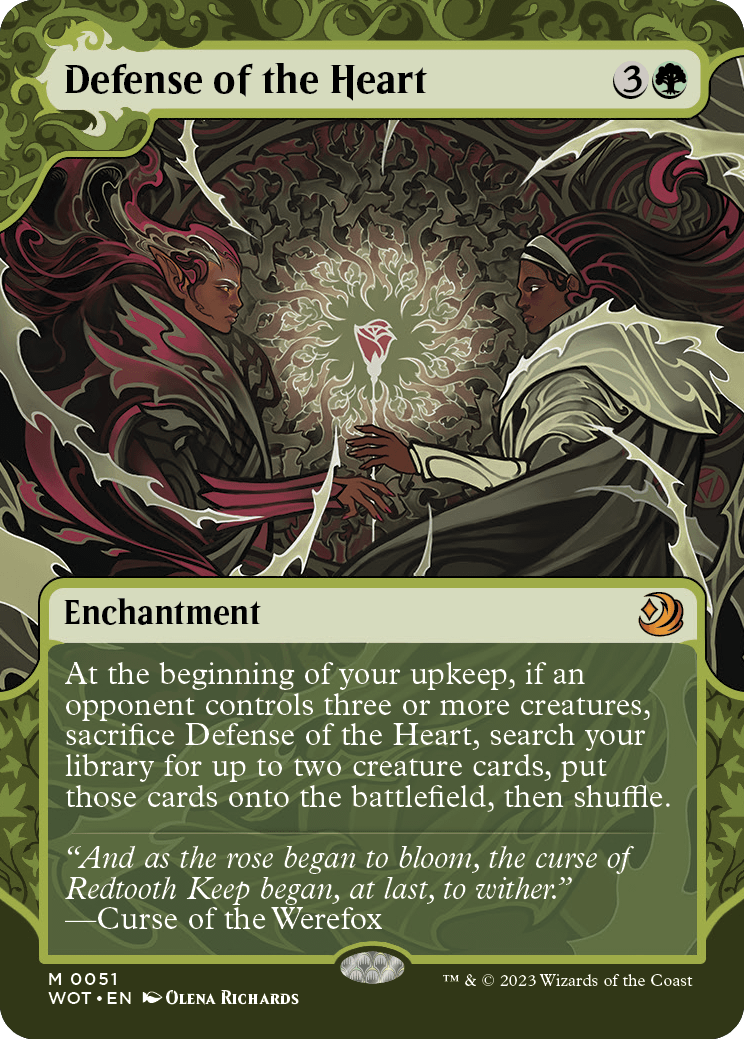
Defense of the Heart
{3}{G}
Enchantment
At the beginning of your upkeep, if an opponent controls three or more creatures, sacrifice Defense of the Heart, search your library for up to two creature cards, put those cards onto the battlefield, then shuffle.
- Defense of the Heart's ability will check if an opponent controls three or more creatures as your upkeep begins. If none of them do, the ability won't trigger at all. If an opponent does, the ability will check again as it tries to resolve. If none of your opponents control three or more creatures at that point, the ability won't do anything. The opponent that controls three or more creatures as the ability resolves doesn't have to be the same opponent that controlled three or more creatures as it triggered.
- If Defense of the Heart leaves the battlefield while its triggered ability is on the stack, the ability will still resolve as normal.
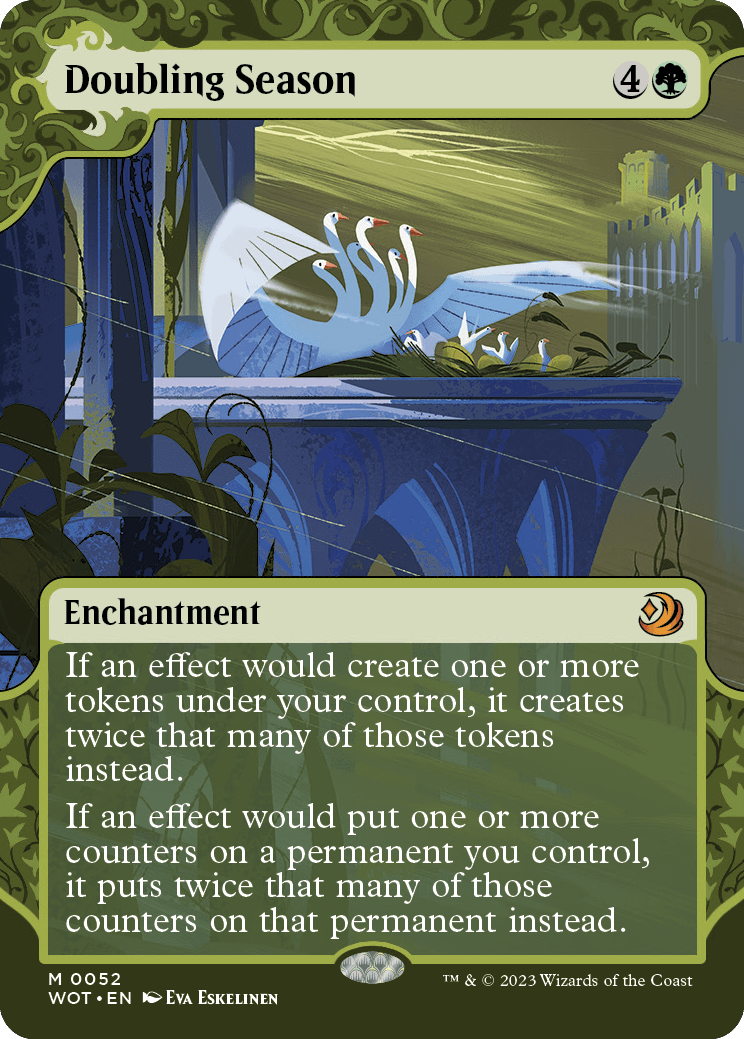
Doubling Season
{4}{G}
Enchantment
If an effect would create one or more tokens under your control, it creates twice that many of those tokens instead.
If an effect would put one or more counters on a permanent you control, it puts twice that many of those counters on that permanent instead.
- Everything that is specified by the effect creating the original token or tokens will also be true about the additional token or tokens created by Doubling Season's replacement effect. For example, if an effect tells you to create a token "tapped and attacking," the additional tokens will also be tapped and attacking.
- Doubling Season affects permanents that enter the battlefield with counters.
- Planeswalkers will enter the battlefield with double the normal number of loyalty counters. However, if you activate an ability whose cost has you put loyalty counters on a planeswalker, the number you put on isn't doubled. This is because those counters are put on as a cost, not as an effect.
- Battles will enter the battlefield with double the normal number of defense counters.
- If there are two Doubling Seasons on the battlefield, then the number of tokens or counters is four times the original number. If there are three on the battlefield, then the number of tokens or counters is eight times the original number, and so on.
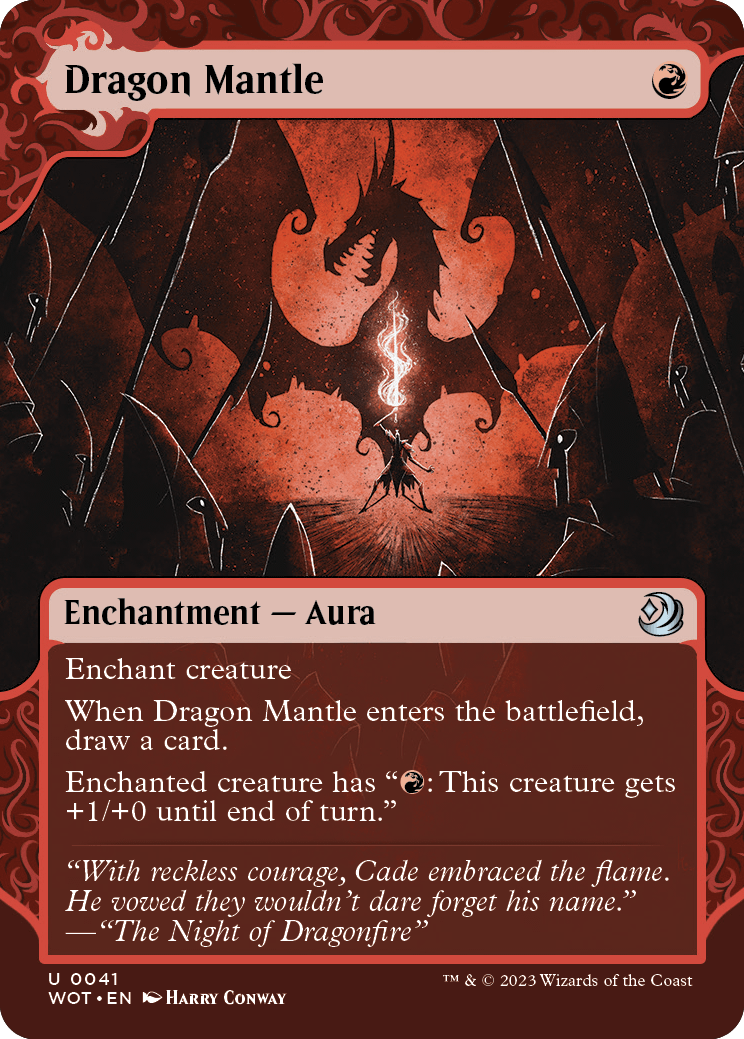
Dragon Mantle
{R}
Enchantment — Aura
Enchant creature
When Dragon Mantle enters the battlefield, draw a card.
Enchanted creature has "{R}: This creature gets +1/+0 until end of turn."
- If the target creature is an illegal target by the time Dragon Mantle tries to resolve, it doesn't resolve. It won't enter the battlefield, so its enters-the-battlefield ability won't trigger.
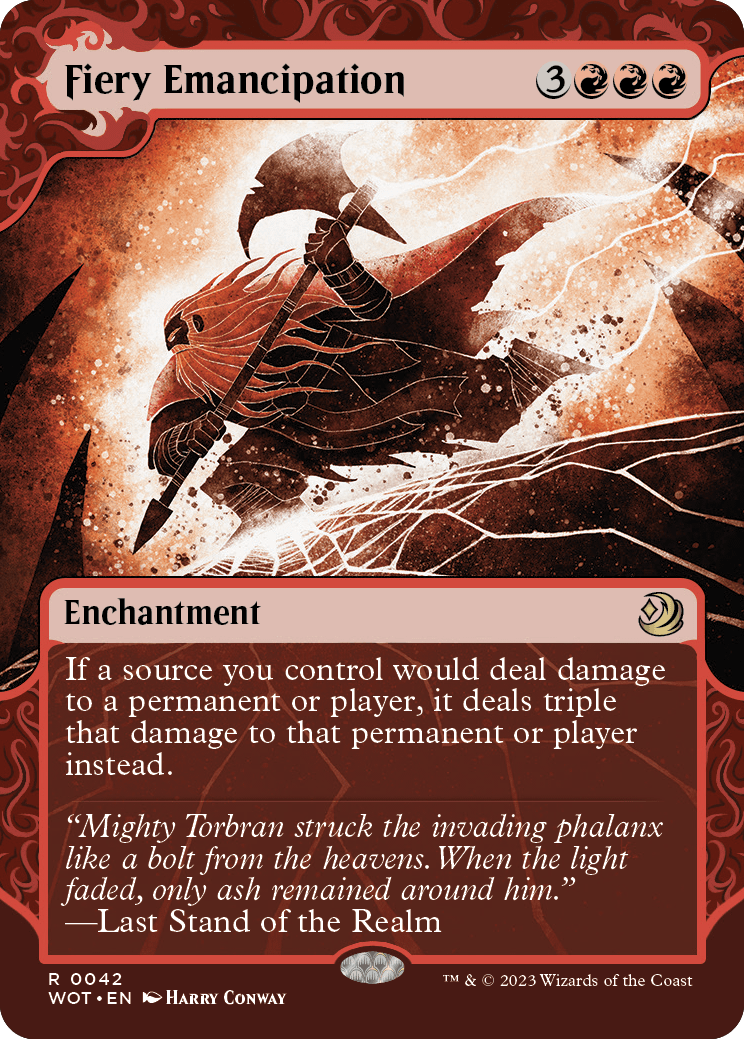
Fiery Emancipation
{3}{R}{R}{R}
Enchantment
If a source you control would deal damage to a permanent or player, it deals triple that damage to that permanent or player instead.
- If a creature with trample you control would deal combat damage to a blocking creature while you control Fiery Emancipation, you must assign its unmodified damage. For example, a 3/3 creature with trample blocked by a 2/2 creature can have 2 damage assigned to the blocking creature and 1 damage assigned to the defending player. It will then deal 6 damage to the blocking creature and 3 damage to the defending player.
- If an effect asks you to divide damage among targets, you must divide the unmodified damage before tripling it.
- If multiple replacement or prevention effects try to modify damage that would be dealt to a player or permanent, the player or the controller of the permanent chooses the order in which they apply.
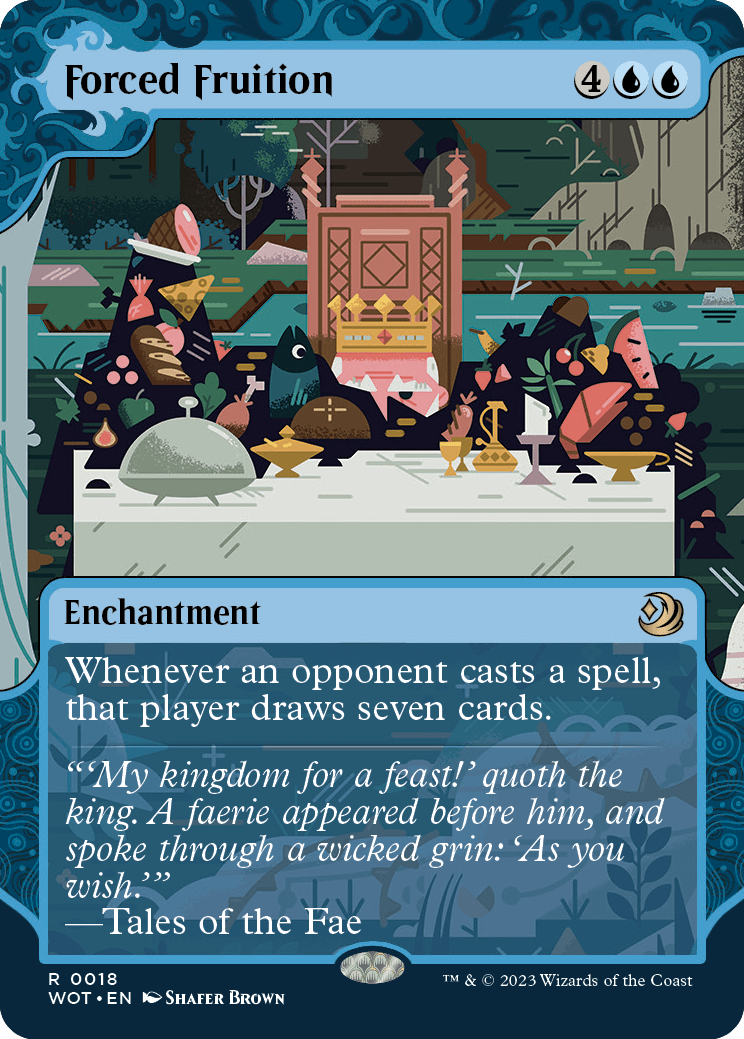
Forced Fruition
{4}{U}{U}
Enchantment
Whenever an opponent casts a spell, that player draws seven cards.
- Yes, the opponent draws seven cards. It's not optional.
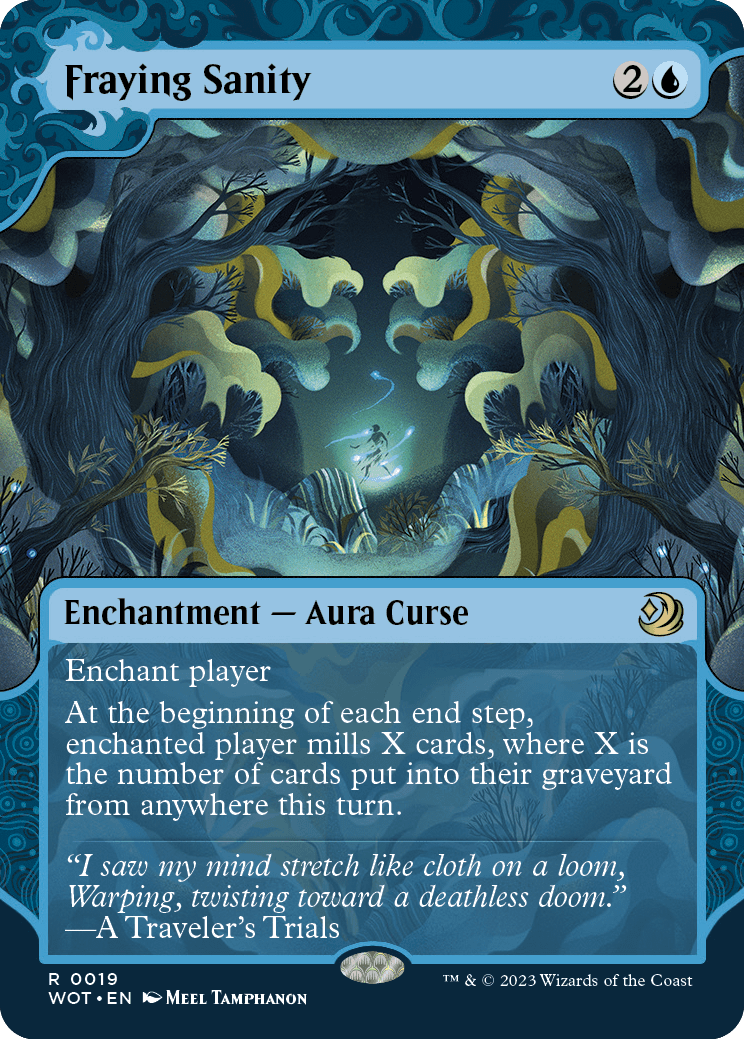
Fraying Sanity
{2}{U}
Enchantment — Aura Curse
Enchant player
At the beginning of each end step, enchanted player mills X cards, where X is the number of cards put into their graveyard from anywhere this turn.
- Fraying Sanity's triggered ability counts the number of cards that were put into the enchanted player's graveyard during the turn, even if Fraying Sanity wasn't on the battlefield at the time those cards were put there, and even if those cards have left that graveyard.
- The value of X is determined only as Fraying Sanity's triggered ability resolves. For example, if three Fraying Sanity Auras are attached to one player who had four cards put into their graveyard this turn, X will be four for the first ability to resolve, eight for the second, and sixteen for the third.
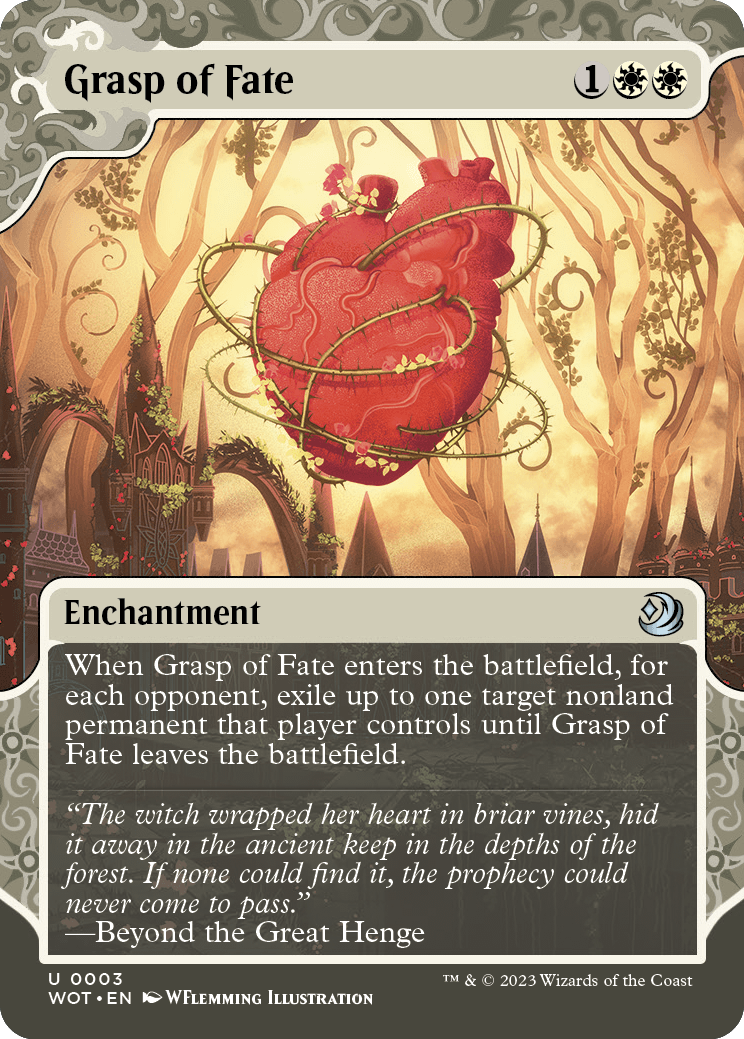
Grasp of Fate
{1}{W}{W}
Enchantment
When Grasp of Fate enters the battlefield, for each opponent, exile up to one target nonland permanent that player controls until Grasp of Fate leaves the battlefield.
- If Grasp of Fate leaves the battlefield before its triggered ability resolves, no nonland permanents will be exiled.
- Auras attached to exiled nonland permanents will be put into their owners' graveyards. Equipment attached to exiled creatures will become unattached and remain on the battlefield. Any counters on exiled nonland permanents will cease to exist.
- If a token is exiled, it ceases to exist. It won't be returned to the battlefield.
- The exiled cards return to the battlefield immediately after Grasp of Fate leaves the battlefield. Nothing happens between the two events, including state-based actions.
- In a multiplayer game, if Grasp of Fate's owner leaves the game, the exiled cards will return to the battlefield. Because the one-shot effect that returns the cards isn't an ability that goes on the stack, it won't cease to exist along with the leaving player's spells and abilities on the stack.
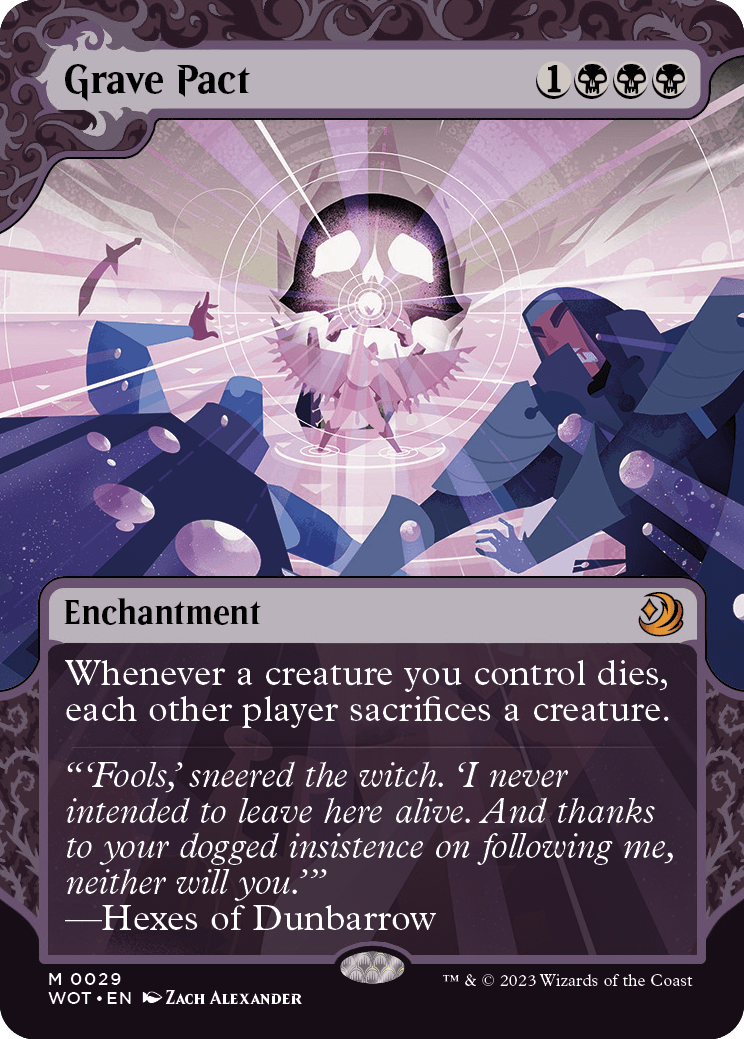
Grave Pact
{1}{B}{B}{B}
Enchantment
Whenever a creature you control dies, each other player sacrifices a creature.
- When the triggered ability resolves, first the player whose turn it is (if it isn't your turn) chooses which creature they will sacrifice, then each other player in turn order does the same, then all chosen creatures are sacrificed at the same time.
- None of the players are targeted. A player with hexproof would still sacrifice a creature.
- If multiple creatures you control die at the same time, Grave Pact's ability will trigger that many times.
- If you control more than one Grave Pact and a creature you control dies, each of the triggered abilities will trigger. Each other player will sacrifice a creature each time one of those abilities resolves.
- If two players each control a Grave Pact and a creature controlled by one of those players dies, a chain reaction happens. First the ability of that player's Grave Pact will trigger, causing each other player to sacrifice a creature. That sacrifice causes the ability of the other player's Grave Pact to trigger, and so on.
- In a Two-Headed Giant game, when a creature you control dies, Grave Pact's triggered ability will cause each other player, including your teammate, to sacrifice a creature. Grave Pact's ability won't trigger when a creature your teammate controls dies.
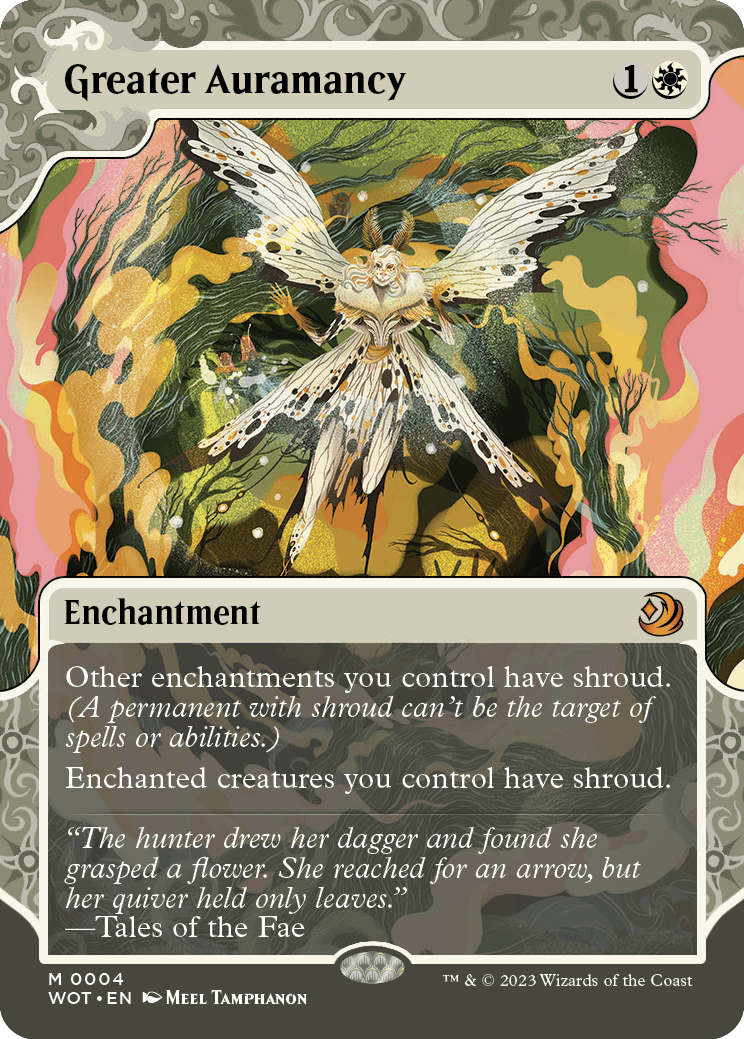
Greater Auramancy
{1}{W}
Enchantment
Other enchantments you control have shroud. (A permanent with shroud can't be the target of spells or abilities.)
Enchanted creatures you control have shroud.
- If you have two on the battlefield, they'll each grant the other one shroud.
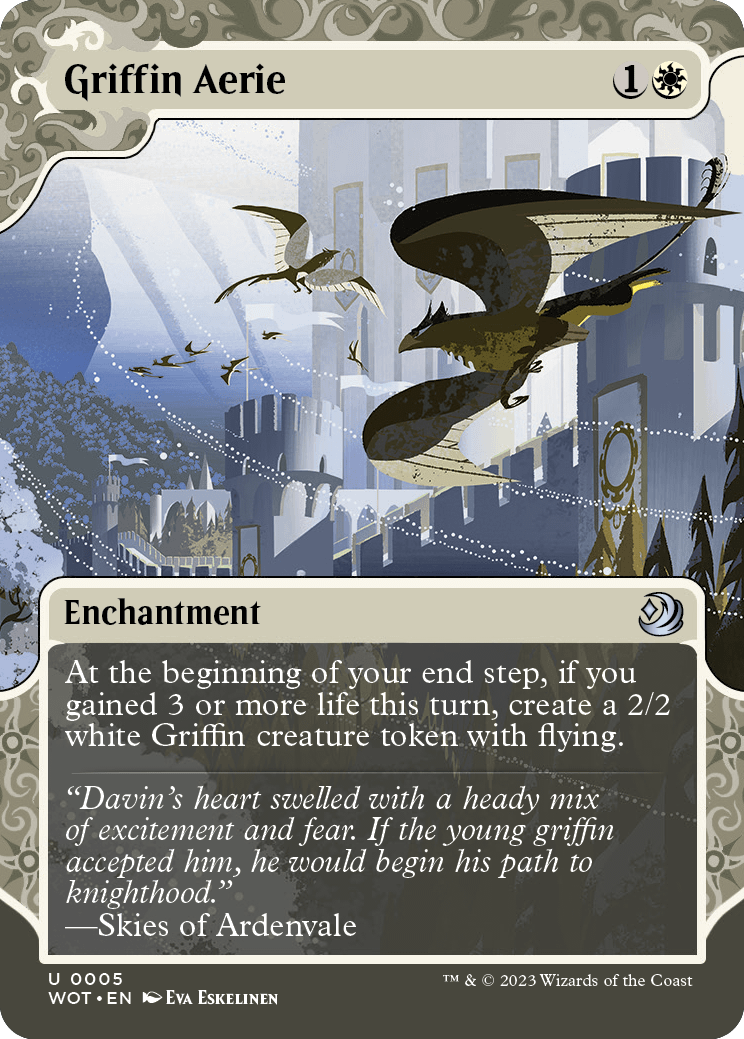
Griffin Aerie
{1}{W}
Enchantment
At the beginning of your end step, if you gained 3 or more life this turn, create a 2/2 white Griffin creature token with flying.
- You create just one Griffin token, no matter how much life you've gained past 3 life.
- Griffin Aerie's ability looks at how much life you've gained in the turn, even if it wasn't on the battlefield when you gained life. It doesn't care if you also lost life, even if you lost more life than you gained.
- If you haven't gained 3 life by the time your end step begins, Griffin Aerie's ability won't trigger at all.
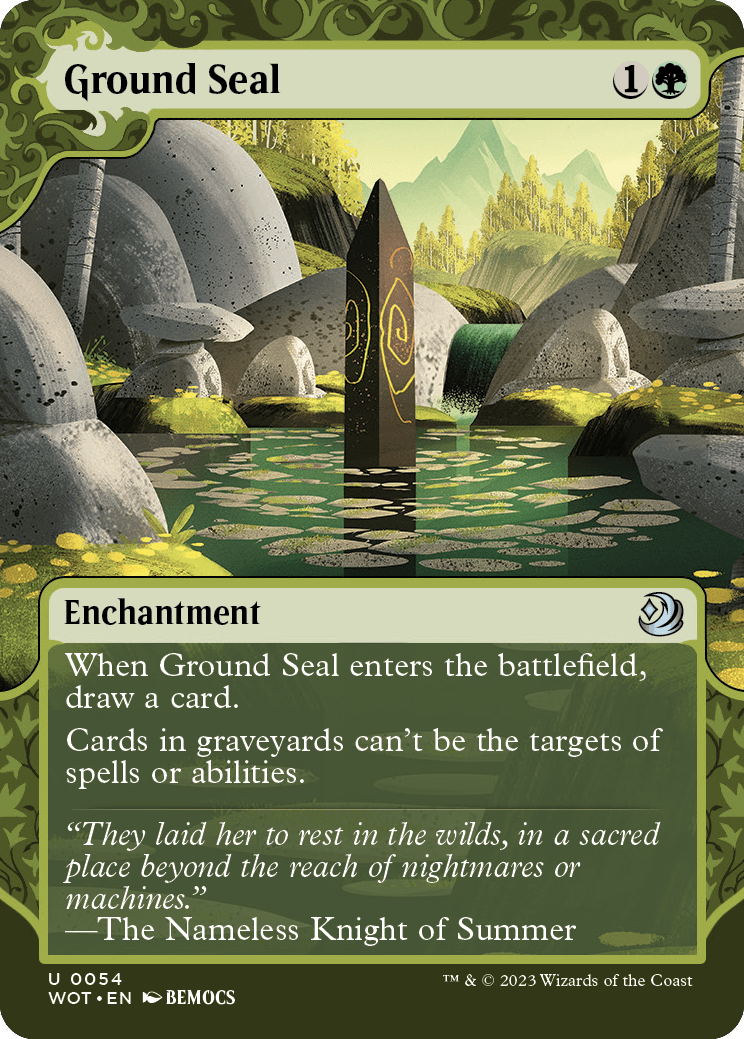
Ground Seal
{1}{G}
Enchantment
When Ground Seal enters the battlefield, draw a card.
Cards in graveyards can't be the targets of spells or abilities.
- The last ability only works when Ground Seal is on the battlefield.
- Only spells and abilities that target cards in graveyards will be affected. Abilities that don't target cards in graveyards (like the one Tormod's Crypt has) can still affect those cards.
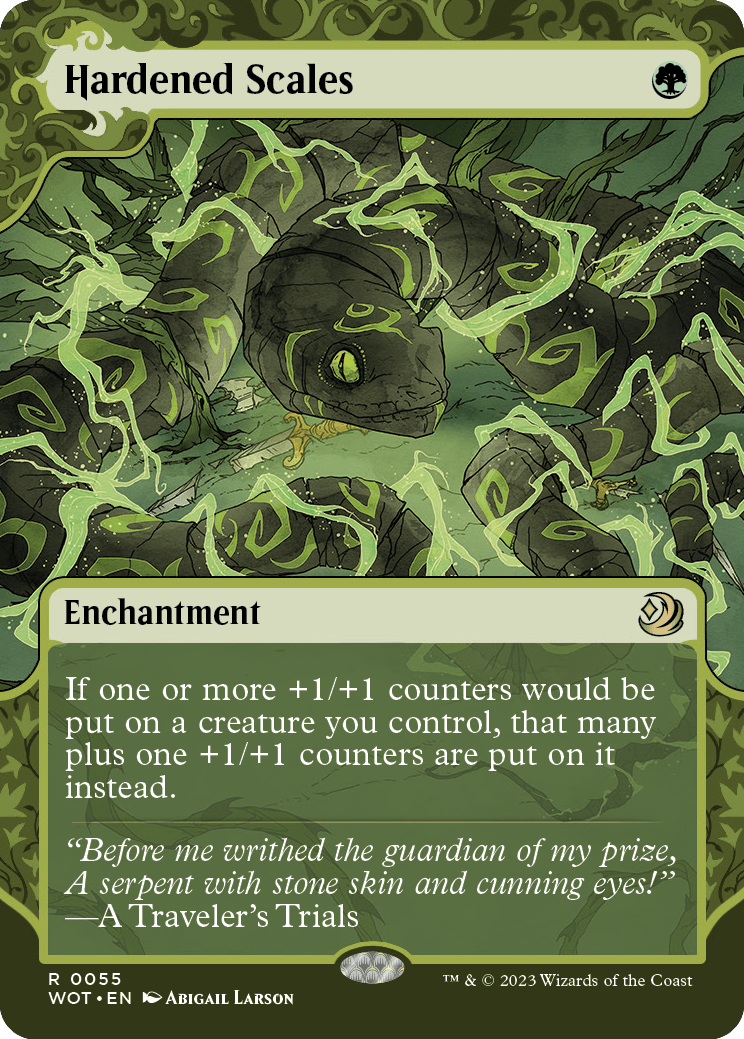
Hardened Scales
{G}
Enchantment
If one or more +1/+1 counters would be put on a creature you control, that many plus one +1/+1 counters are put on it instead.
- If a creature you control would enter the battlefield with a number of +1/+1 counters on it, it enters with that many plus one instead.
- Each additional Hardened Scales you control will increase the number of +1/+1 counters placed on a creature you control by one.
- If two or more effects attempt to modify how many counters would be put on a creature you control, you choose the order to apply those effects, no matter who controls the sources of those effects.
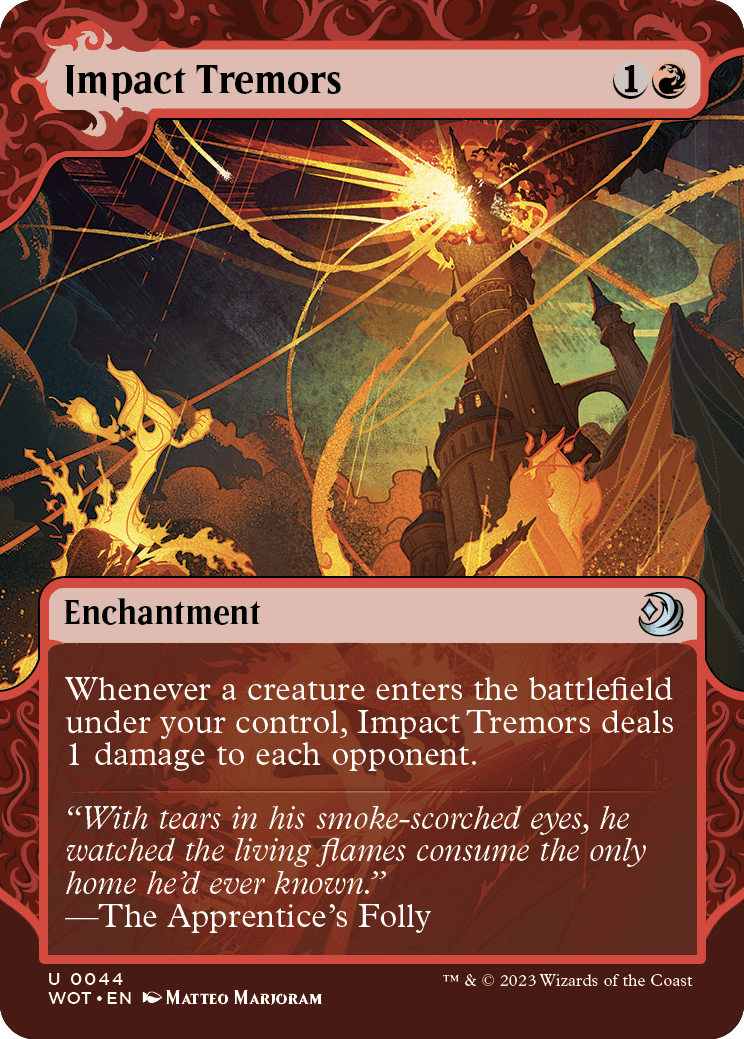
Impact Tremors
{1}{R}
Enchantment
Whenever a creature enters the battlefield under your control, Impact Tremors deals 1 damage to each opponent.
- If multiple creatures enter the battlefield under your control at the same time, Impact Tremors will trigger that many times. Each of these separate abilities will deal 1 damage to each opponent.
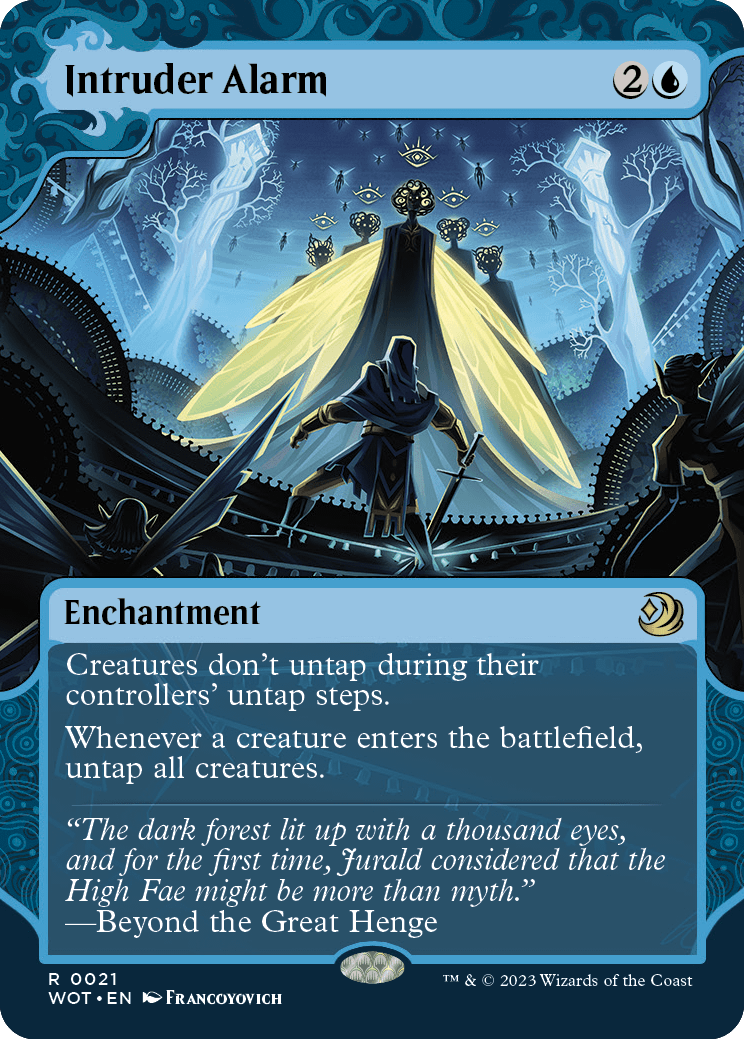
Intruder Alarm
{2}{U}
Enchantment
Creatures don't untap during their controllers' untap steps.
Whenever a creature enters the battlefield, untap all creatures.
- If multiple creatures enter the battlefield at one time, this ability triggers once for each of those creatures.
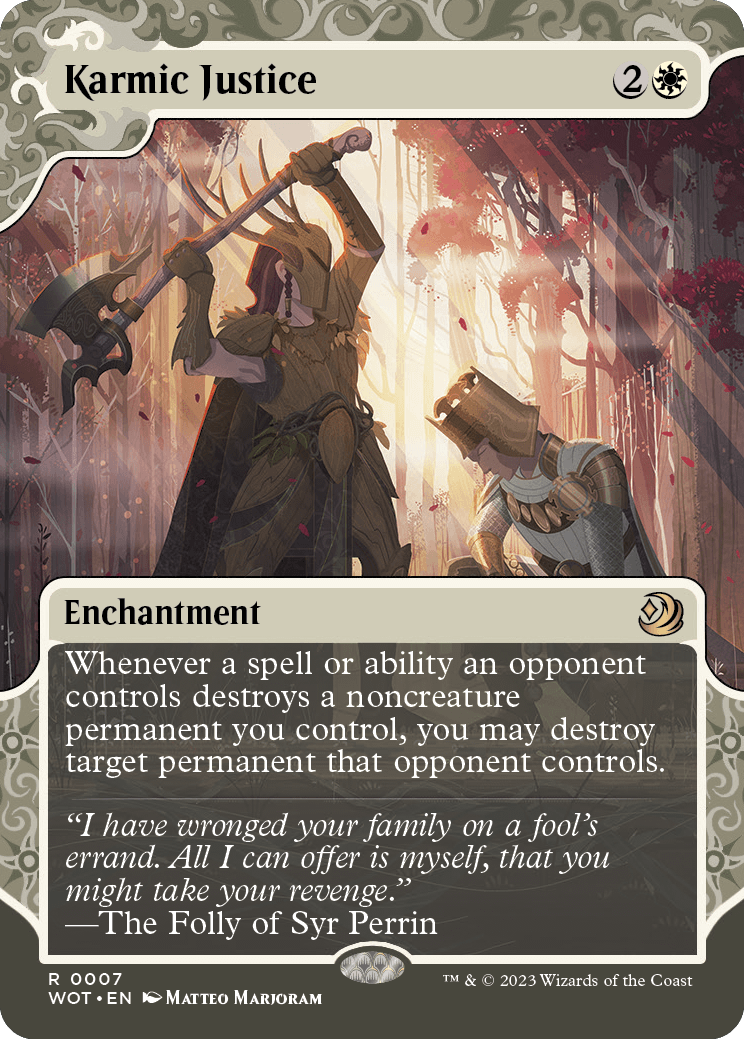
Karmic Justice
{2}{W}
Enchantment
Whenever a spell or ability an opponent controls destroys a noncreature permanent you control, you may destroy target permanent that opponent controls.
- Spells and abilities that cause you to sacrifice permanents will not cause Karmic Justice's ability to trigger.
- If a spell or ability an opponent controls destroys Karmic Justice, Karmic Justice's ability will trigger.
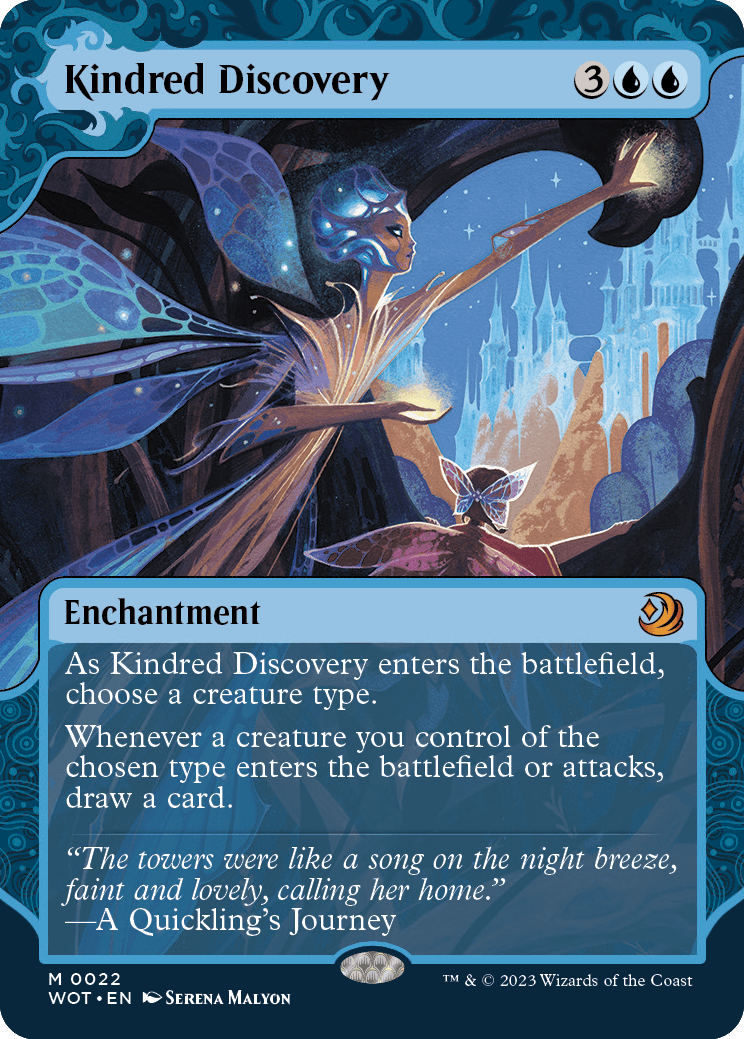
Kindred Discovery
{3}{U}{U}
Enchantment
As Kindred Discovery enters the battlefield, choose a creature type.
Whenever a creature you control of the chosen type enters the battlefield or attacks, draw a card.
- If you somehow control a Kindred Discovery with no chosen creature type, its last ability can't trigger, even if a creature with no creature types enters the battlefield or attacks.
- You must choose an existing creature type, such as Vampire or Cat. Card types such as "artifact" can't be chosen.
- You can't choose multiple creature types, such as "Cat Warrior." A Cat Warrior is both a Cat and a Warrior. It's affected by anything that affects either type and unaffected by things that affect non-Cat or non-Warrior creatures.
- The choice of creature type is made as Kindred Discovery enters the battlefield. Players can't take any actions between the time the choice is made and the time it enters the battlefield. Notably, this means that if it is entering the battlefield at the same time as any creatures of the chosen type, its last ability will trigger.
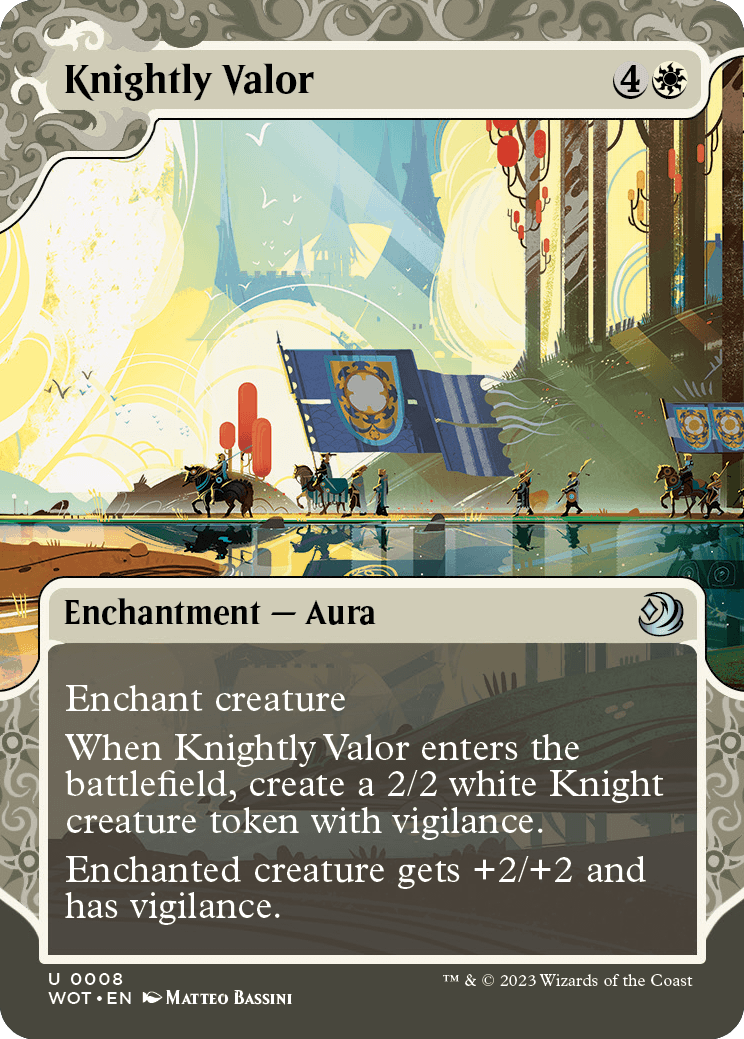
Knightly Valor
{4}{W}
Enchantment — Aura
Enchant creature
When Knightly Valor enters the battlefield, create a 2/2 white Knight creature token with vigilance.
Enchanted creature gets +2/+2 and has vigilance.
- You need a creature for Knightly Valor to target as you cast it. There's no way to have it enter the battlefield attached to the Knight token it'll create.
- If the creature this Aura would enchant is an illegal target by the time Knightly Valor tries to resolve, the Aura spell doesn't resolve. It won't enter the battlefield, so its ability won't trigger.
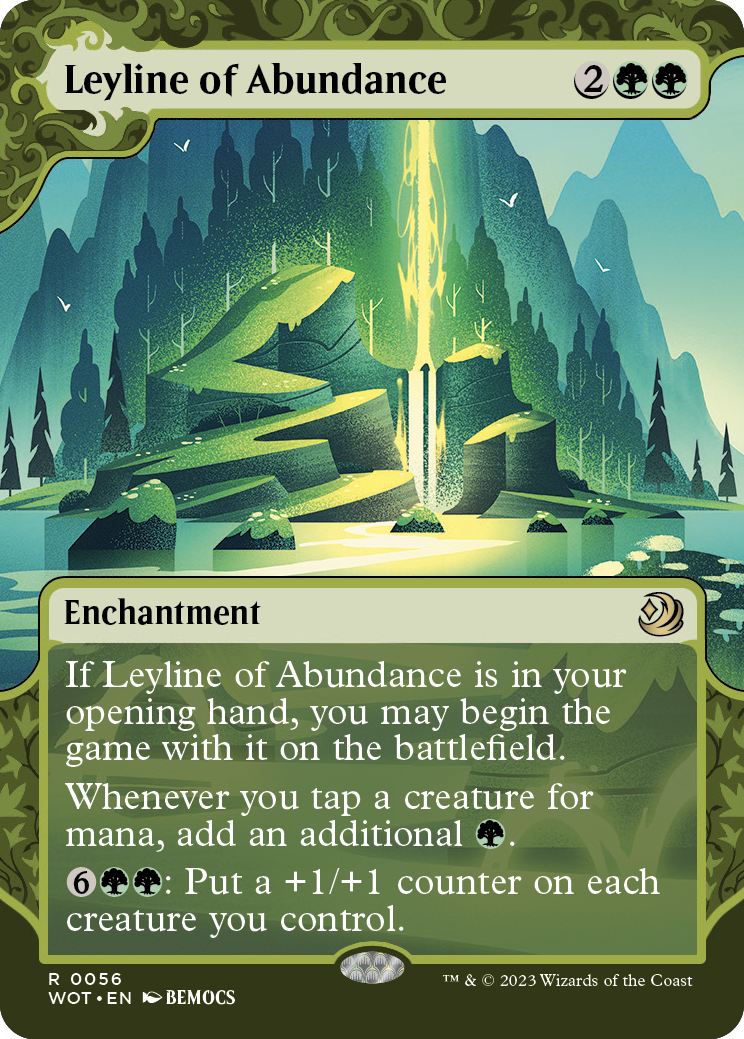
Leyline of Abundance
{2}{G}{G}
Enchantment
If Leyline of Abundance is in your opening hand, you may begin the game with it on the battlefield.
Whenever you tap a creature for mana, add an additional {G}.
{6}{G}{G}: Put a +1/+1 counter on each creature you control.
- An ability that triggers "whenever you tap a creature for mana" triggers only if you activate a mana ability of a creature including {T} in its cost. Mana abilities that don't include the {T} symbol and instead say "Tap an untapped creature you control" or similar won't cause Leyline of Abundance's second ability to trigger. Similarly, it won't trigger if you tap a creature to activate a mana ability of another object (even if that mana ability also includes {T}).
- A player's "opening hand" is the hand of cards the player has after all players have taken mulligans. If players have any cards in hand that allow actions to be taken with them from a player's opening hand, the starting player takes all such actions first in any order, followed by each other player in turn order. Then the first turn begins.
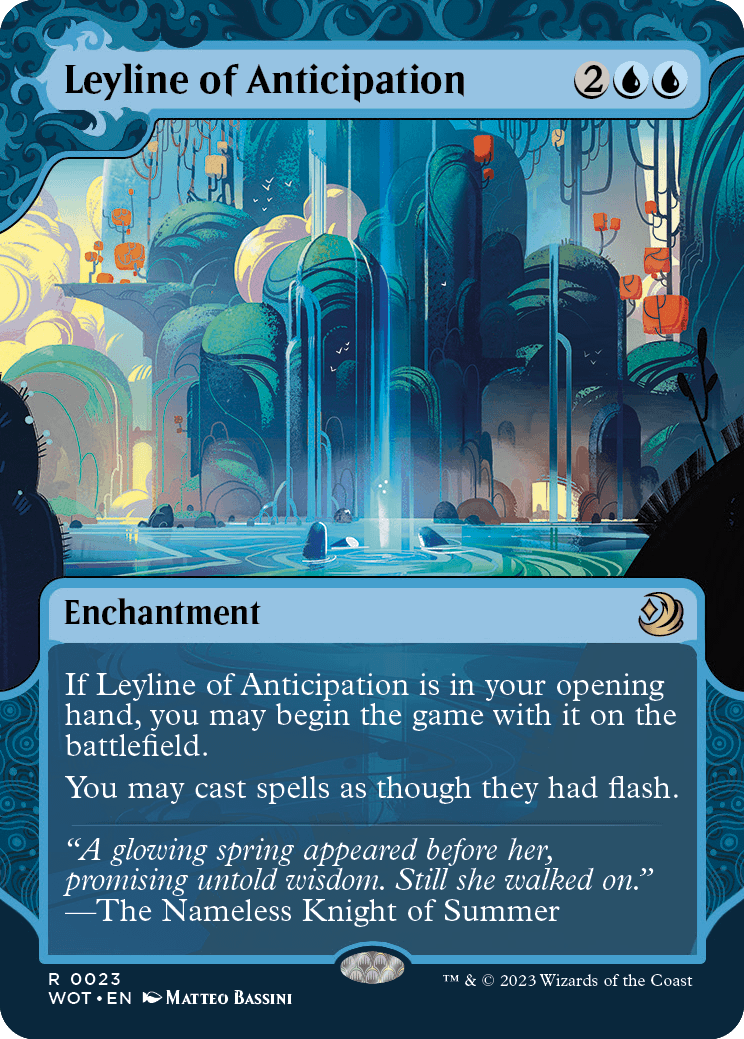
Leyline of Anticipation
{2}{U}{U}
Enchantment
If Leyline of Anticipation is in your opening hand, you may begin the game with it on the battlefield.
You may cast spells as though they had flash.
- A player's "opening hand" is the hand of cards the player has after all players have taken mulligans. If players have any cards in hand that allow actions to be taken with them from a player's opening hand, the starting player takes all such actions first in any order, followed by each other player in turn order. Then the first turn begins.
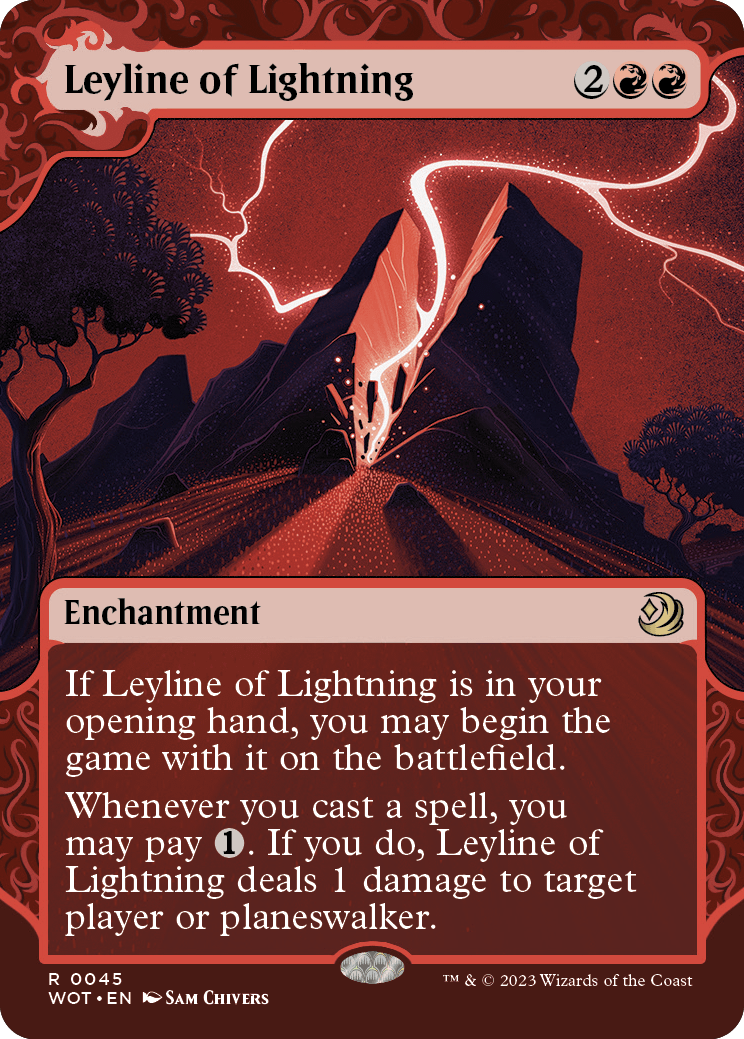
Leyline of Lightning
{2}{R}{R}
Enchantment
If Leyline of Lightning is in your opening hand, you may begin the game with it on the battlefield.
Whenever you cast a spell, you may pay {1}. If you do, Leyline of Lightning deals 1 damage to target player or planeswalker.
- While resolving Leyline of Lightning's second ability, you can't pay {1} multiple times to deal damage multiple times.
- A player's "opening hand" is the hand of cards the player has after all players have taken mulligans. If players have any cards in hand that allow actions to be taken with them from a player's opening hand, the starting player takes all such actions first in any order, followed by each other player in turn order. Then the first turn begins.
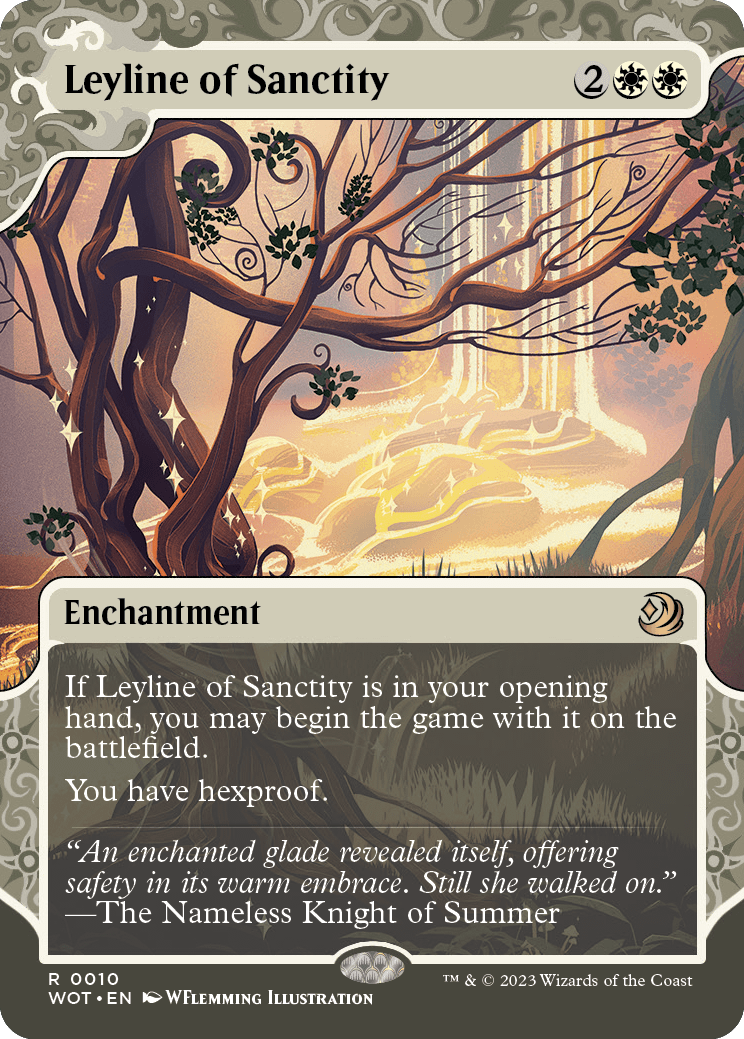
Leyline of Sanctity
{2}{W}{W}
Enchantment
If Leyline of Sanctity is in your opening hand, you may begin the game with it on the battlefield.
You have hexproof.
- A player's "opening hand" is the hand of cards the player has after all players have taken mulligans. If players have any cards in hand that allow actions to be taken with them from a player's opening hand, the starting player takes all such actions first in any order, followed by each other player in turn order. Then the first turn begins.
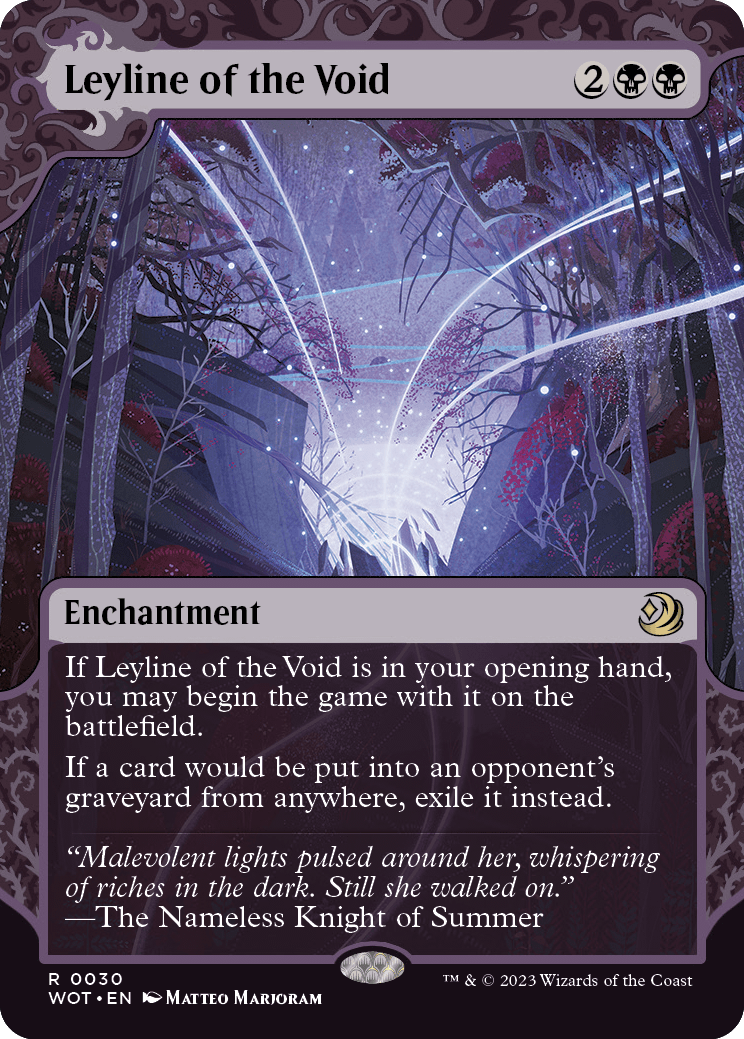
Leyline of the Void
{2}{B}{B}
Enchantment
If Leyline of the Void is in your opening hand, you may begin the game with it on the battlefield.
If a card would be put into an opponent's graveyard from anywhere, exile it instead.
- If your opponent discards a card while you control Leyline of the Void, abilities that check whether a card is discarded (such as Hollow One, or a madness ability of the discarded card) still work, even though that card never reaches that player's graveyard. In addition, spells or abilities that check the characteristics of the discarded card can find that card in exile.
- While Leyline of the Void is on the battlefield, nontoken creatures your opponents control won't die. They'll be exiled instead. Abilities that would trigger when those creatures die won't trigger.
- Tokens can still die while Leyline of the Void is on the battlefield.
- A player's "opening hand" is the hand of cards the player has after all players have taken mulligans. If players have any cards in hand that allow actions to be taken with them from a player's opening hand, the starting player takes all such actions first in any order, followed by each other player in turn order. Then the first turn begins.
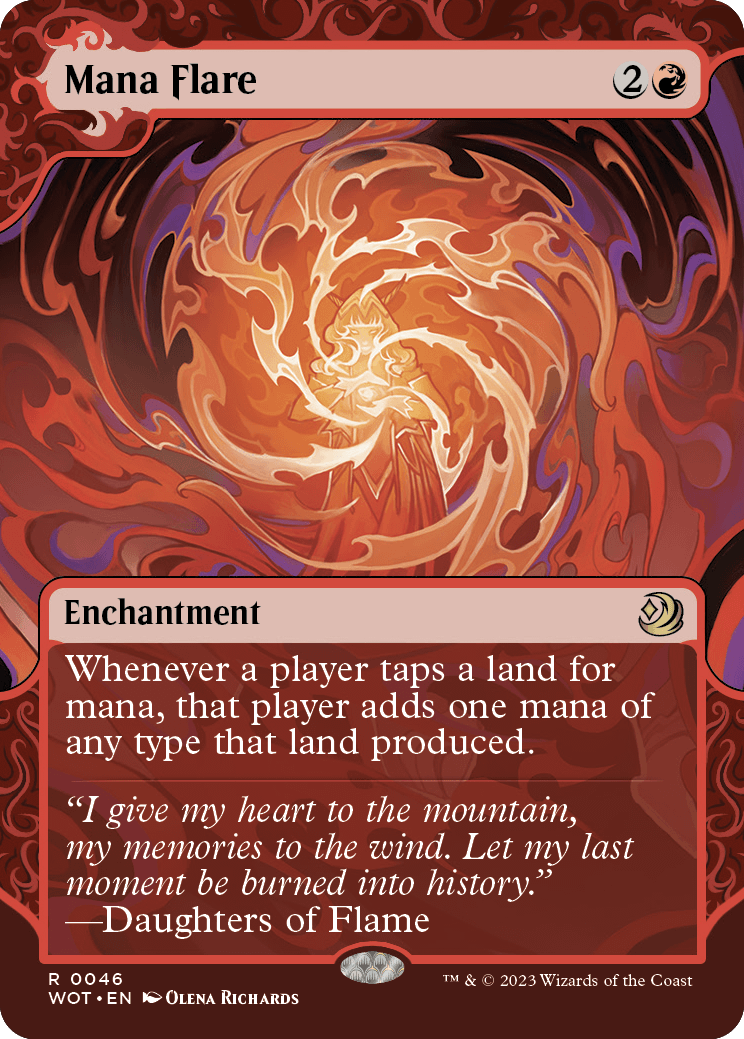
Mana Flare
{2}{R}
Enchantment
Whenever a player taps a land for mana, that player adds one mana of any type that land produced.
- The types of mana are white, blue, black, red, green, and colorless.
- If you tap a land for more than one mana, you choose one type that was produced and add one mana of that type.
- Mana Flare doesn't care about any restrictions or riders your lands put on the mana they produce, such as those of Unclaimed Territory and Cavern of Souls. It just produces one mana of the appropriate type, with no restrictions or riders.
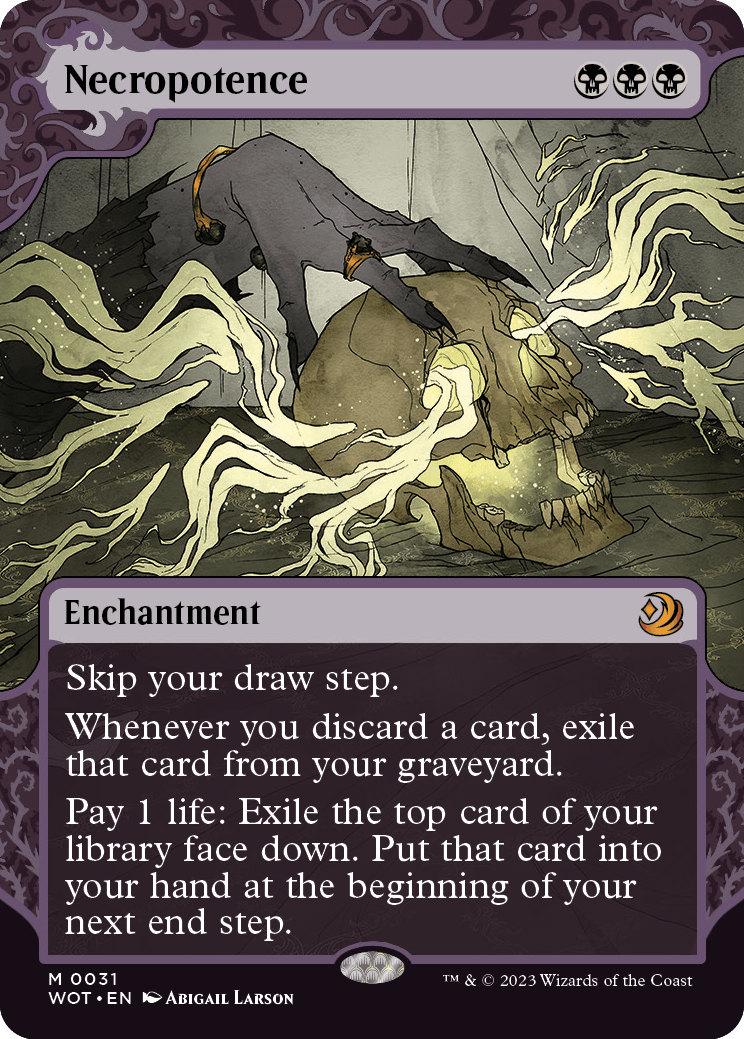
Necropotence
{B}{B}{B}
Enchantment
Skip your draw step.
Whenever you discard a card, exile that card from your graveyard.
Pay 1 life: Exile the top card of your library face down. Put that card into your hand at the beginning of your next end step.
- If a discarded card isn't put into your graveyard (due to an effect such as that of Obstinate Baloth) or leaves your graveyard (perhaps because another effect returned it to your hand), it won't be exiled.
- If you discard a card with madness and wish to cast it, Necropotence's ability won't exile that card. If you don't wish to cast it, you choose whether it ends up exiled or in your graveyard.
- Necropotence's last ability creates a delayed triggered ability that will put the exiled card into your hand. That ability still triggers even if Necropotence is removed from the battlefield before your end step.
- You can't look at the cards exiled by the last ability while they're face down.
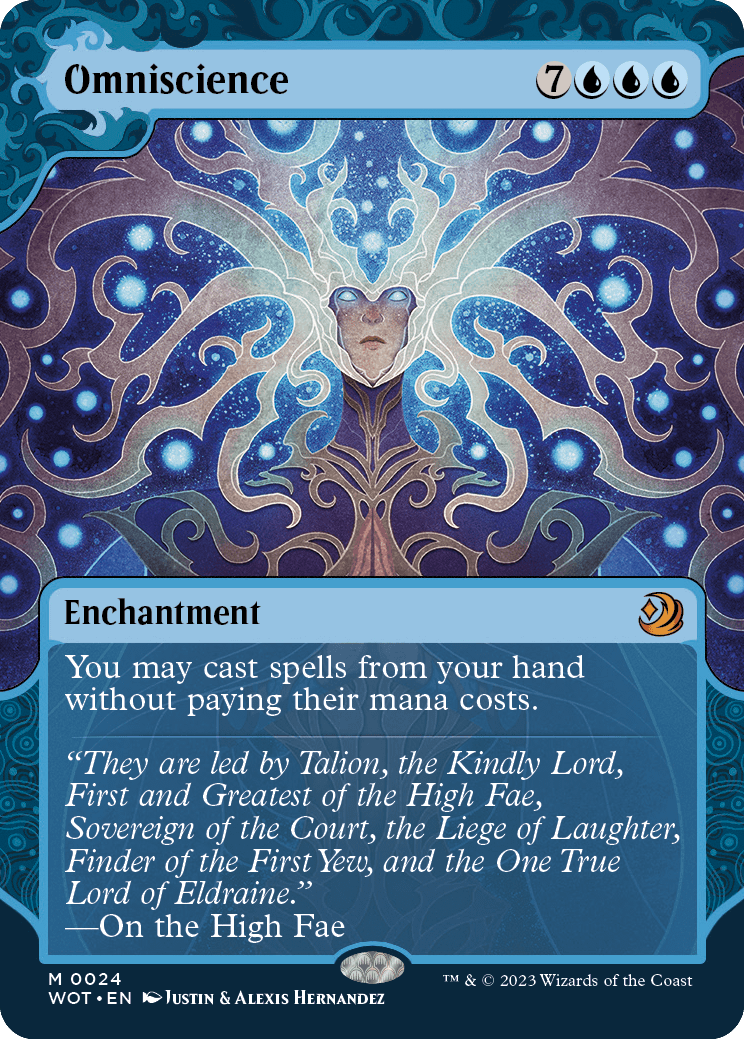
Omniscience
{7}{U}{U}{U}
Enchantment
You may cast spells from your hand without paying their mana costs.
- You must follow the normal timing permissions and restrictions of each spell you cast.
- If you cast a spell "without paying its mana cost," you can't choose to cast it for any alternative costs. You can, however, pay additional costs, such as kicker costs. If the spell has any mandatory additional costs, such as that of Tormenting Voice, those must be paid to cast the spell.
- If a spell has {X} in its mana cost, you must choose 0 as the value of X when casting it without paying its mana cost.
- Once you cast Omniscience, if it's your turn, you'll have priority immediately after it resolves. You can cast another spell before any player can attempt to remove Omniscience with spells or abilities.
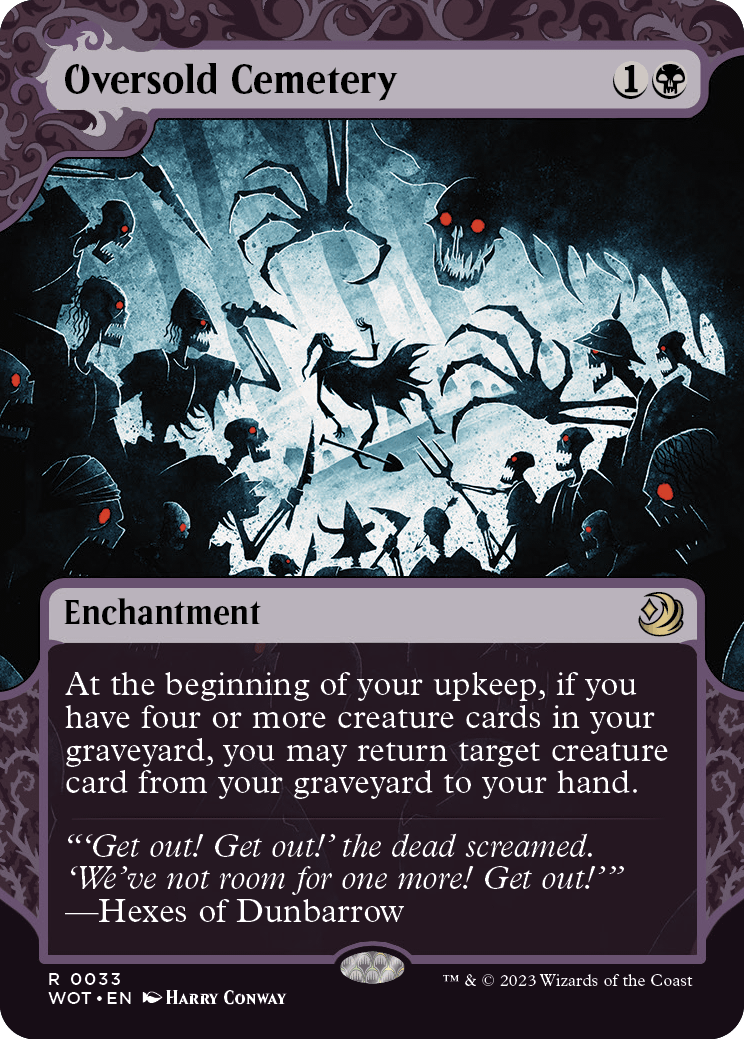
Oversold Cemetery
{1}{B}
Enchantment
At the beginning of your upkeep, if you have four or more creature cards in your graveyard, you may return target creature card from your graveyard to your hand.
- Oversold Cemetery's ability will check your graveyard as your upkeep begins, before any player has the opportunity to take any actions. If you have fewer than four creature cards in your graveyard at that time, the ability won't trigger at all. If the ability does trigger, it will check again as it tries to resolve. If you have fewer than four creature cards in your graveyard at that point, the ability won't have any effect.
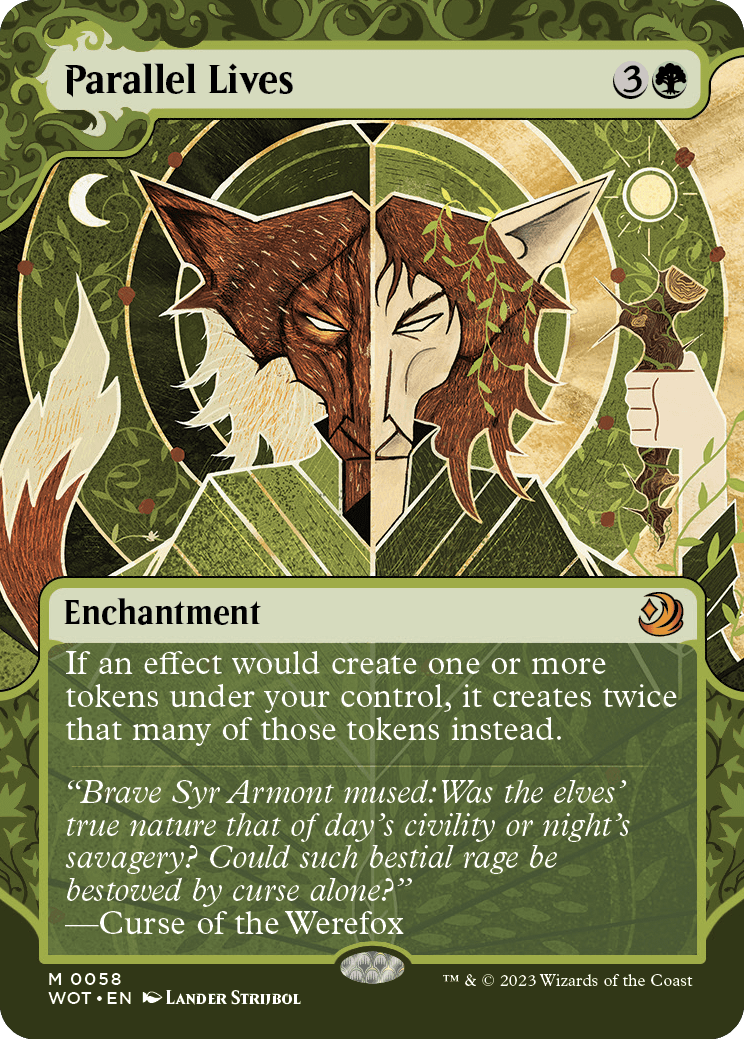
Parallel Lives
{3}{G}
Enchantment
If an effect would create one or more tokens under your control, it creates twice that many of those tokens instead.
- Everything that is specified by the effect creating the original token or tokens will also be true about the additional token or tokens created by Parallel Lives's replacement effect. For example, if an effect tells you to create a token "tapped and attacking," the additional tokens will also be tapped and attacking.
- If you control two Parallel Lives, then the number of tokens created is four times the original number. If you control three, then the number of tokens created is eight times the original number, and so on.
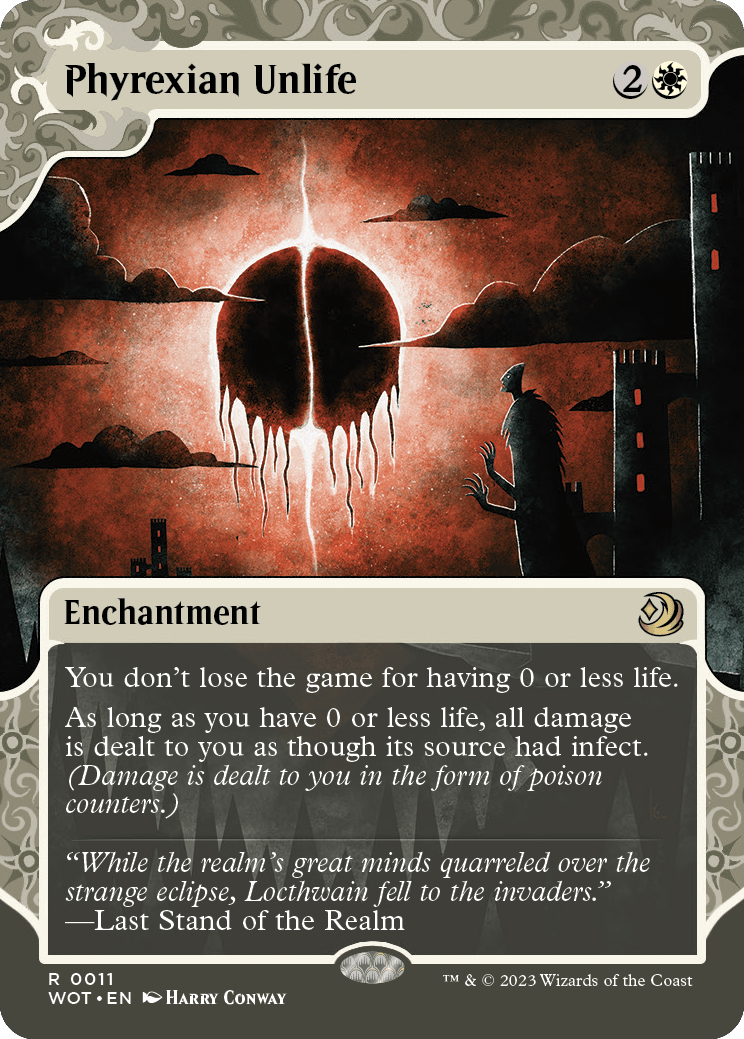
Phyrexian Unlife
{2}{W}
Enchantment
You don't lose the game for having 0 or less life.
As long as you have 0 or less life, all damage is dealt to you as though its source had infect. (Damage is dealt to you in the form of poison counters.)
- Phyrexian Unlife won't affect damage that reduces your life total from a positive number to 0 or less. For example, if you're at 3 life and are dealt 5 damage, you'll end up at -2 life. The next time you're dealt damage, it will be dealt as though its source had infect.
- If you're at 0 or less life and Phyrexian Unlife leaves the battlefield, you'll lose the game (unless some other effect is keeping you from losing).
- If you're at 0 or less life, you can't pay any amount of life except 0.
- You can still lose the game for other reasons, including having ten or more poison counters or drawing a card from a library with no cards in it.
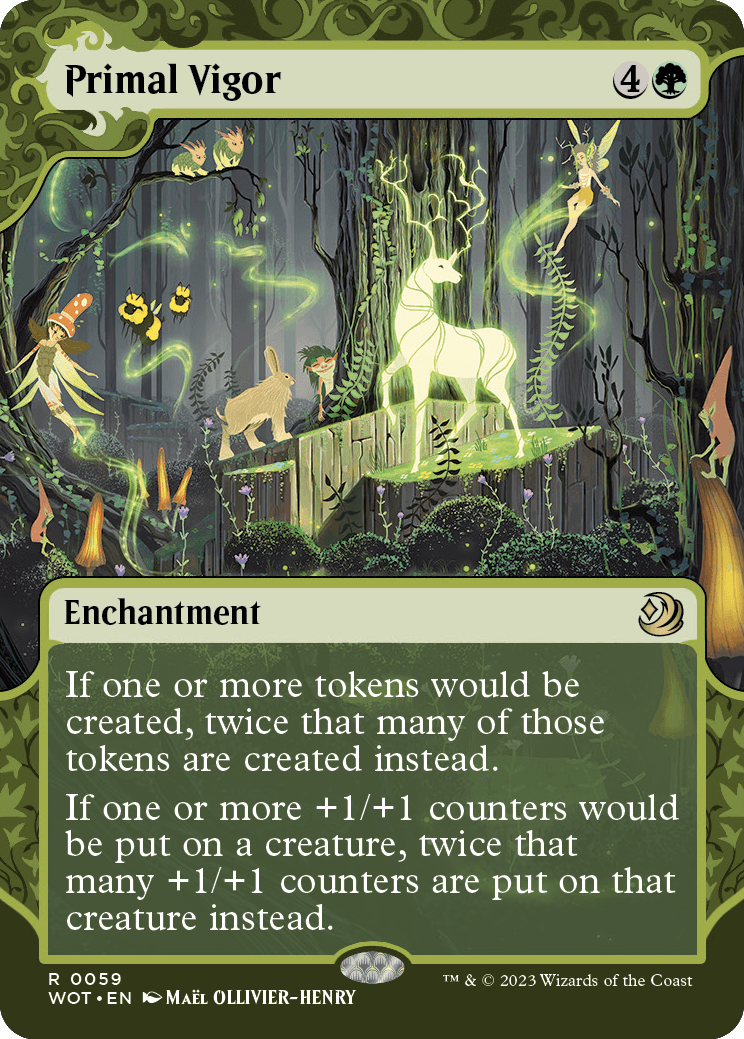
Primal Vigor
{4}{G}
Enchantment
If one or more tokens would be created, twice that many of those tokens are created instead.
If one or more +1/+1 counters would be put on a creature, twice that many +1/+1 counters are put on that creature instead.
- Everything that is specified by the effect creating the original token or tokens will also be true about the additional token or tokens created by Primal Vigor's replacement effect. For example, if an effect tells you to create a token "tapped and attacking," the additional tokens will also be tapped and attacking.
- It doesn't matter who controls the tokens or the creature that the +1/+1 counters are being placed on.
- Primal Vigor affects permanents that "enter the battlefield with" a certain number of counters. For example, if a creature would normally enter the battlefield with three +1/+1 counters on it, it will enter with six +1/+1 counters on it.
- If there are two Primal Vigors on the battlefield, the number of tokens or +1/+1 counters is four times the original number. If there are three on the battlefield, the number of tokens or +1/+1 counters is eight times the original number, and so on.
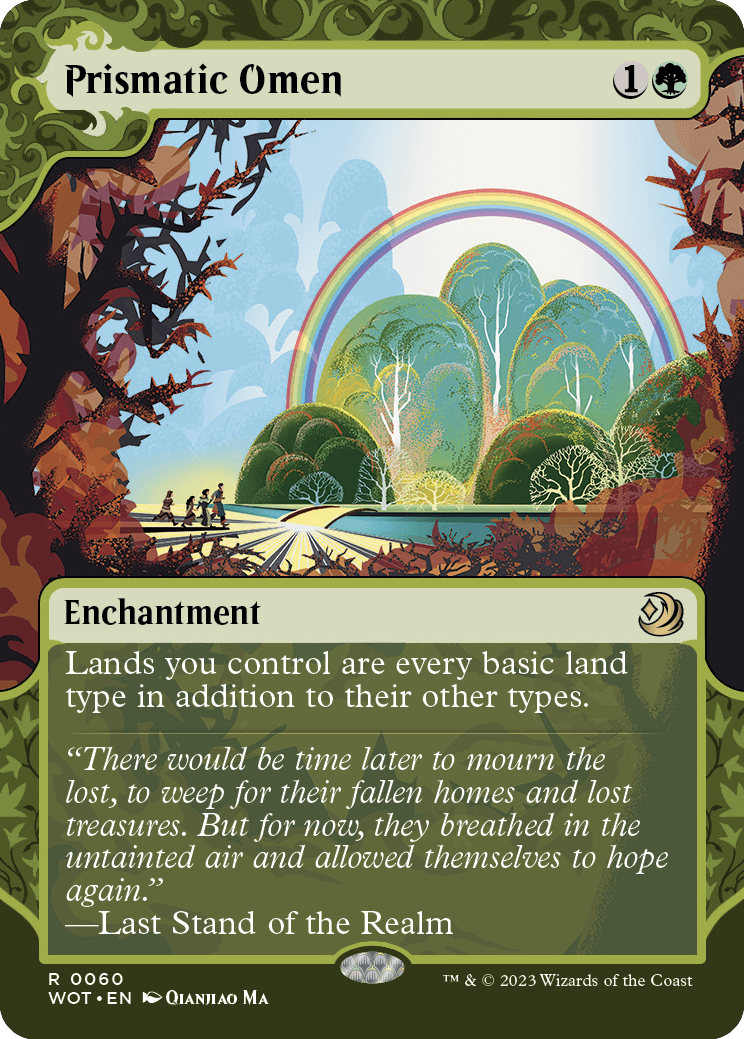
Prismatic Omen
{1}{G}
Enchantment
Lands you control are every basic land type in addition to their other types.
- Each land you control will have the land types Plains, Island, Swamp, Mountain, and Forest. They'll also have the mana ability of each basic land type (for example, Forests can tap to produce {G}). They'll still have their other subtypes and abilities.
- Giving a land extra basic land types doesn't change its name or whether it's legendary or basic.
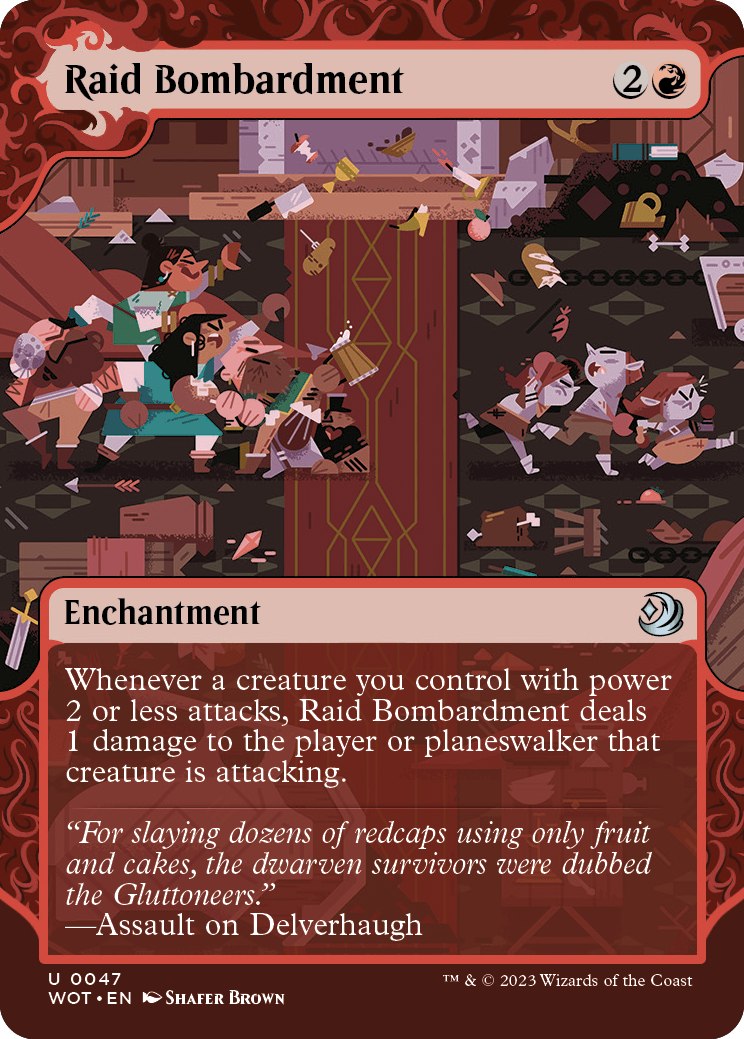
Raid Bombardment
{2}{R}
Enchantment
Whenever a creature you control with power 2 or less attacks, Raid Bombardment deals 1 damage to the player or planeswalker that creature is attacking.
- The power of the attacking creature is checked only when the ability triggers. Once it triggers, Raid Bombardment will deal 1 damage to the appropriate player or planeswalker even if the creature's power changes before the ability resolves.
- If you attack with multiple creatures with power 2 or less, Raid Bombardment's ability triggers for each of them separately.
- A creature with 0 power can attack, as long as it doesn't also have defender.
- If the attacking creature leaves the battlefield before Raid Bombardment's triggered ability resolves, Raid Bombardment deals 1 damage to the player or planeswalker that creature was attacking before it left the battlefield.
- Raid Bombardment's ability won't do anything when a creature you control with power 2 or less attacks a battle.
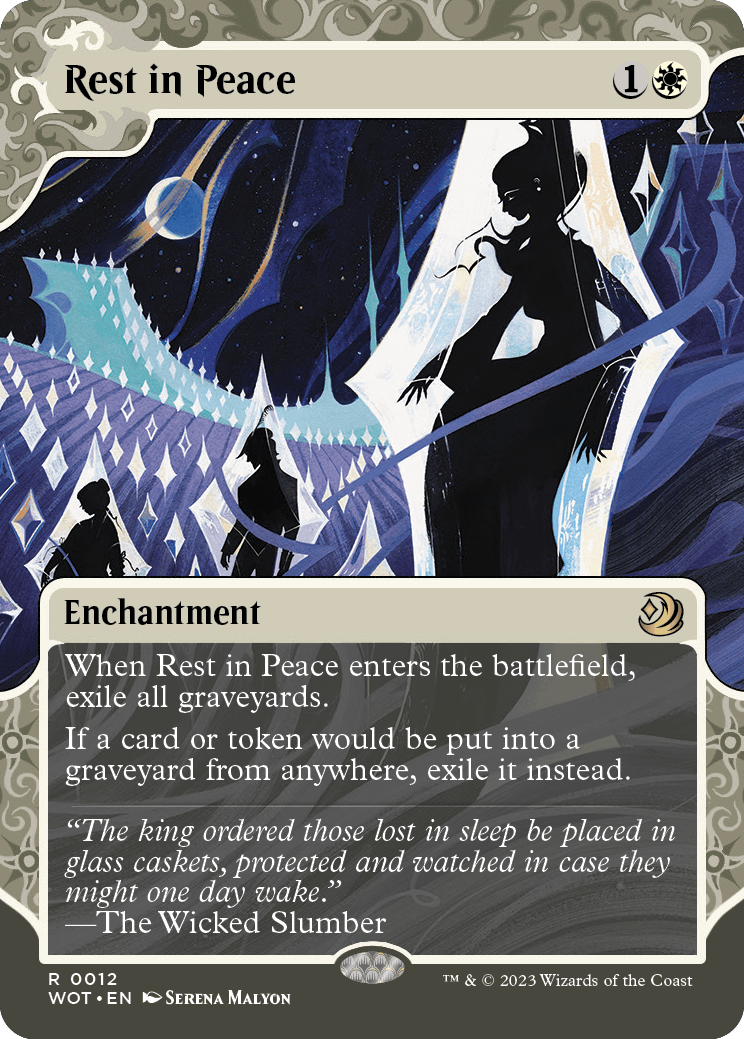
Rest in Peace
{1}{W}
Enchantment
When Rest in Peace enters the battlefield, exile all graveyards.
If a card or token would be put into a graveyard from anywhere, exile it instead.
- While Rest in Peace is on the battlefield, abilities that trigger whenever a creature dies won't trigger because cards and tokens are never put into a player's graveyard.
- If Rest in Peace is destroyed by a spell, Rest in Peace will be exiled and then the spell will be put into its owner's graveyard.
- If a card is discarded while Rest in Peace is on the battlefield, abilities that function when a card is discarded (such as madness) still work, even though that card never reaches a graveyard. In addition, spells or abilities that check the characteristics of a discarded card (such as Chandra Ablaze's first ability) can find that card in exile.
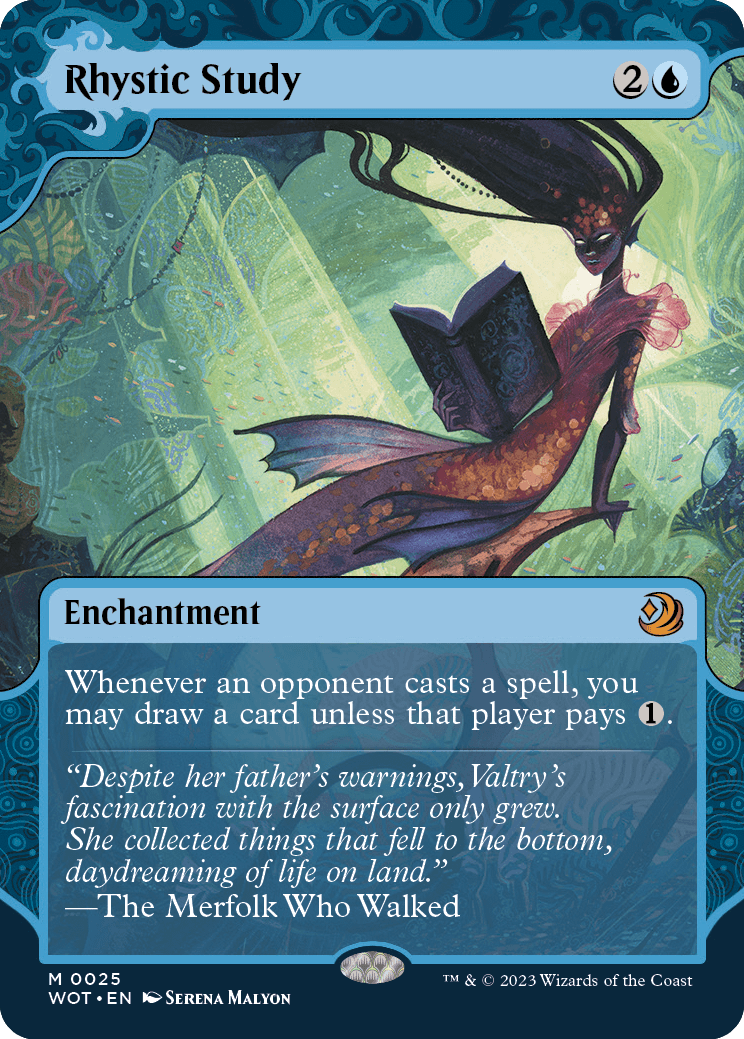
Rhystic Study
{2}{U}
Enchantment
Whenever an opponent casts a spell, you may draw a card unless that player pays {1}.
- Rhystic Study's triggered ability resolves before the spell that caused it to trigger. It resolves even if that spell is countered. The player gets the option to pay when this triggered ability resolves.
- You don't have to decide whether or not to draw a card until after the player decides whether or not to pay.
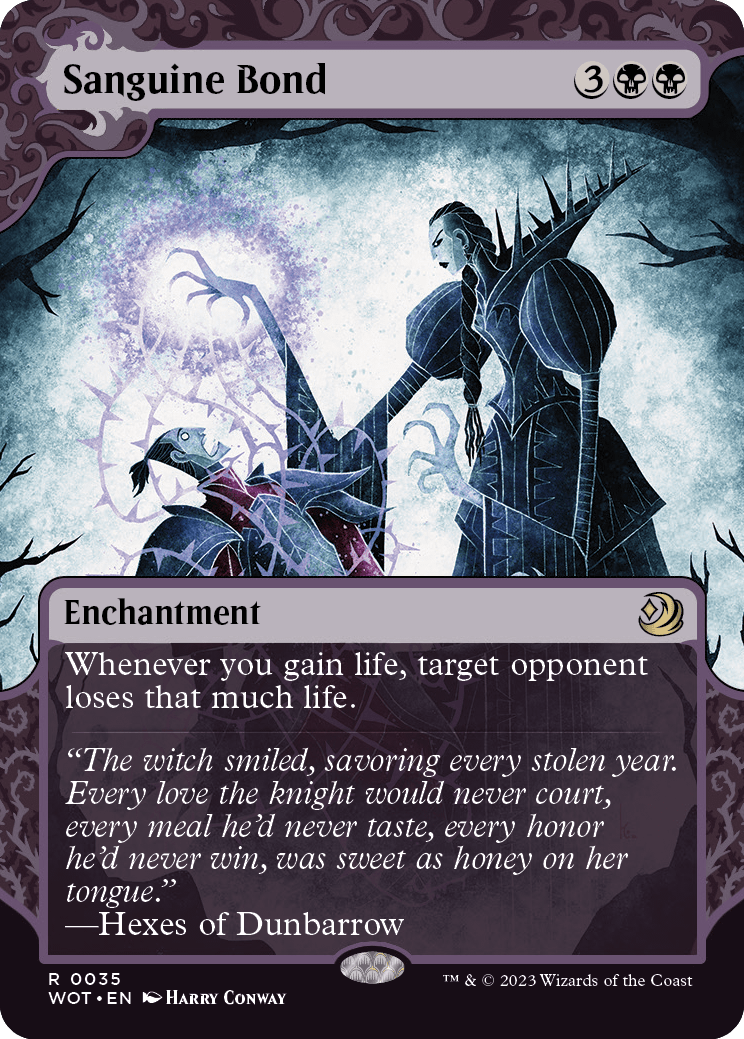
Sanguine Bond
{3}{B}{B}
Enchantment
Whenever you gain life, target opponent loses that much life.
- Sanguine Bond's ability triggers just once for each life-gaining event, whether it's 2 life from Werefox Bodyguard or 3 life from a Food token.
- If an ability triggers whenever an opponent loses life and causes you to gain life, such as the ability of Exquisite Blood, this will loop until either you win the game or a player takes an action to break the loop. If neither of these happen, the game ends in a draw.
- Each creature with lifelink dealing combat damage causes a separate life-gaining event. For example, if two creatures you control with lifelink deal combat damage at the same time, Sanguine Bond's ability will trigger twice and you may choose a different opponent for each trigger. However, if a single creature you control with lifelink deals combat damage to multiple creatures, players, planeswalkers, and/or battles at the same time (perhaps because it has trample or was blocked by more than one creature), the ability will trigger only once.
- If you gain an amount of life "for each" of something, that life is gained as one event and Sanguine Bond's ability triggers only once.
- In a Two-Headed Giant game, life gained by your teammate won't cause the ability to trigger, even though it caused your team's life total to increase.
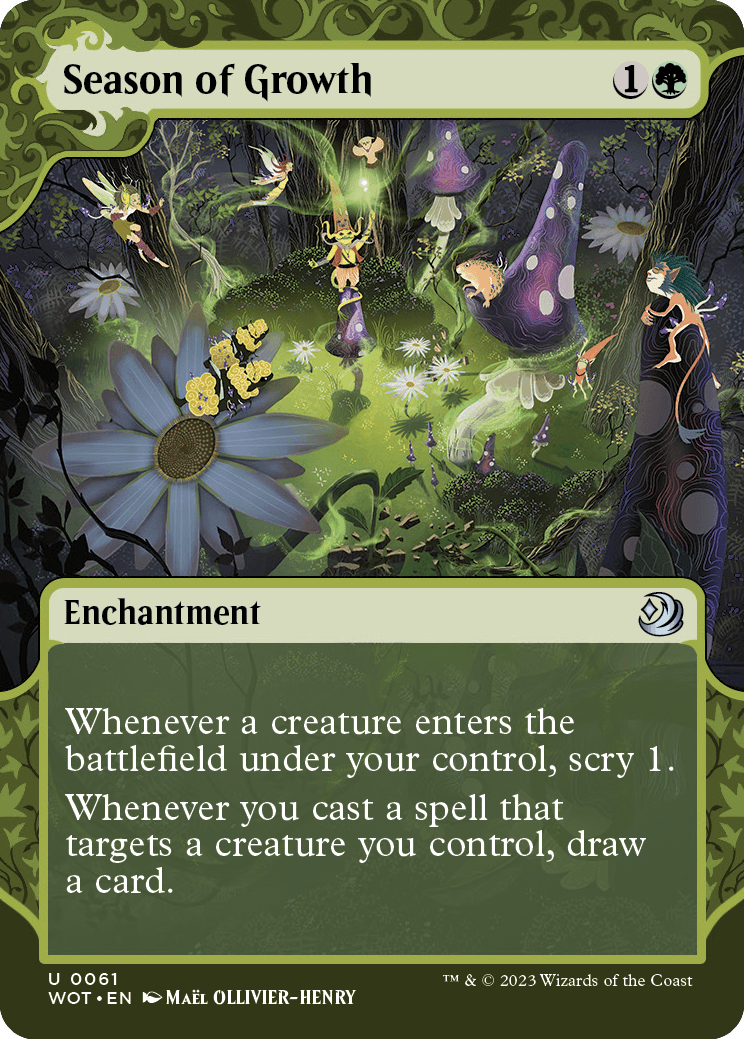
Season of Growth
{1}{G}
Enchantment
Whenever a creature enters the battlefield under your control, scry 1.
Whenever you cast a spell that targets a creature you control, draw a card.
- If multiple creatures enter the battlefield under your control simultaneously, you'll scry 1 for each of those creatures. You won't look at more than one card from your library at once.
- Season of Growth's last ability resolves before the spell that caused it to trigger. It resolves even if that spell is countered.
- Season of Growth's last ability triggers when you cast a spell that has multiple targets, as long as at least one of those targets is a creature you control. It doesn't trigger multiple times if you cast a spell that targets a creature you control multiple times or that targets multiple creatures you control.
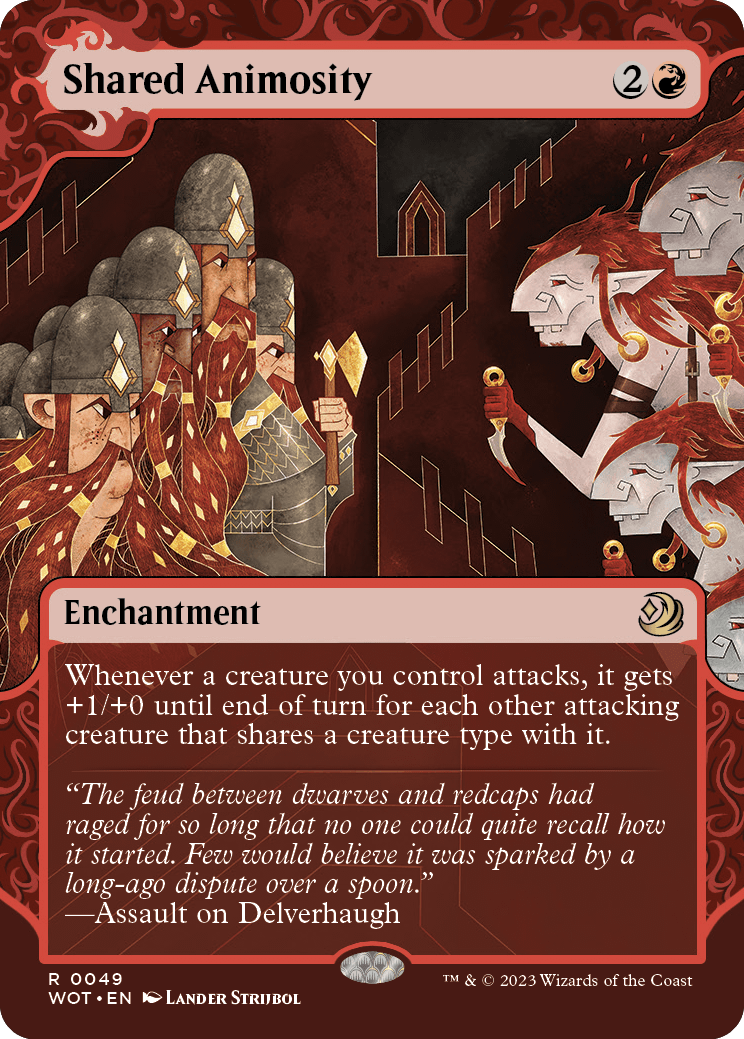
Shared Animosity
{2}{R}
Enchantment
Whenever a creature you control attacks, it gets +1/+0 until end of turn for each other attacking creature that shares a creature type with it.
- This ability counts creatures, not creature types. For example, if you attack with five creatures—an Elf Shaman, an Elf Warrior, a Goblin Shaman, an Elemental, and a creature with all creature types—the ability will trigger five times. Those creatures will get +3/+0, +2/+0, +2/+0, +1/+0, and +4/+0, respectively.
- In a Two-Headed Giant game, only creatures you control trigger the ability and get the bonus, but your teammate's attacking creatures are included in the calculation of those bonuses.
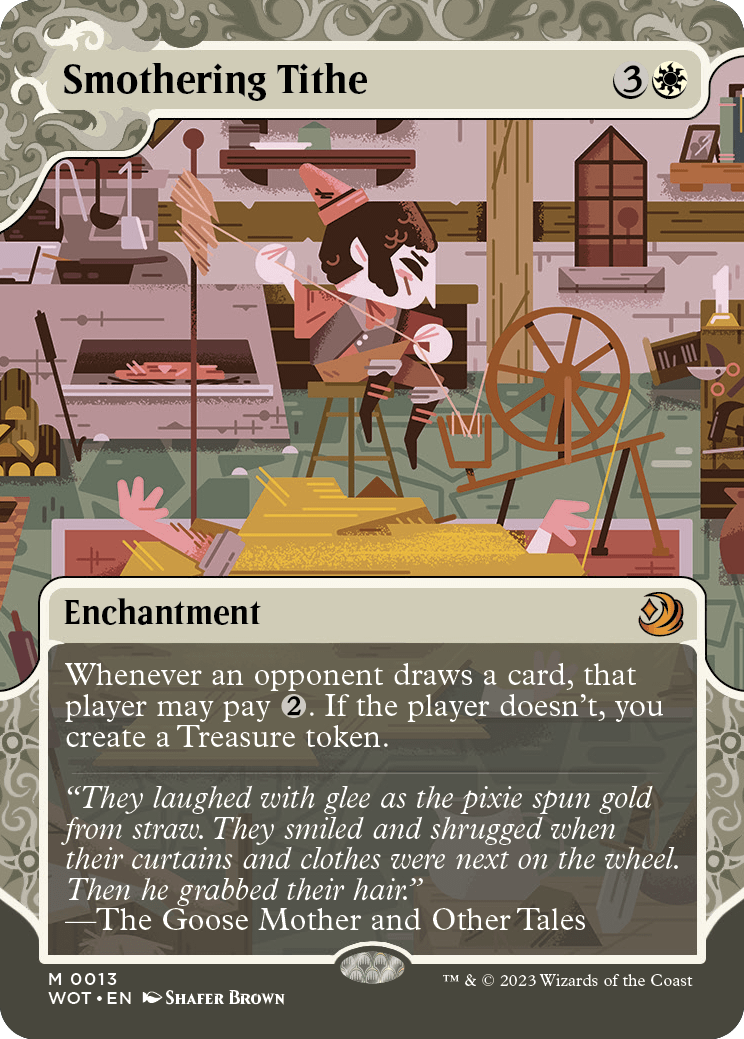
Smothering Tithe
{3}{W}
Enchantment
Whenever an opponent draws a card, that player may pay {2}. If the player doesn't, you create a Treasure token.
- If an opponent is instructed to draw multiple cards, that player draws all of them before deciding how many times to pay as the multiple triggered abilities from Smothering Tithe resolve.
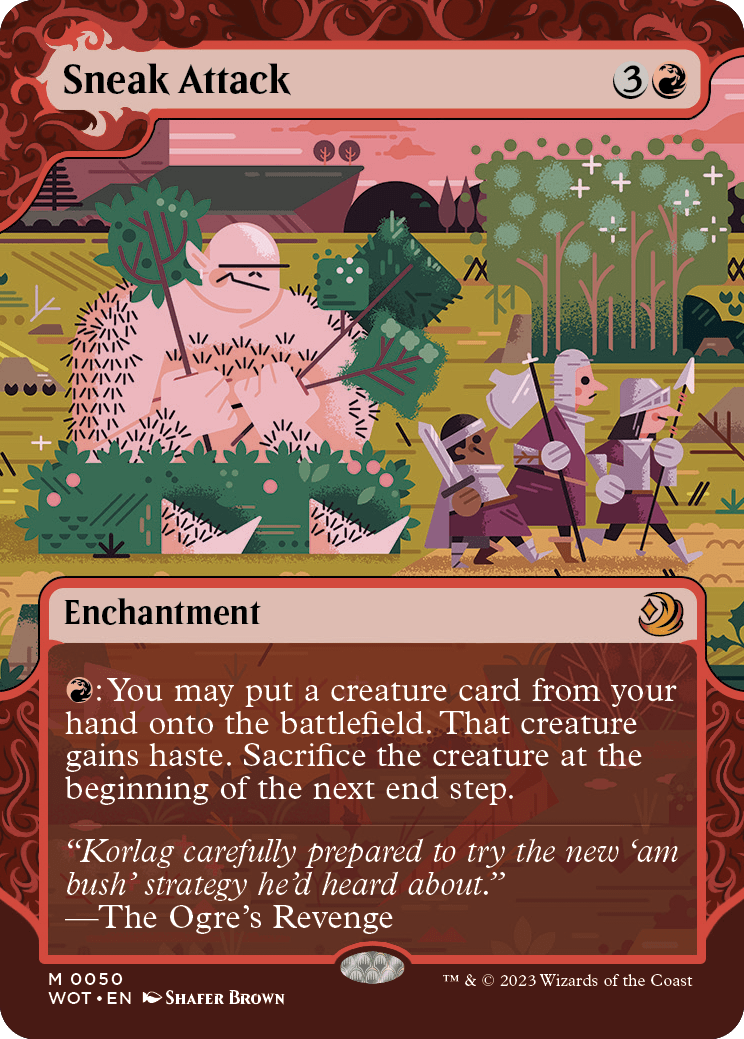
Sneak Attack
{3}{R}
Enchantment
{R}: You may put a creature card from your hand onto the battlefield. That creature gains haste. Sacrifice the creature at the beginning of the next end step.
- You sacrifice the creature only if you still control it. If that creature has left the battlefield, even if it came back, you don't sacrifice it because it's a new object.
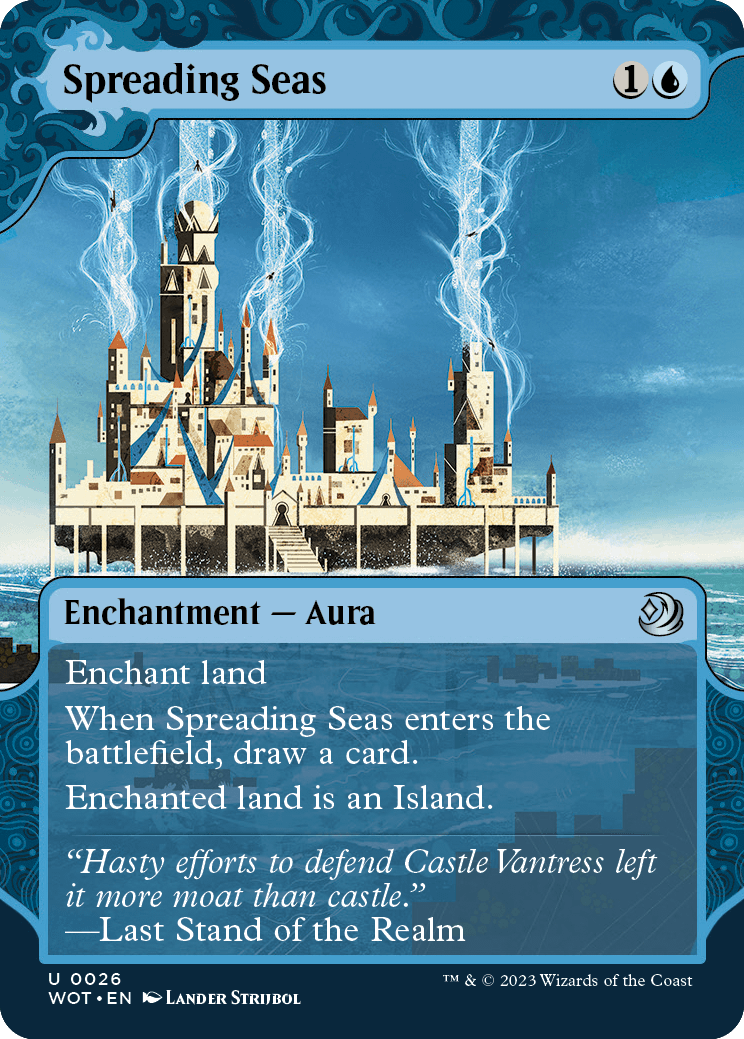
Spreading Seas
{1}{U}
Enchantment — Aura
Enchant land
When Spreading Seas enters the battlefield, draw a card.
Enchanted land is an Island.
- The enchanted land loses its existing land types and any abilities printed on it. It now has the land type Island and has the ability to tap to produce {U}. Spreading Seas doesn't change the enchanted land's name or whether it's legendary, basic, or snow.
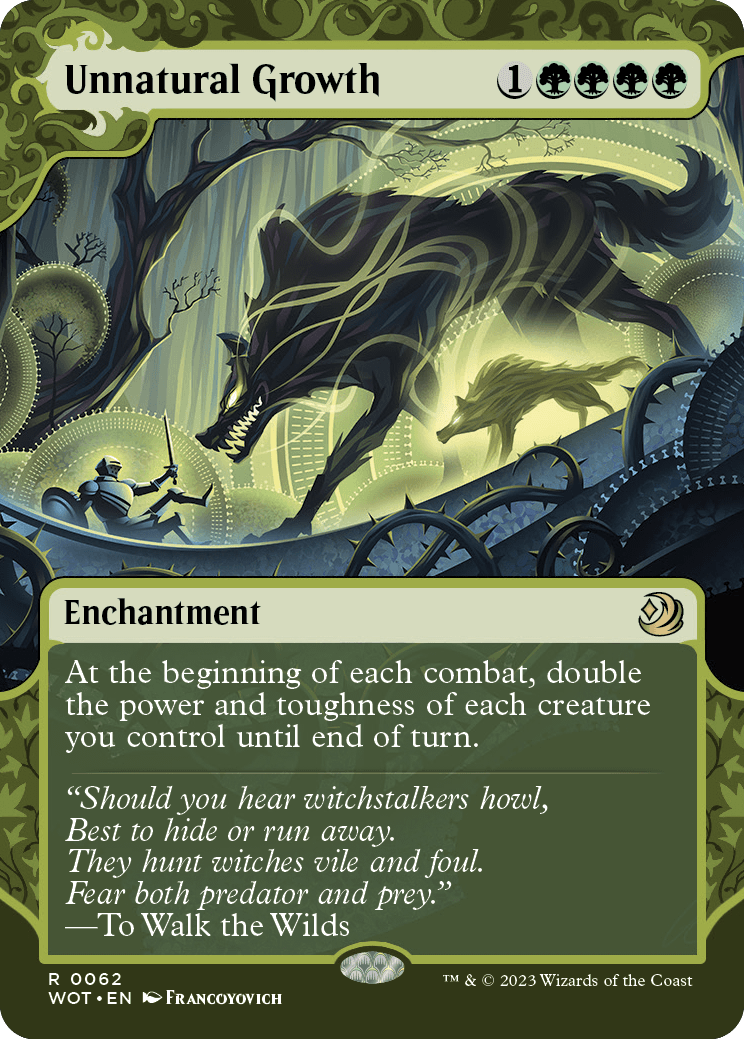
Unnatural Growth
{1}{G}{G}{G}{G}
Enchantment
At the beginning of each combat, double the power and toughness of each creature you control until end of turn.
- If an effect instructs you to "double" a creature's power, that creature gets +X/+0, where X is its power as that effect begins to apply. Similarly, a creature whose toughness is doubled gets +0/+X, where X is its toughness as the effect begins to apply.
- If a creature's power is less than 0 when it's doubled, instead that creature gets -X/-0, where X is how much less than 0 its power is. For example, if an effect has given Bear Cub, a 2/2 creature, -4/-0 so that it's a -2/2 creature, doubling its power and toughness gives it -2/+2, and it becomes a -4/4 creature.
- If you control more than one Unnatural Growth, each one applies independently. For example, if you control two copies of Unnatural Growth, a 2/2 Bear Cub becomes a 4/4 creature when the first ability resolves and then becomes an 8/8 creature when the second one resolves.
Magic: The Gathering, Magic, Innistrad, Kamigawa, New Capenna, Dominaria, The Brothers' War, Phyrexia, and Eldraine are trademarks of Wizards of the Coast LLC in the USA and other countries. ©2023 Wizards.
